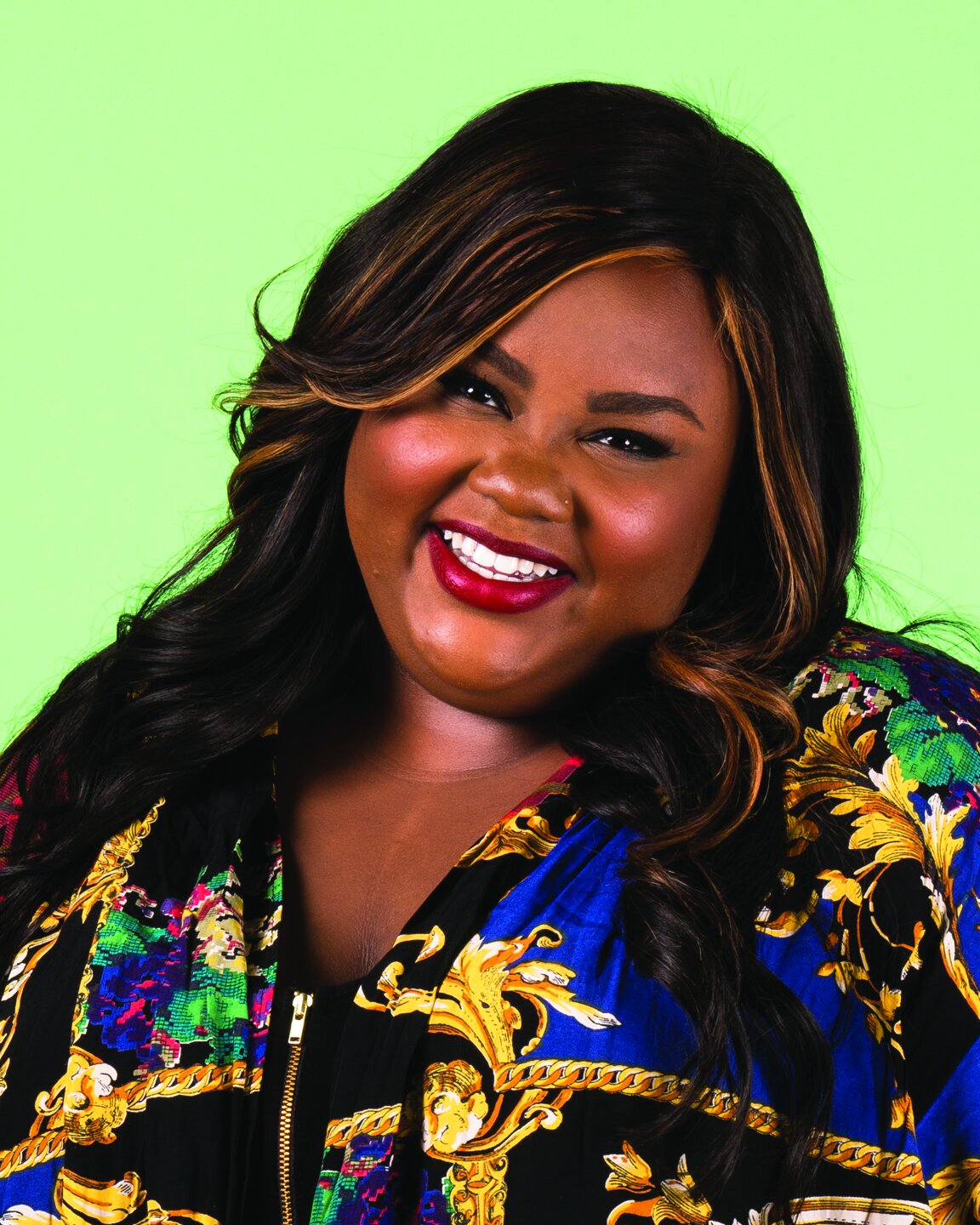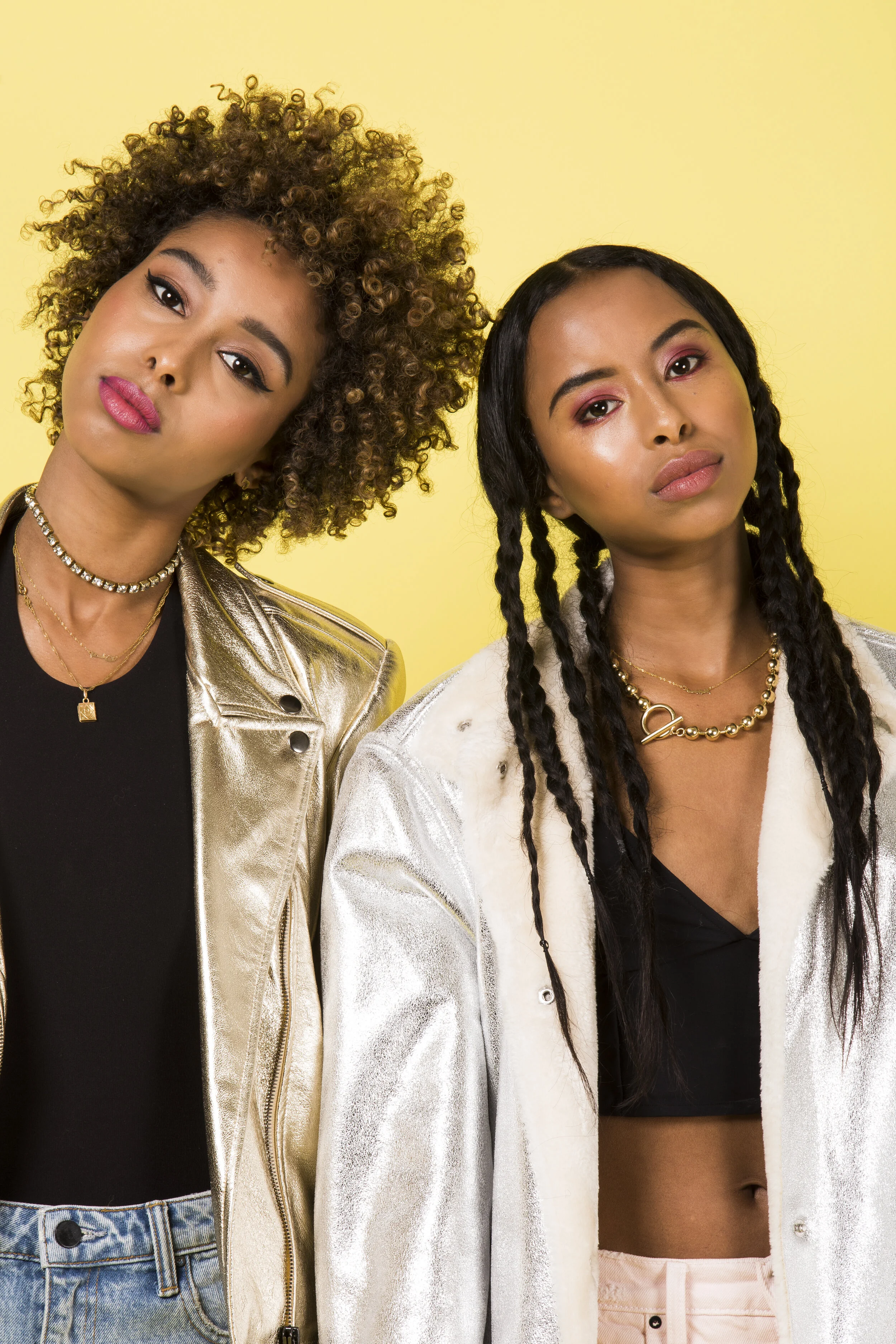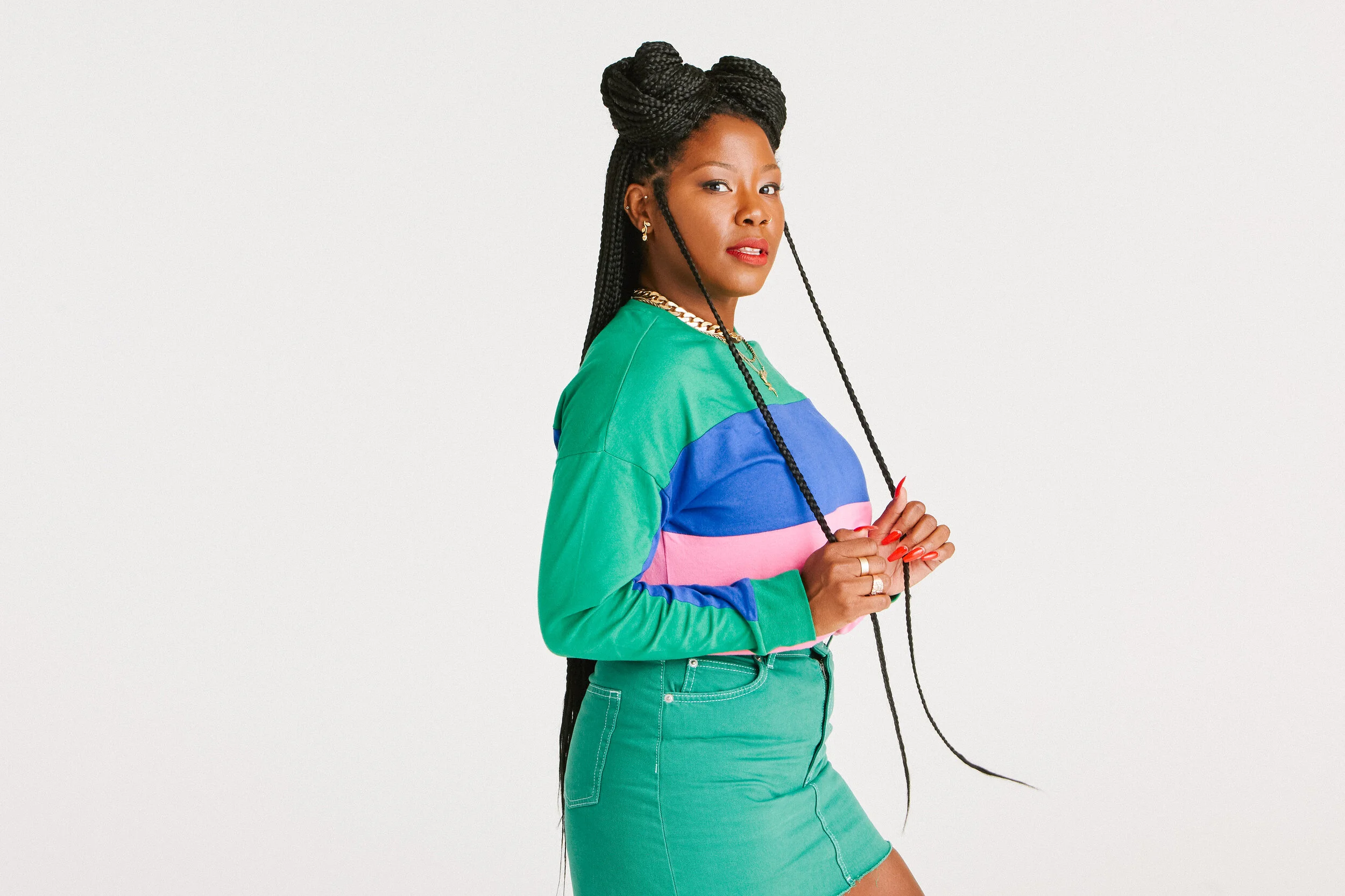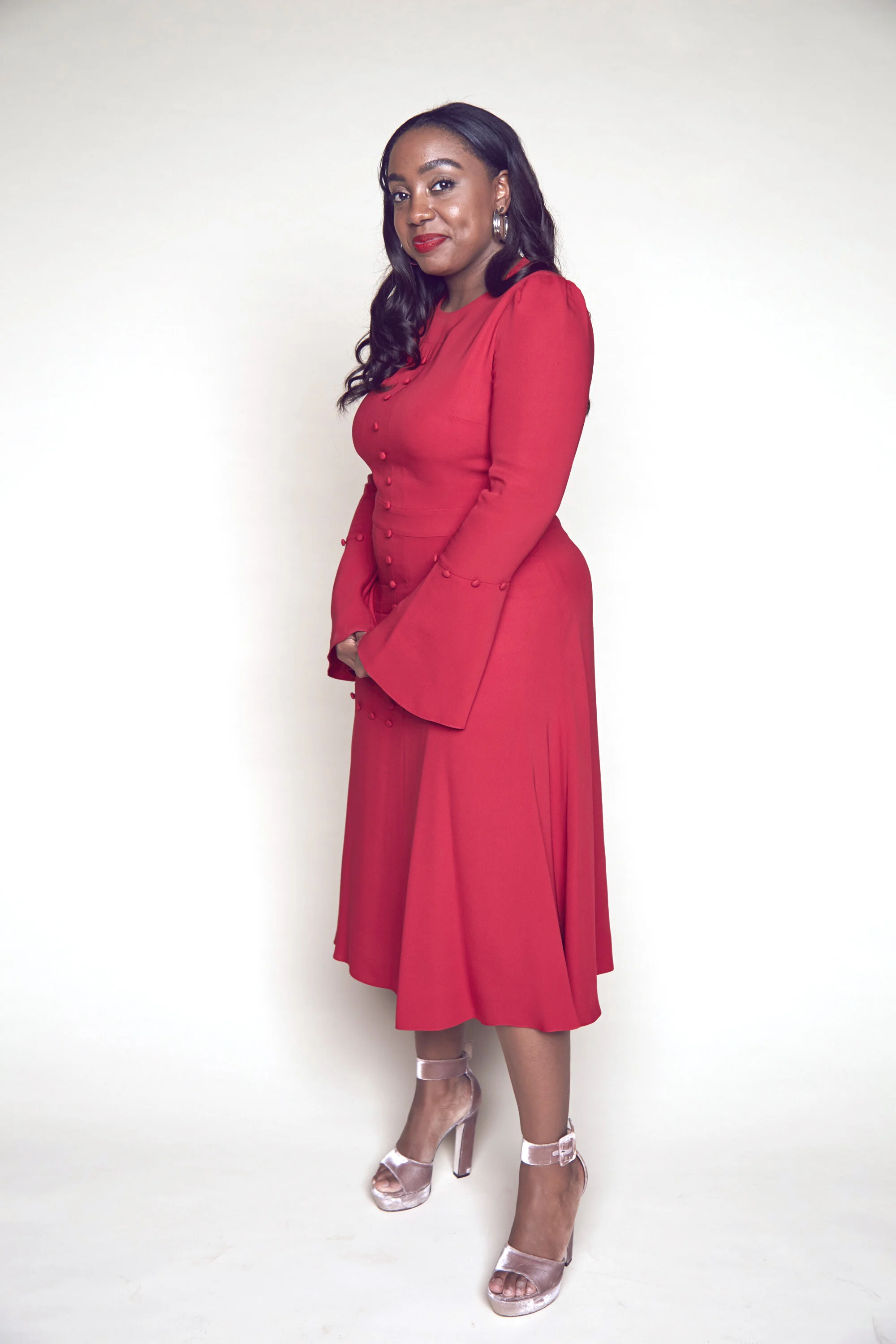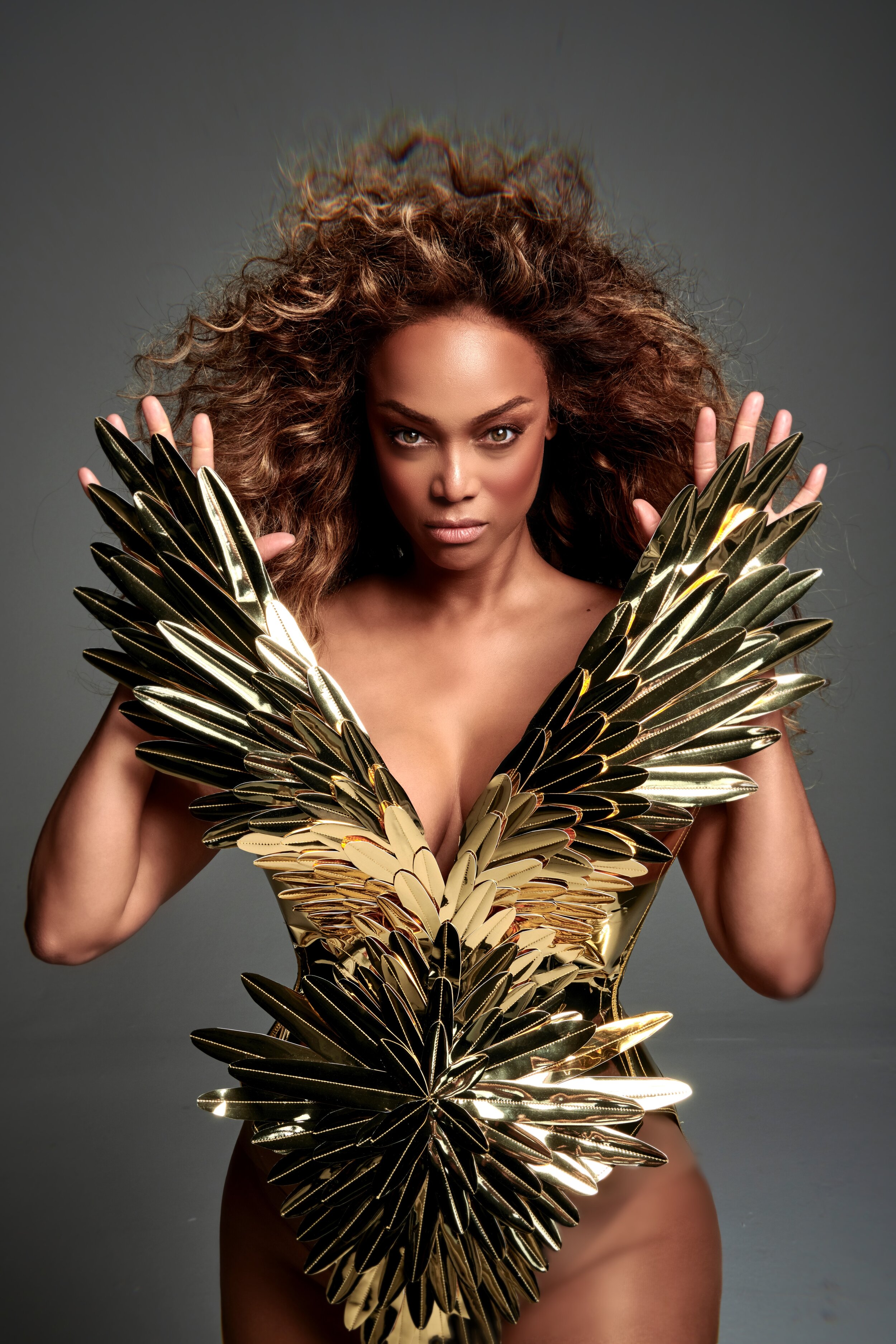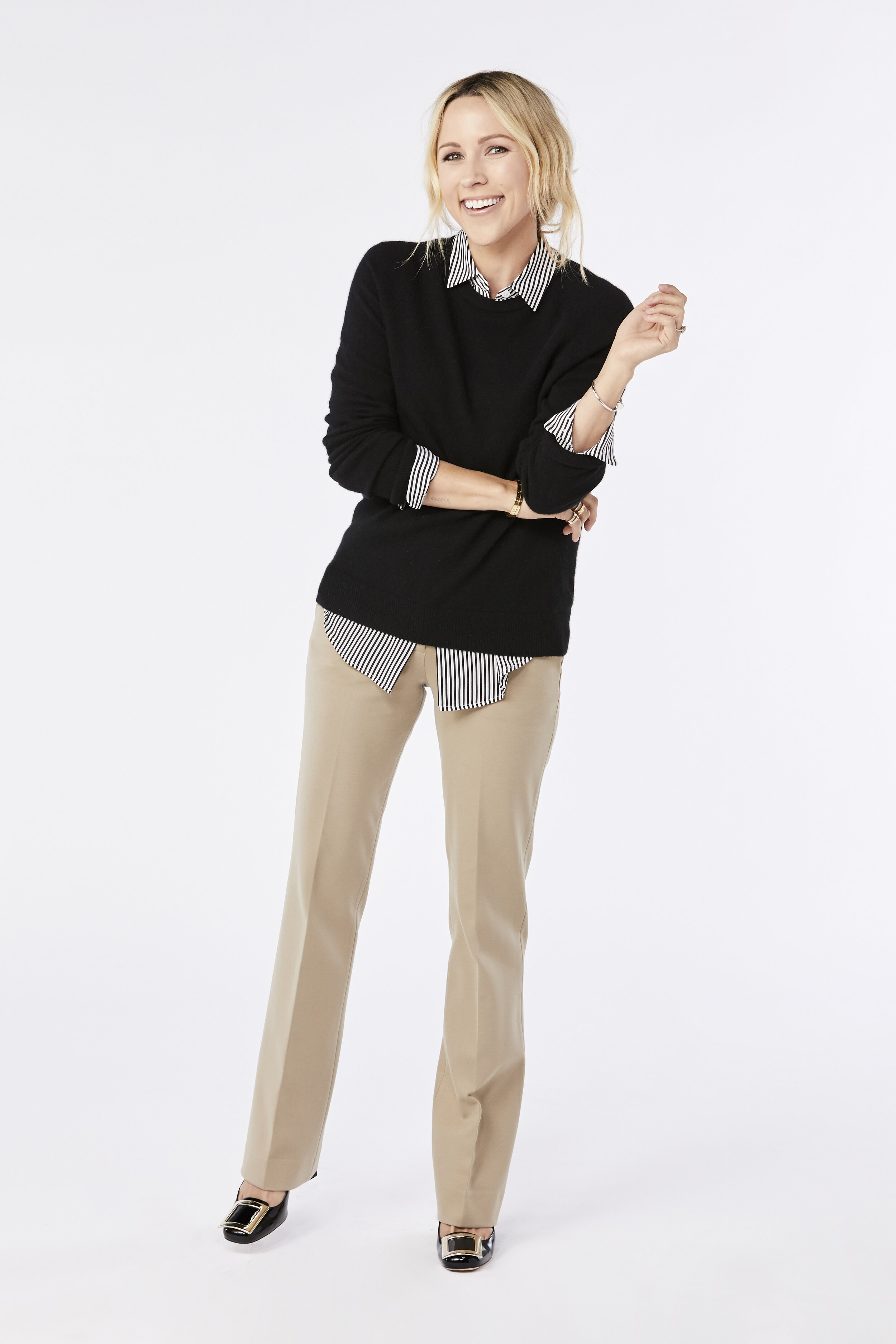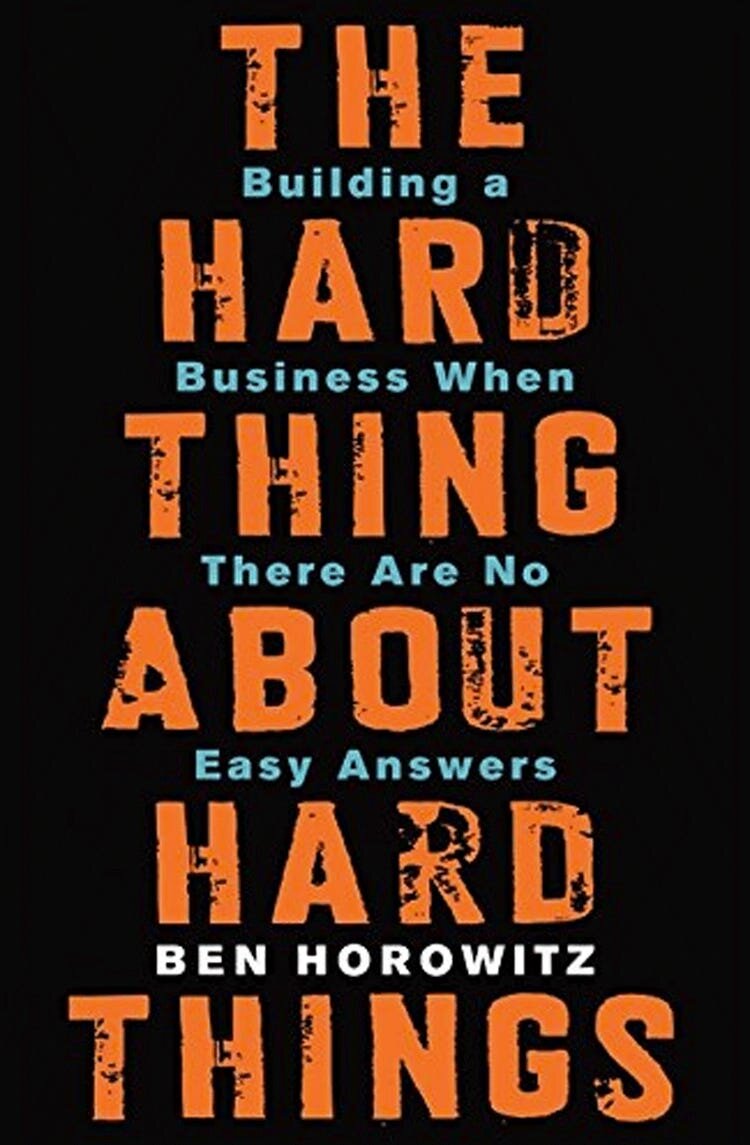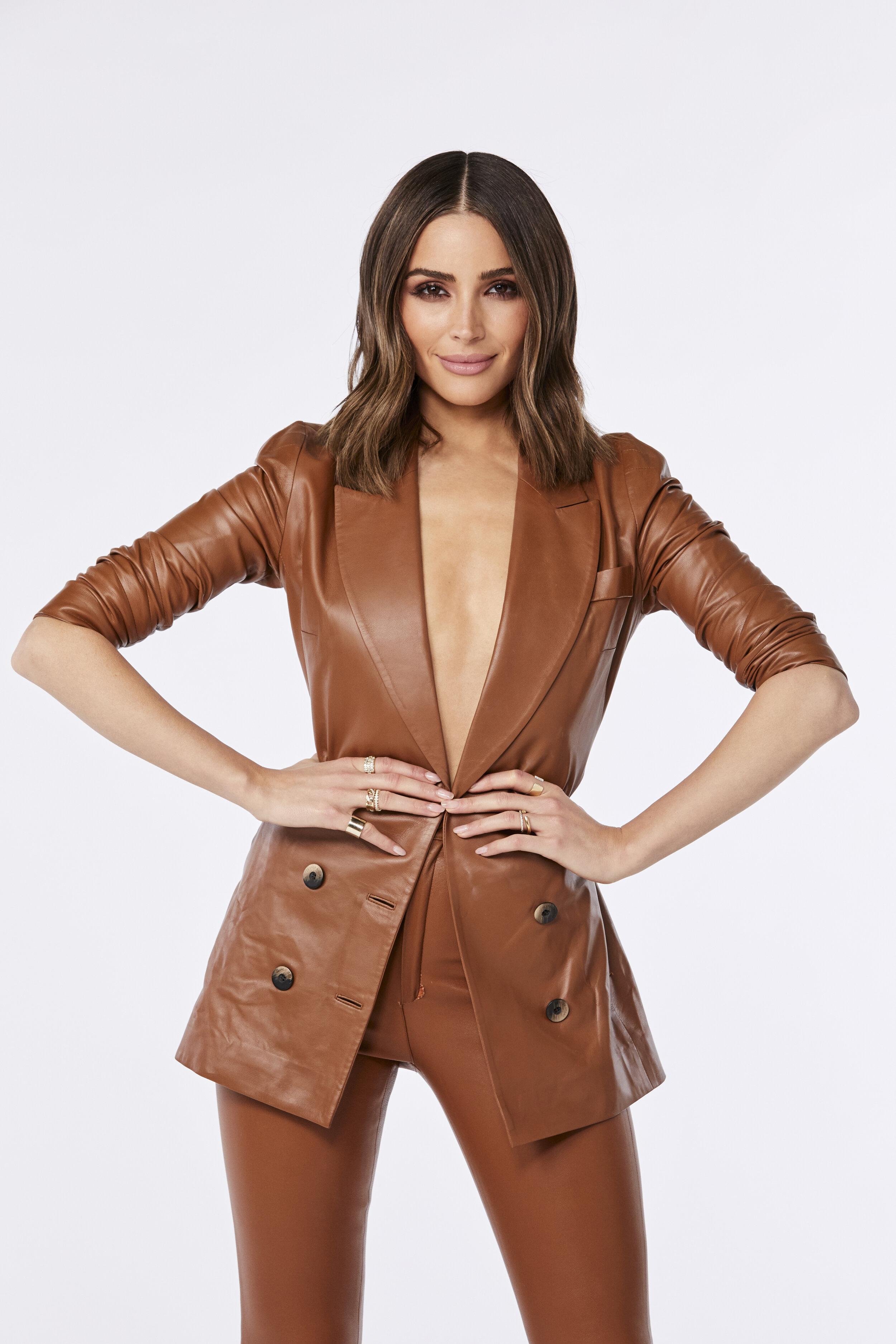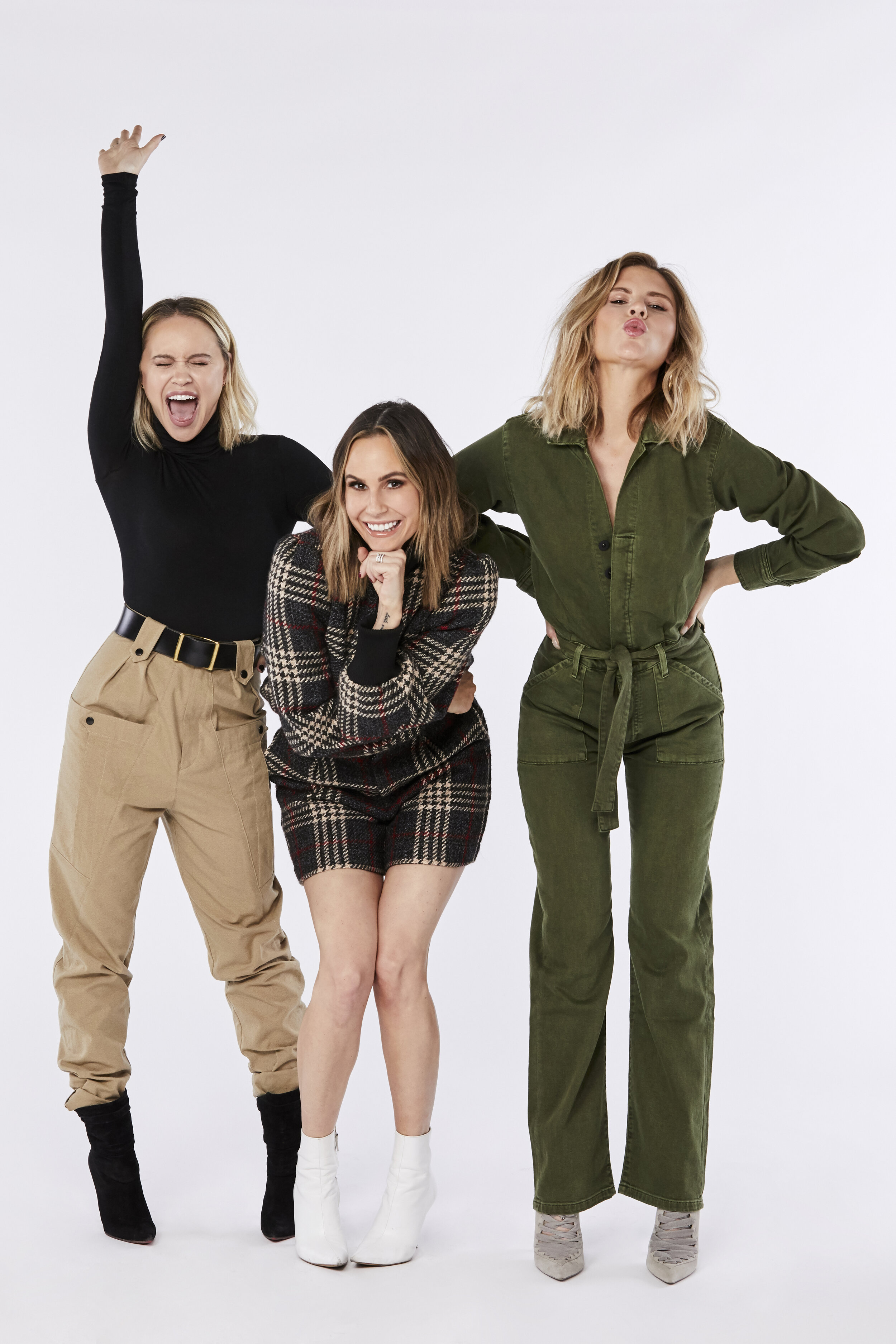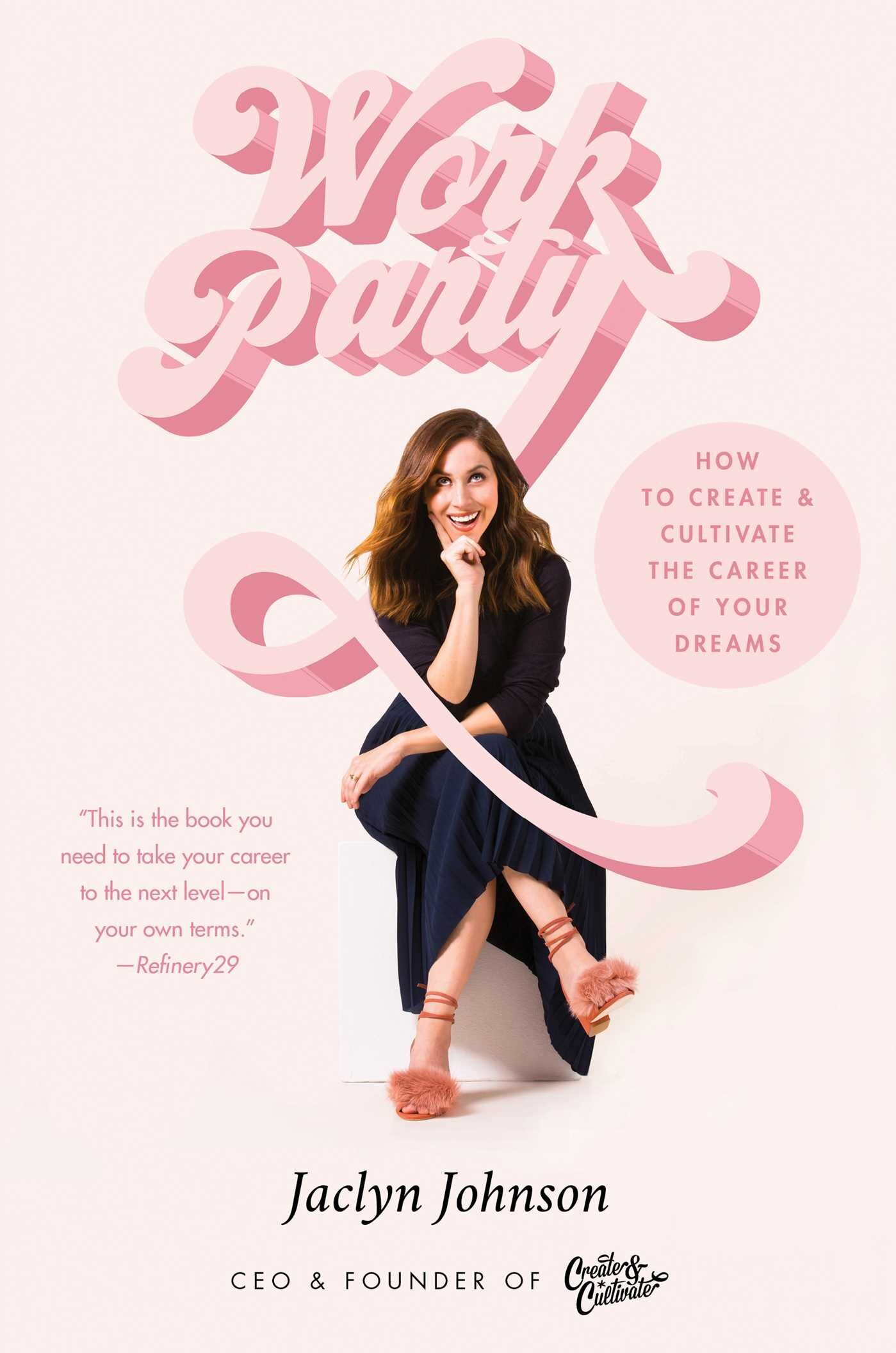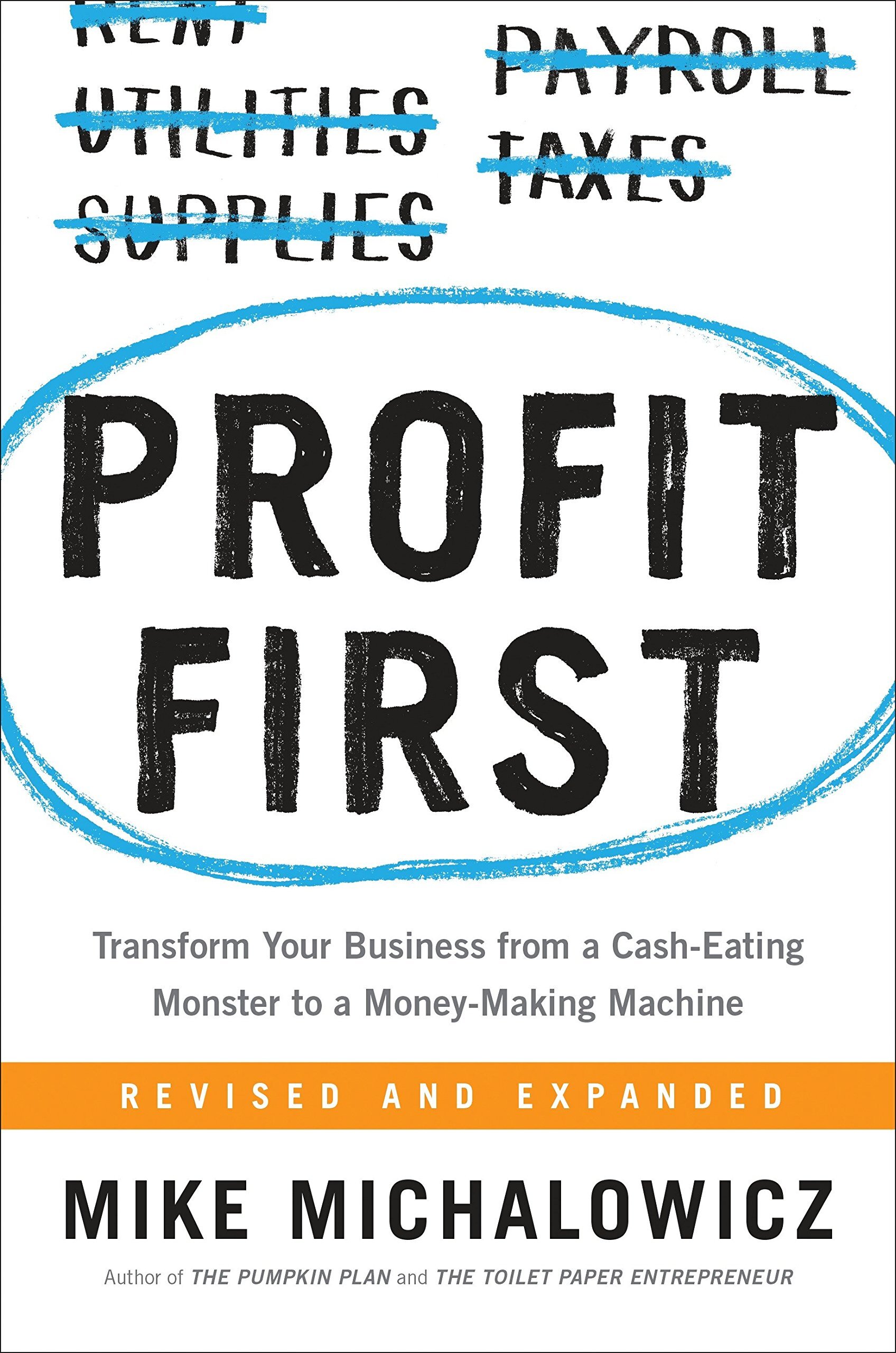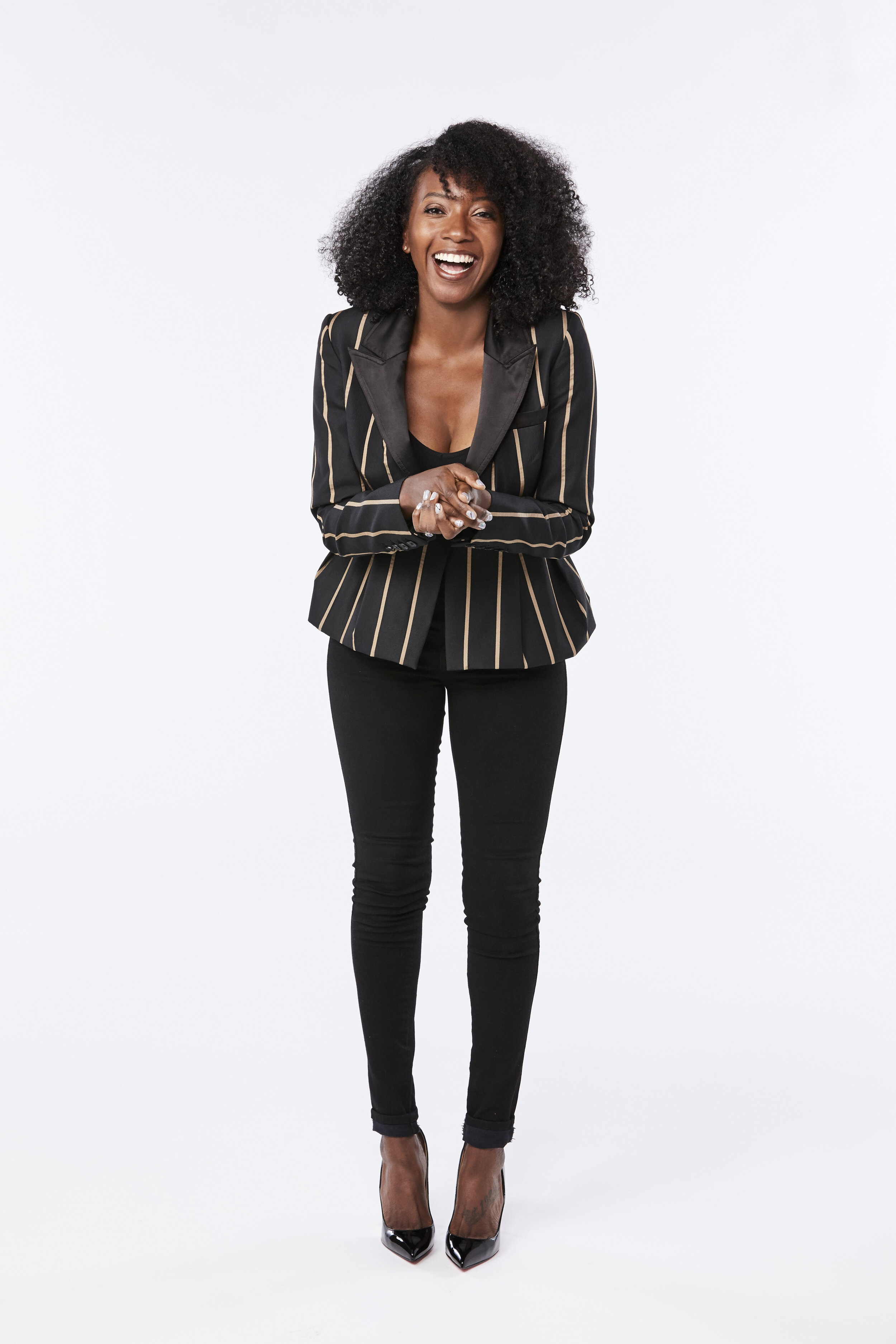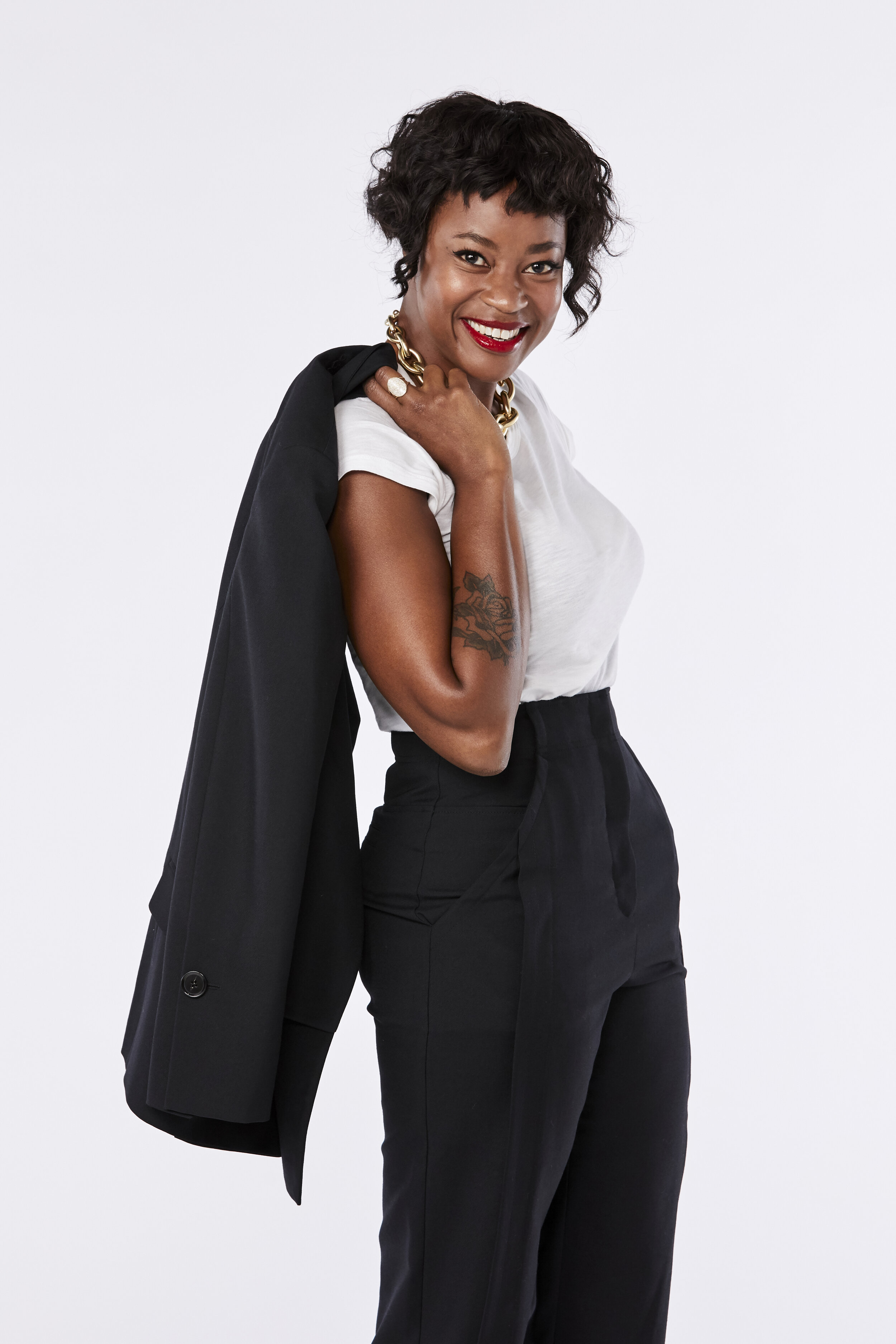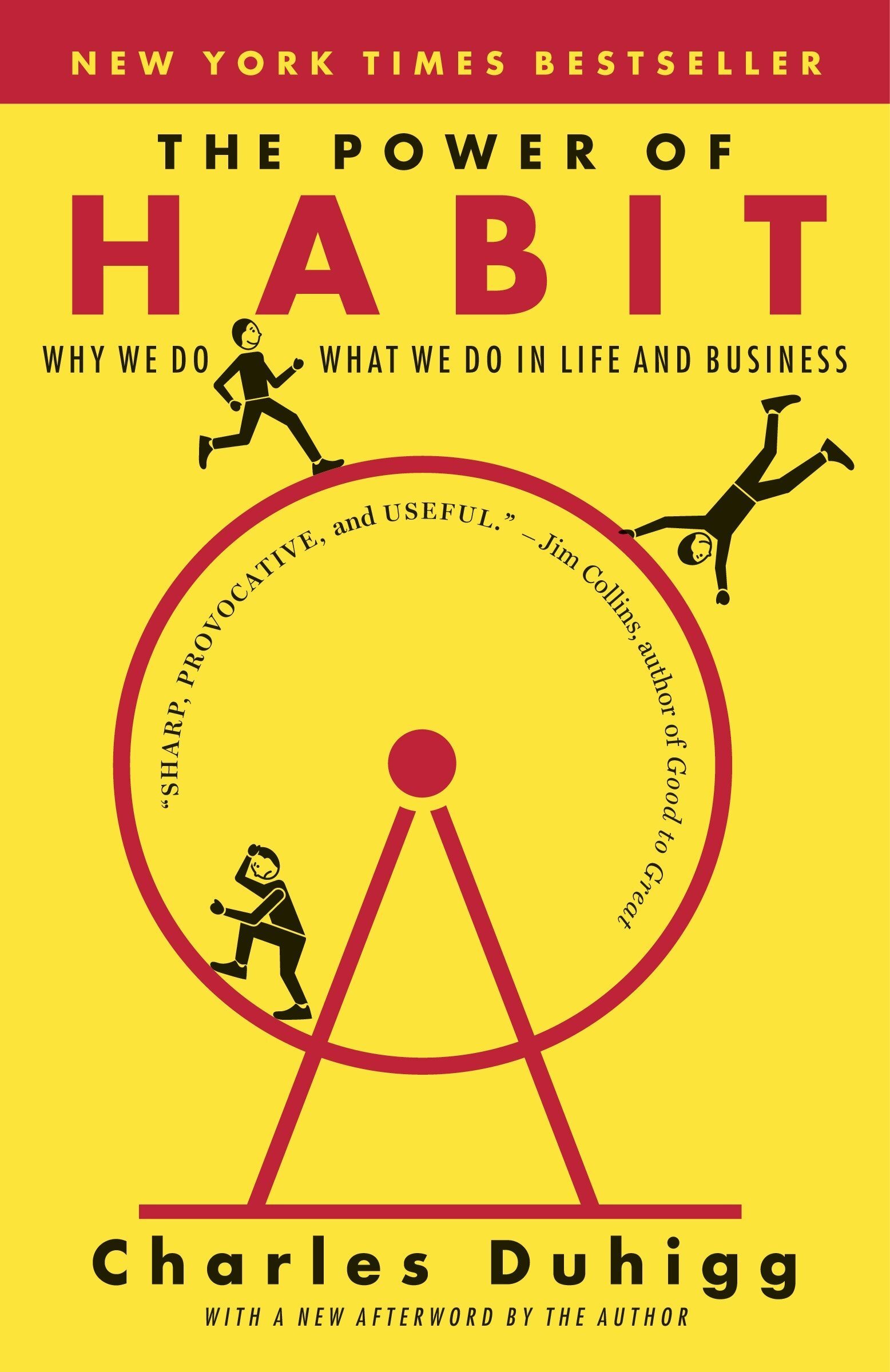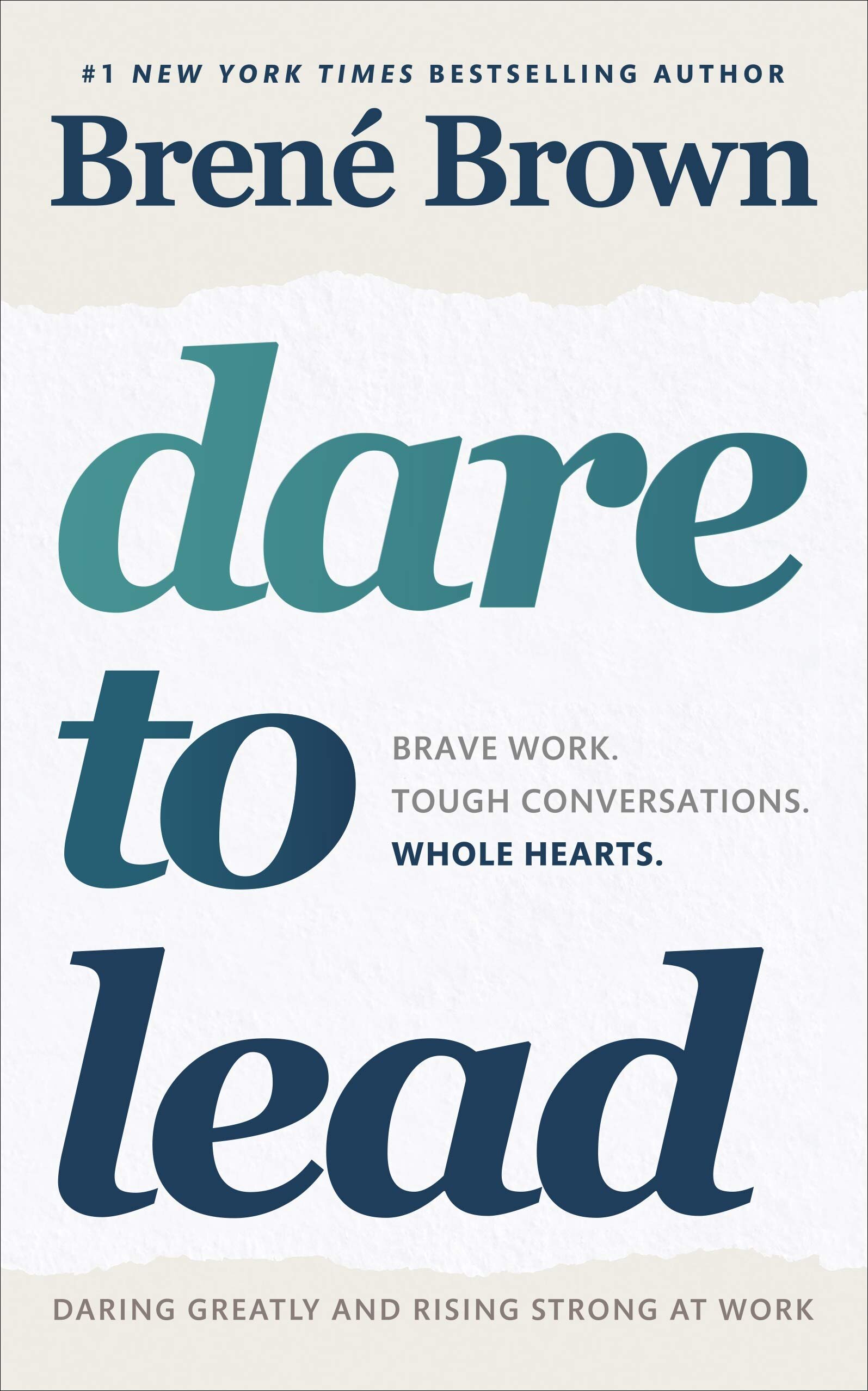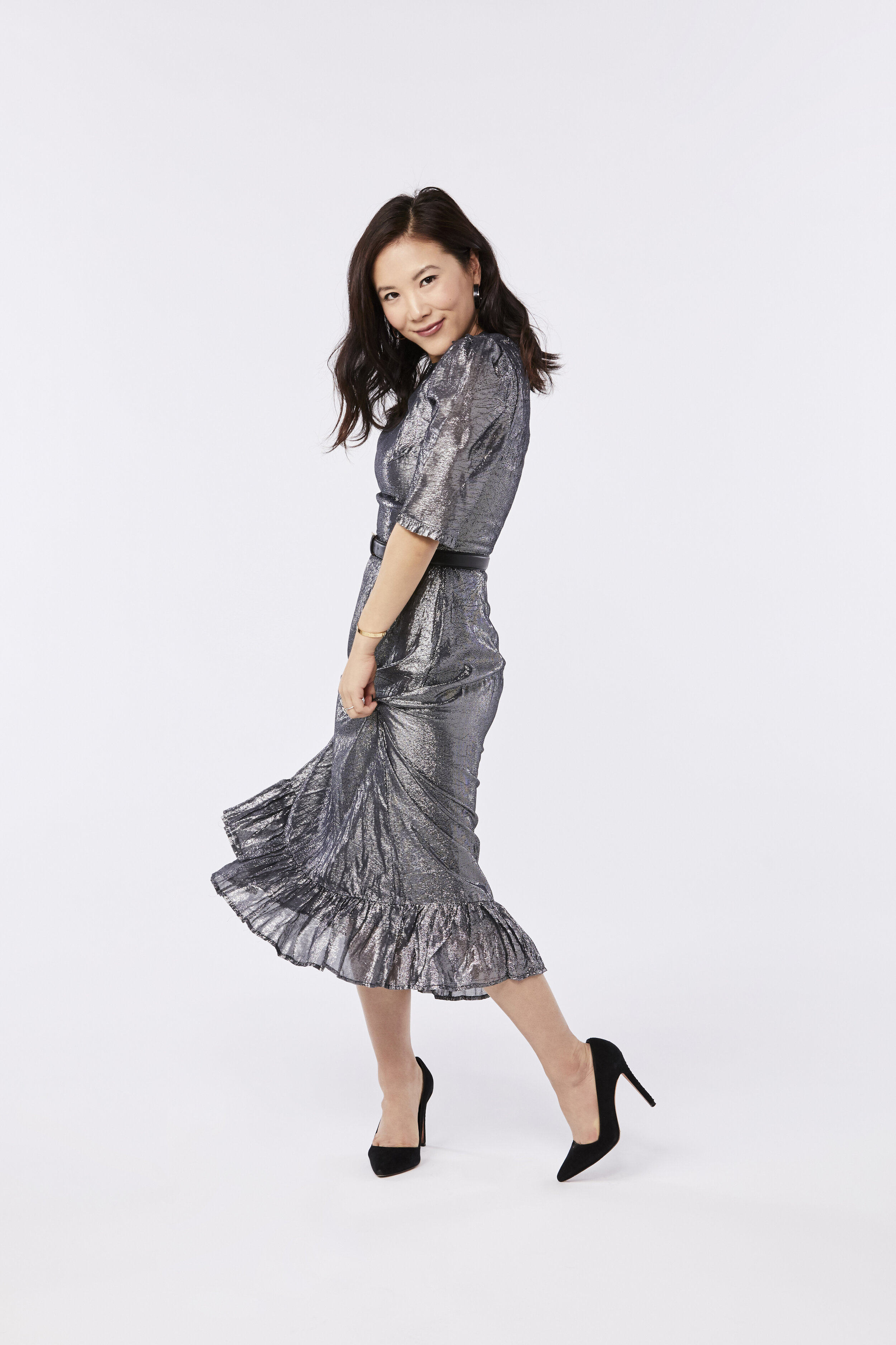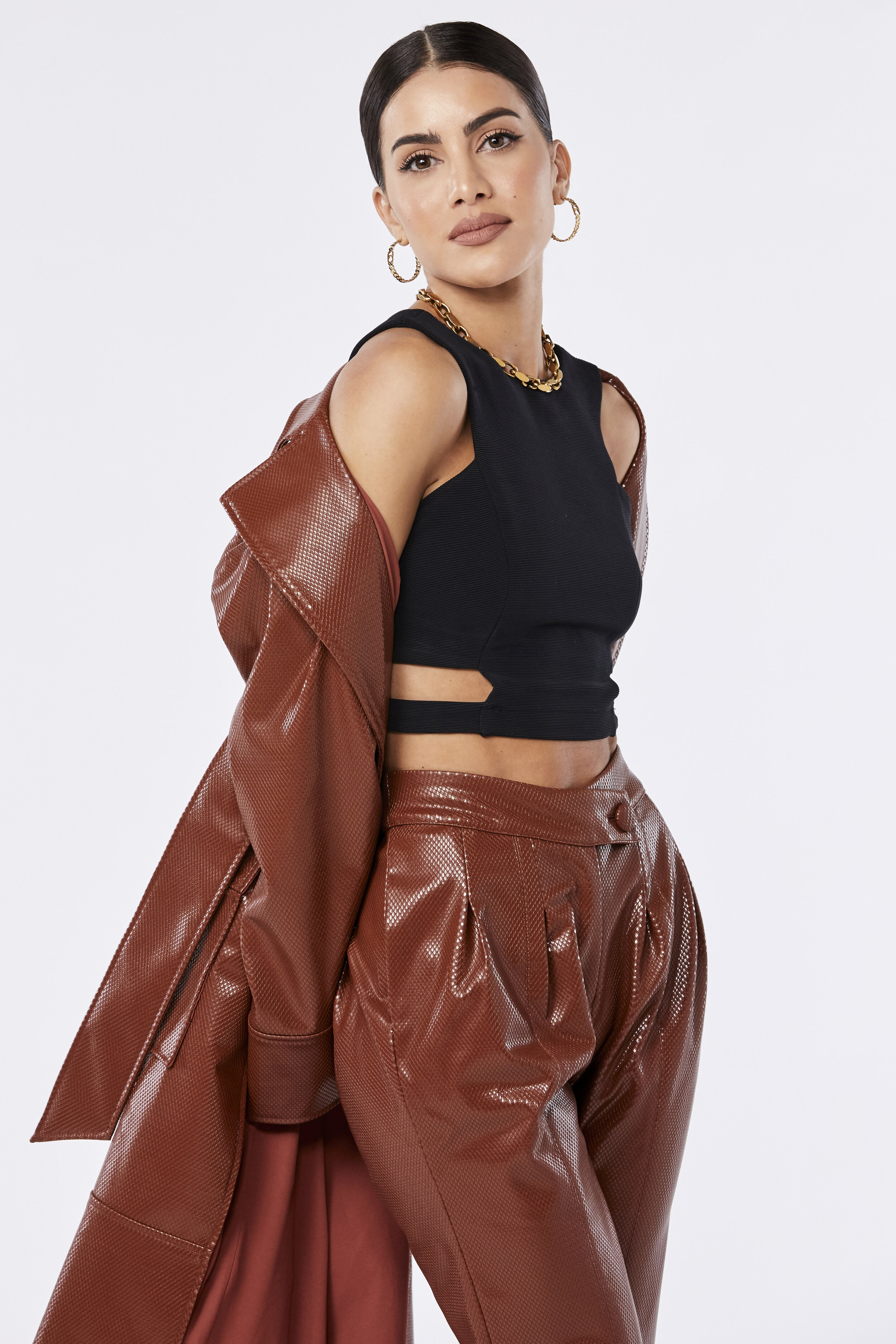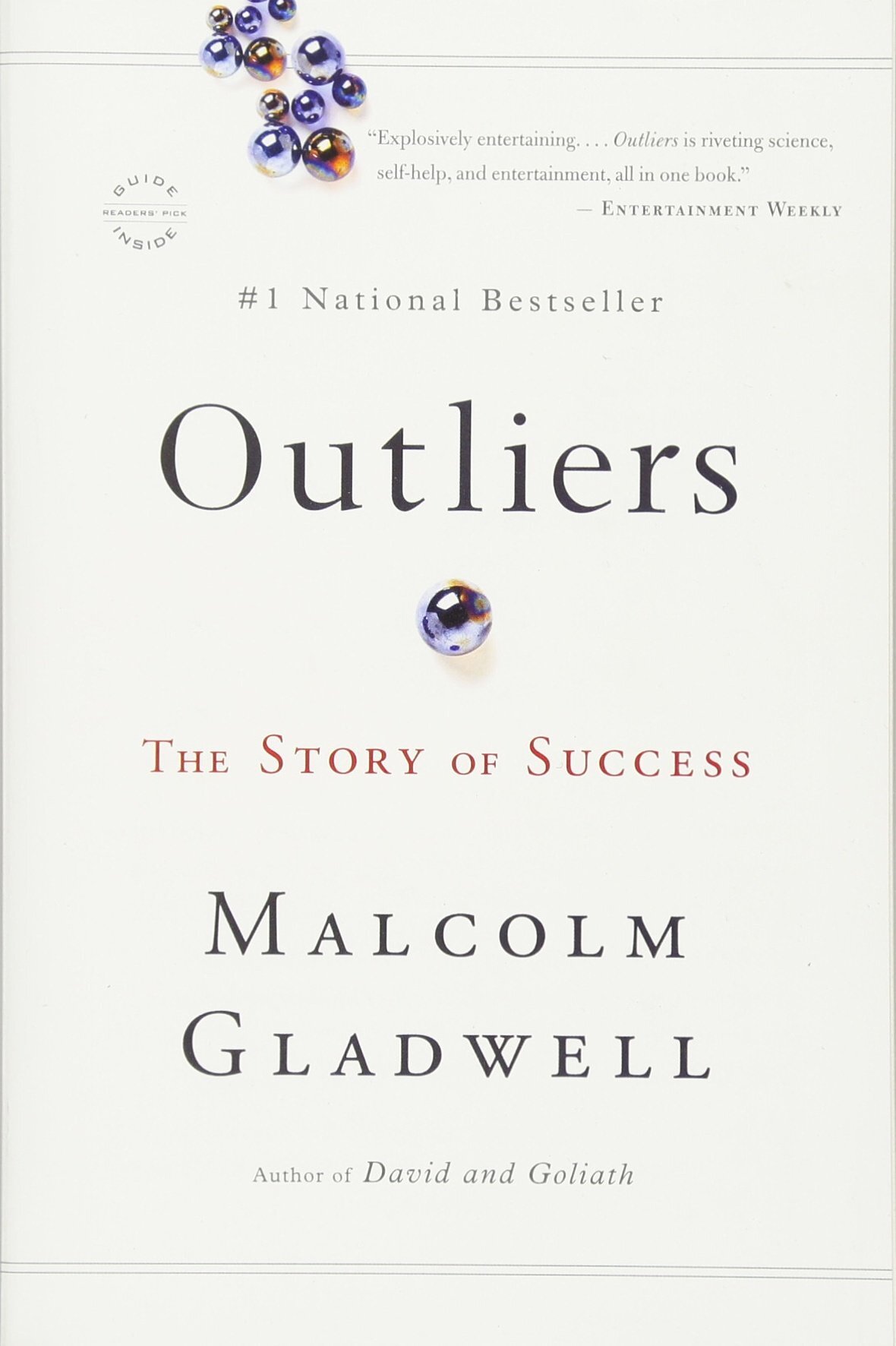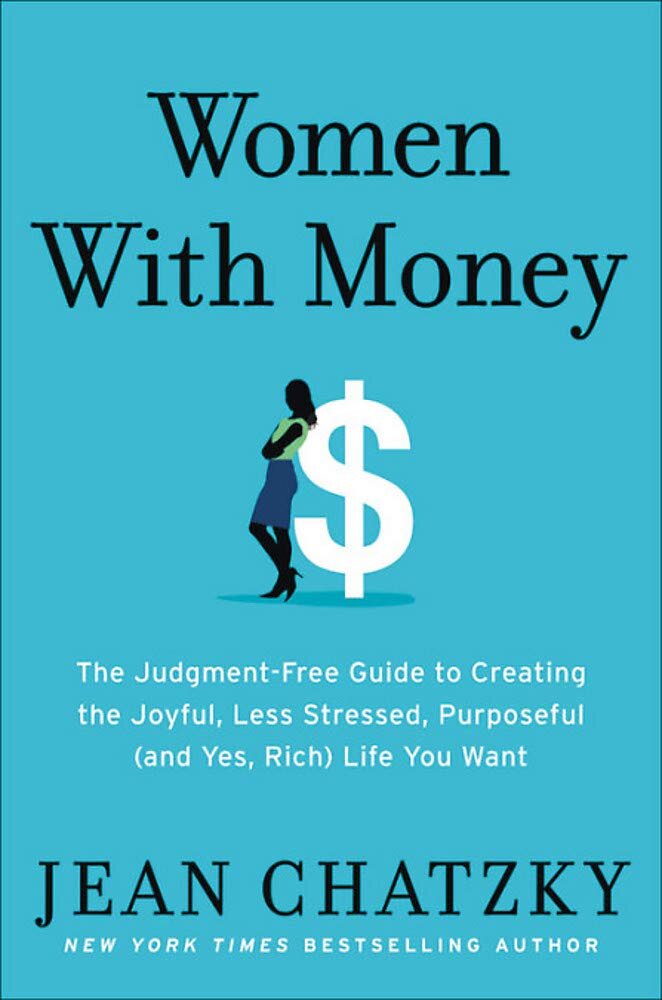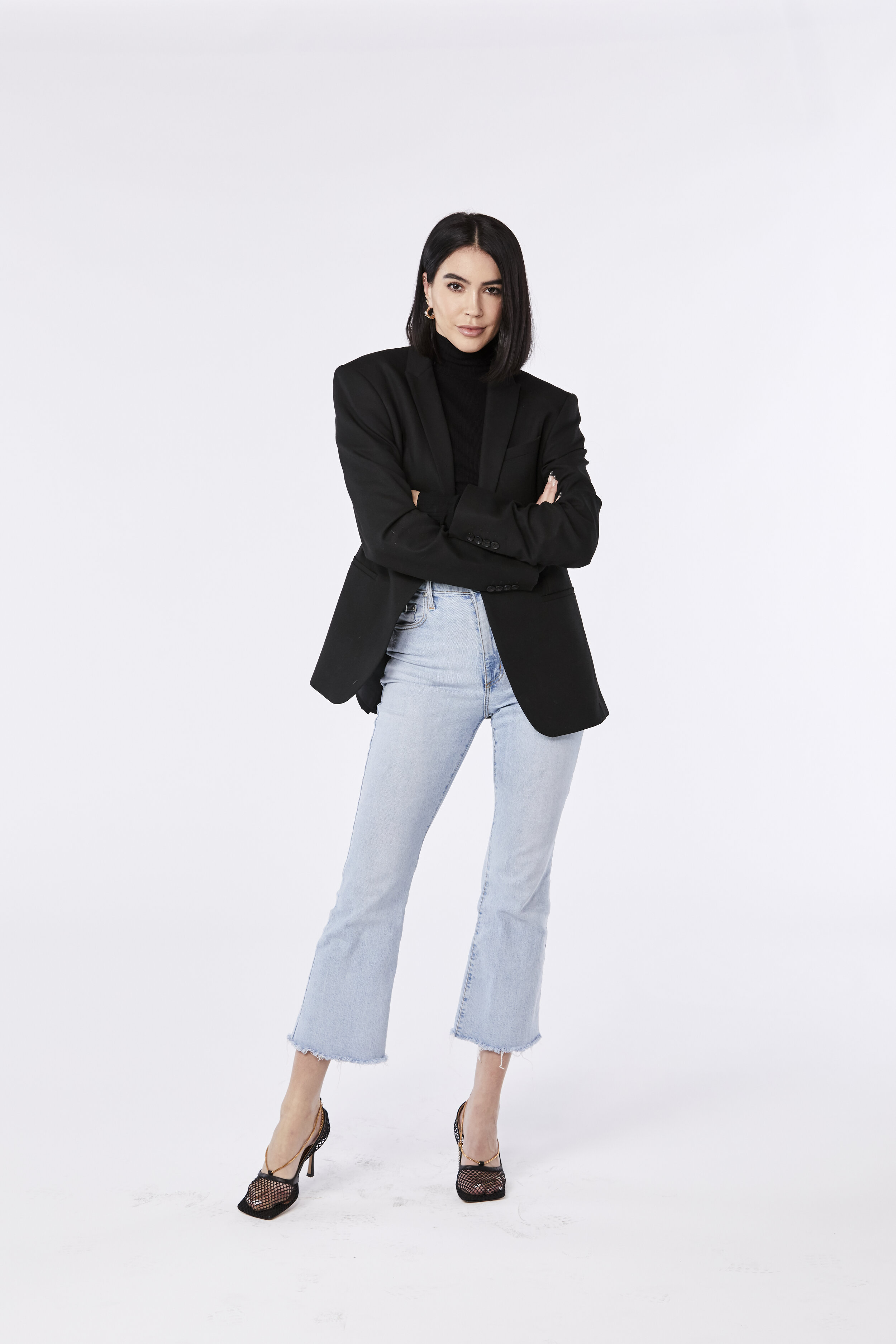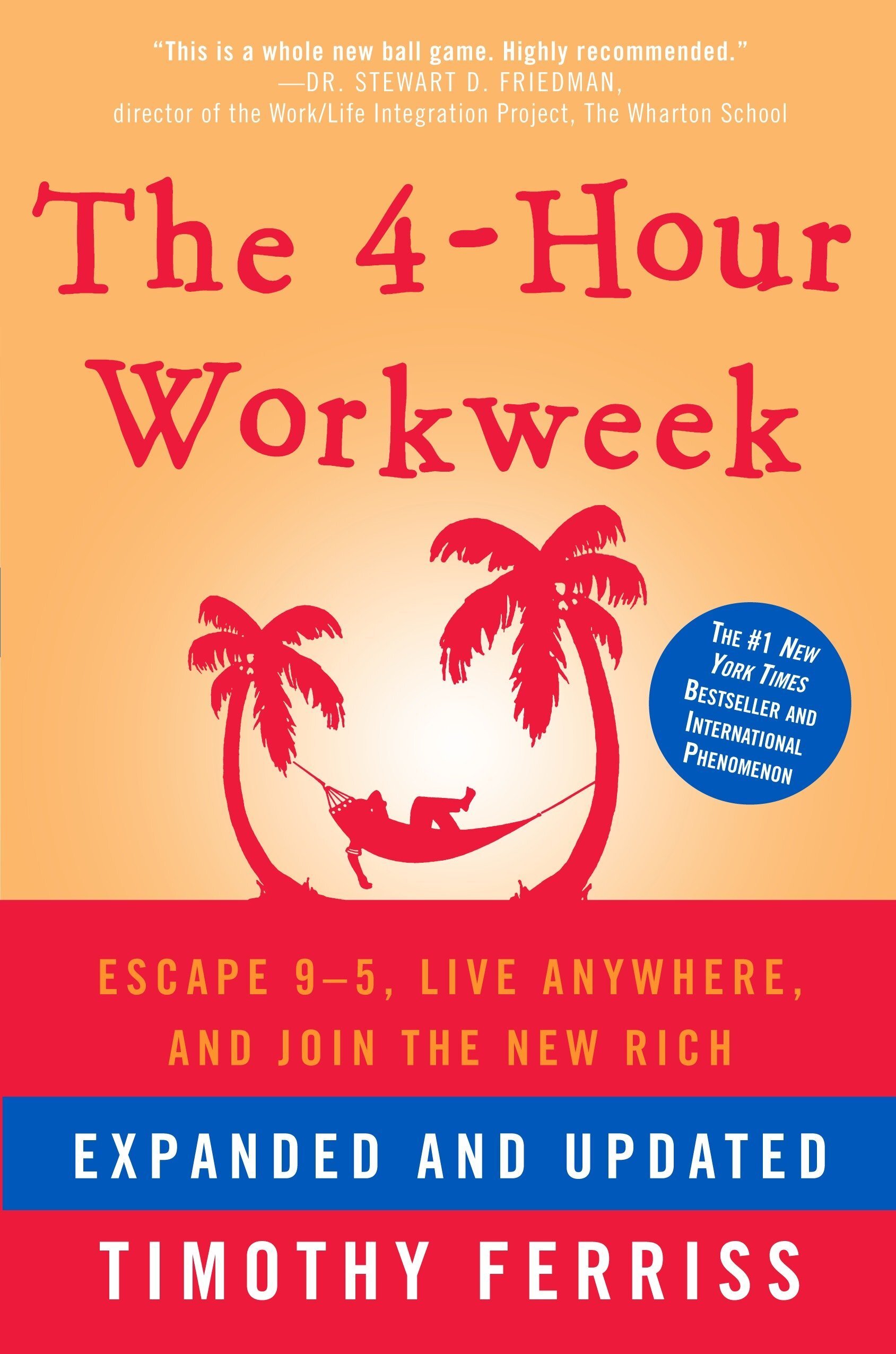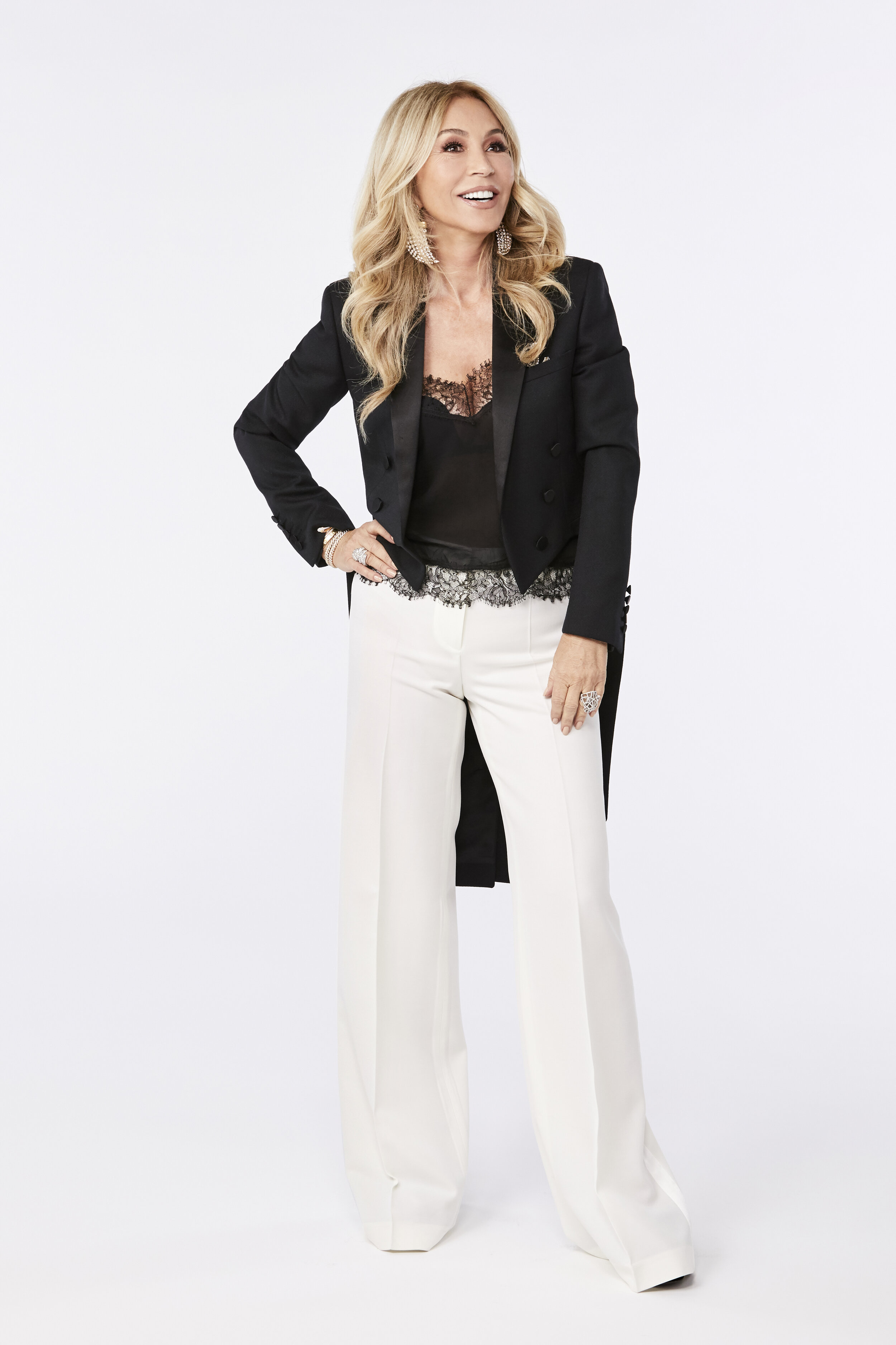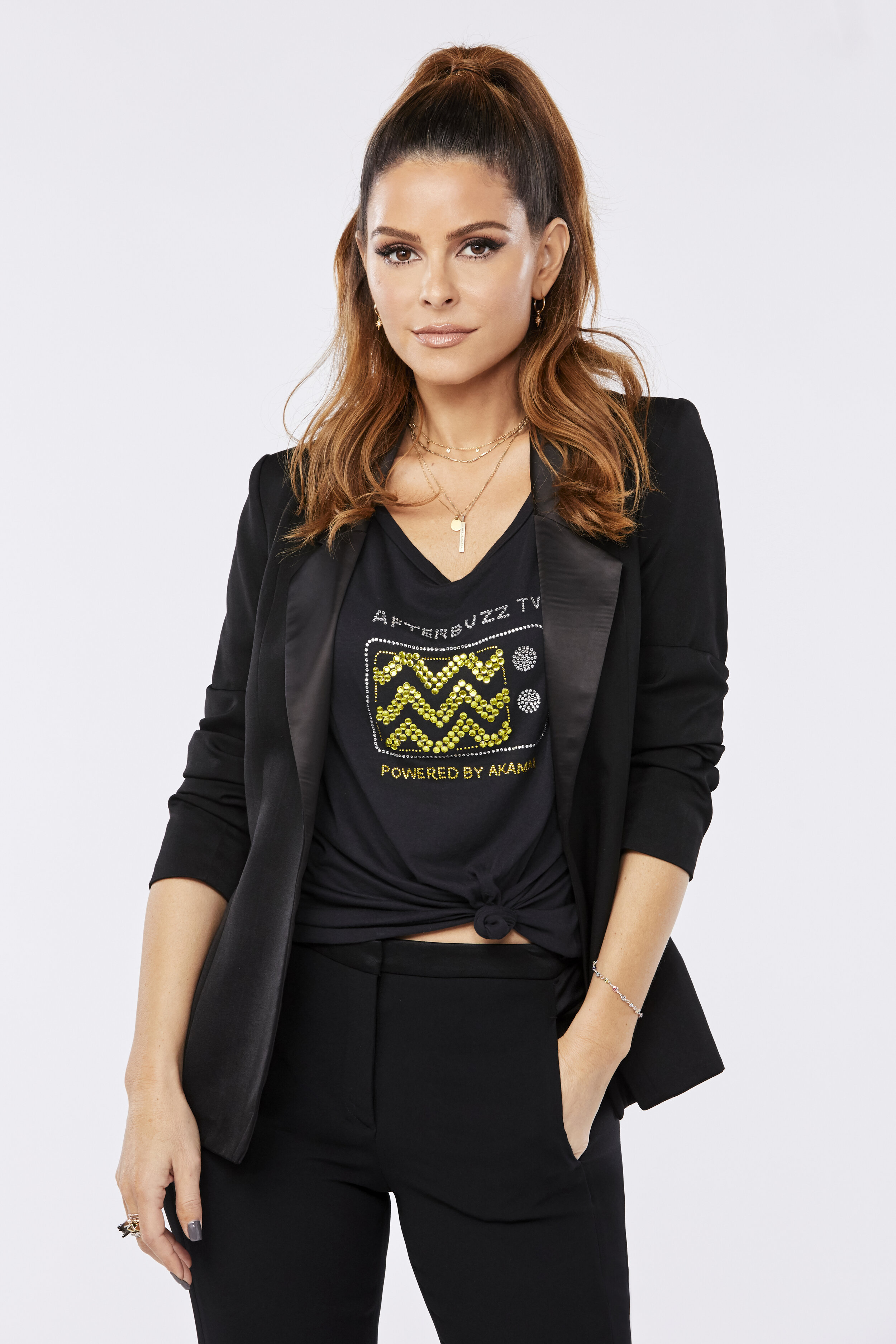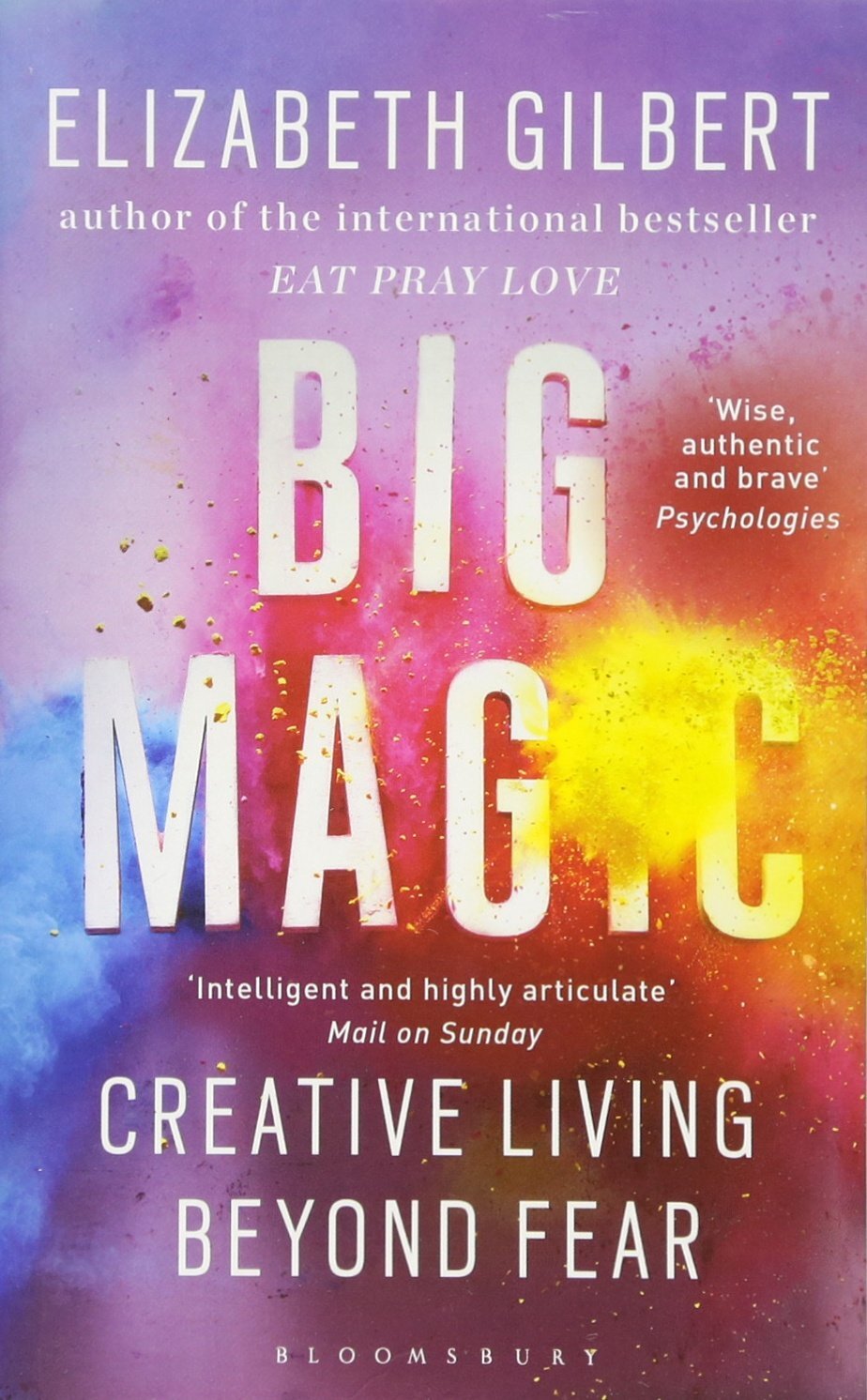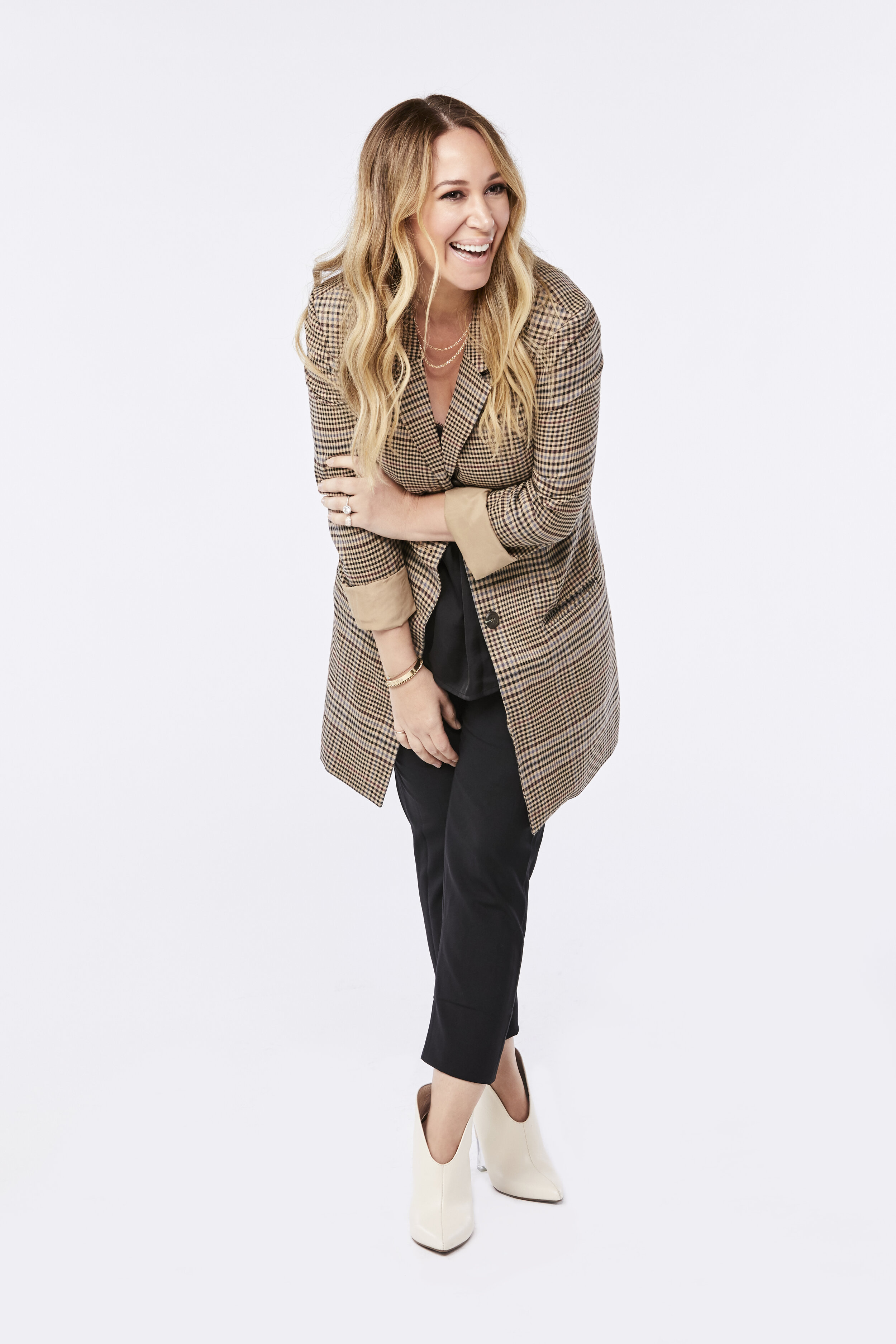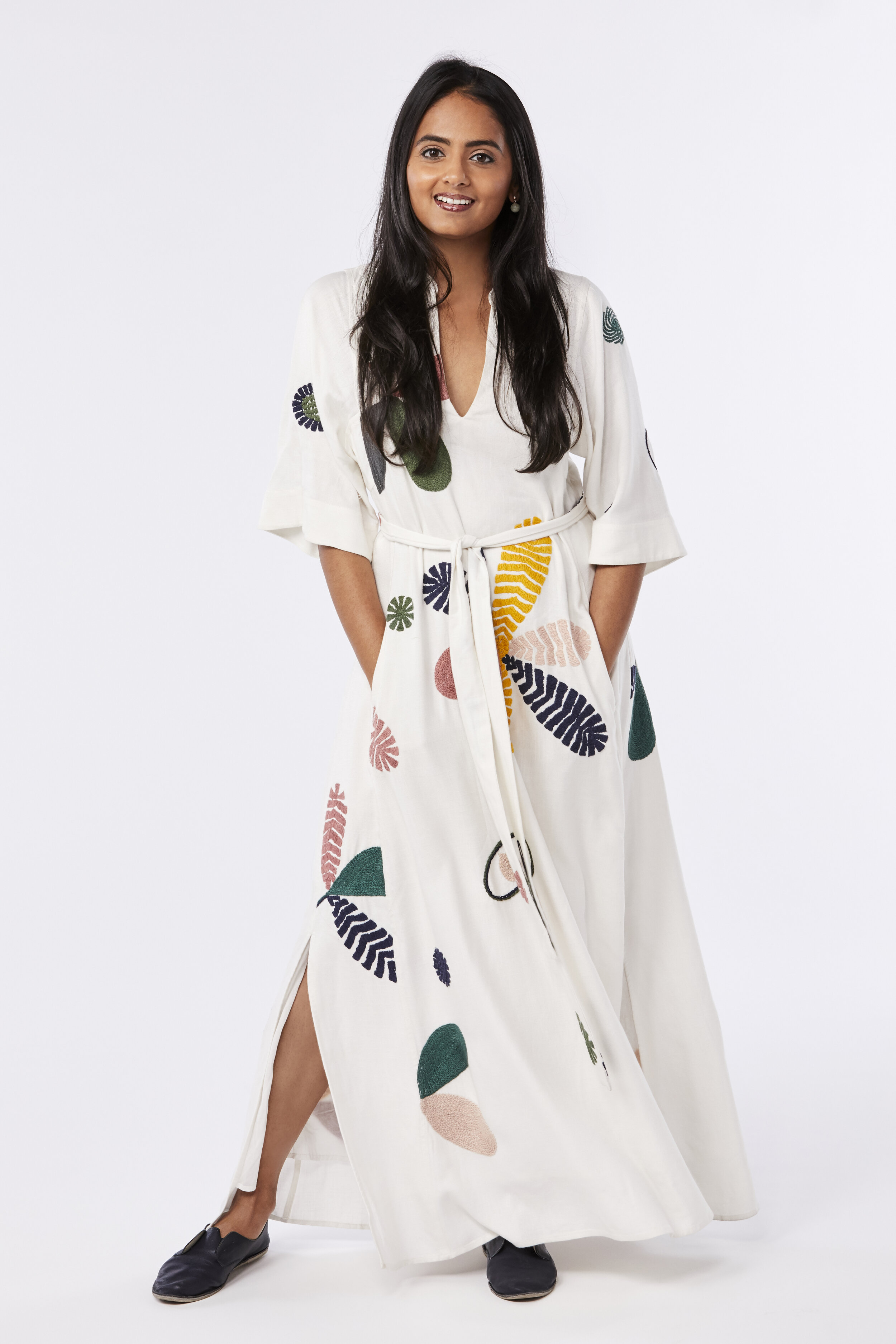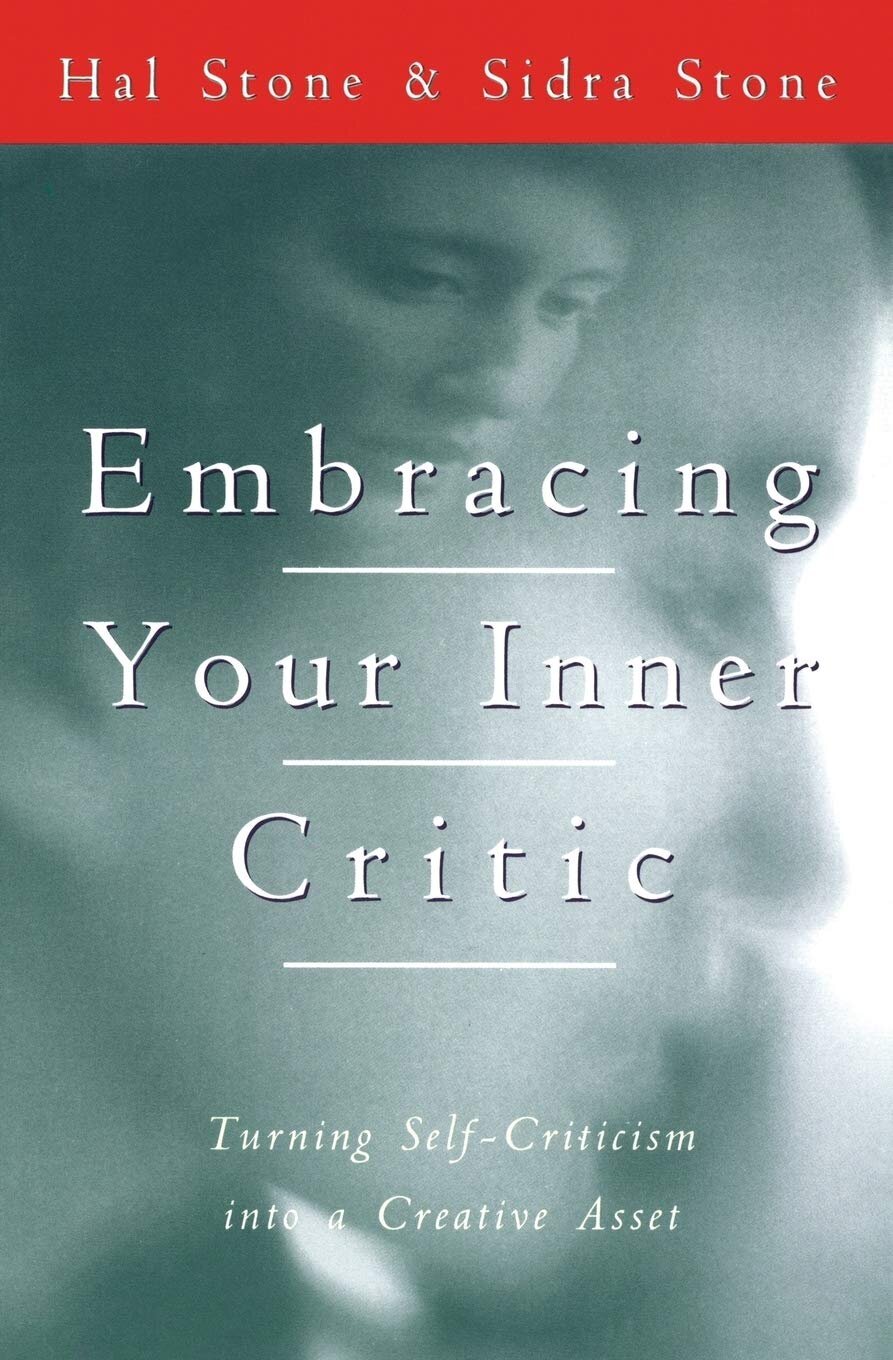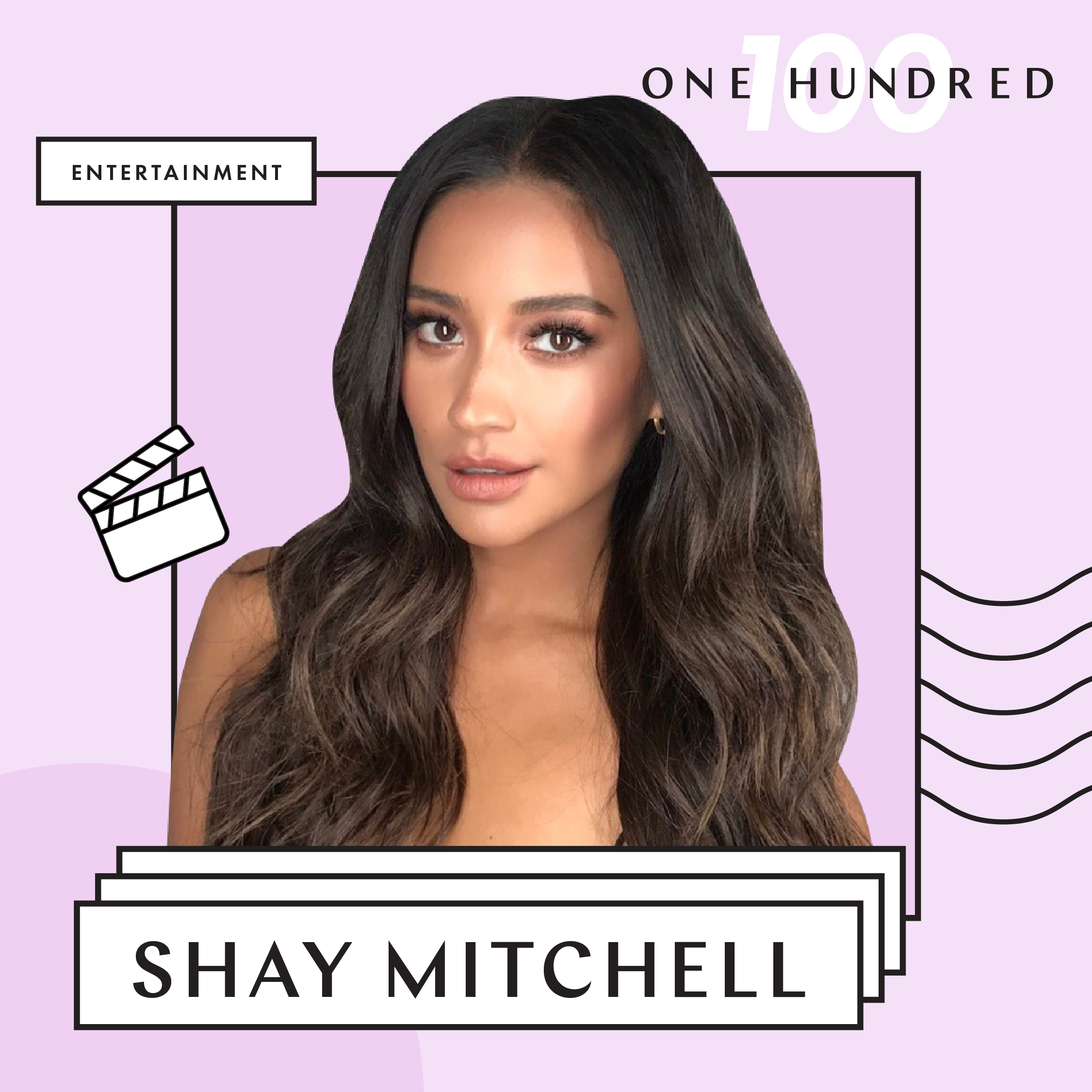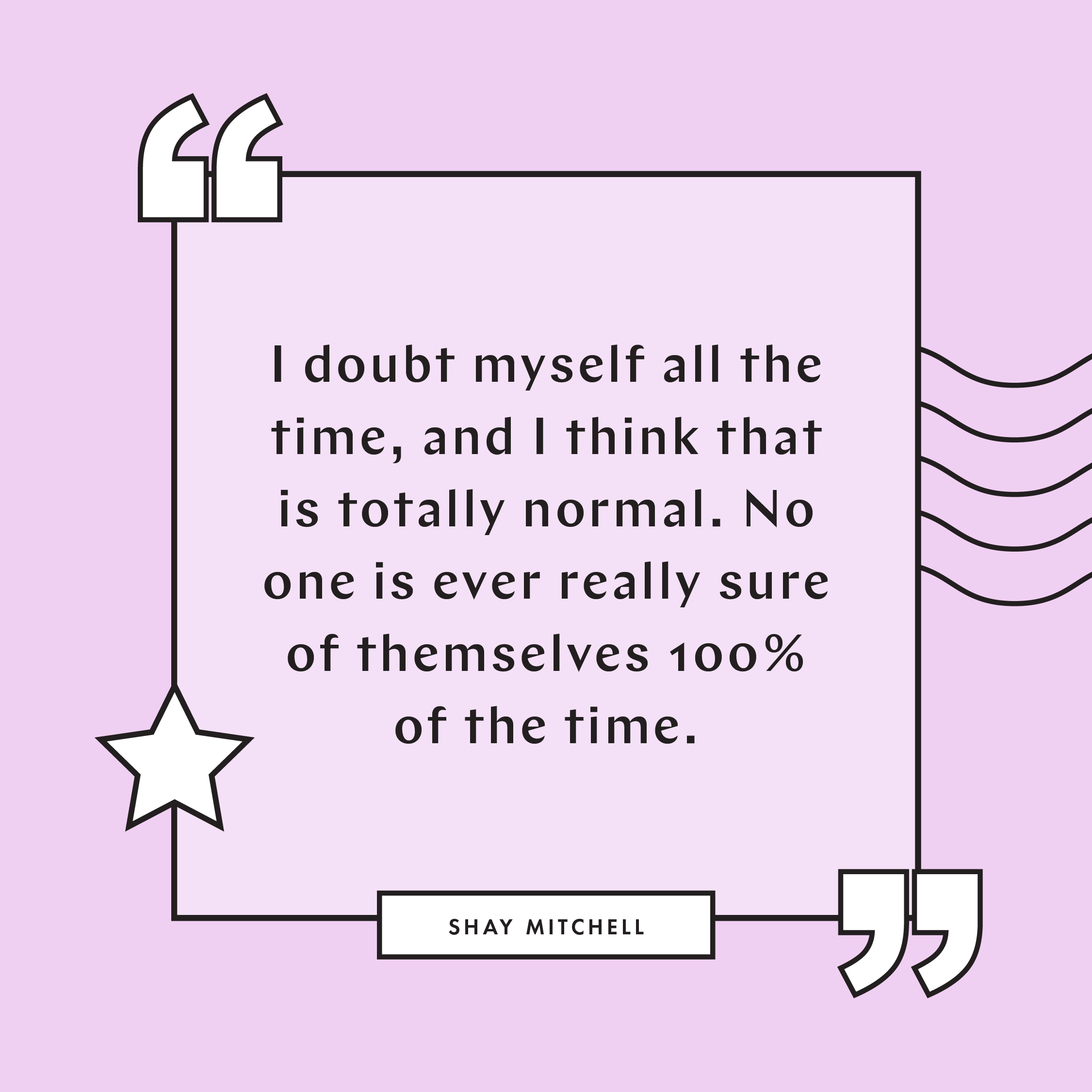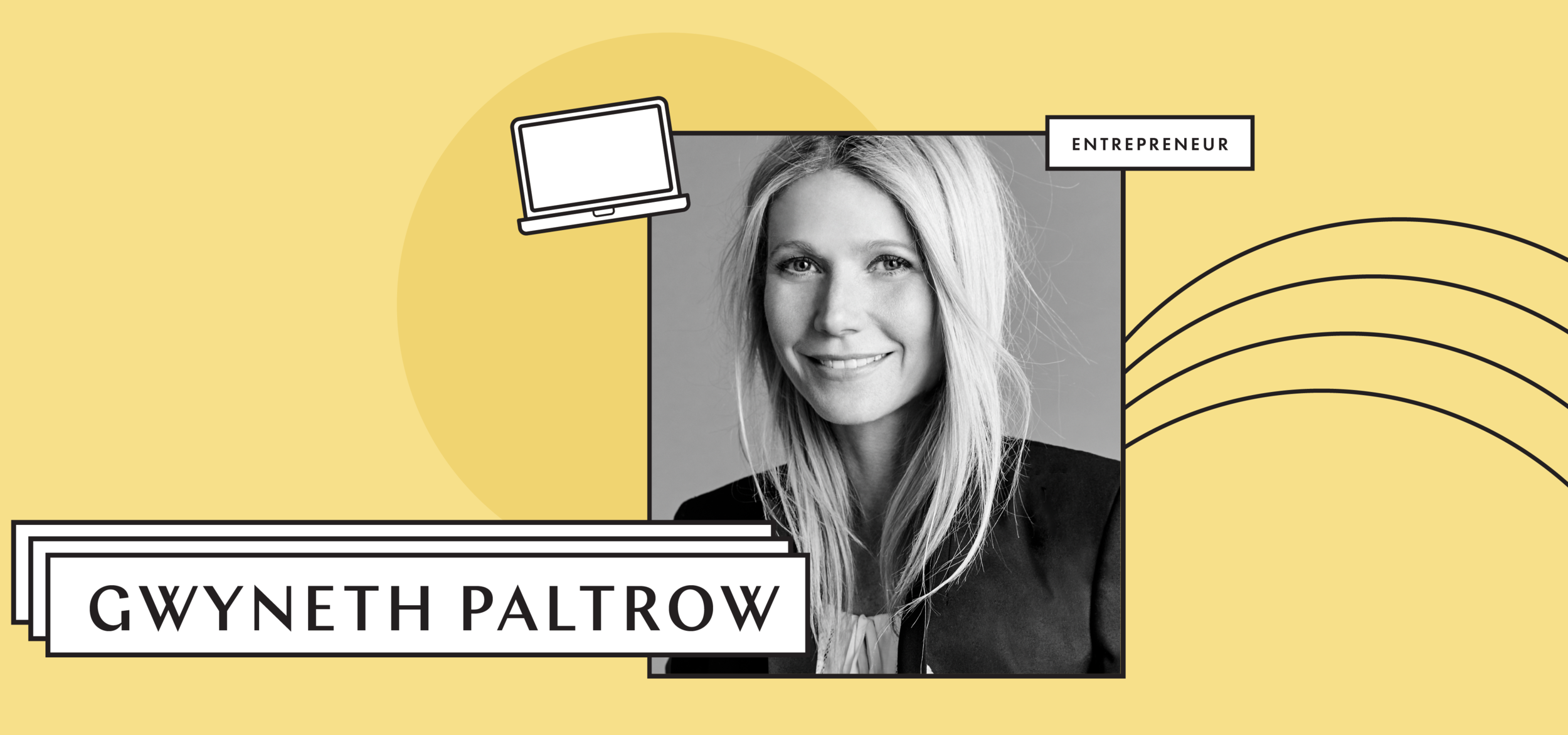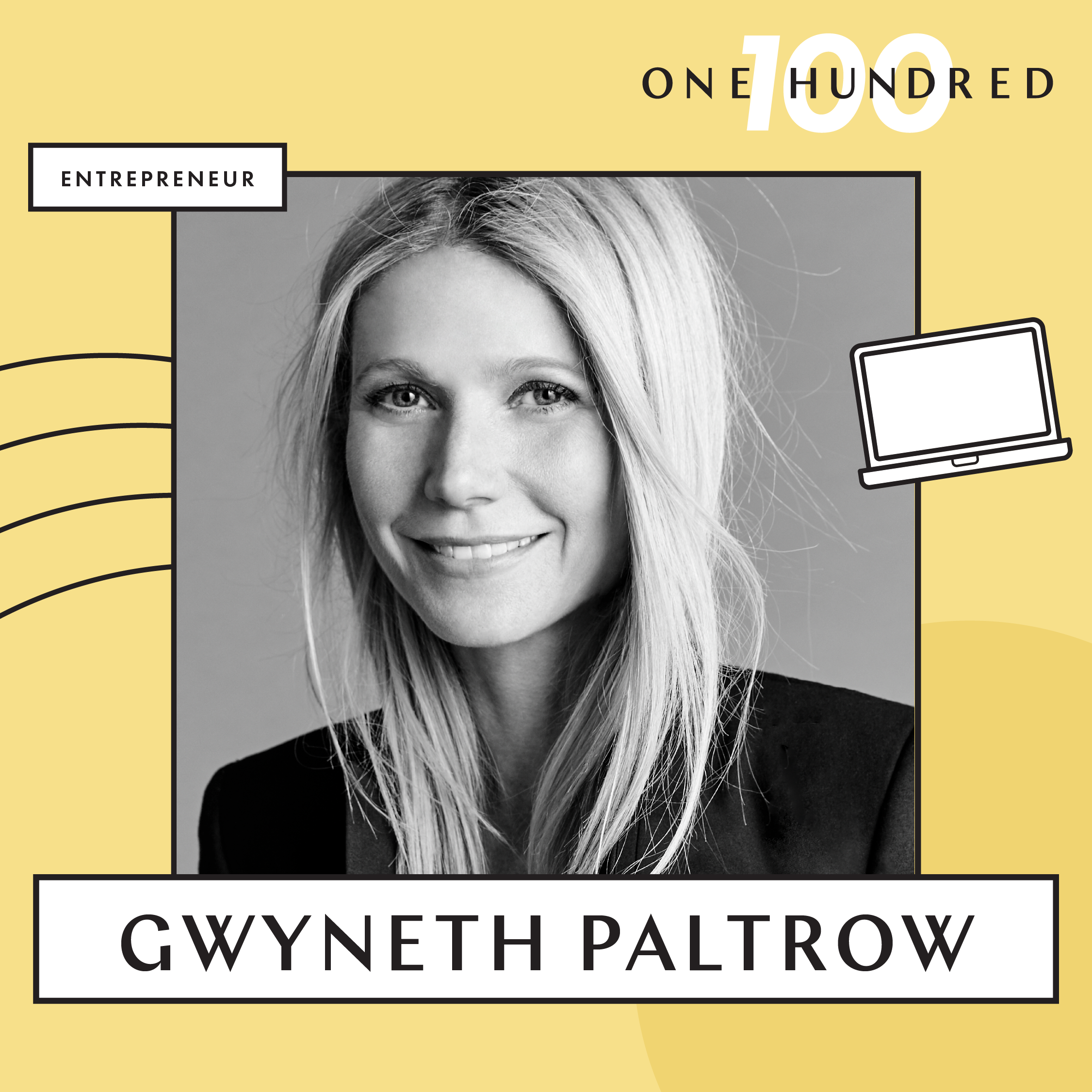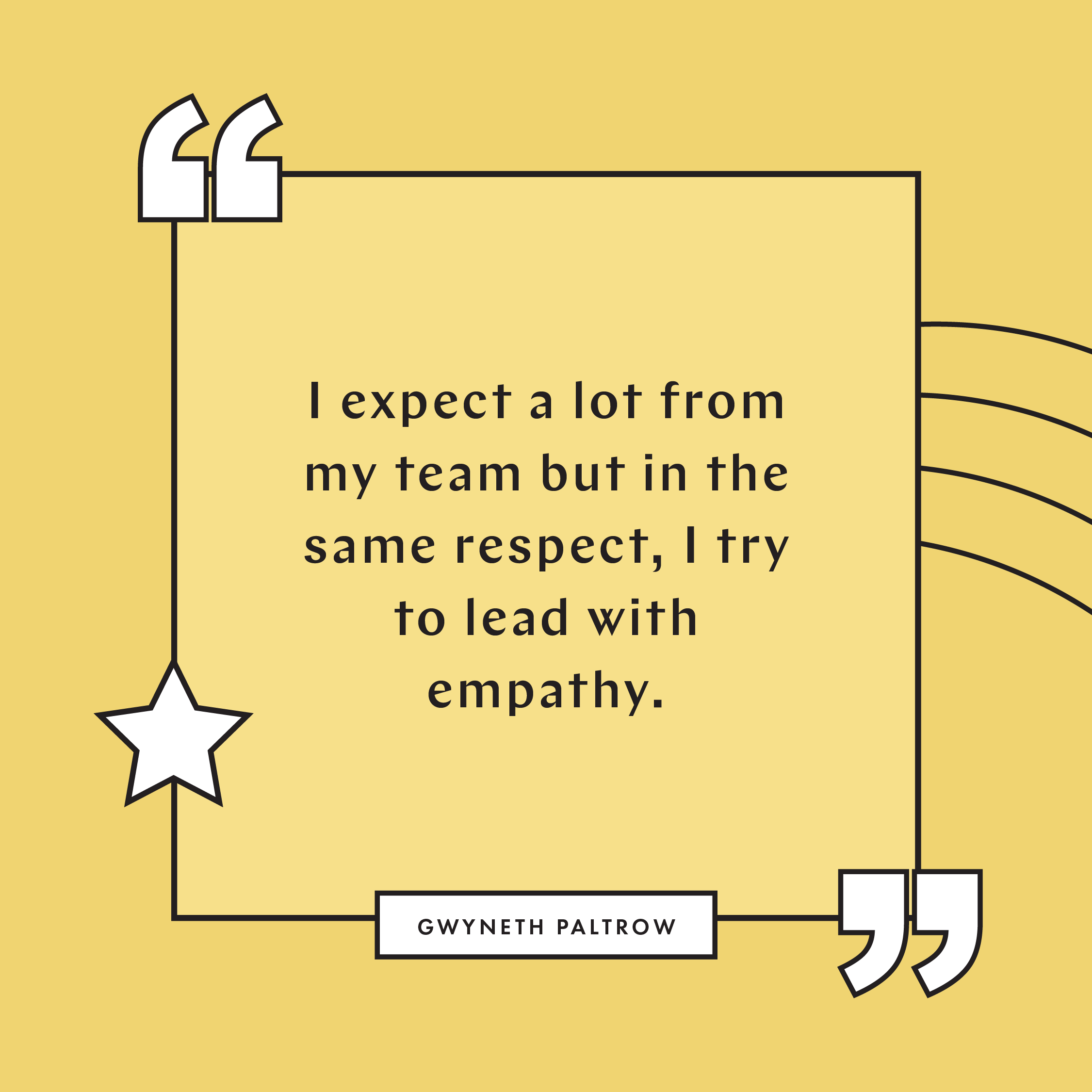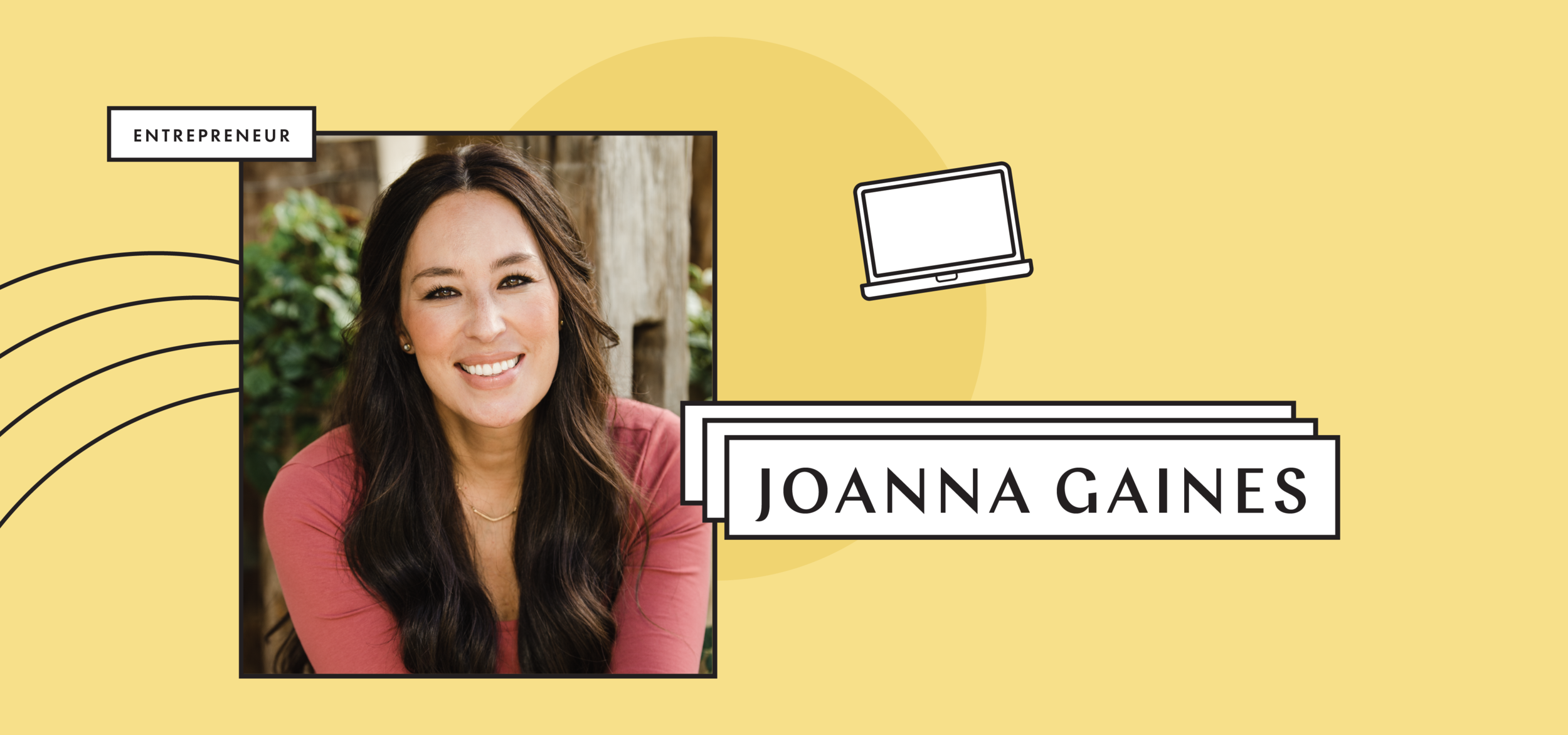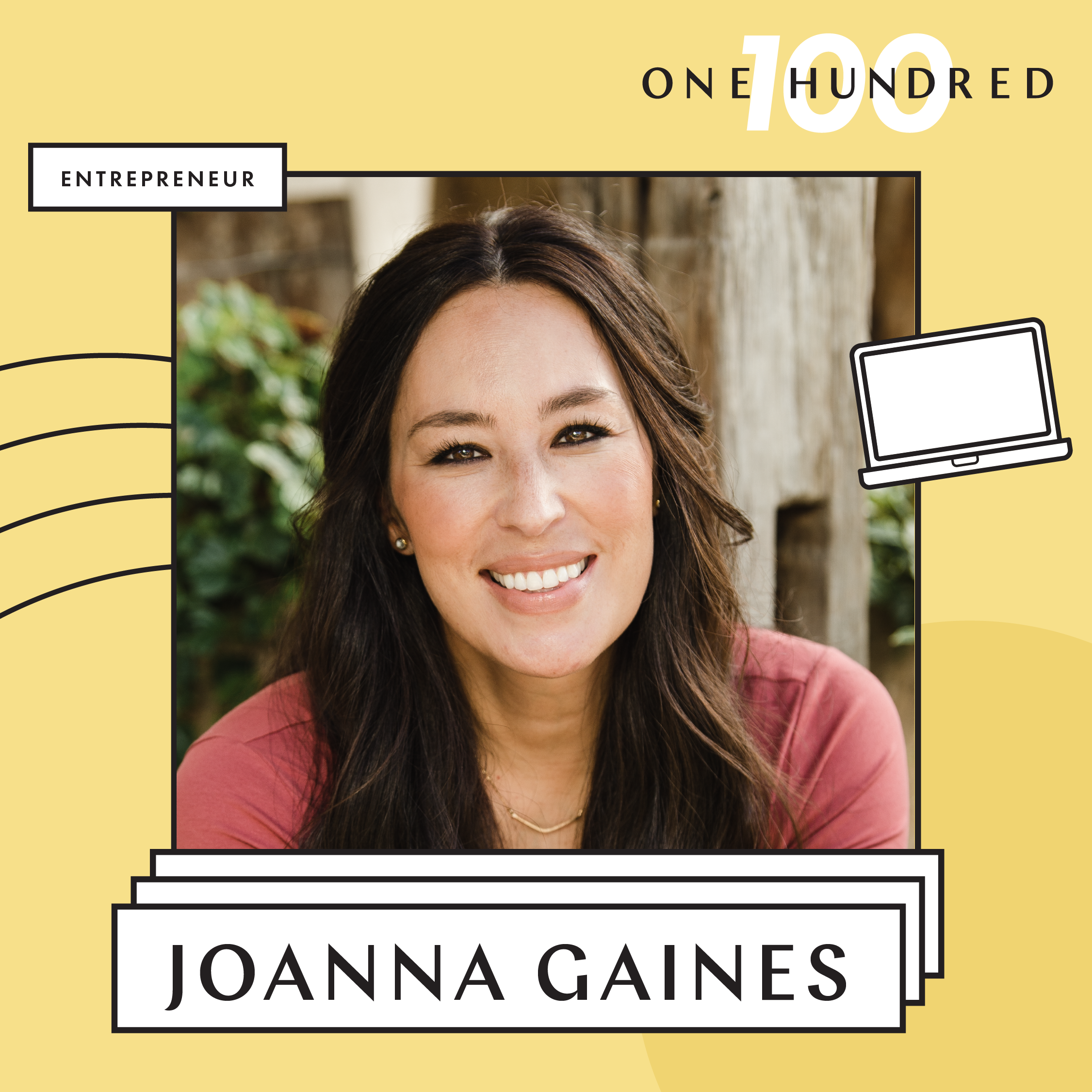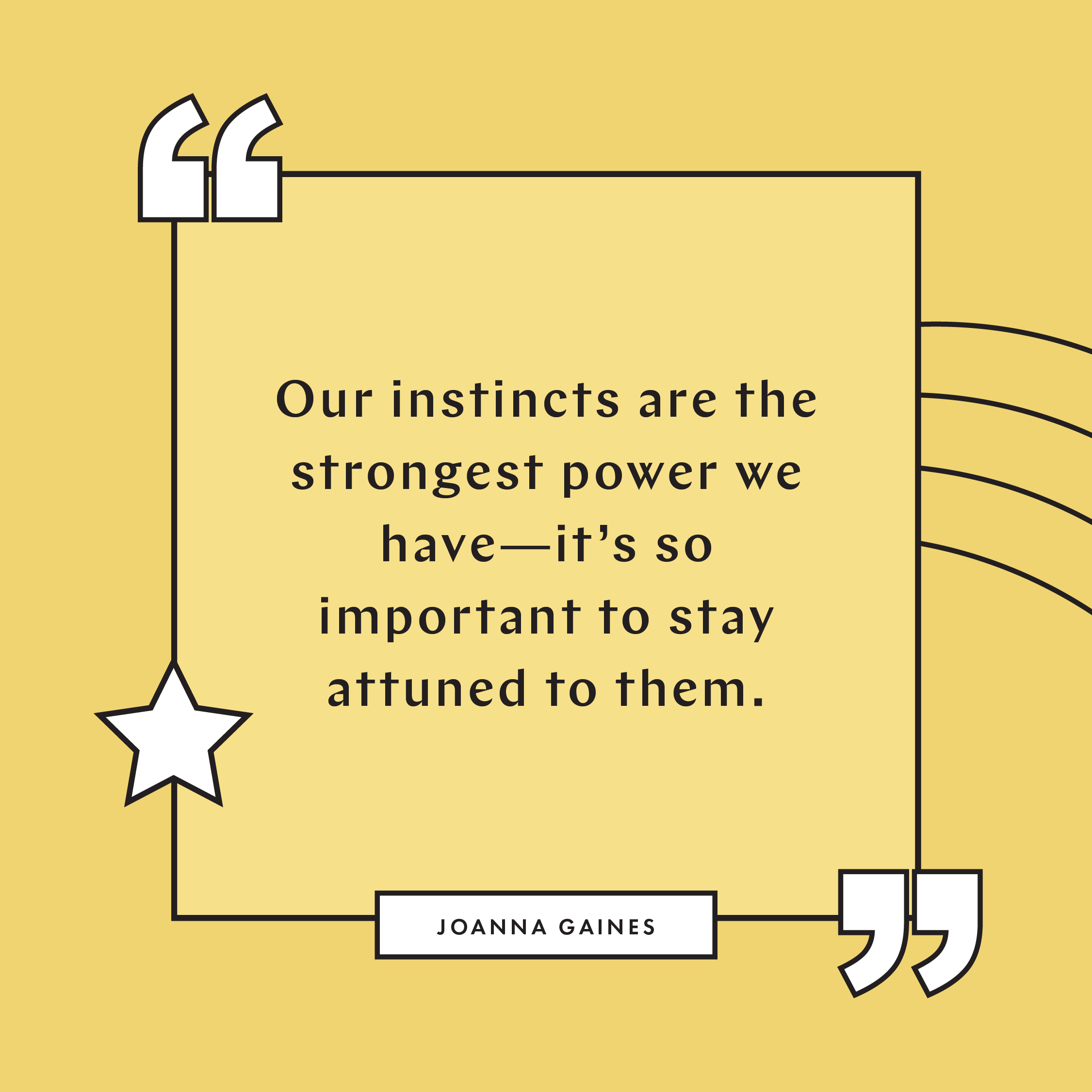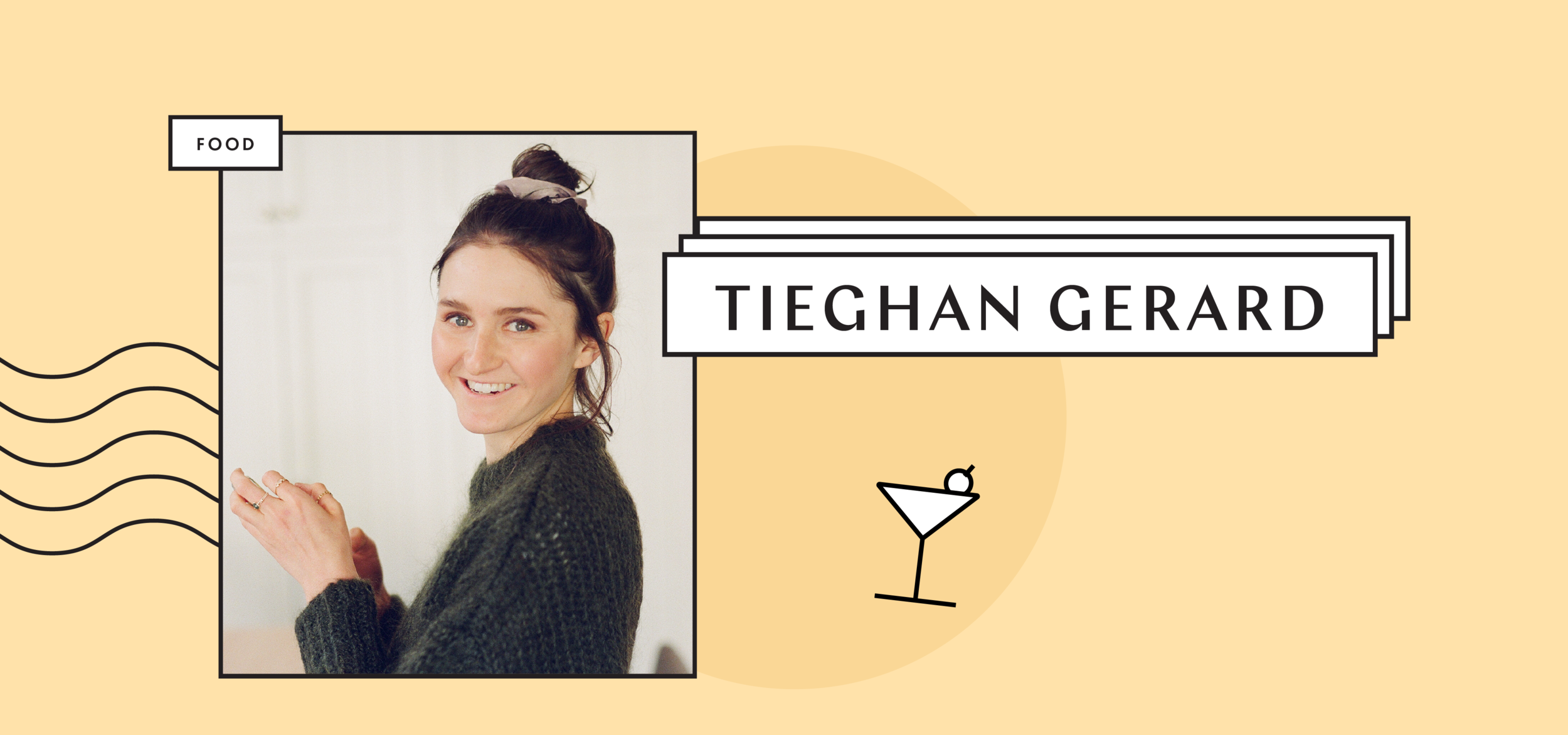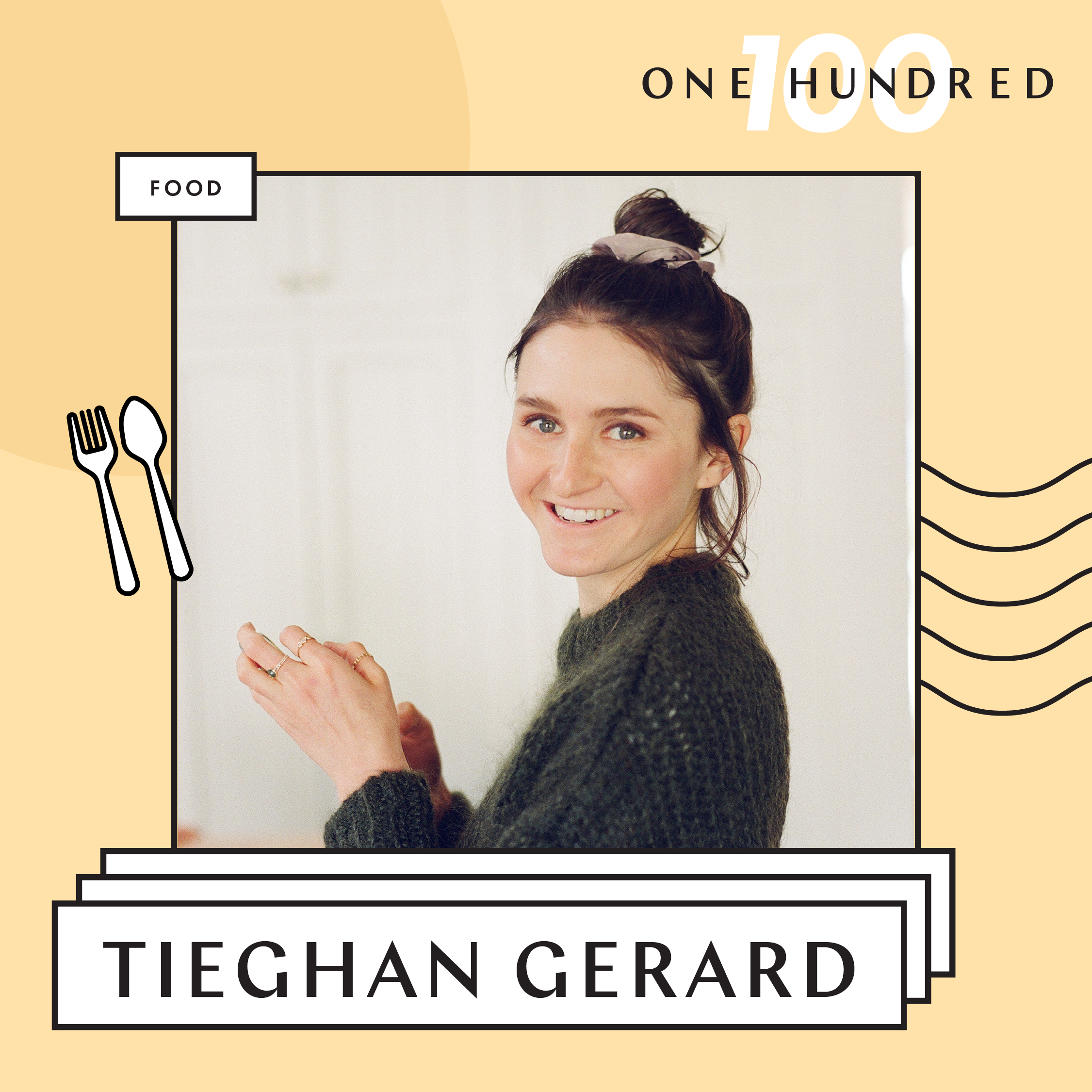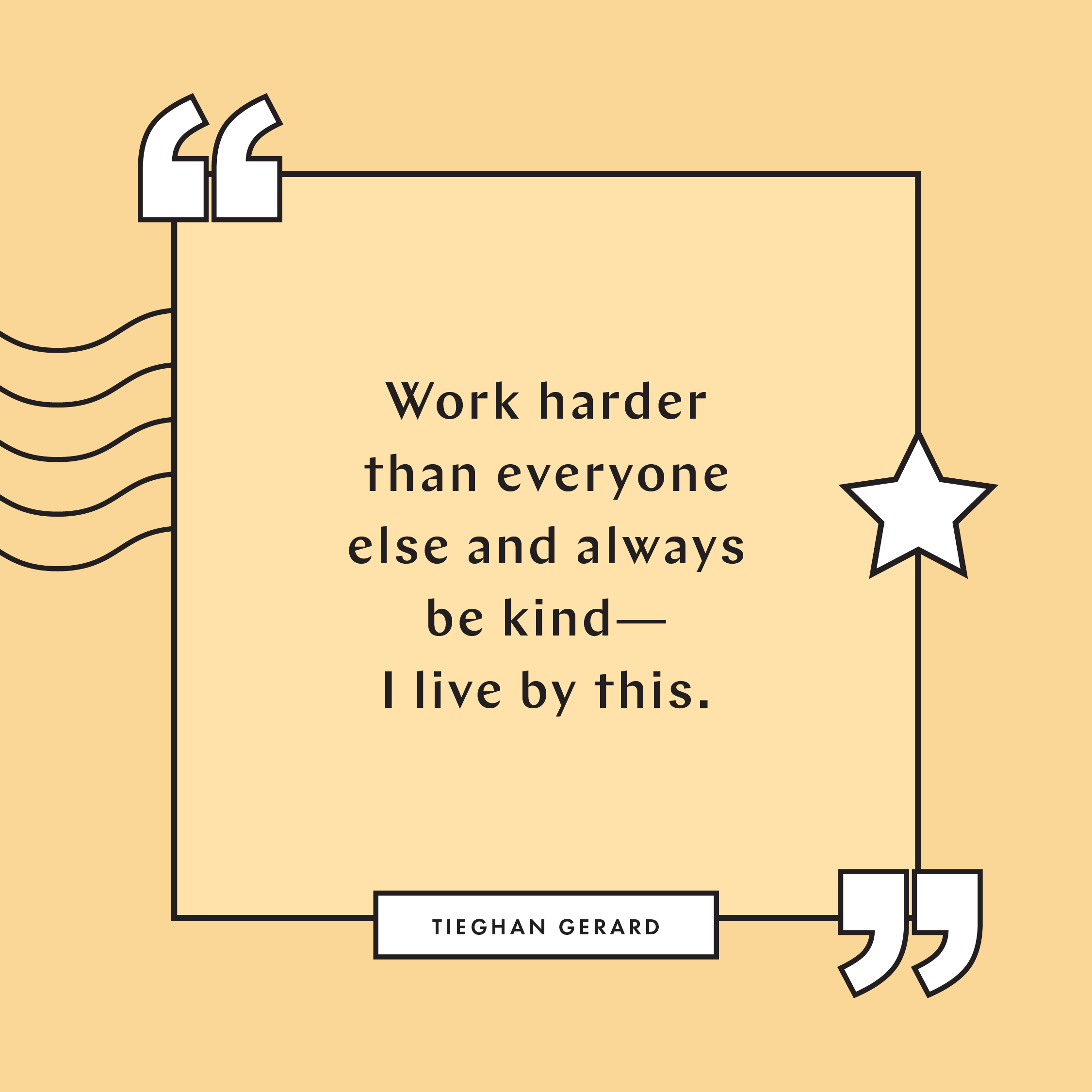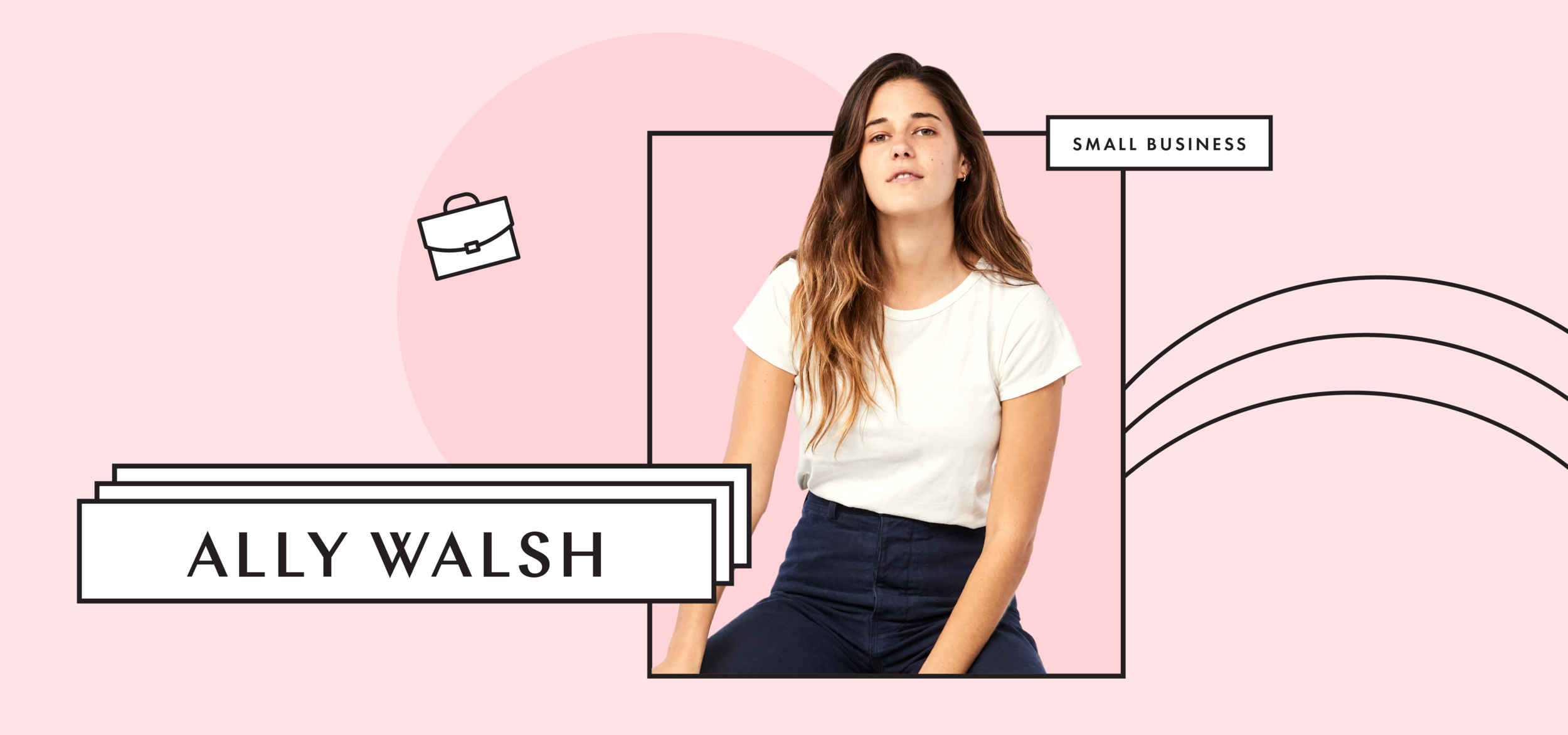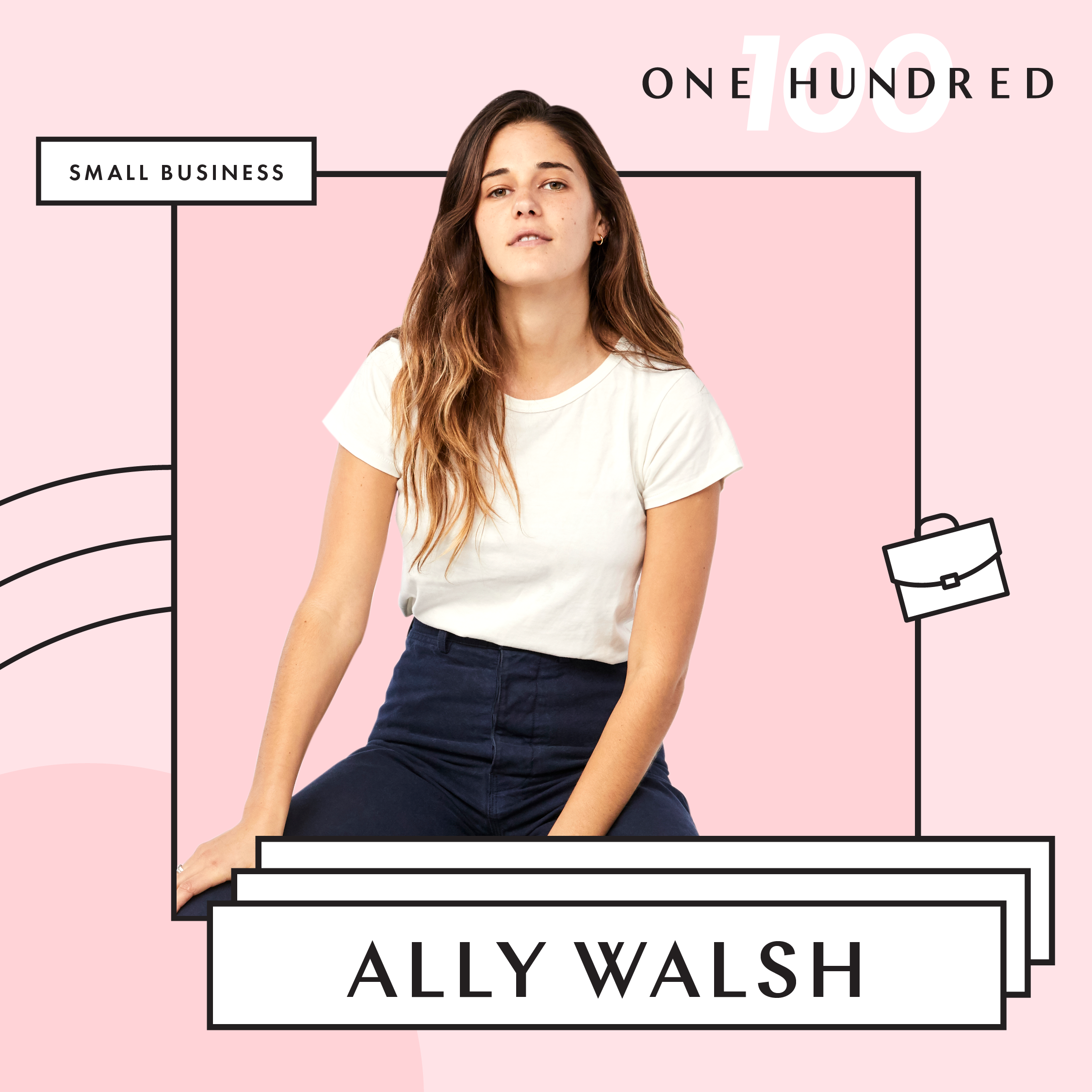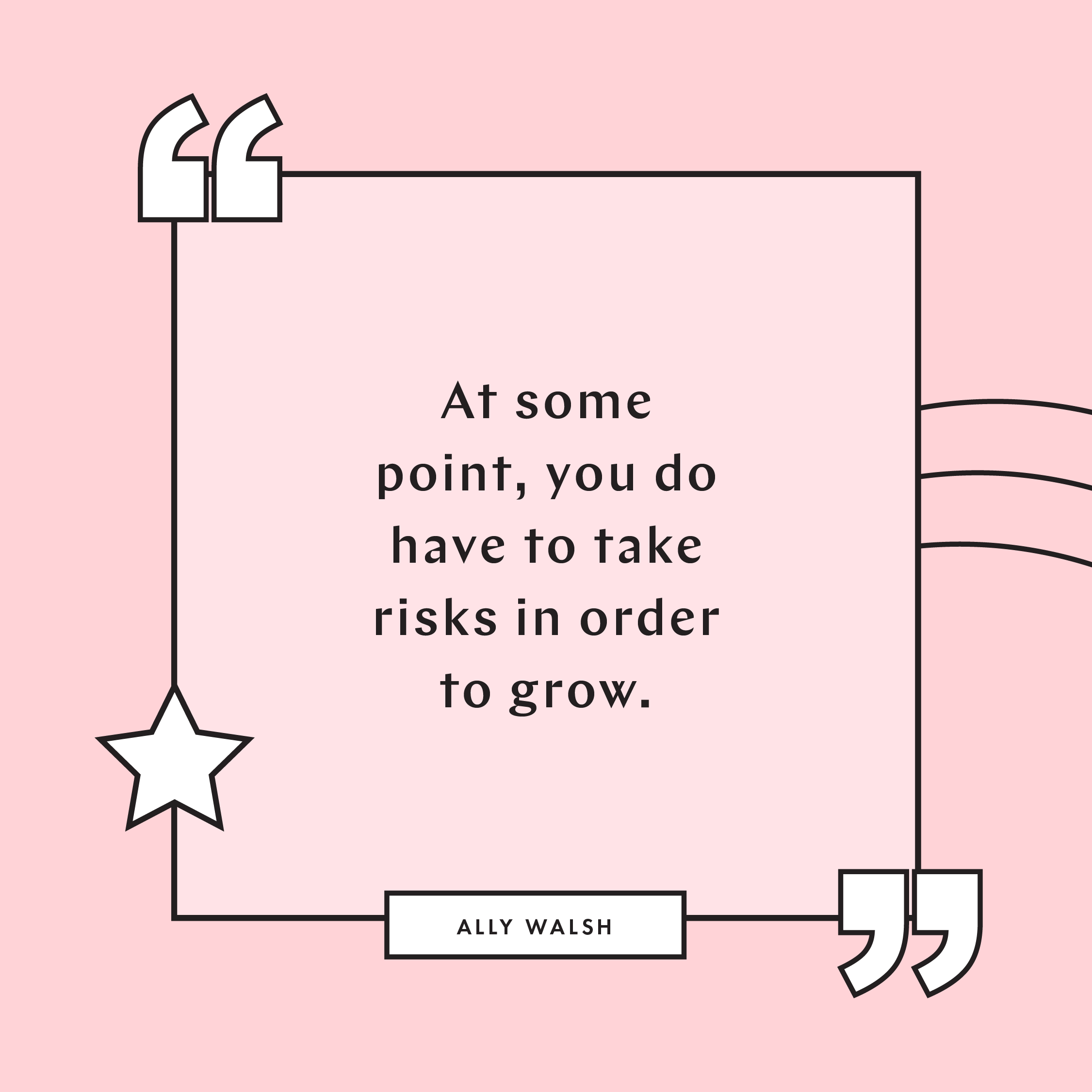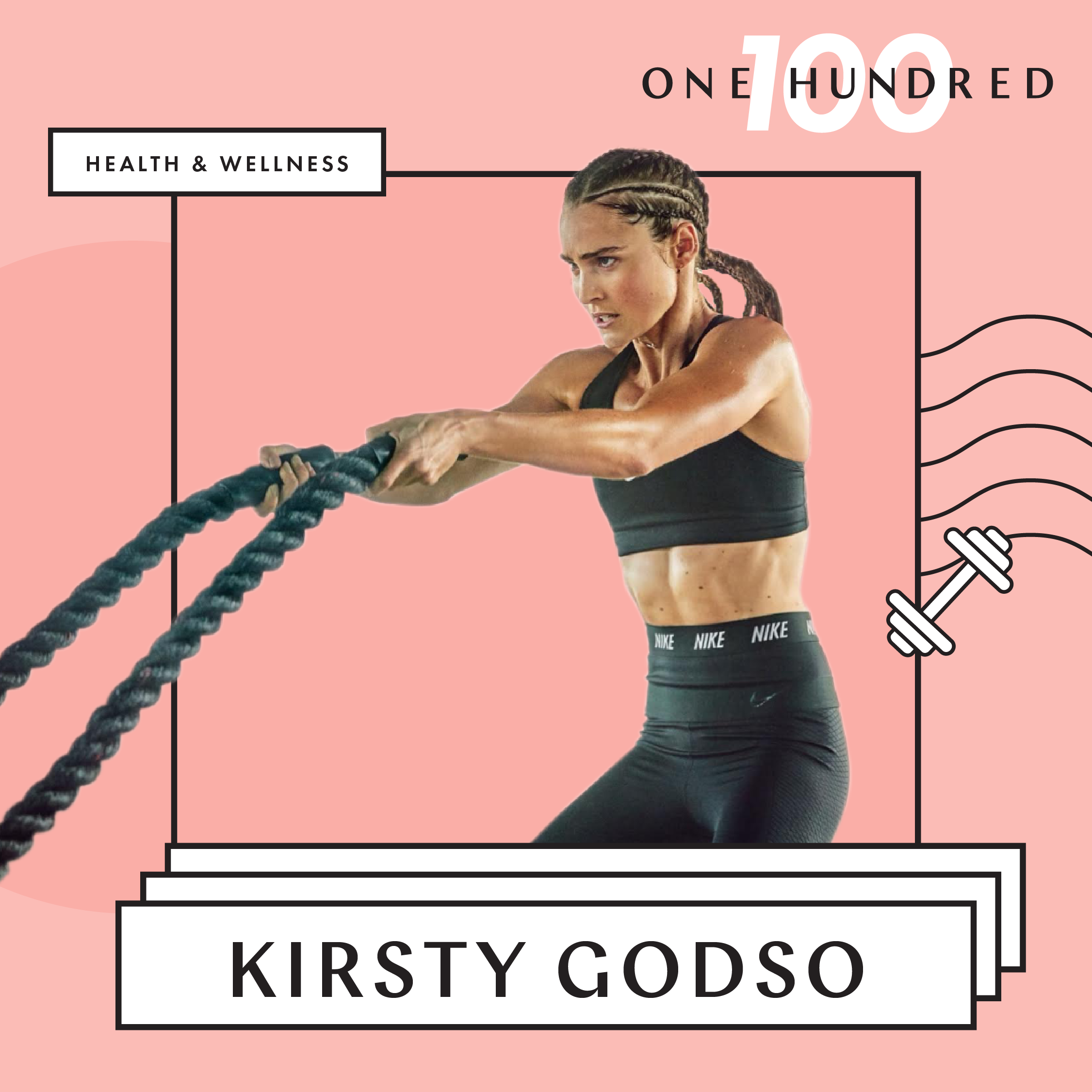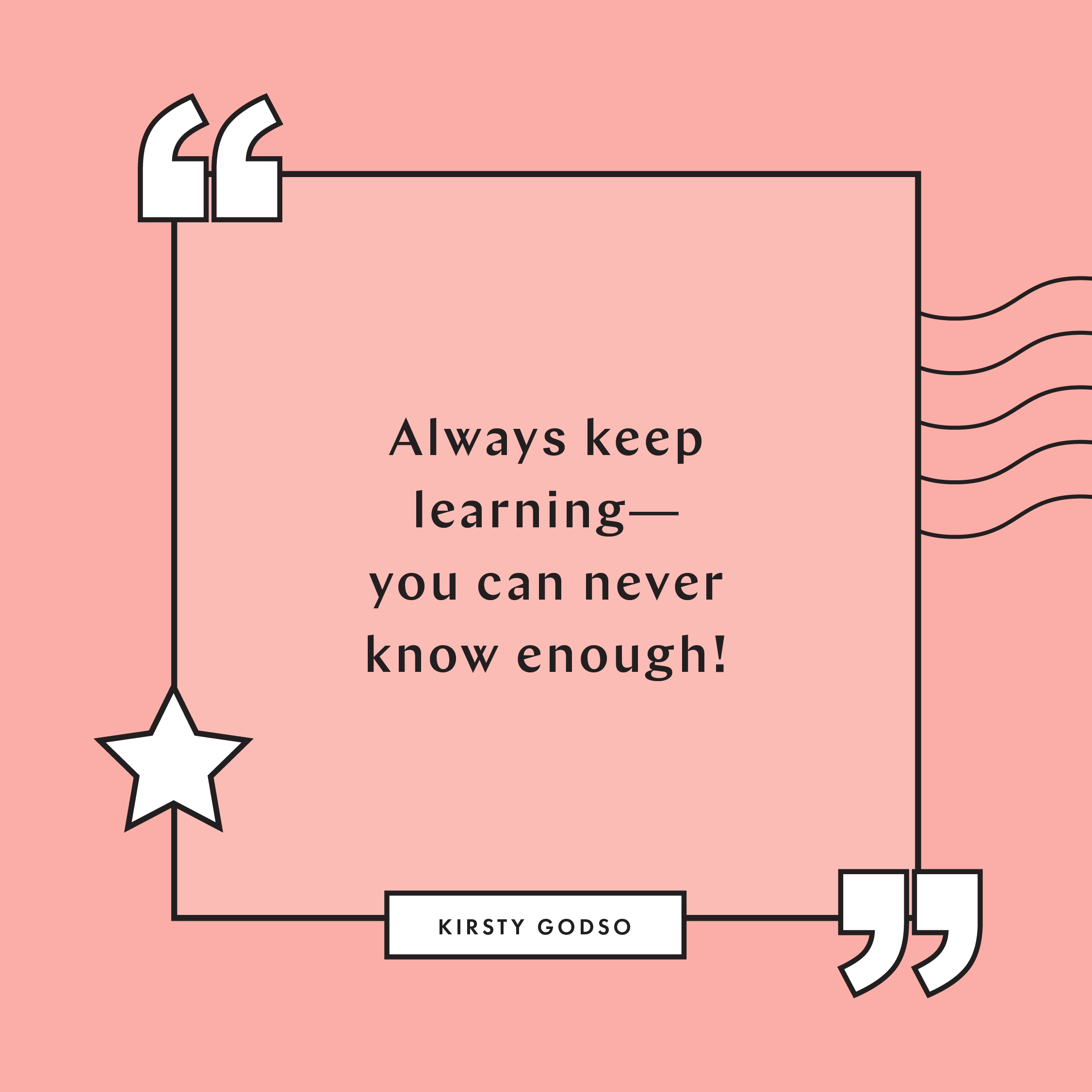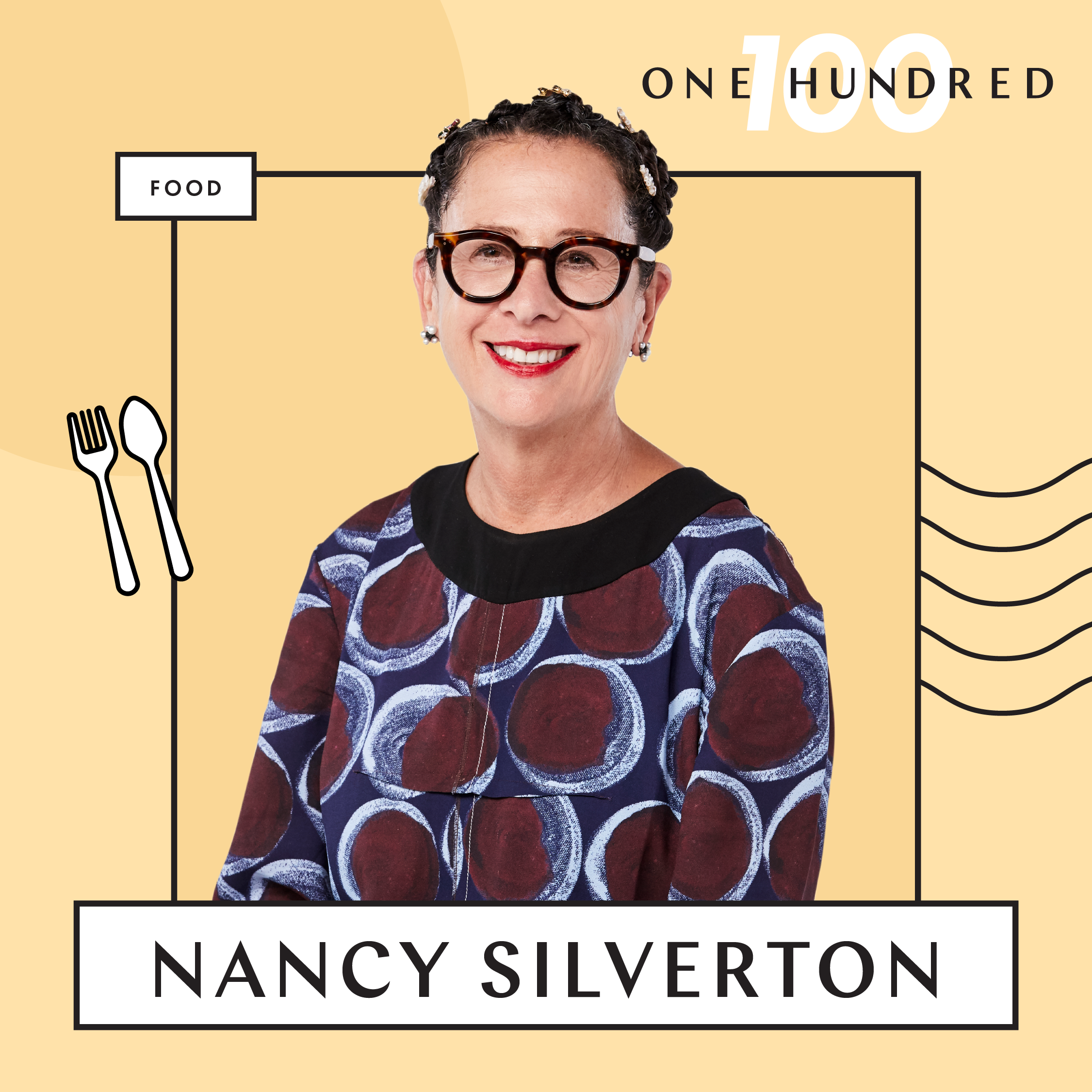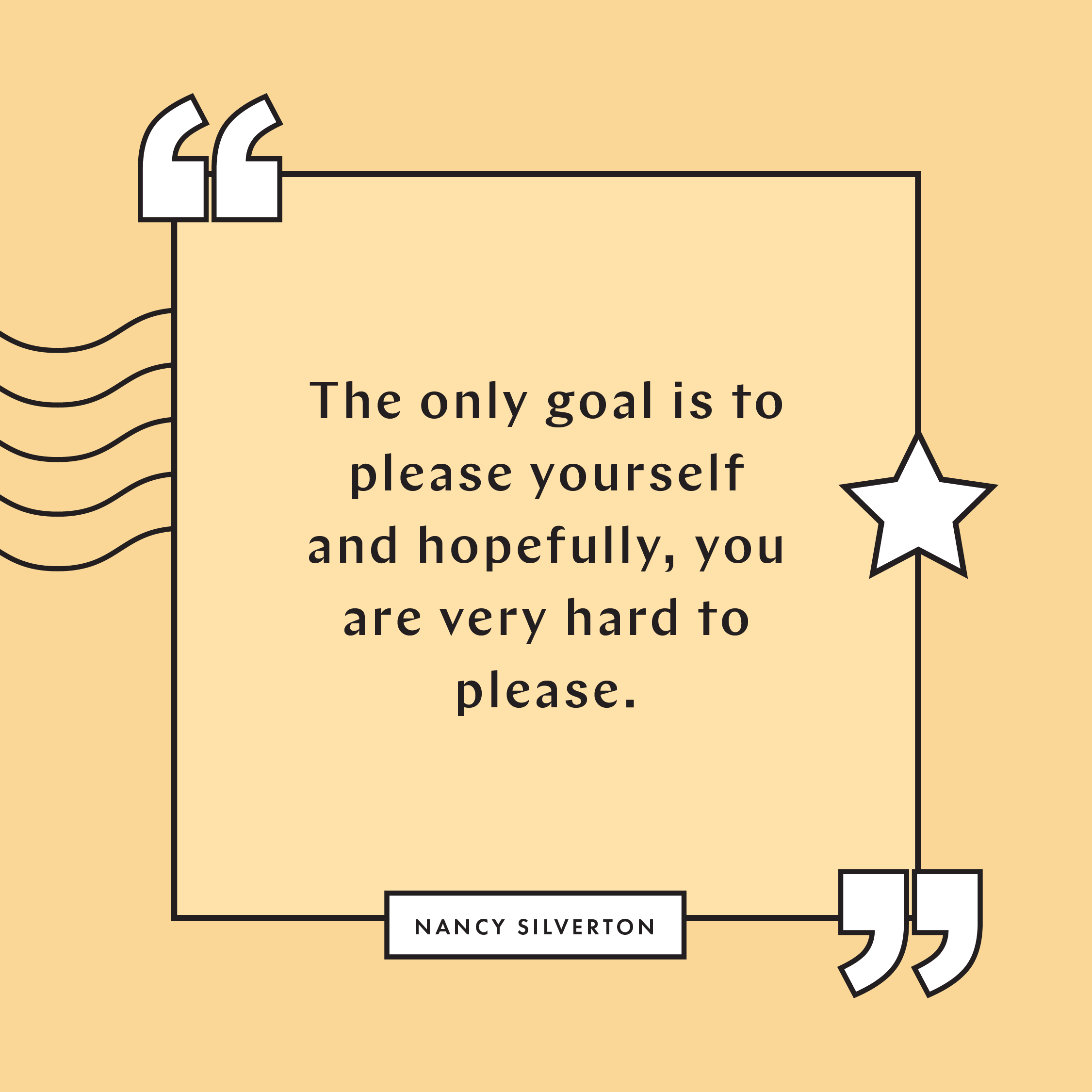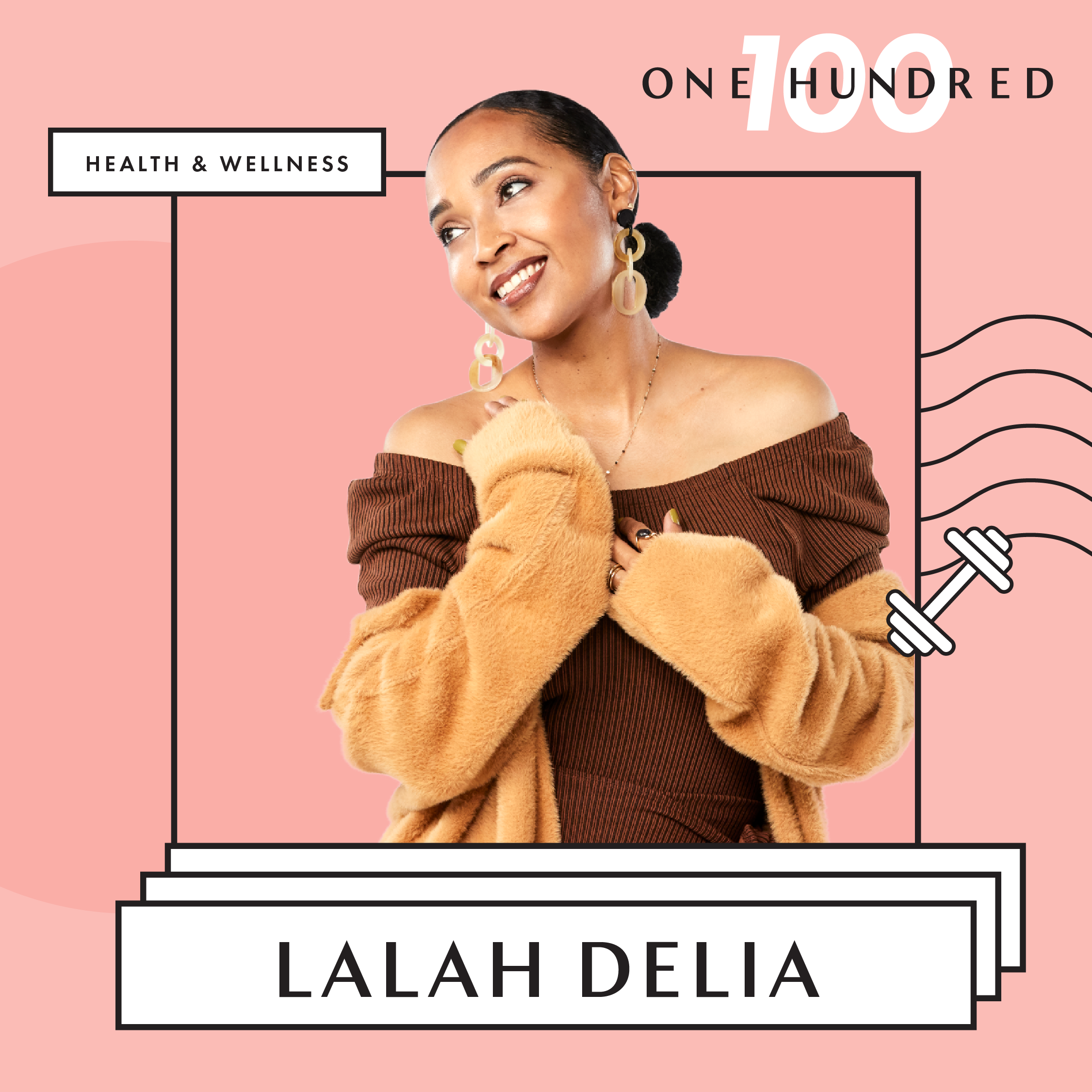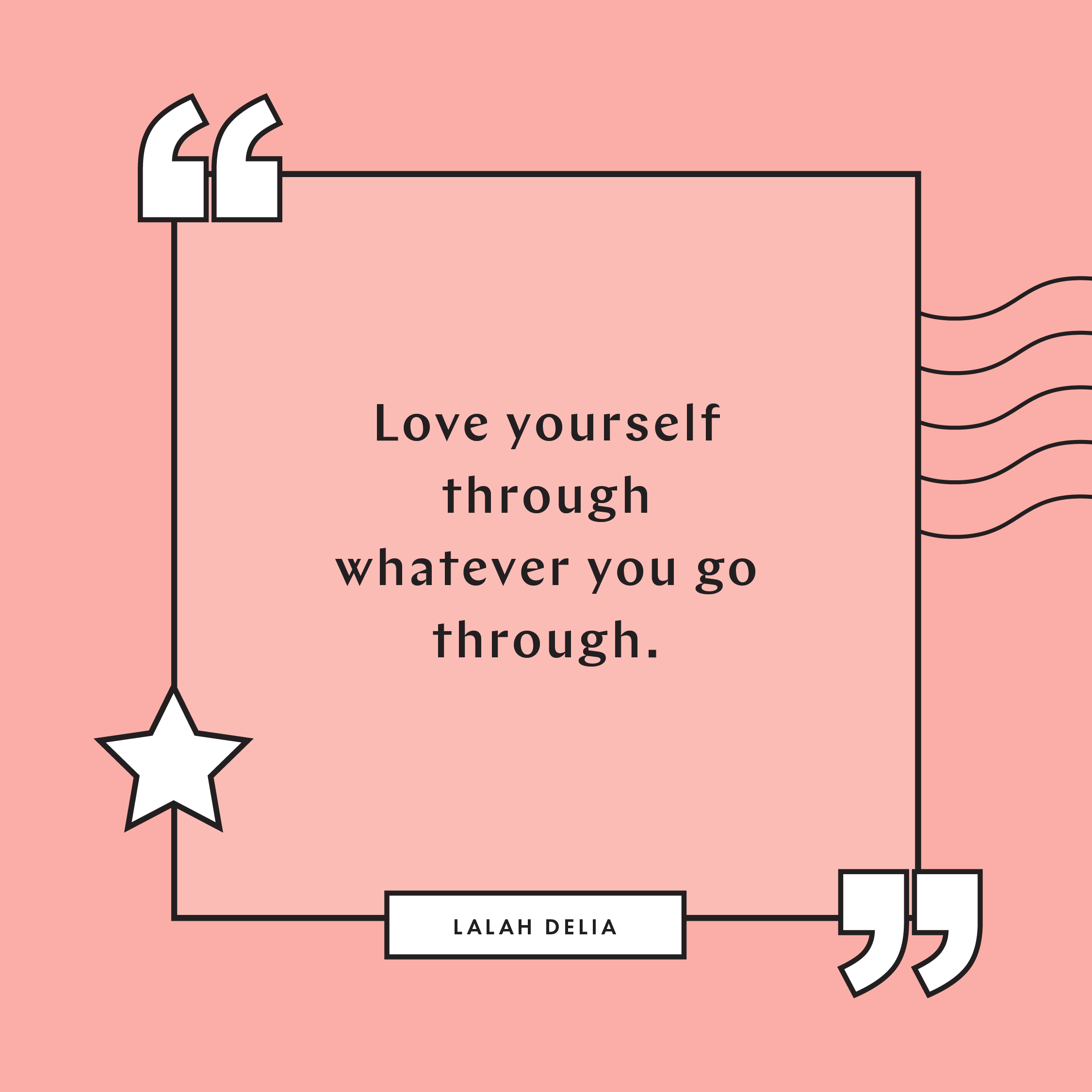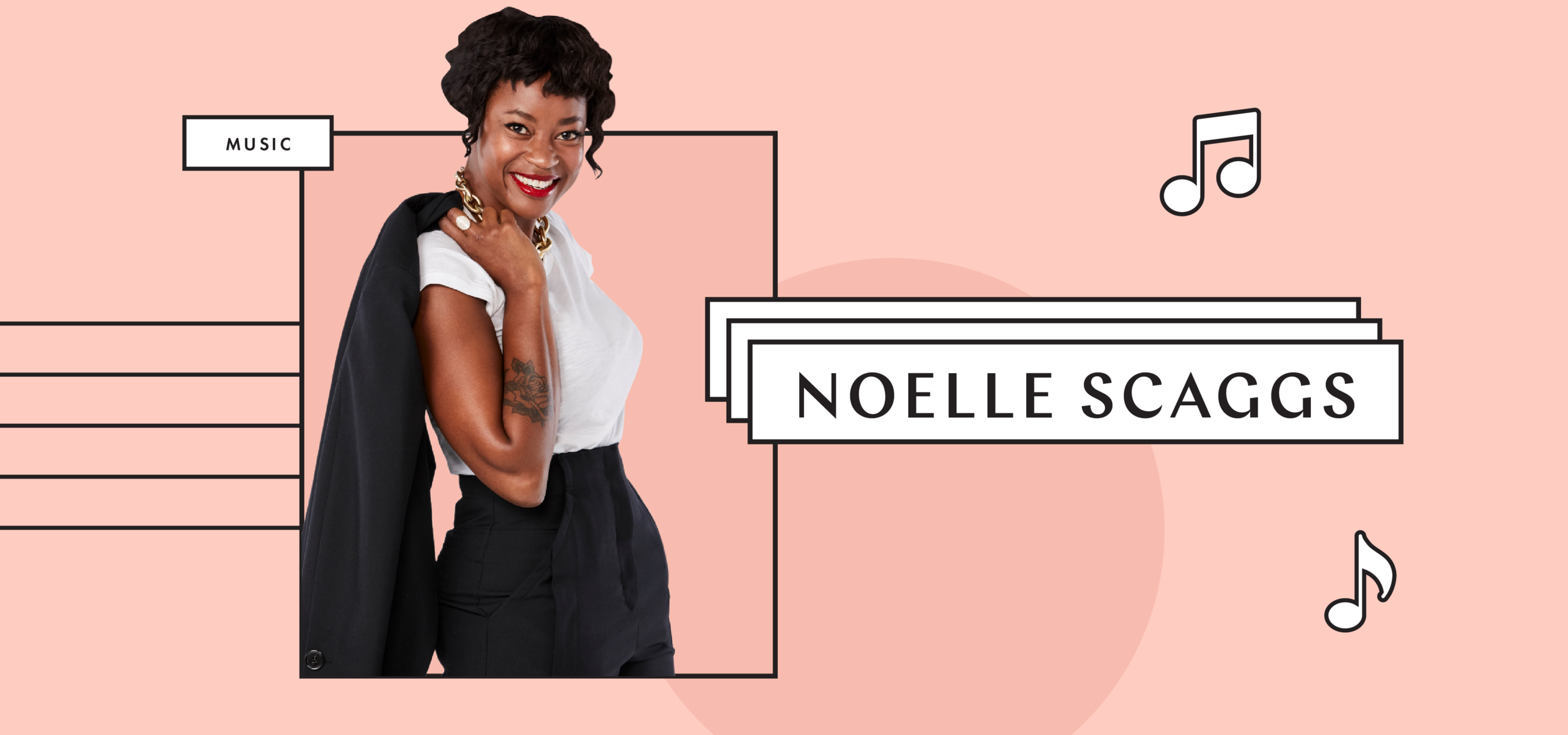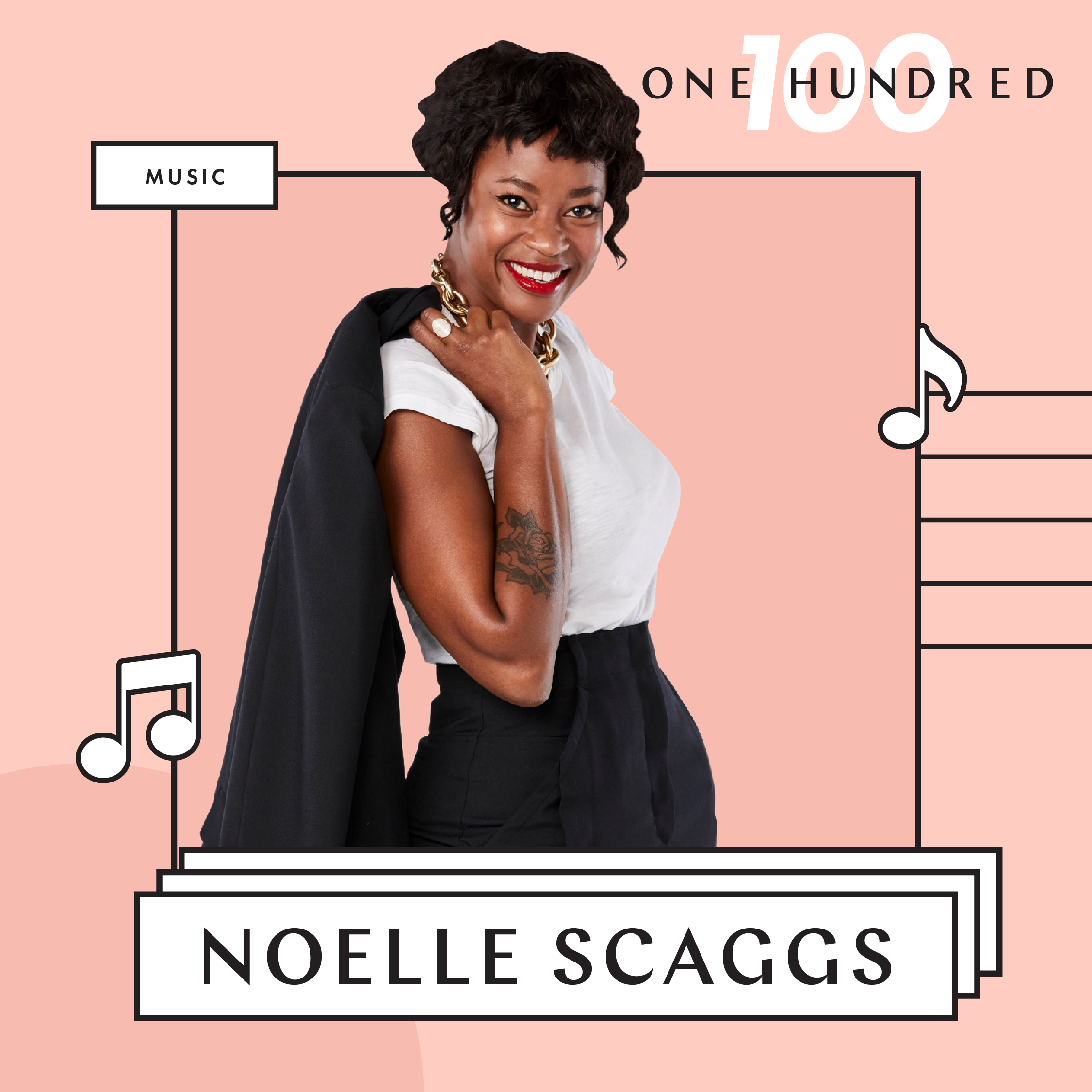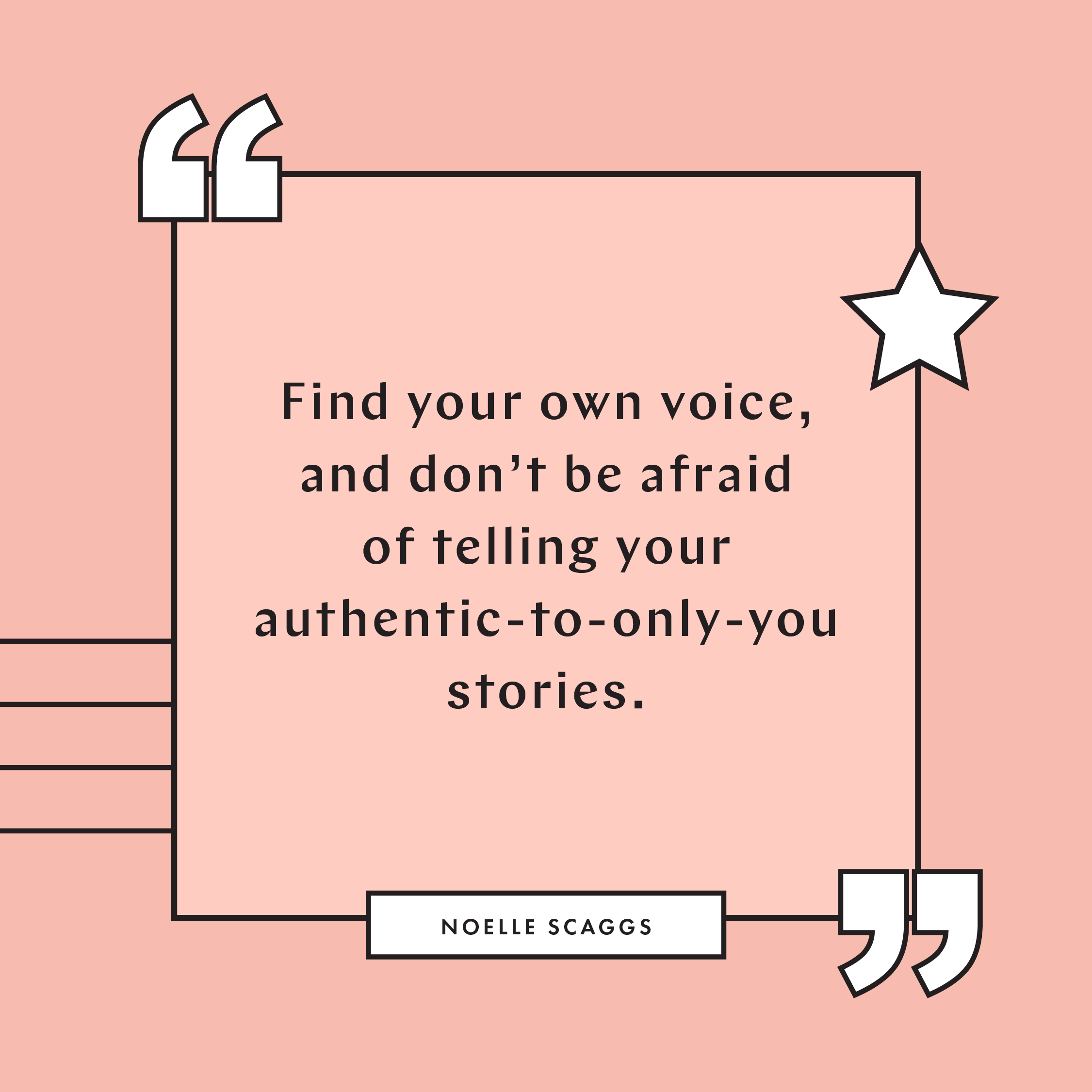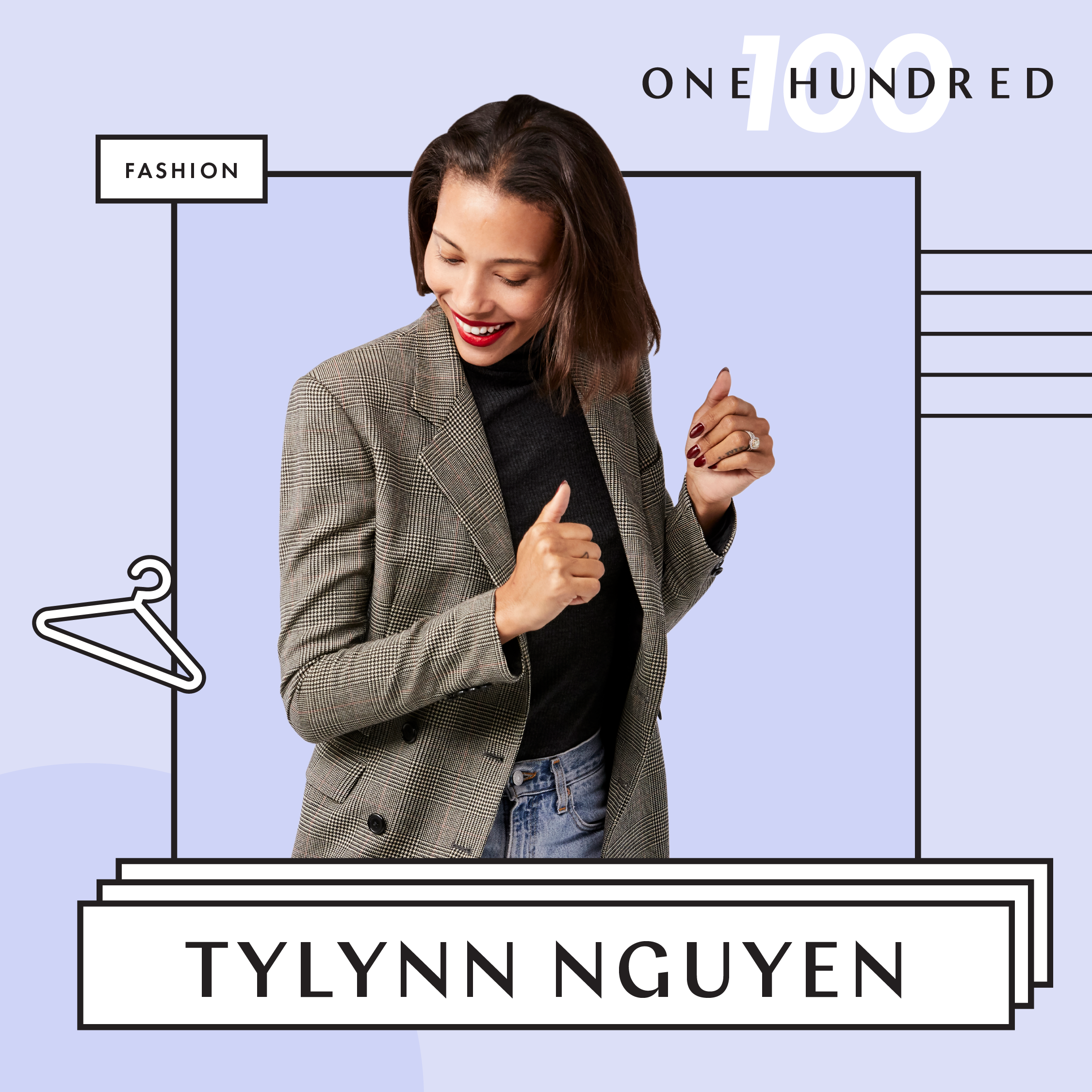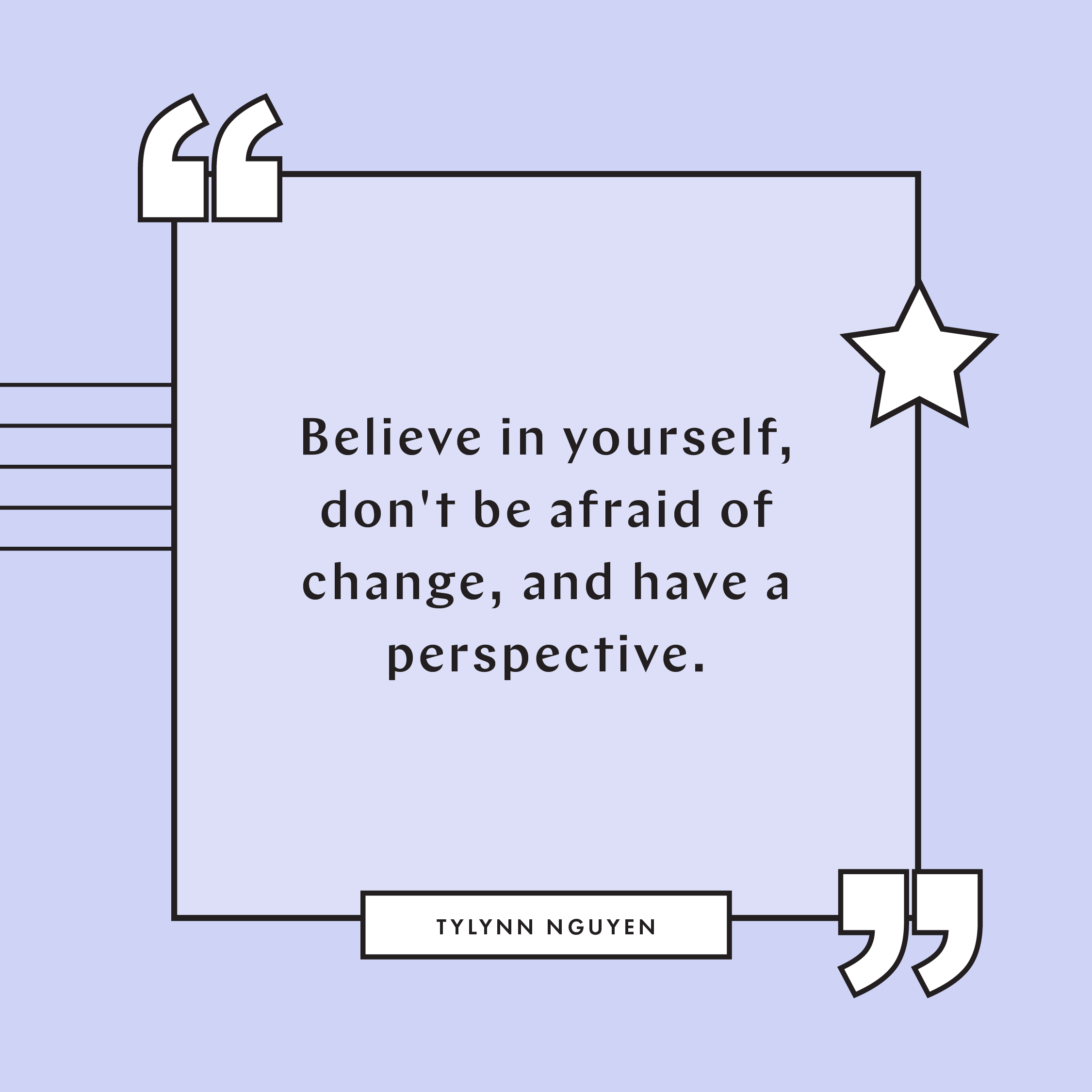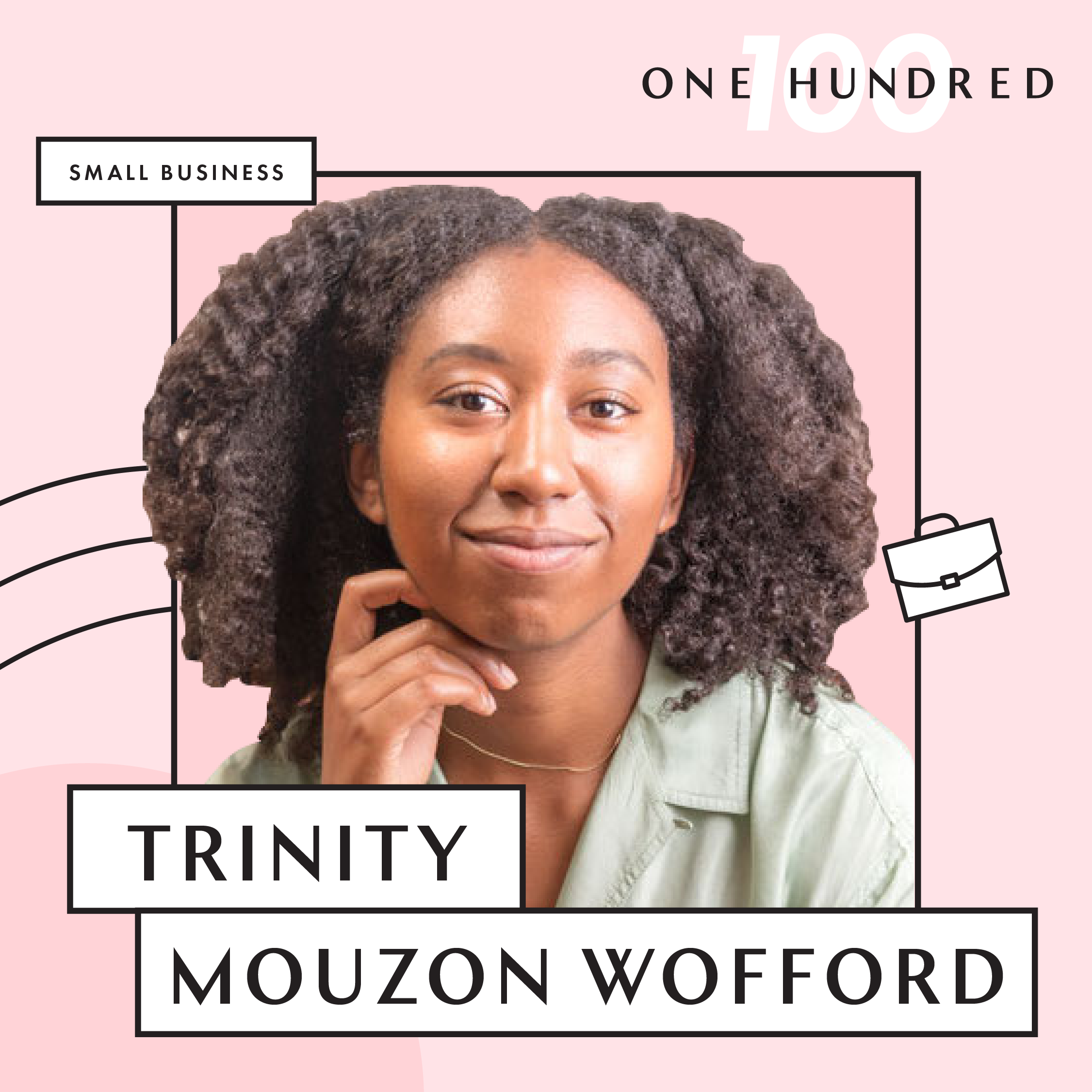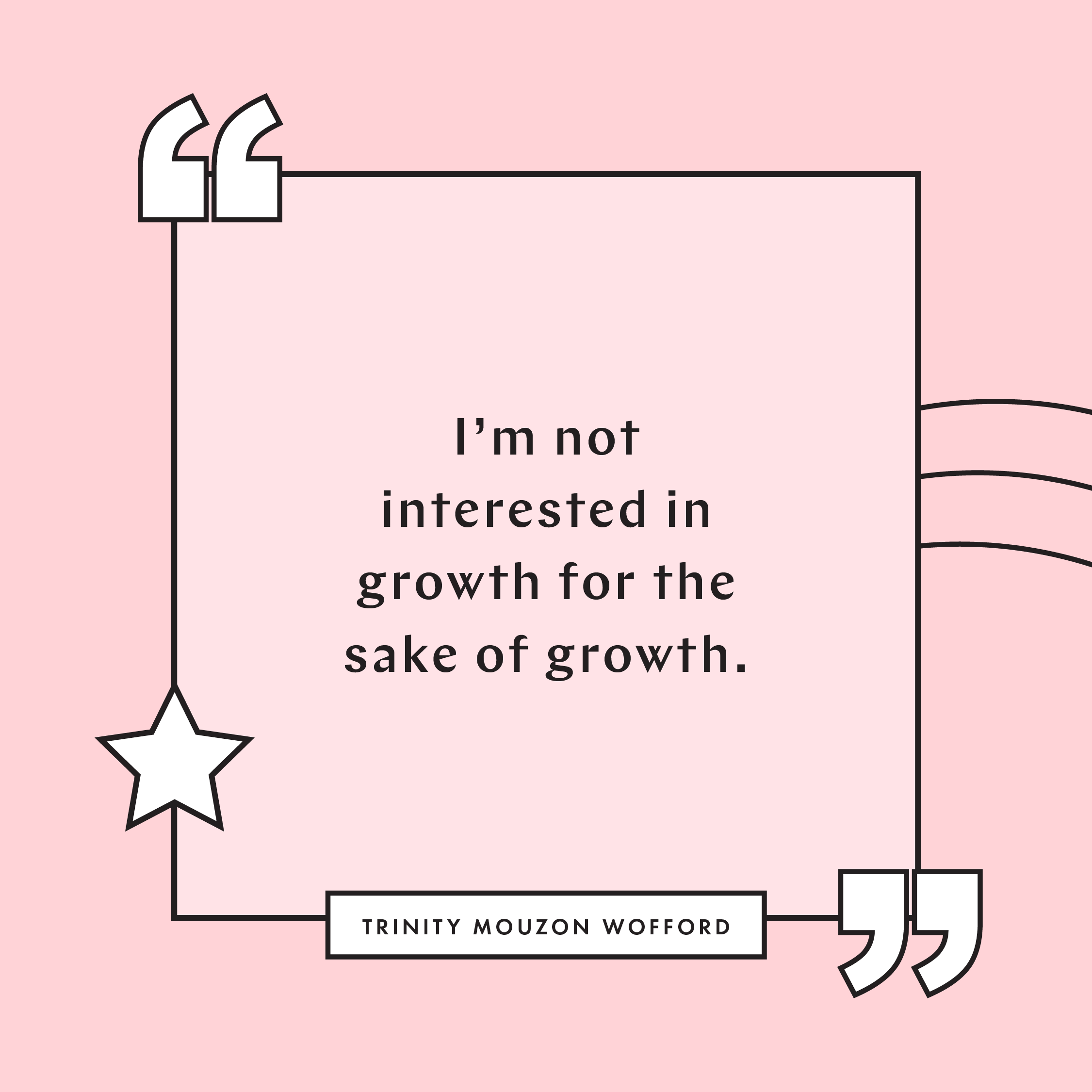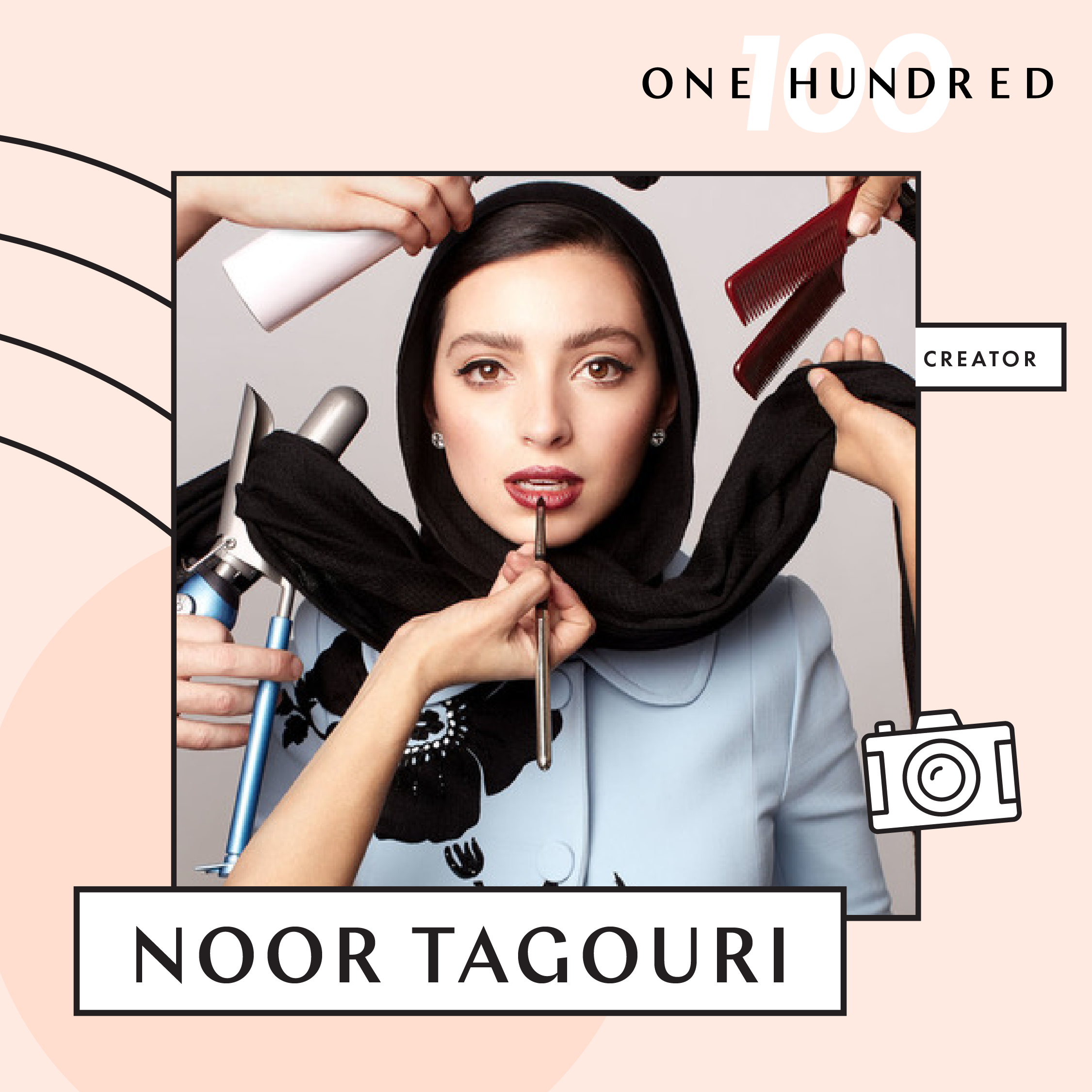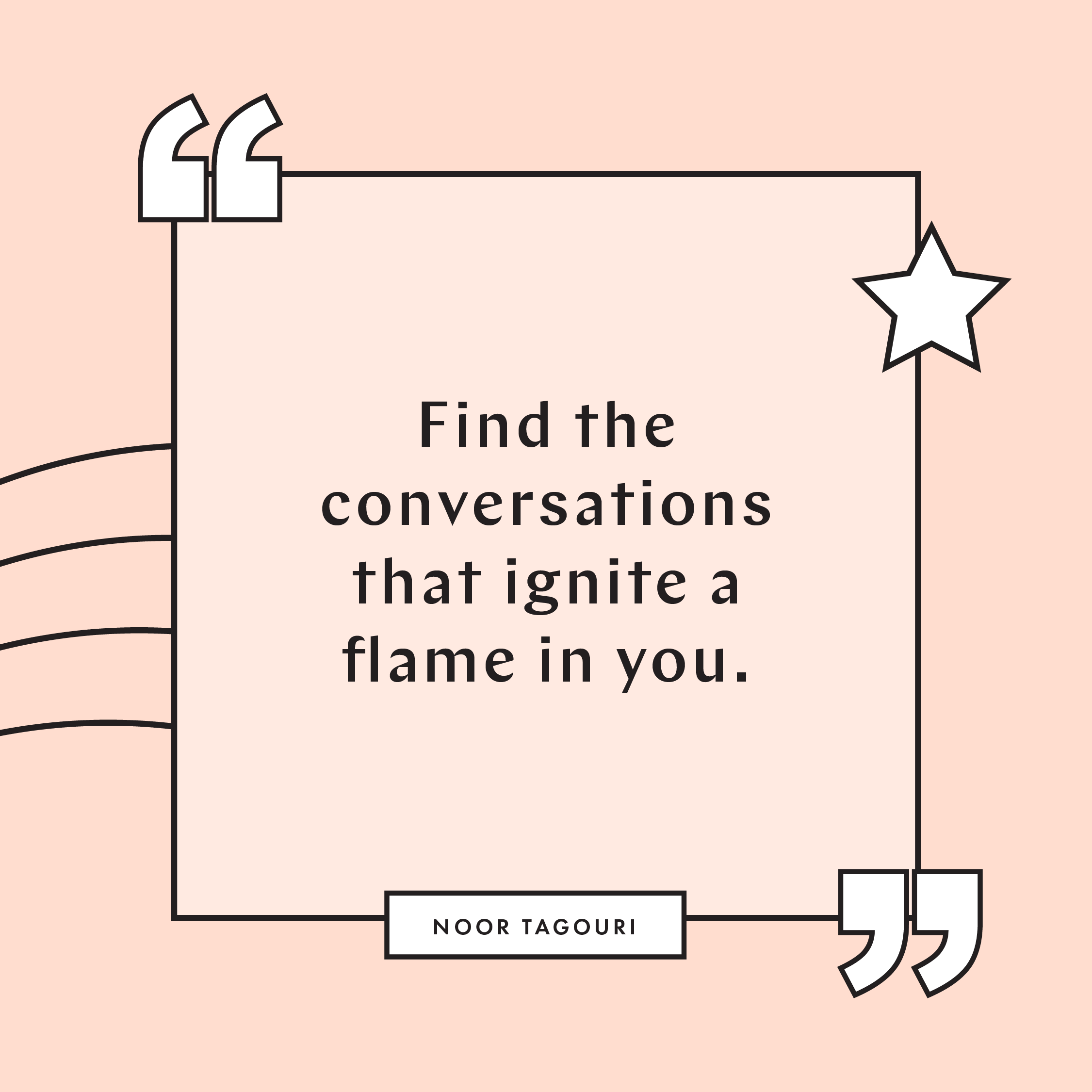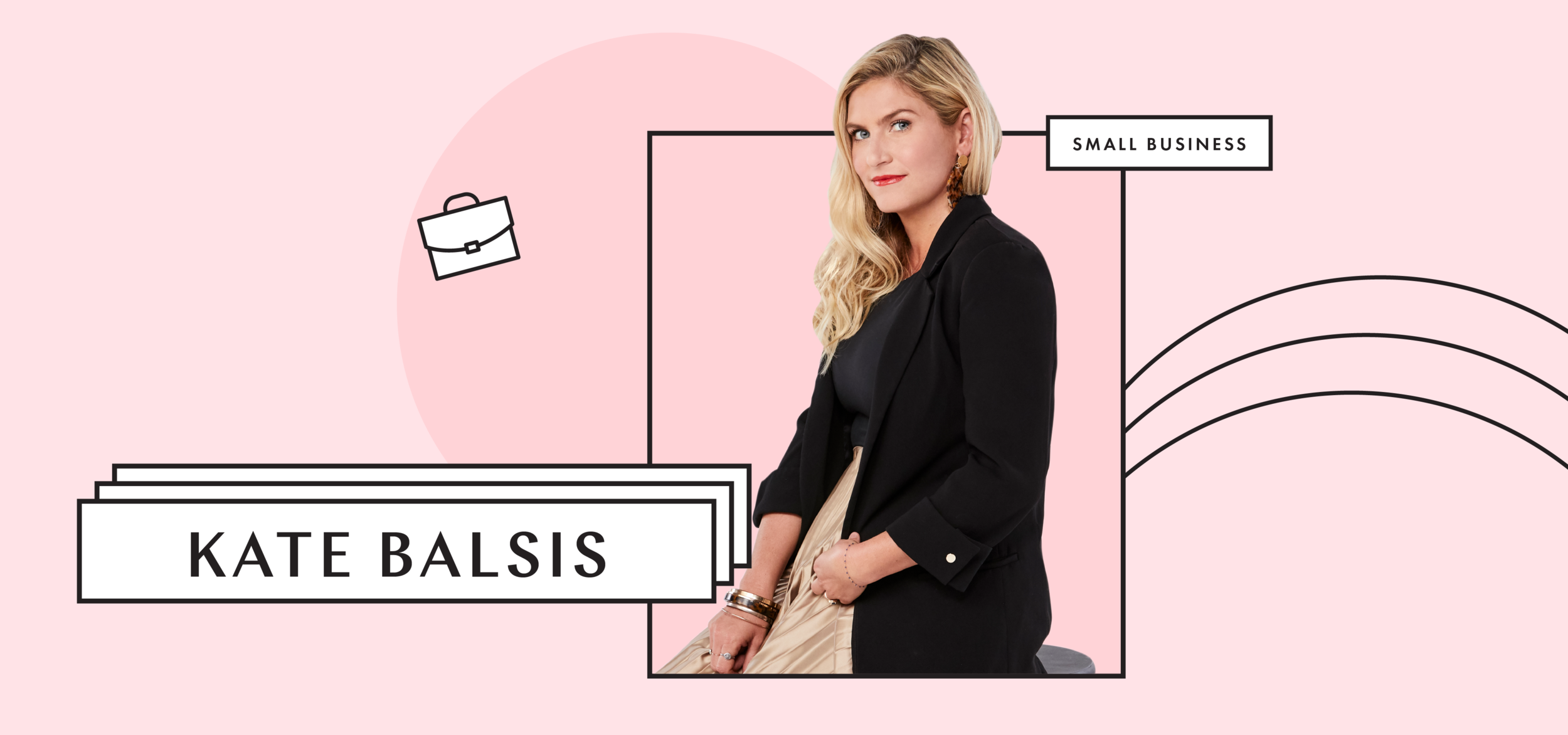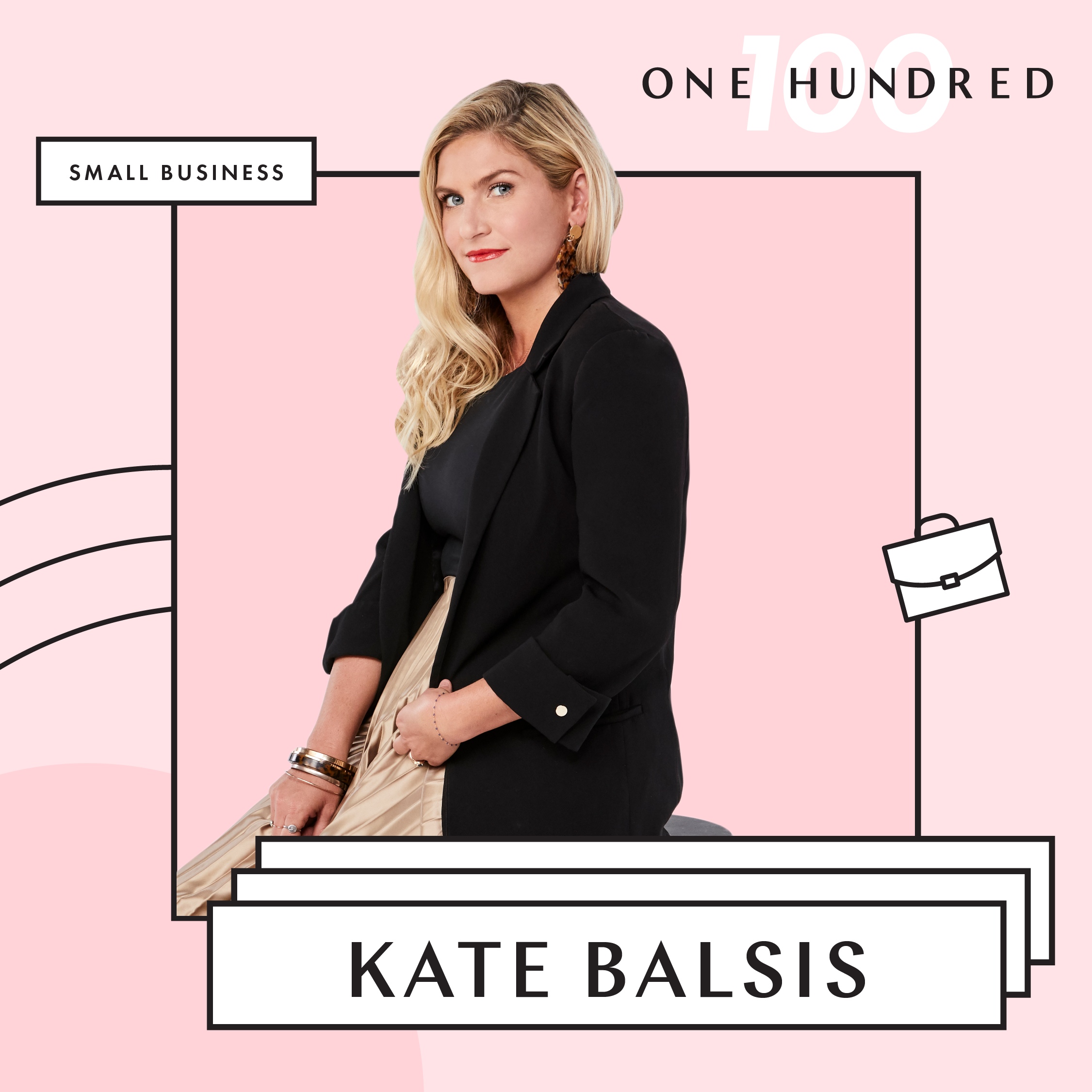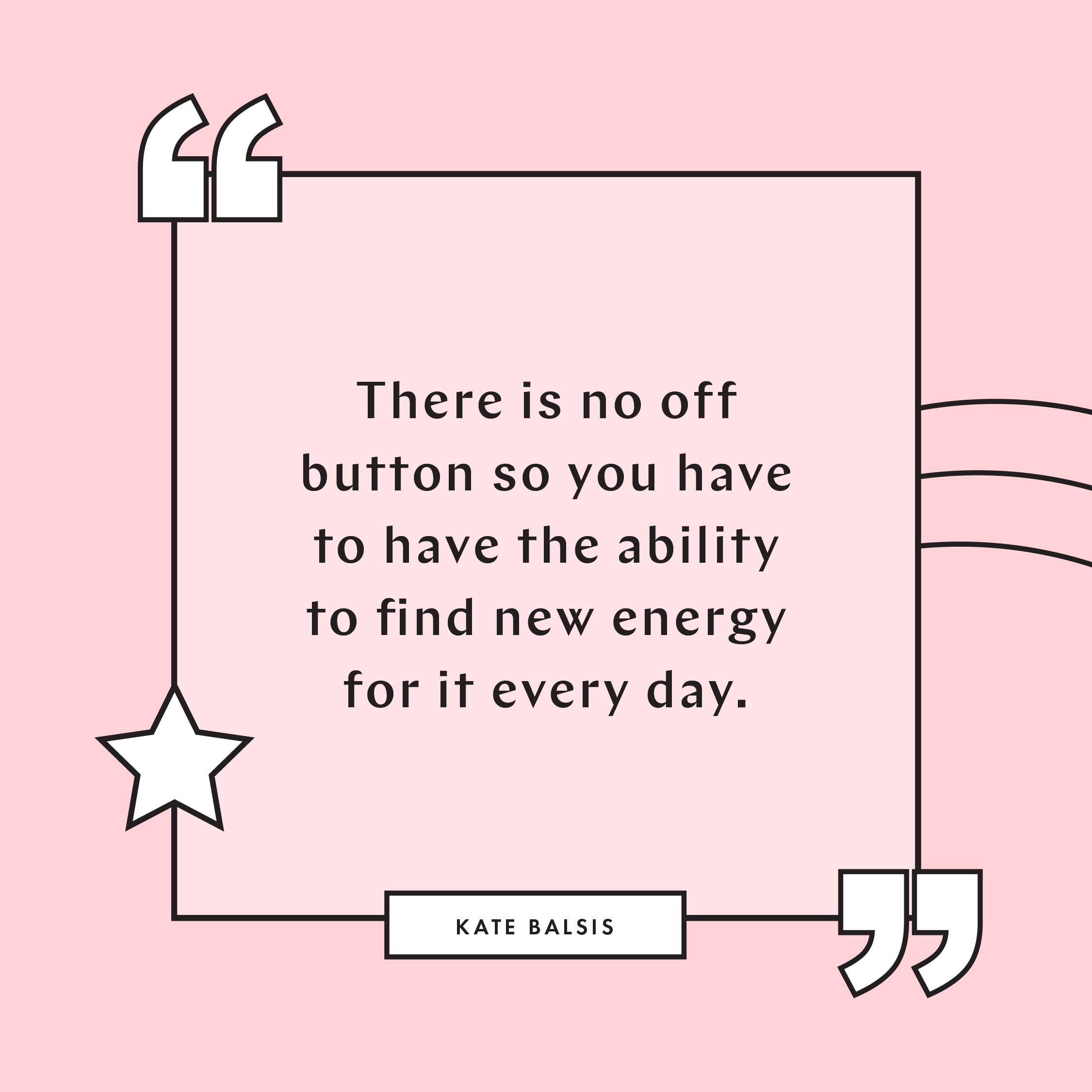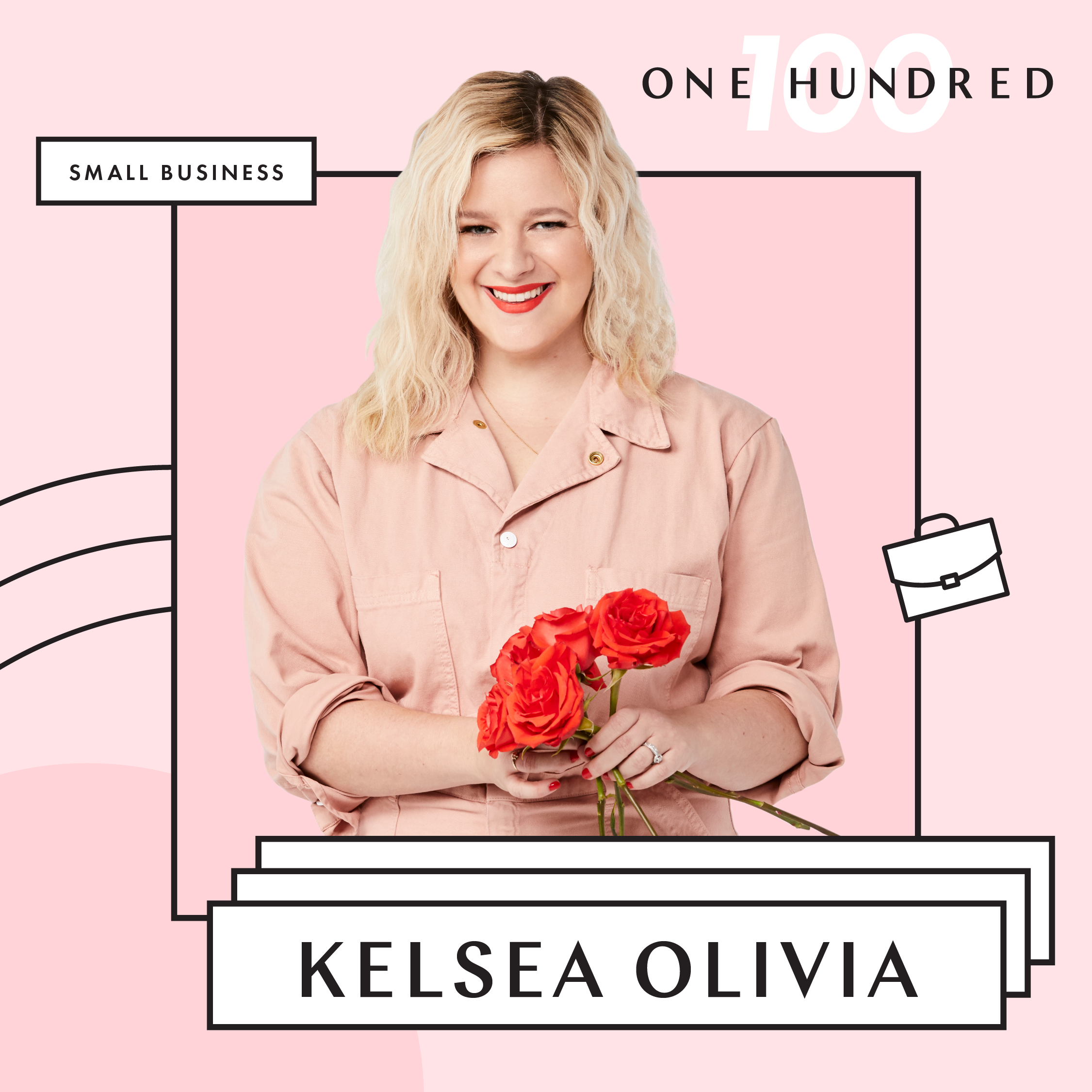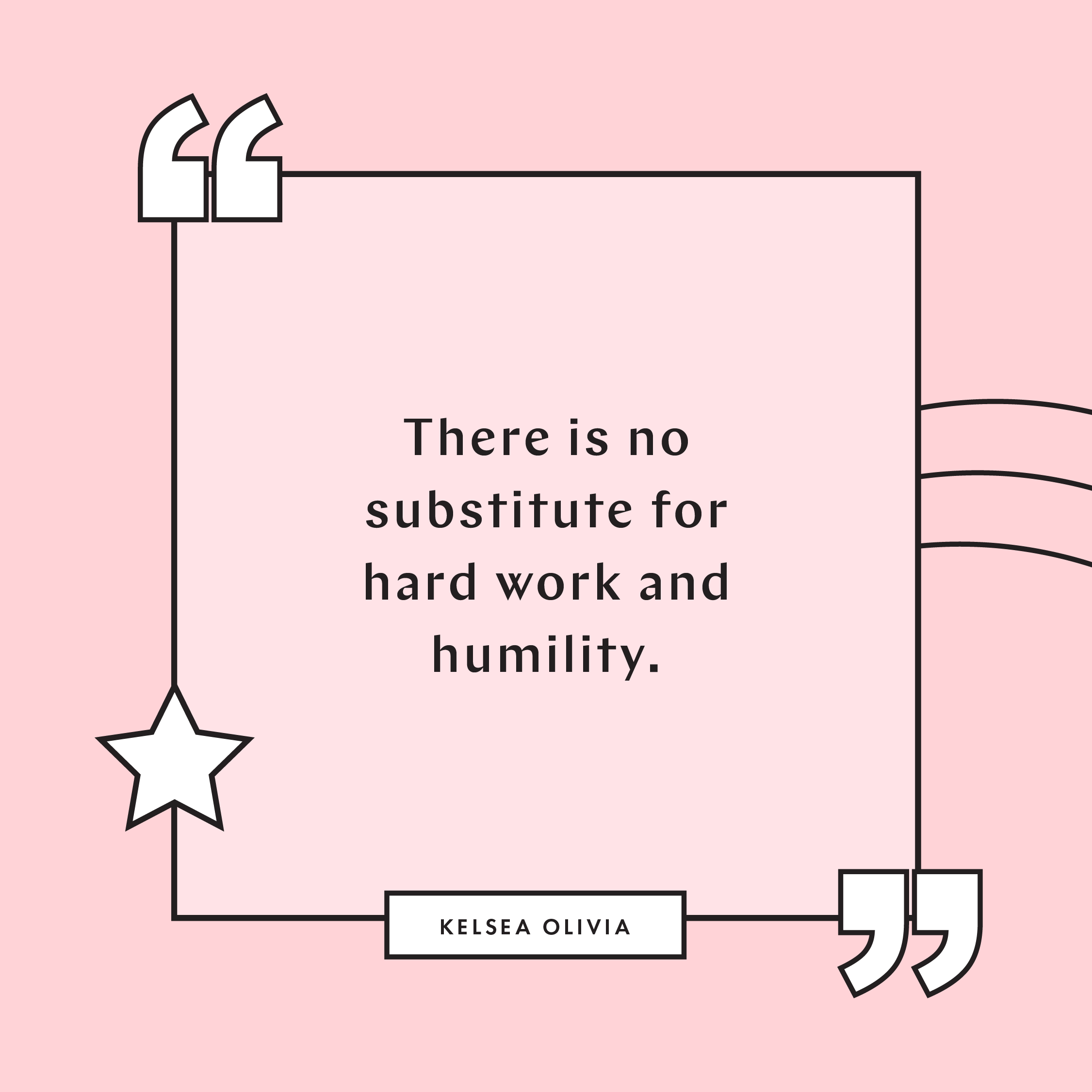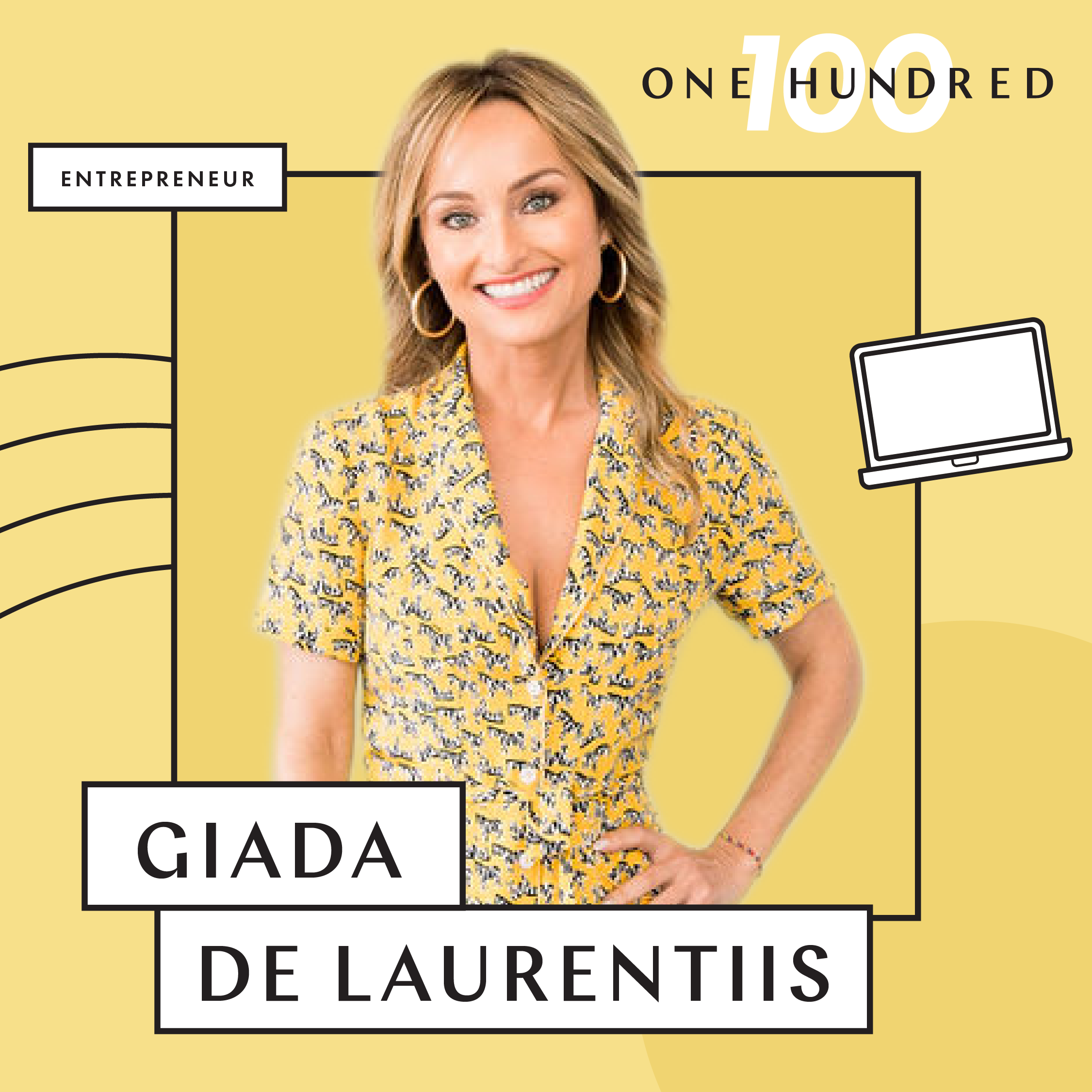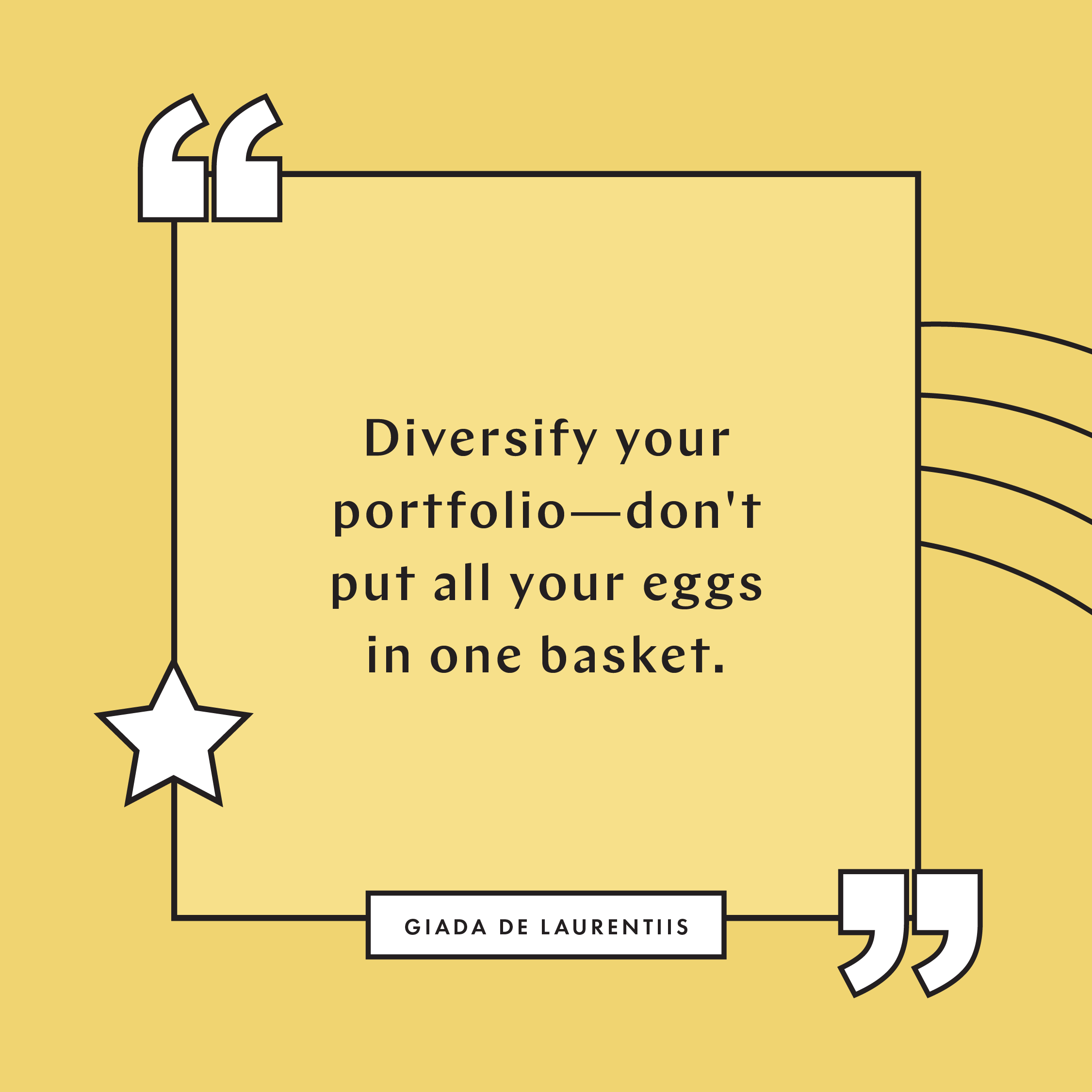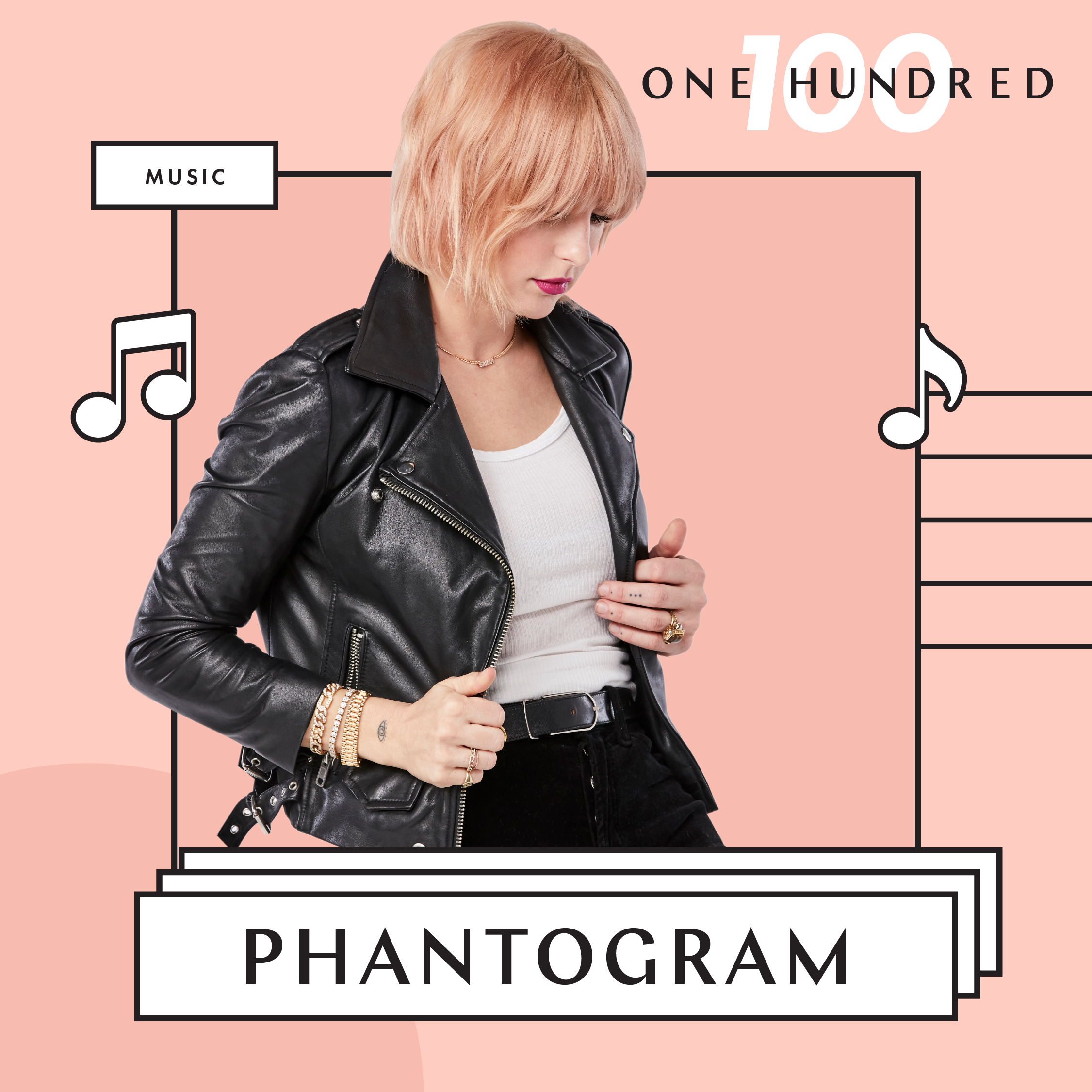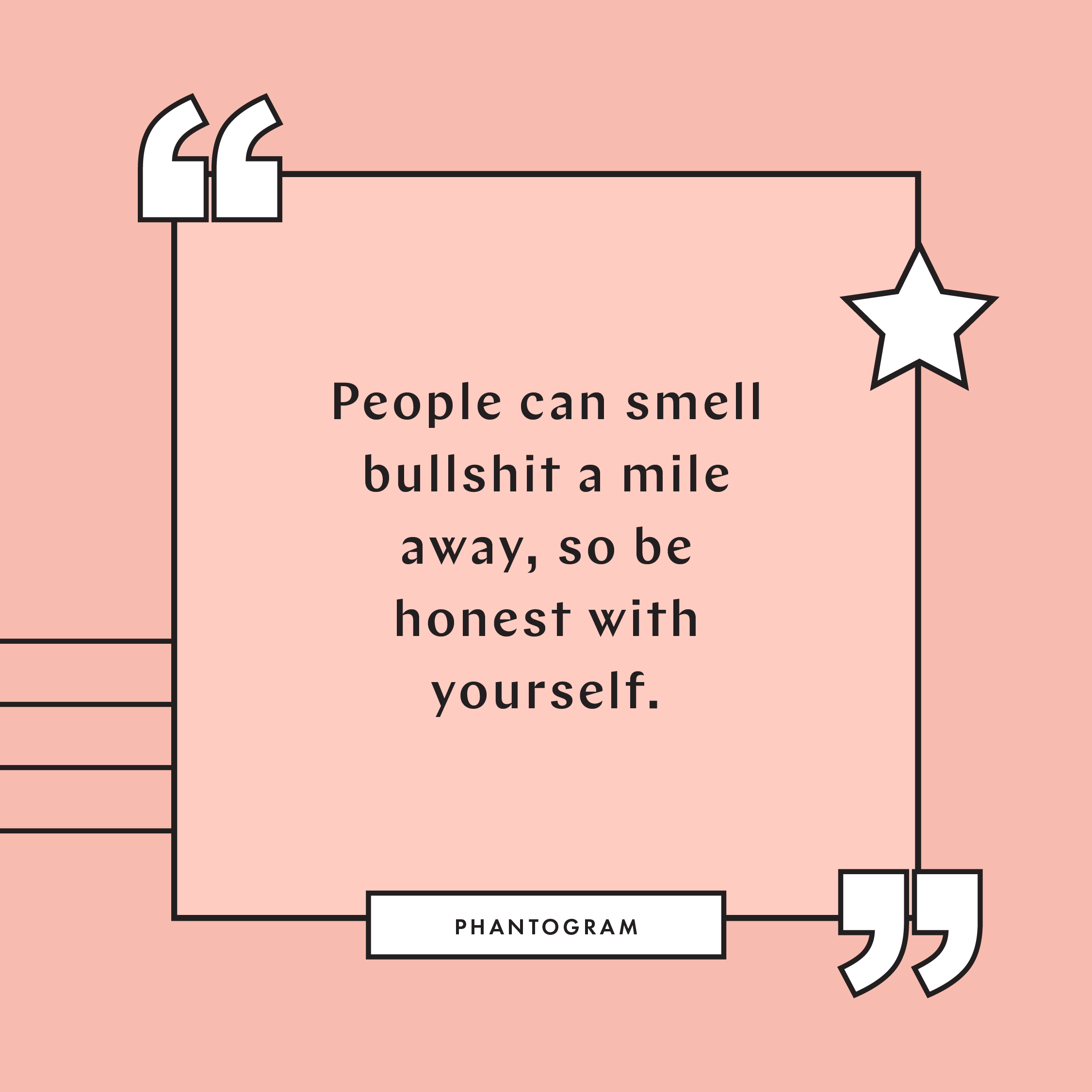80 Powerhouse Quotes From Black Women and WOC Create & Cultivate 100 Honorees
“Compassionate listening is the greatest and simplest form of peacekeeping.” — Cleo Wade.
It’s no secret that women are driving the economy in America. In 2019, American women started an average of 1,817 new businesses every day. A whopping 42% (nearly 13 million) of all American businesses are women-owned. They employ 9.4 million workers and generate $1.9 trillion in annual revenue.
And Black women-owned businesses are leading the way.
According to the American Express 2019 State of Women-Owned Businesses report there are 2,681,200 Black women-owned businesses in the U.S.—that’s 21% of all women-owned businesses—making it the largest segment of women-owned businesses after non-minority women. In fact, Black women-owned businesses represented the highest rate of growth of any group in the number of firms between 2014 and 2019 and between 2018 and 2019.
Our team has had the honor of working with so many intelligent, talented and strong women of color and Black women founders, entrepreneurs, creatives, musicians, artists, chefs, and small business owners, spotlighting their incredible work at our events, on our platform, and in our annual Create & Cultivate 100 list. And, we look forward to continually growing and expanding upon this as a key part of our community.
Now approaching its fourth year, this list honors 100 inspirational women who are disrupting industries and smashing glass ceilings across 10 different categories from fashion, food, entertainment, entrepreneurship, health & wellness, content creation, beauty, fashion, music, small business, and more. We come together as a team to ensure the list is diverse and inclusive with a mix of household names you know and love as well as up-and-comers you need to read about.
But this list is about so much more than just a number. It’s about the ripple effect it inspires.
When you honor 100 women who are 100% in it, you encourage 100 more to create a future we all want to be part of. After all, if you can’t see it, you can’t be it.
Your recommendations this past week alone have been amazing in bringing even more Black women-owned businesses to our attention, and we want to thank you for that. Please, keep them coming—we’re listening and compiling, and will be integrating many of them into all we do long-term.
Read on to hear from 80 Black women and women of color who have been honored in our Create & Cultivate 100 list each year.
Create & Cultivate 100, 2017
Sanaa Lathan, Actress & Philanthropist
“One positive moment with a young person can change their path forever. ”
“Most people naturally just assumed I only do makeup tutorials for African American women, not realizing that we come in so many different shades and you don’t have to necessarily look exactly like someone to learn a new tip. ”
“It’s the love of my people and seeing a woman or girl flip through CRWN and her eyes light up…or when a sister confides in me about her hairstory and how CRWN is a place where she can finally see herself…These are the reminders that CRWN is so much bigger than Nkrumah and myself.”
“Life isn’t about finding yourself. It’s about creating yourself.”
Nikisha Brunson, Co-founder, Urban Bush Babes, and Founder, Folie Apothecary
“Life is too magical to put barriers on it.”
“Female empowerment is knowing that you can do anything, even if it might be in a field dominated by the opposite sex.”
“Compassionate listening is the greatest and simplest form of peacekeeping.”
“All women are beautiful, smart, strong as fuck, and special.”
Franchesca Ramsey, Comedian, Actress, Activist, and YouTube Personality
“Being a woman of color on the Internet is challenging, let alone being one that openly talks about racism and feminism. I deal with an intense amount of harassment, which at times can be discouraging, but is also a reminder of why these conversations are so important.”
“Take the time to plan your life or settle for what life gives you.”
“Being able to see yourself in every woman regardless of race, class, religion... when that happens empowerment is just a byproduct.”
“I learned to be grateful, honor my worth, and love myself the way that I am.”
“When women support each other we can accomplish anything!”
“There are a lot of things that happen behind the scenes that people would be surprised about when it comes to the beauty world and even more when it comes to being an African American influencer.”
“I wanted make the black hair experience fun and beautiful for Black women.”
“Beauty has nothing to do with one’s age, gender, body size, socio-economic status, race, religion, or culture.”
“Give negativity little to no oxygen.”
“Actions speak louder than words and execution is everything.”
“I like being able to go into male-dominated spaces and blow their minds anyway.”
“I obviously went through these things for a reason, and if it’s not to share with other people so they can handle their situations better, well, I don’t know what the hell I went through it for. I might as well share it because this the only life I got to live and who knows it might save the world.”
“I consider myself a fighter and a revolutionary and I’m driven to stand up to injustices and inequities whenever I see them manifest.”
“Don’t spend life daydreaming about ‘what could be’. Invest your energy in what is right in front of you and see how it can be cultivated into something meaningful #realtalk.”
Arlan Hamilton, Founder, Managing Partner, Backstage Capital
“It started with my mom telling me I deserved to be in any room and shouldn’t shrink myself to make someone else feel better about themselves.”
“I am not just a woman in STEM. I am a Black woman in STEM, who grew up in a low- income household, who never took a technology, business, or finance class in K-12 or college, didn’t go to an Ivy League school, and didn’t know a soul in tech prior to entering Silicon Valley in 2011.”
“I’d love to break down barriers that any woman feels when it comes to following your art.”
“The more your honor your spirit and soul, the more that energy grows around you.”
“You learn to make space and time for yourself.”
“My passion stems from my deep belief that empowering girls does change the world.”
“I was raised by a mother who taught me that I was complete all by myself.”
“Representation is important in the stories we tell.”
“My focus is on making the world see that kids are not just the future. We are the present as well and we can change the world now.”
“Be authentic. You’ll break through the static when you find your secret sauce and share it with the world.”
“Any challenge at hand is an opportunity, a chance to dig deeper.”
“I think too many people are afraid of failing. I’m not.”
“All victories count. There’s no need to compare yours to someone else’s.”
“Sometimes, especially in the black community we feel tokenized. I’m not trying to act like the spokesperson for the black community. I’m simply someone who is trying to provide change and influence. I may have some missteps along the way. Try to give people grace as they launch their businesses and feedback.”
“The day I die, I’d like people to remember me as someone who taught them how to be fearless and how to create their own destiny. I would love my daughter to say I was her motivator and role model.”
Lauren Ash, Founder & Executive Director, Black Girl in Om
“Preventative and holistic self-care and self-love allow us all to breathe a little easier and slowly but surely it can become a lifestyle. This is what Black Girl In Om is all about.”
“A bump in the road doesn’t mean it’s impossible. Sometimes it just calls on you to push through a little bit harder.”
“We believe very strongly that it’s so important to show a real representation of women in fashion and the wider media landscape. We wanted to liberate women from feeling as though they need to live up to an unreal external projection of how they should be.”
“I’m inspired by women. I’m inspired by black women. I’m inspired by women who have found their voice, and who know what they want (or at least what they don’t want).”
“Sometimes the challenge, at least for me, has been getting women to change the way they feel about their hair and embracing the beauty that they were born with.”
“I was born as a black woman for a reason, and I just want to make sure I don’t miss it.”
Read the interview.
Follow her on Instagram.
Courtney Adeleye, Founder, Foolproof Body, and Generational Advantage Fund
“If you’re not teachable, there’s no way you can evolve.”
“Activism to me means taking a stand for something you believe in or something you’re against. Not just stating it, but taking actionable steps in creating the change you want to see. There are so many ways you can activate in your community, big or small. Marching, volunteering with or donating to organizations that support what you believe in, starting a movement on social media, having courageous conversations with your friends and family, and calling out people when they have done something wrong in your eyes. There are additional ways to go about it, these are just a few.”
“No rain. No rainbows... people relate to authenticity and I truly believe that being vulnerable helps amplify that.”
“I decided to bet on my own magic.”
“Hearing a NO is a sign that you’re growing and aiming higher and higher.”
“My internal monologue was all over the place. “Will I be able to continue doing what I love?”, “Will I get paid equal or more than what I’m earning now?” Also let’s talk about the weight of being the only black artist in that workspace at the time. There was a feeling of guilt I know many POC feel in majority white spaces. I was like “If I leave, no one here will look like me.” This is why representation is so important. ”
Read the interview.
Follow her on Instagram.
Nancy Twine, Founder, and CEO, Briogeo
“Find something you really believe in and that you won’t quit until you’ve succeeded. ”
Gabi Gregg, Founder, Playful Promises Lingerie, and Swimsuits for All
“Maintain your integrity and trust your gut.”
“Sometimes you have to trust that even without past experience, you can figure it out.”
“It’s important when things go wrong to stay calm, assess the situation in a realistic way, and shift gears accordingly.”
“Take the mistakes and failures, and make something out of them.”
“Social injustice and the state of our government (keeps me up at night). I feel politics are a bit out of control. It’s always been rough but now it’s getting nasty. Some of our leaders can’t even be looked up to as good role models for our kids, and that should be a prerequisite... at least be a decent person who is kind and loves all people.”
“I learned early on in my life that no one will be there for you more than you; no one will take action for you to accomplish the things you want like you.”
Ally Love, CEO and Founder, Love squad, Peloton Instructor, Brooklyn Nets Host, and Model
“Understand that you cannot apply equal energy to everything. Be conscious of your immediate goals and operate accordingly.”
“I choose to empower myself by empowering others.”
“Our parents always taught us from a young age that we can do anything we put our minds to and no to be afraid to dive in to do something that may not be considered things for little girls to be doing.”
“Surround yourself with people who are going to nurture your gifts and be transparent about your growth and how to improve.”
“Nothing is easy, so stop trying to figure out easy and instead focus on enjoyable, fulfilling, meaningful.”
Read the interview.
Follow her on Instagram.
Lisa Mae Brunso, Founder and Chief Visionary, Wonder Women Tech
“Rev. Jesse Jackson told me something so basic that it was also profoundly powerful, he said, “You just have to show up.” Those two words are something I carry with me every day when I feel like giving up. ”
Krystle Rowry, Web Designer, Digital Strategist, Kriss Dit It
“I look at hurdles as a time to learn, pivot, & get excited for what’s next.”
Kaya Thomas, Computer Scientist, App Developer, Writer, and Founder, We Read Too App
“When I hit a hurdle I remember what I’m working toward in the first place.”
“Communicating with clarity, purpose, passion, and honesty will enable you to serve others in a profound way.”
“Don’t be afraid to put yourself out there and take risks. Be your most authentic self. ”
“Believe in yourself, don’t be afraid of change, and have a perspective.”
Daisha Graf, Actress, Dancer, Model, Singer, Influencer, Fitness Coach, and Co-Founder, D(n)A arts
“‘Making it’ is subjective. I have in no way, shape, or form ‘made it’ in my mind. I feel once I’ve ‘made it’ there will be nothing left to pursue. I never want to feel that. ”
“Keep trying things. In my experience, you have to try things out that aren’t for you in order to find what is for you.”
Kiitan Akinniranye, Content Strategy, and Lifestyle blogger
“I am my only competition. It’s definitely a hard mindset to keep at all times, but I think society has really tried to push this idea that there’s only so much space in any room for people who aren’t white men, and that’s completely false. I’m unique because I’m me, sharing what I love with people who love it too. I’m always challenging myself to push my limits and try new things, but it’s an internal push, not an external one.”
“You always hear that, as a Black woman, you have to work three times as hard. Sometimes working hard is enough, and sometimes it’s not. That was so hard for me starting out.”
“When you move through fear and resistance, new strength and resilience that you never knew you had, takes control.”
“Find your own voice, and dont be afraid of telling your authentic-to-only-you stories.”
“To get into the room with big brands, you need a reason to be there. Think about what you can bring to the table that’s unique, valuable, or exciting. Be the meeting that people look forward to.”
Read the interview.
Follow her on Instagram.
Trinity Mouzon Wofford, Co-founder, Golde
“Being an entrepreneur is basically just a series of unending failures... You can choose any of these moments to give up, or you can see them as learning curves that will prepare you for the next thing.”
Tia Mowry, Actress, Content Creator, Author, Entrepreneur, Founder, Anser
“It takes time to discover yourself, but once you do, the rest is history.”
Tyra Banks, Model, Entrepreneur, TV Executive, and Business CEO
“My mama has always—and still—teaches me to never give up. She always compared success to access inside a house. She’d say, ‘It doesn’t matter if you get into the house through a window, a door or through a hole in the roof—you just get in! Doesn’t matter if the front door is closed. You get in!’”
“You don’t have to settle for what people think you deserve.”
“Sometimes things fall apart, it’s part of the journey.”
Wendy Lopez and Jessica Jones, Content Creators, Podcast Hosts, and Authors, Co-Founders, Food Heaven
“We’ve had so many people of color—particularly Black women—tell us that they thought nutrition and healthy eating was for White people, but once they discovered our platform, they realized it was for them too.”
Step Inside the Star-Studded Create & Cultivate 100 Launch Party in L.A.
Everyone came out to support the 2020 honorees.
When we launched the Create & Cultivate 100 four years ago it was about so much more than just creating a list. This initiative was started to honor 100 successful and inspirational women who are driven to #FindNewRoads by disrupting industries and smashing glass ceilings across 10 different categories.
But since then it has become a movement and inspired a ripple effect because when you honor 100 women who are 100% in it, you encourage 100 more to keep it at 100 and create a future we all want to be part of. This year’s honorees included Priyanka Chopra Jones, Gwyneth Paltrow, Sigal Cordeiro, Minnie Mouse, Mandana Dayani, Noor Tagouri, Sarah Barthel, Lindsay Peoples Wagner, Ally Maki, Marni Senofonte, Chriselle Lim, Adrienne Bosh, and so much more.
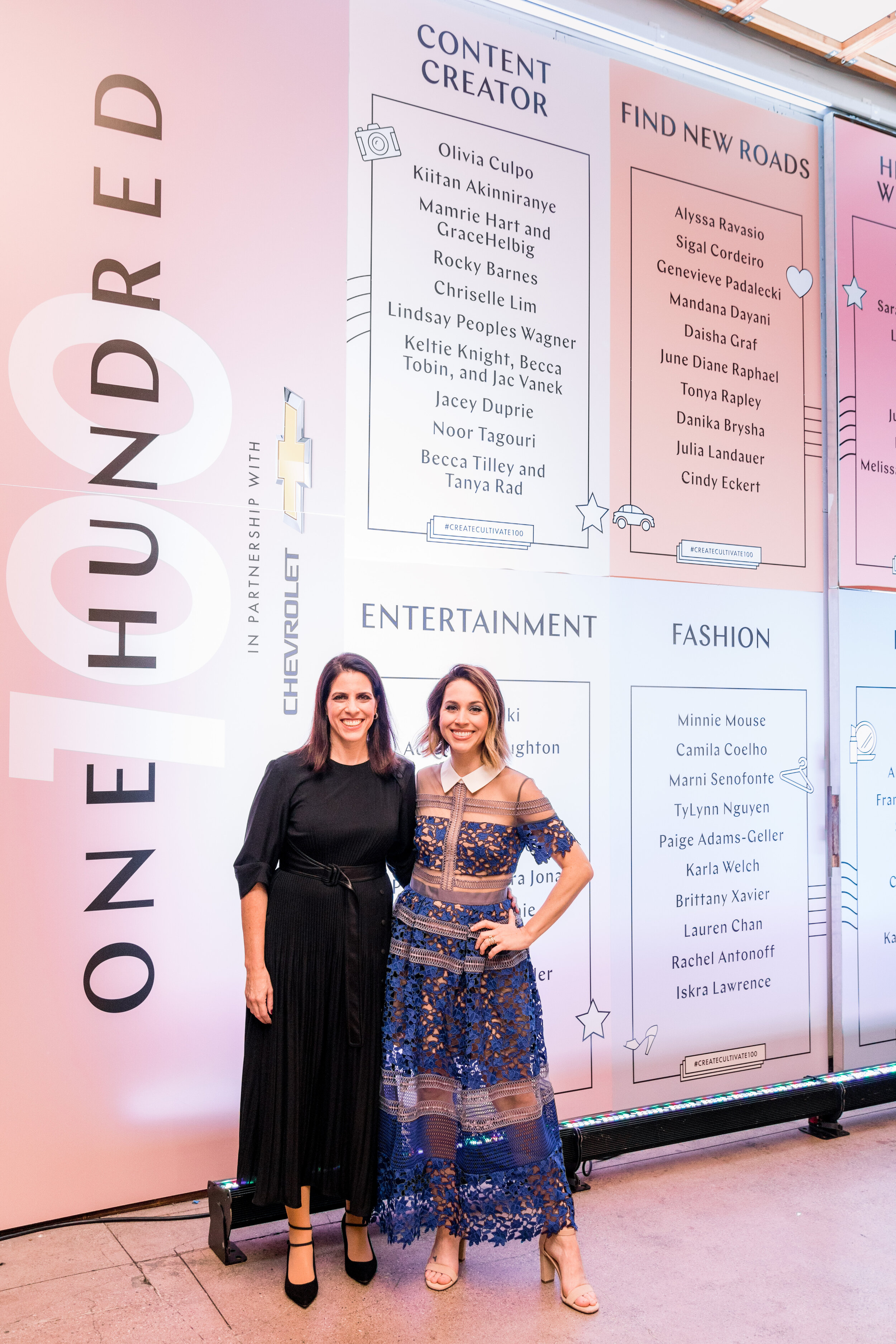
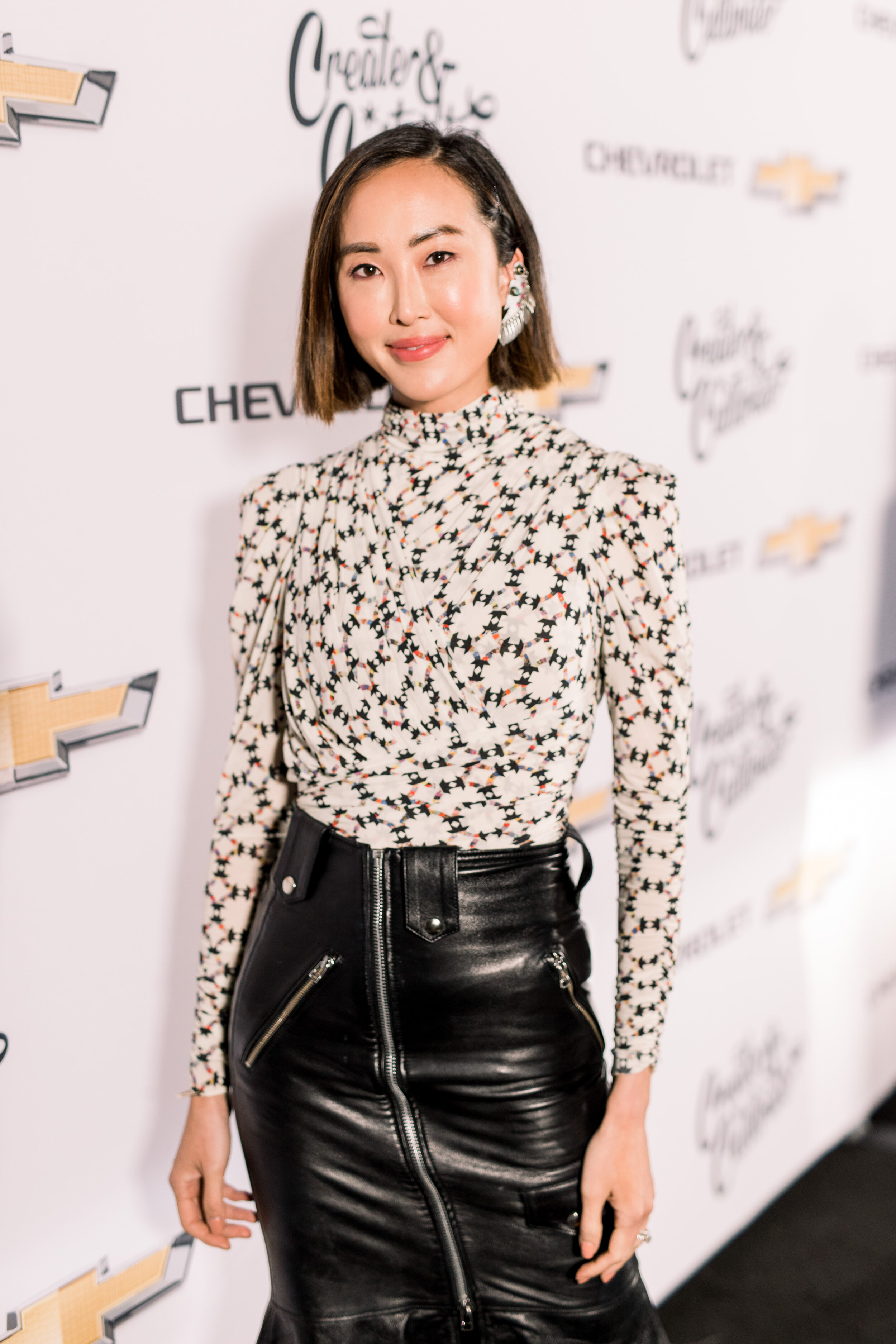
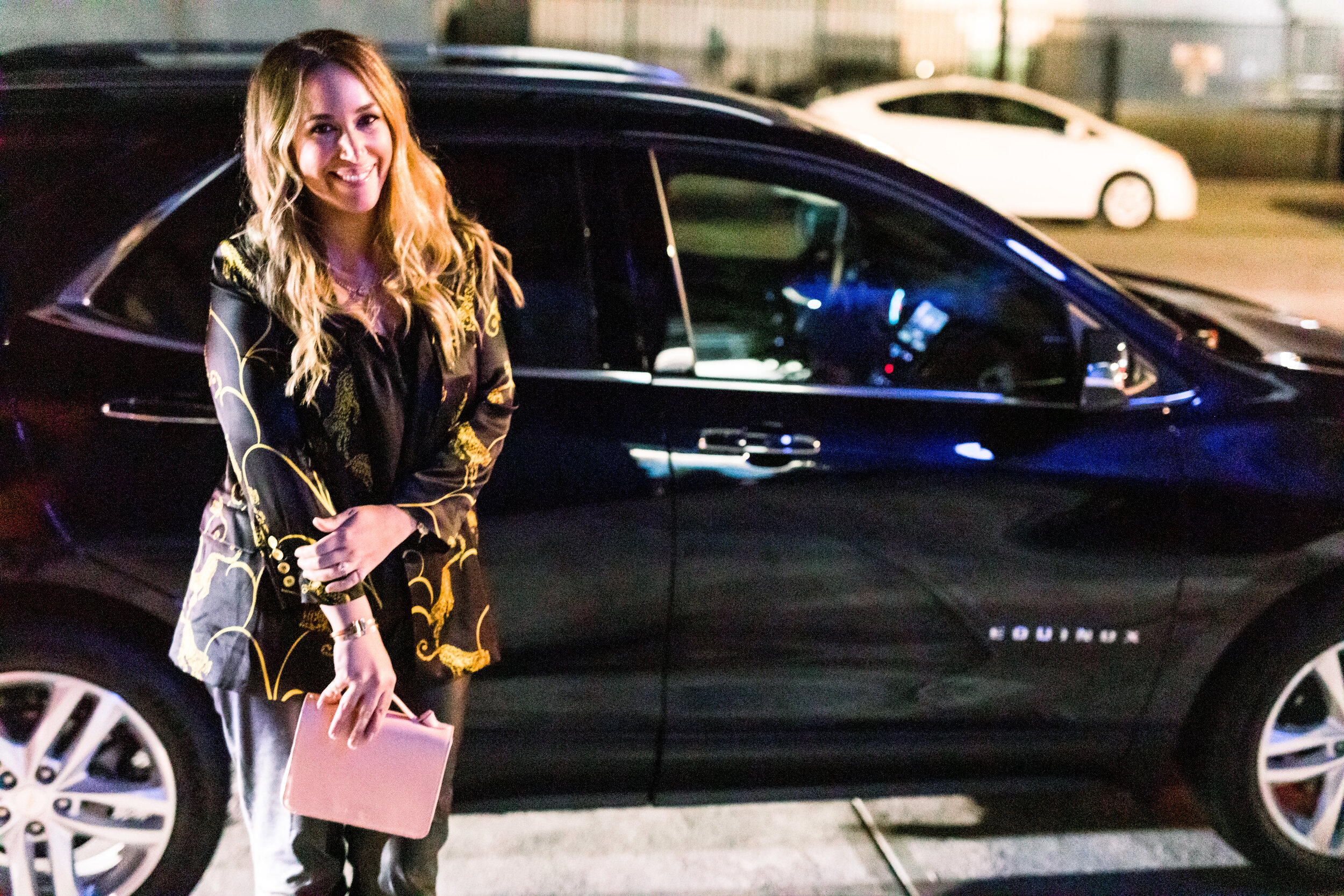
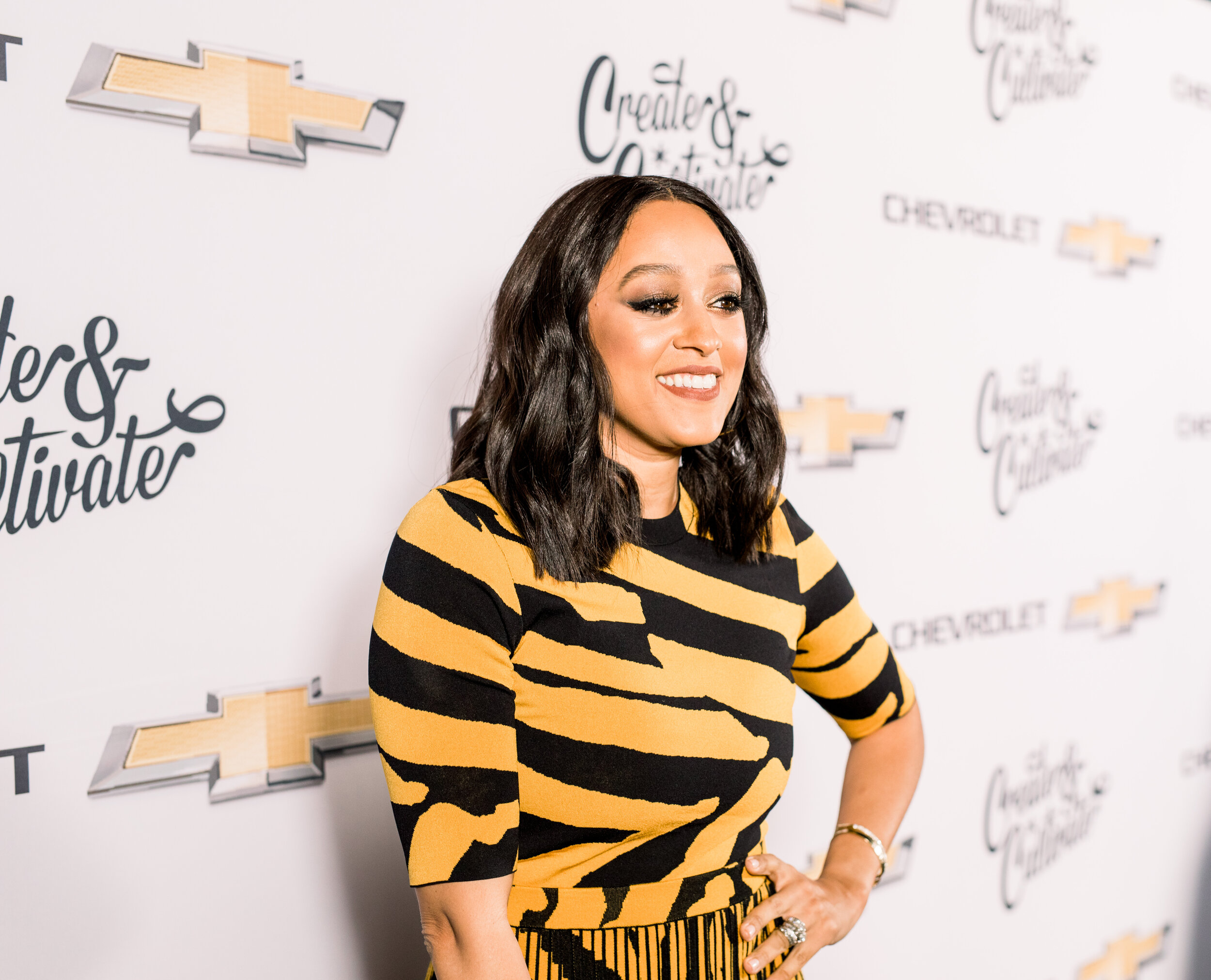
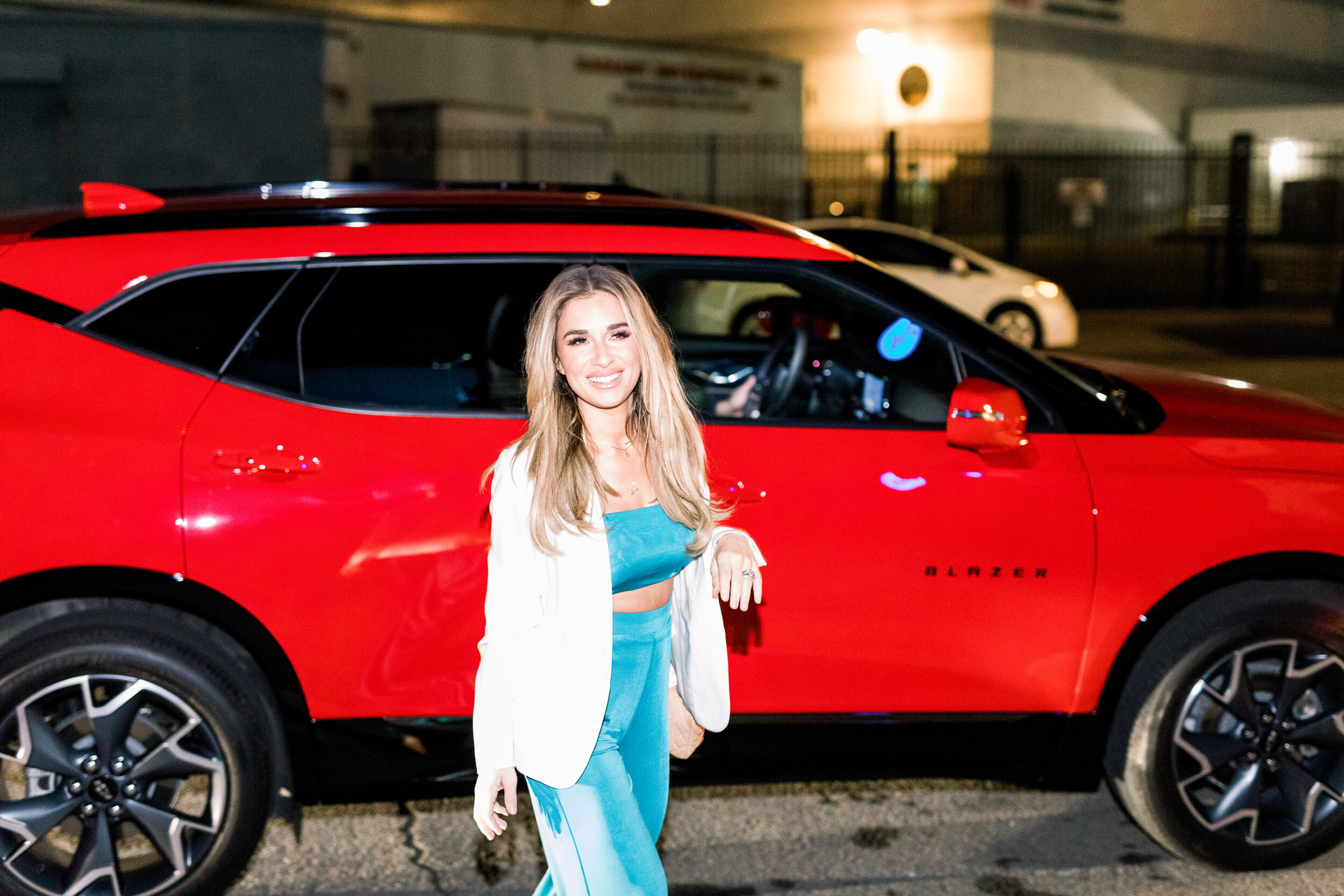
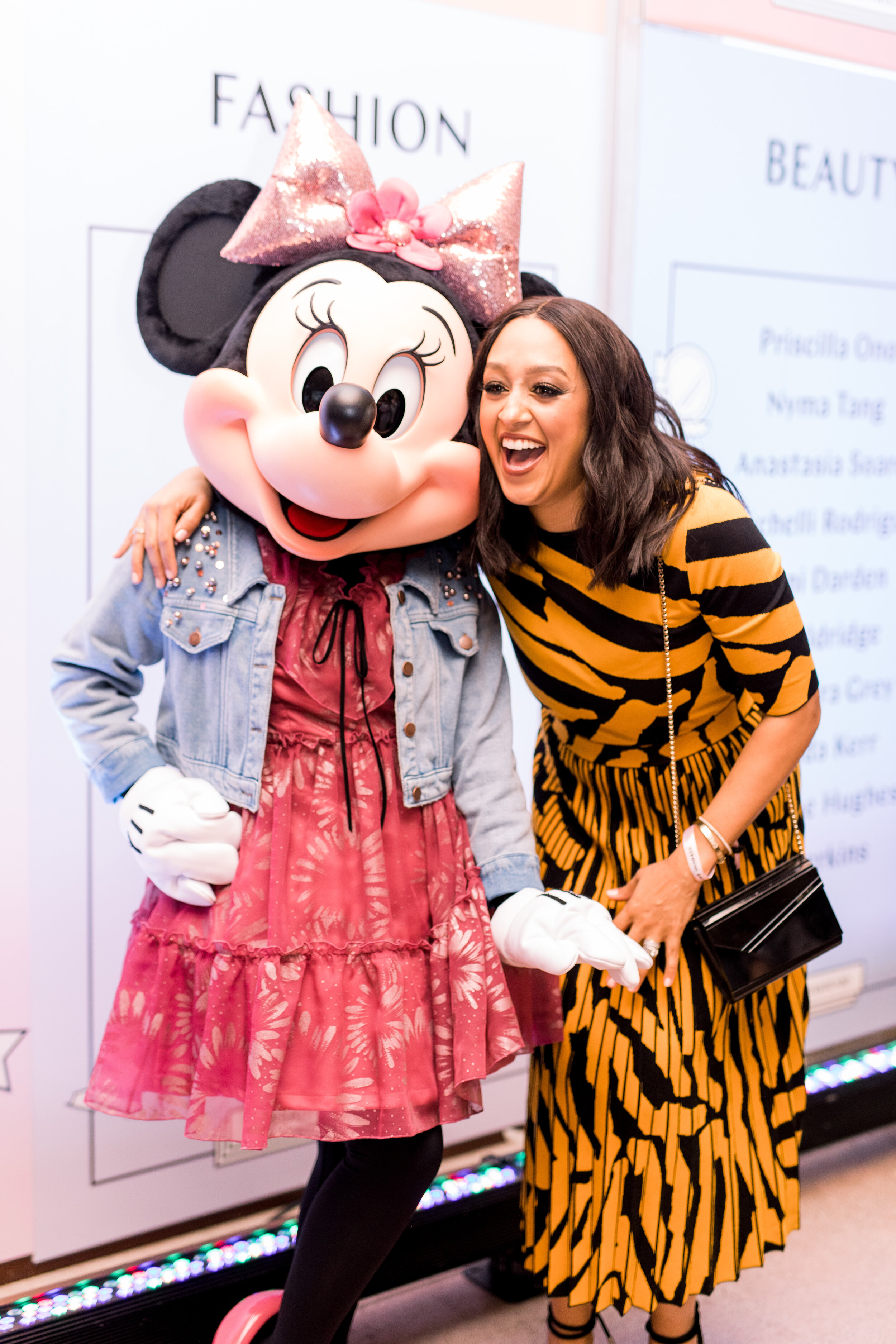
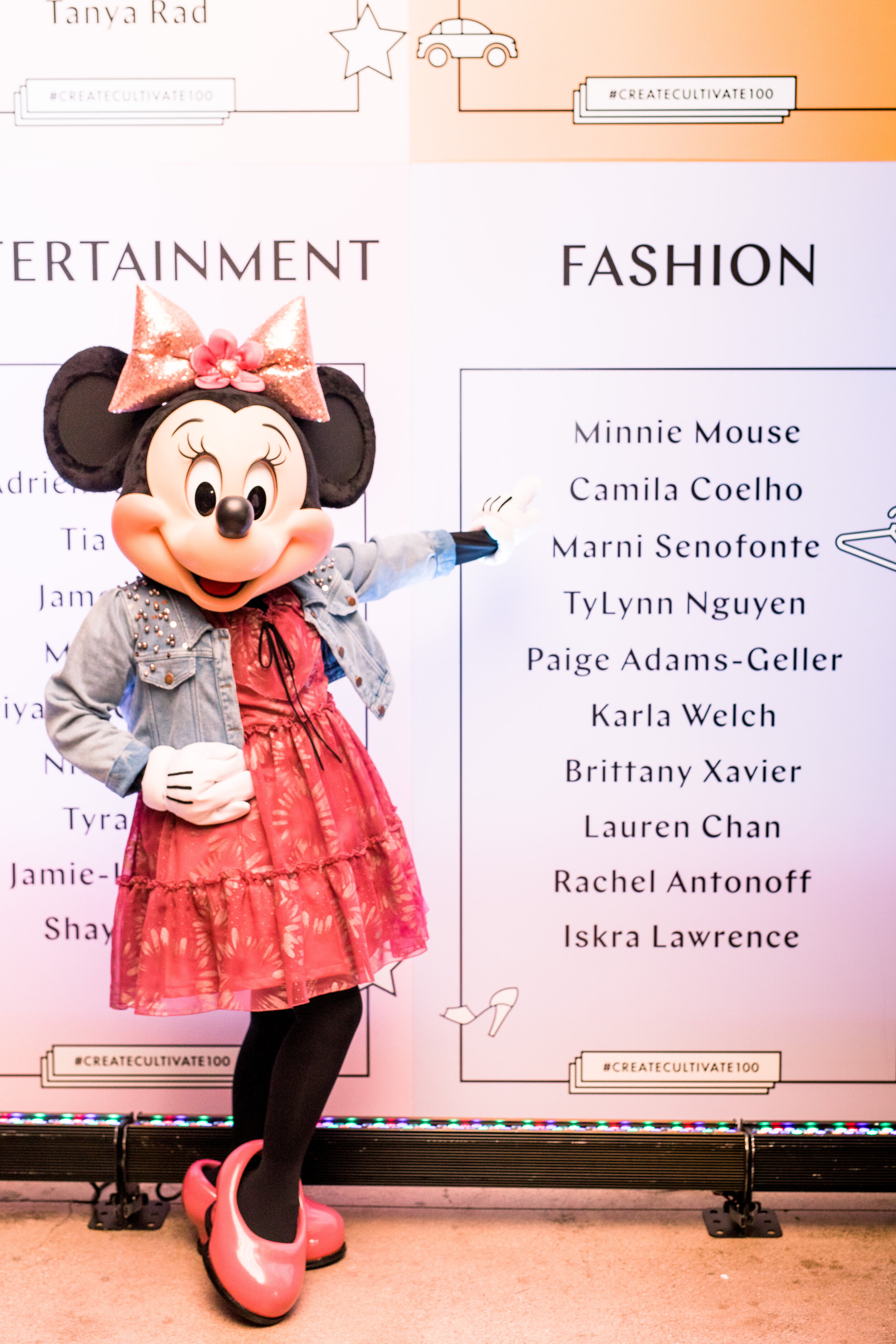
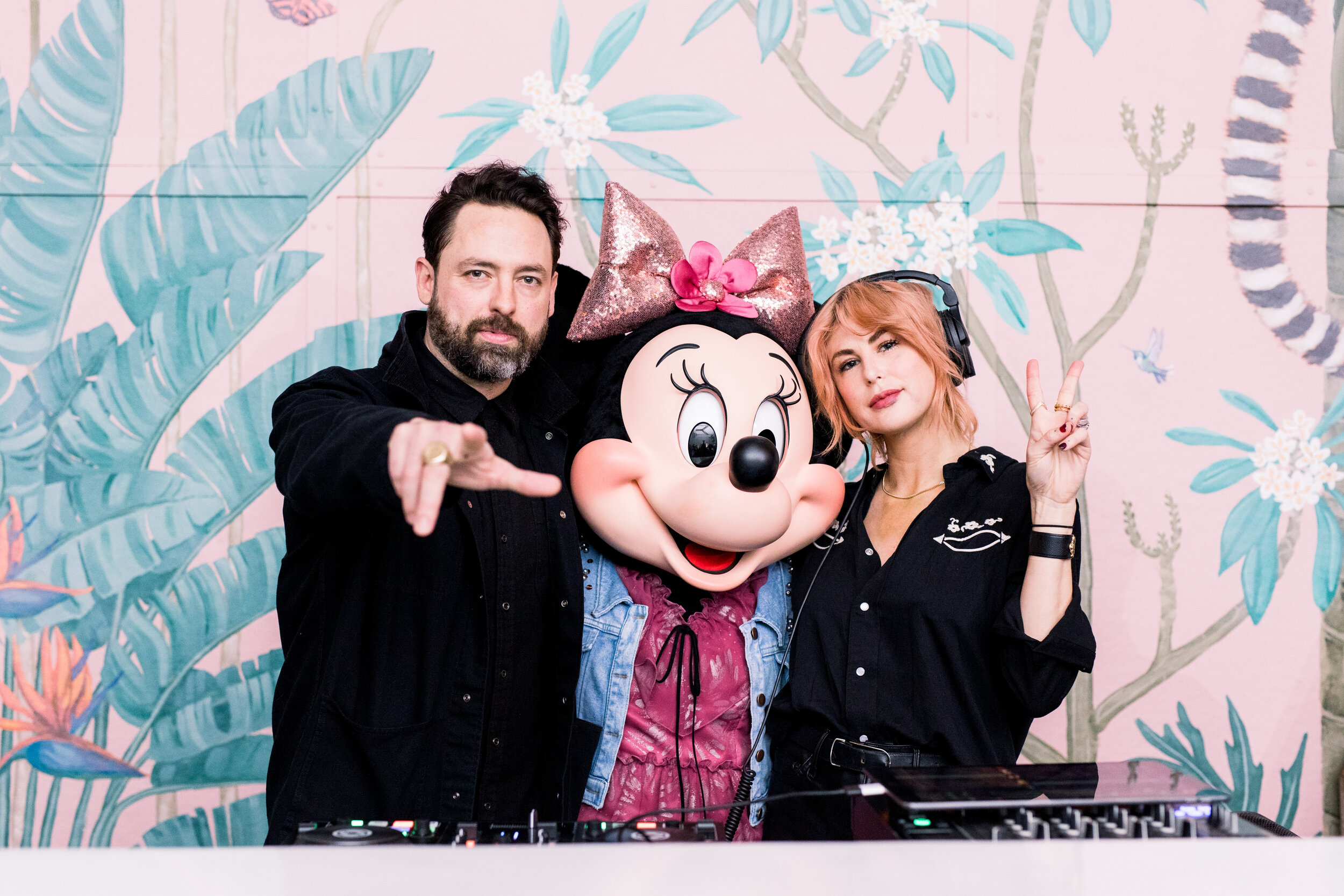
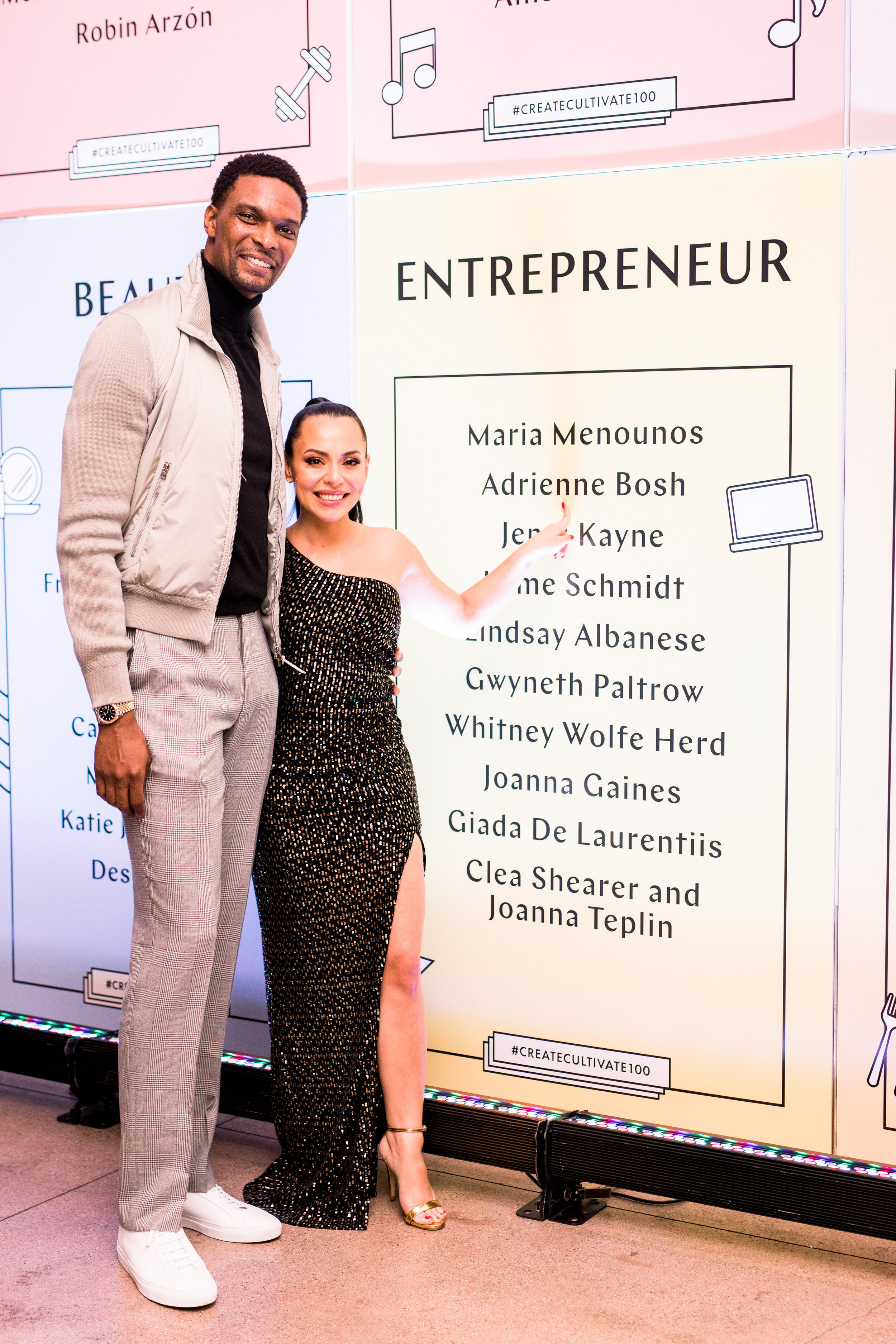
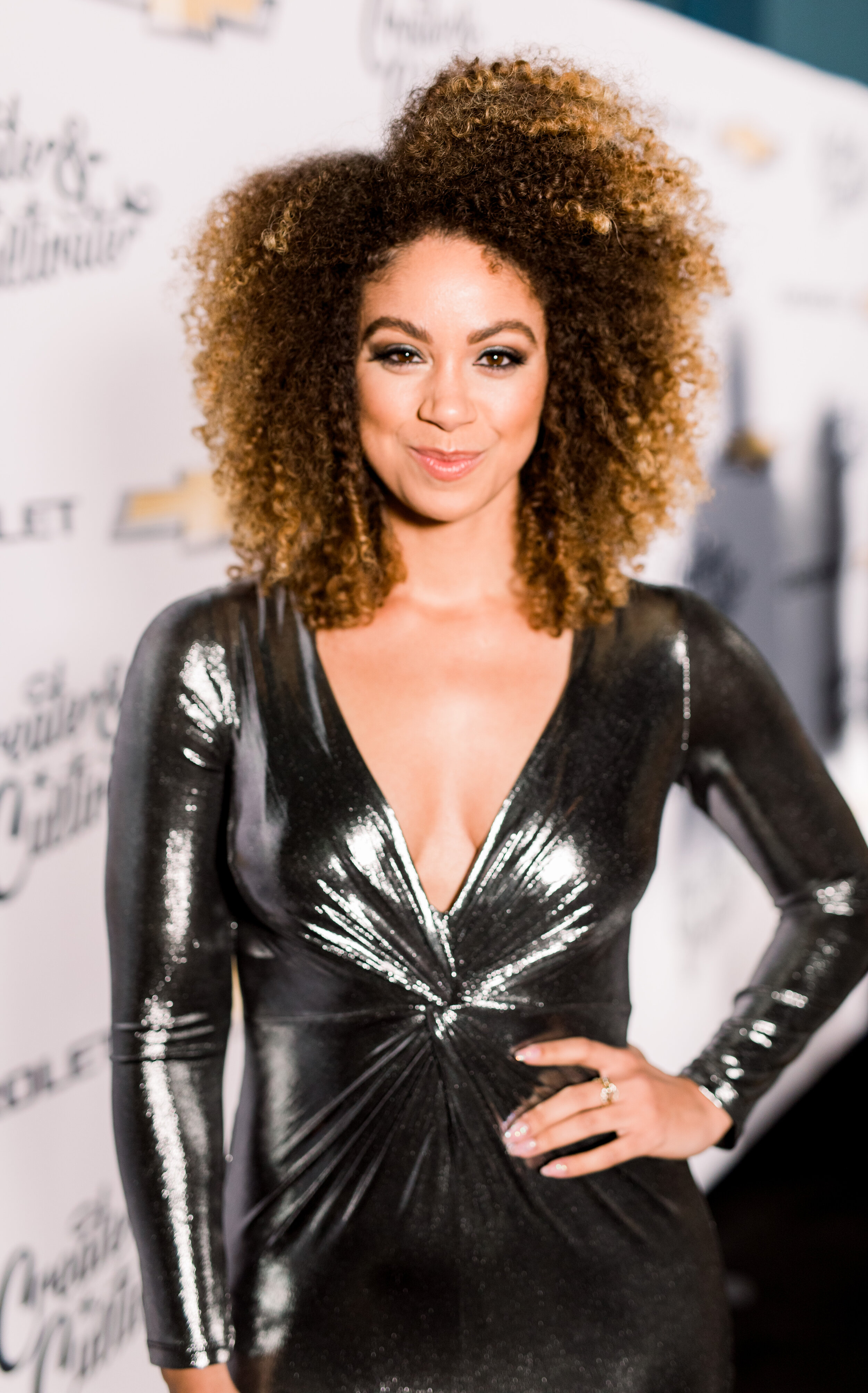
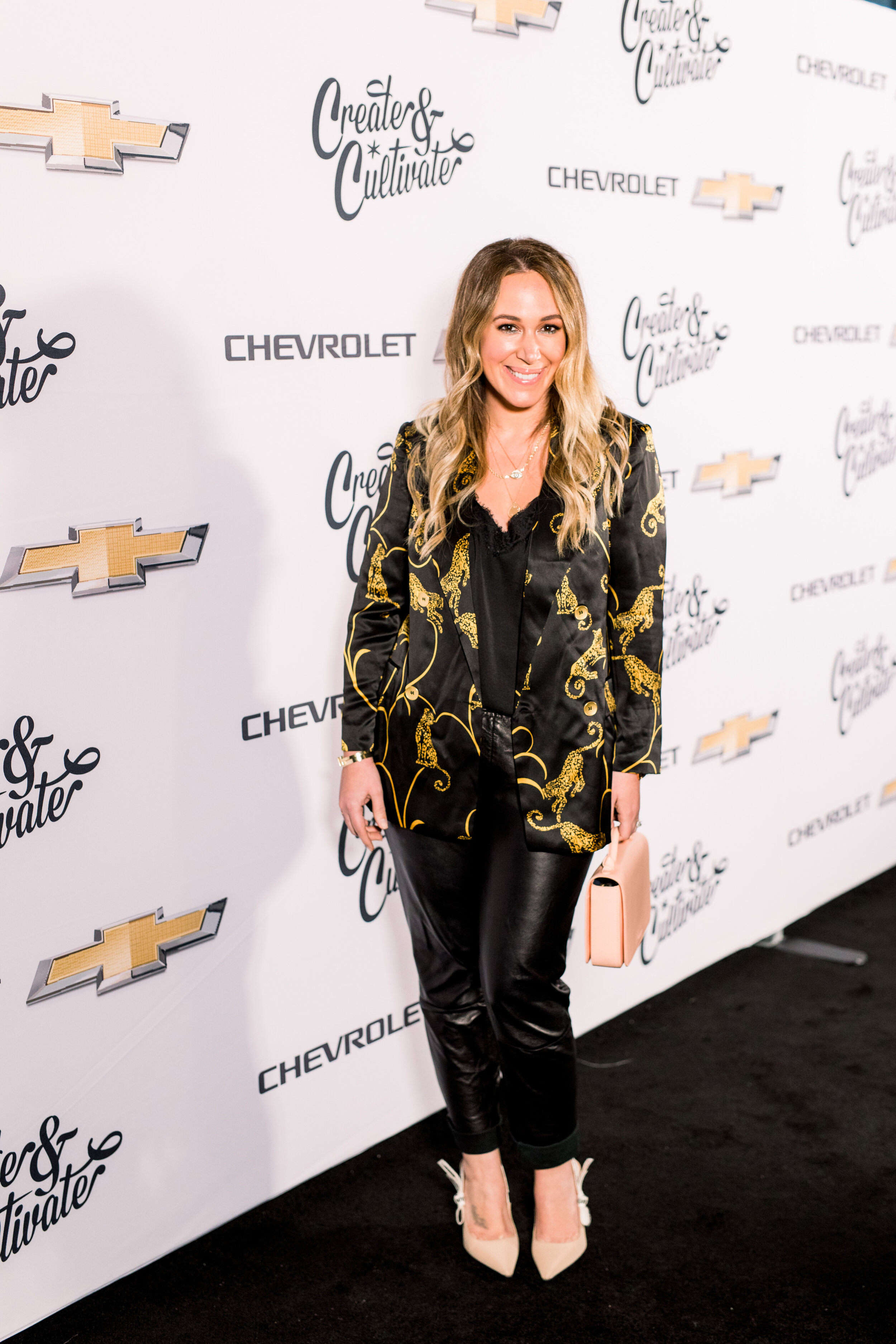
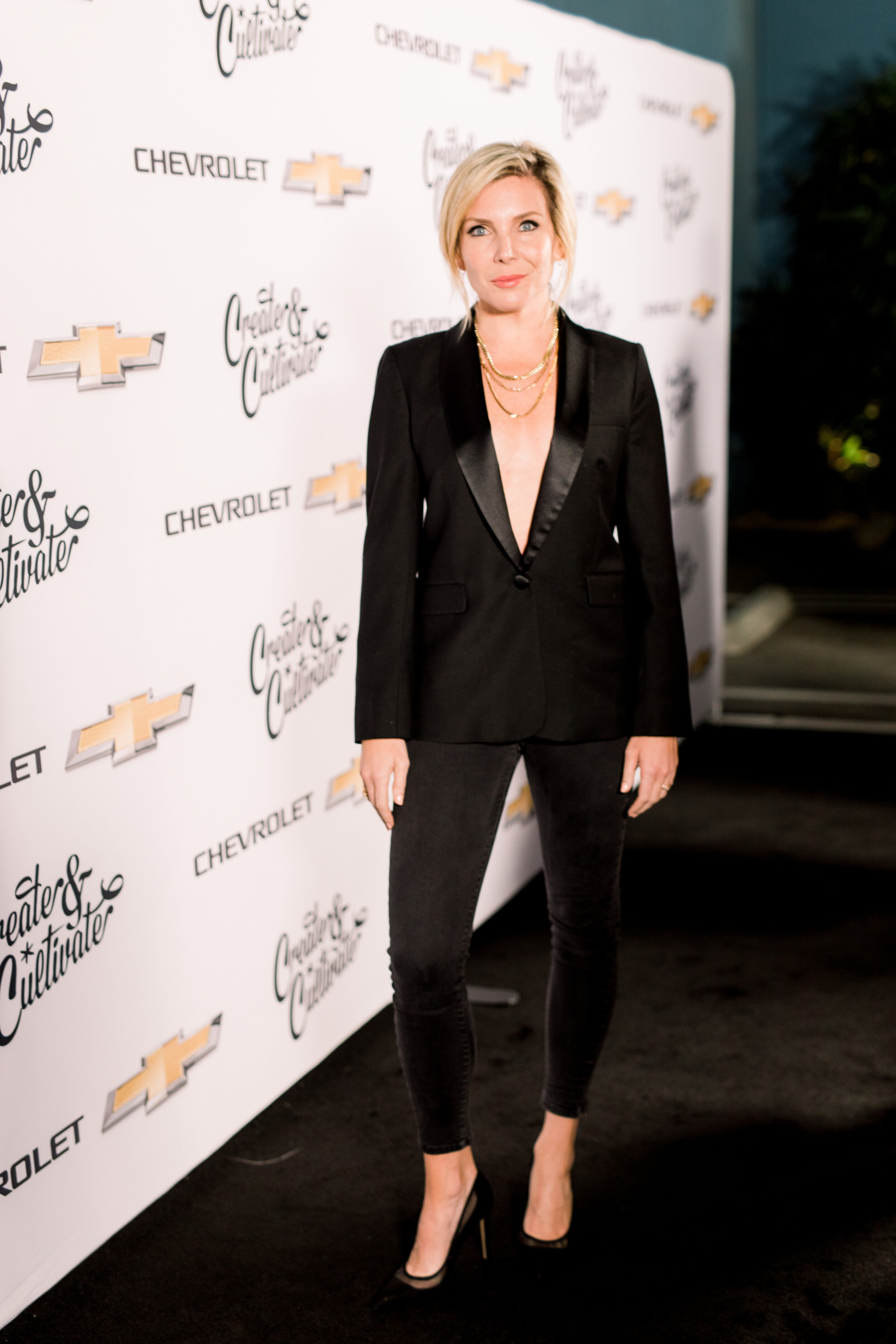
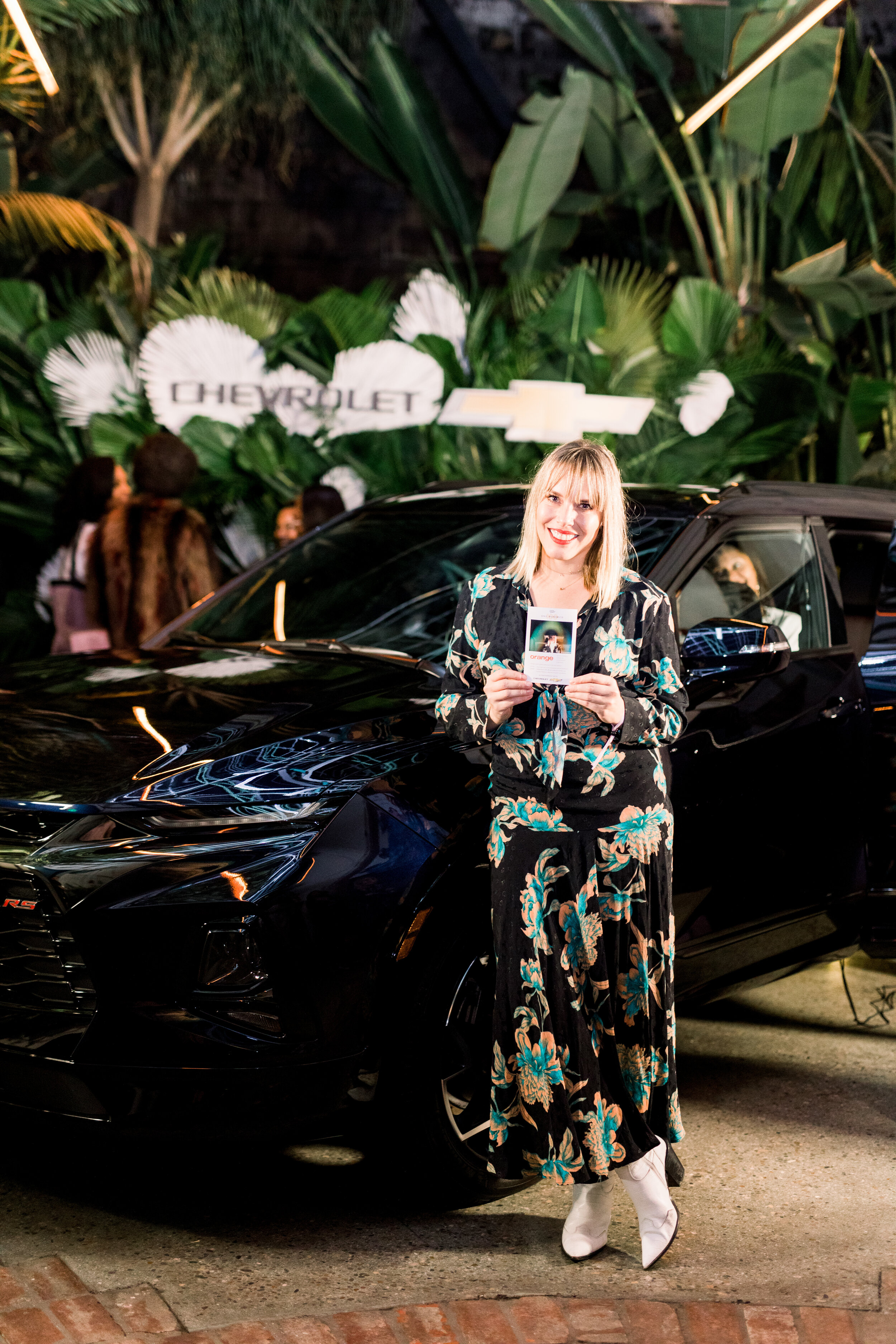
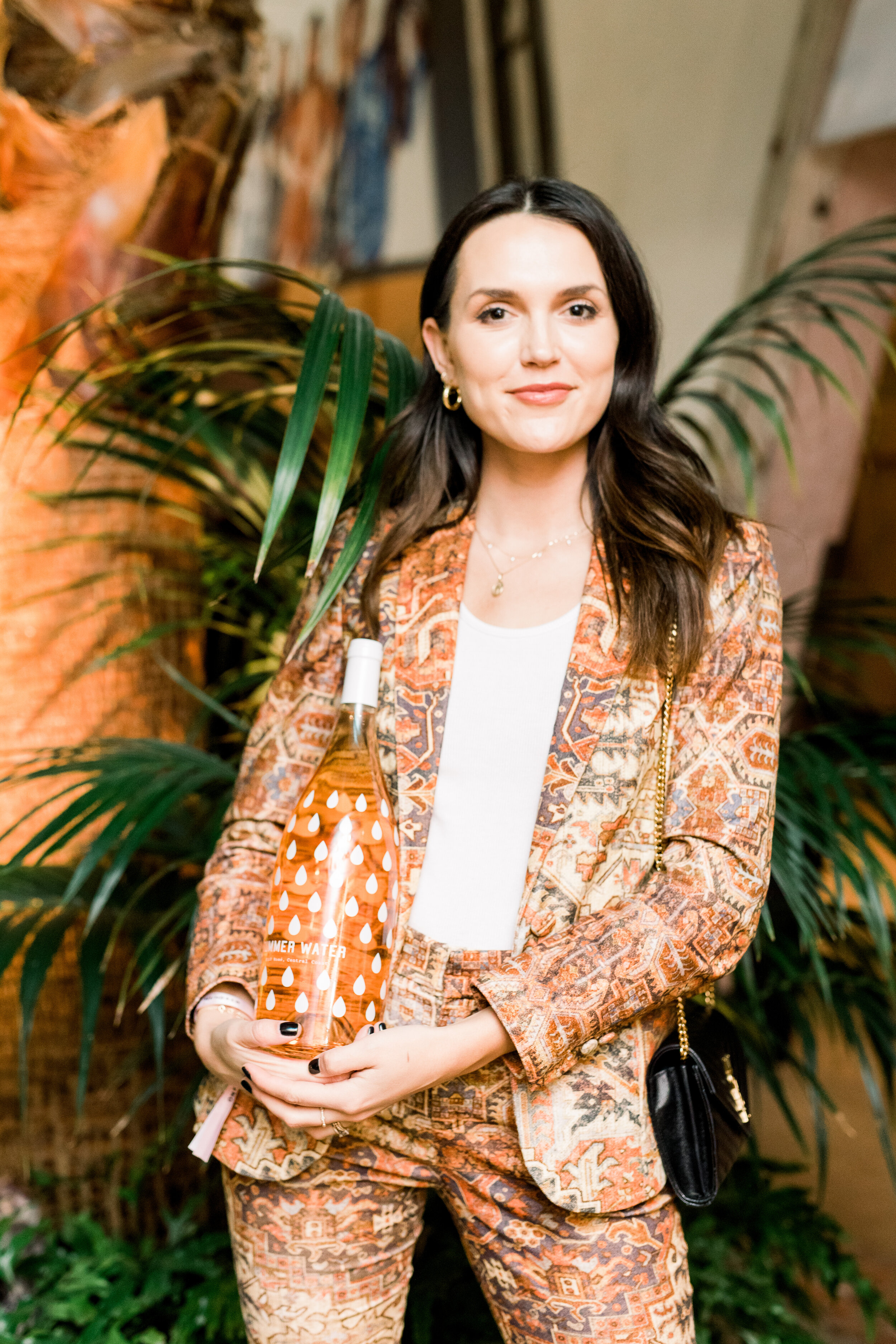
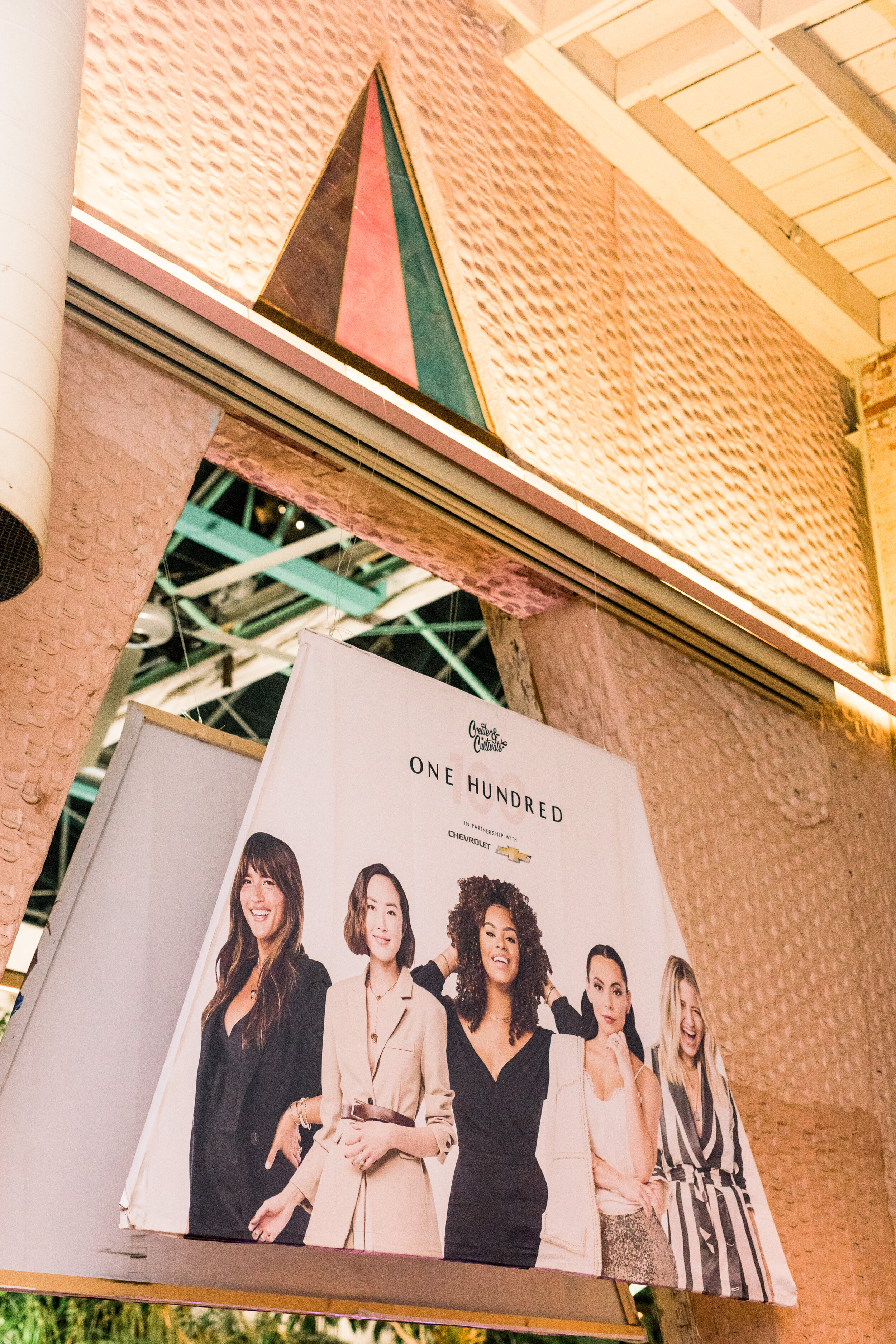
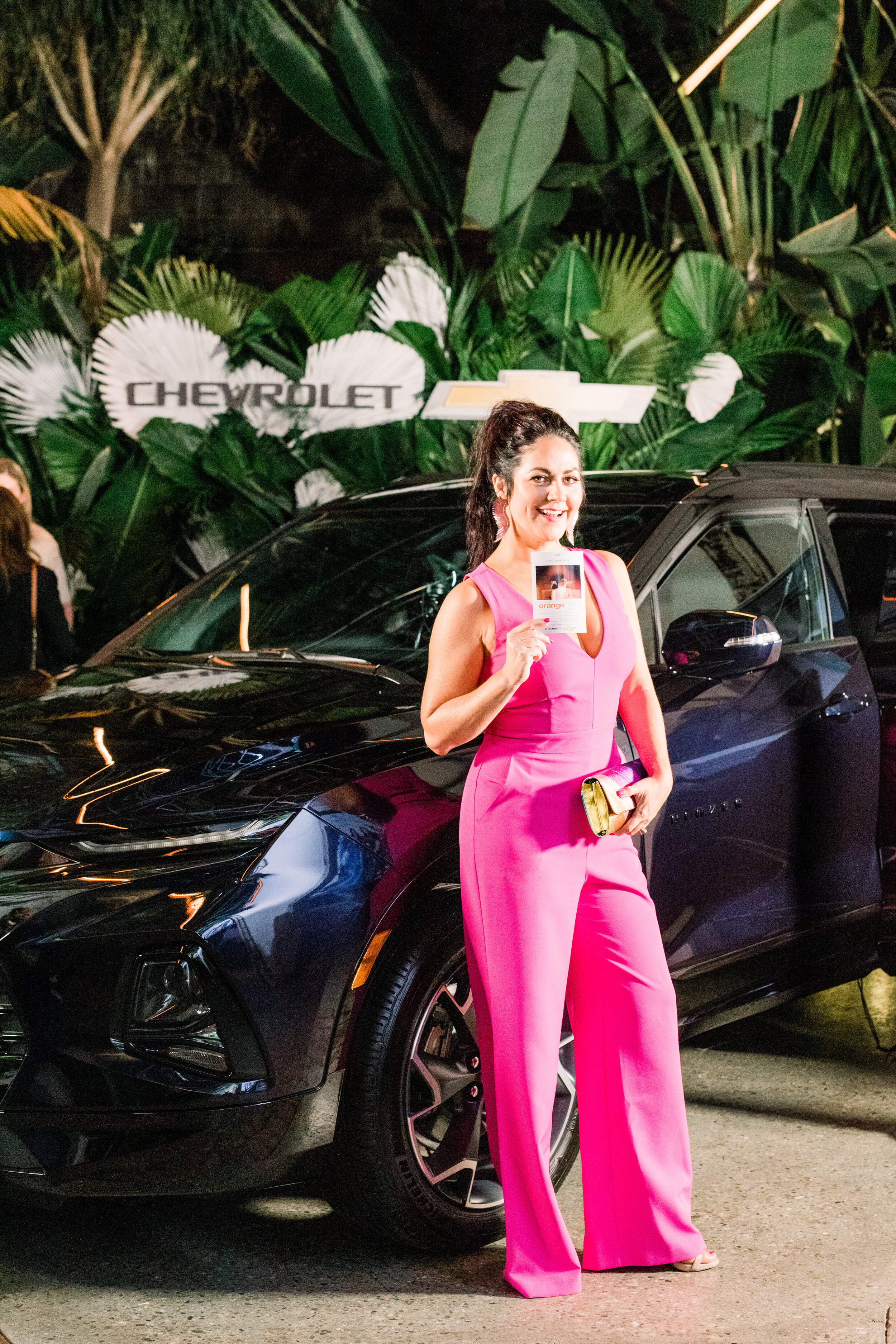
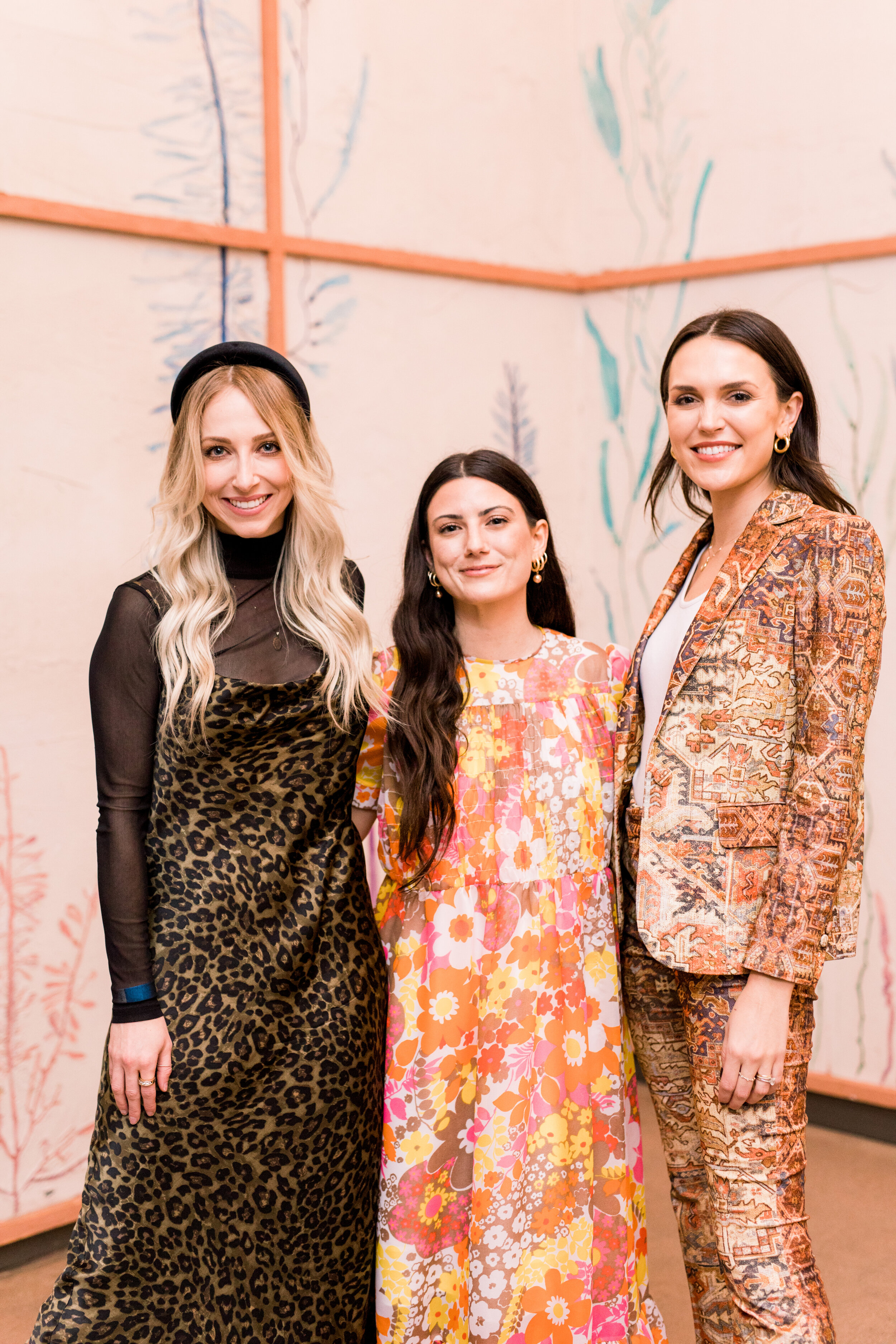
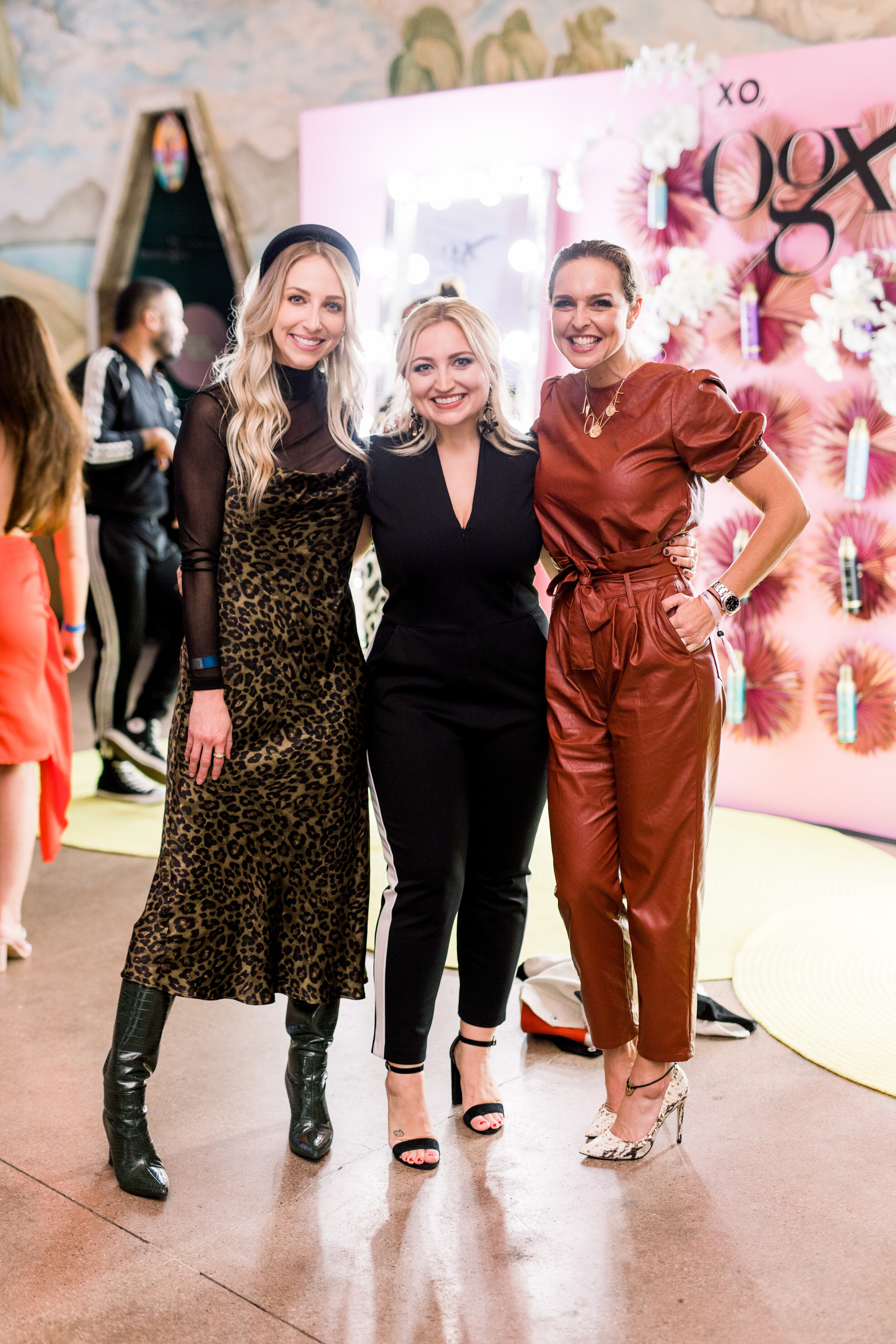
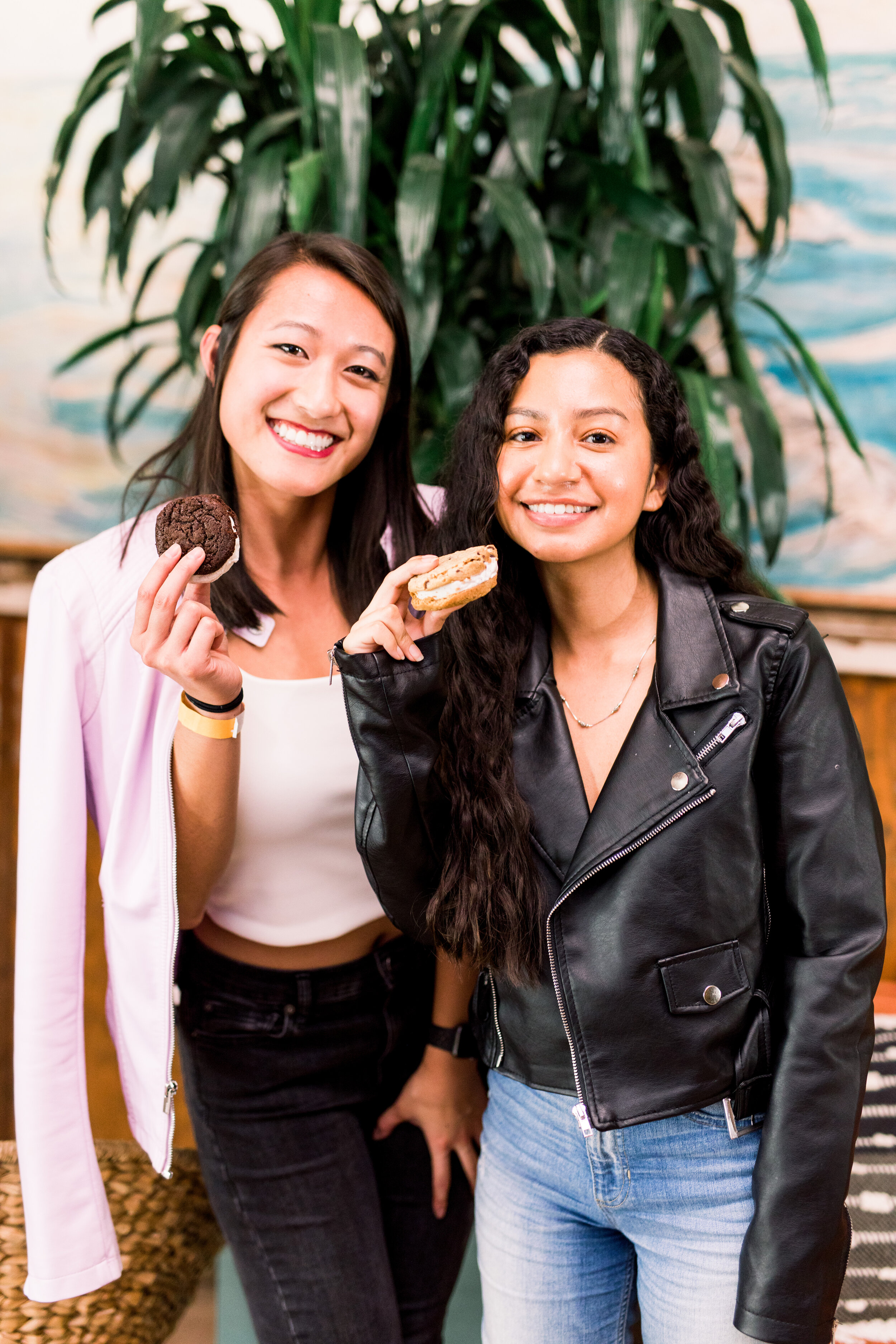
To celebrate the fourth Create & Cultivate 100 list in partnership with Chevrolet, we held a star-studded party in Los Angeles at the Valentine where guests experienced the amazing OM Booth, had their aura photo taken in the new Chevrolet Blazer, enjoyed hair touch-ups at the OGX pop-up, were served Coolhaus and Baked by Melissa treats, and sipped on delicious Winc wine as they danced the night away to Phantogram’s killer tunes.
We were so thrilled to have so many of our 100 honorees and supporters join us on the red carpet too including Tia Mowry, Arielle Vandenberg, Jessie James Decker, Noelle Scaggs, Hillary Duff, and so much more. This list continues to inspire and empower the next generation to ditch tradition, disrupt industries, and forge their own path.
Read on to see more photos from the night.
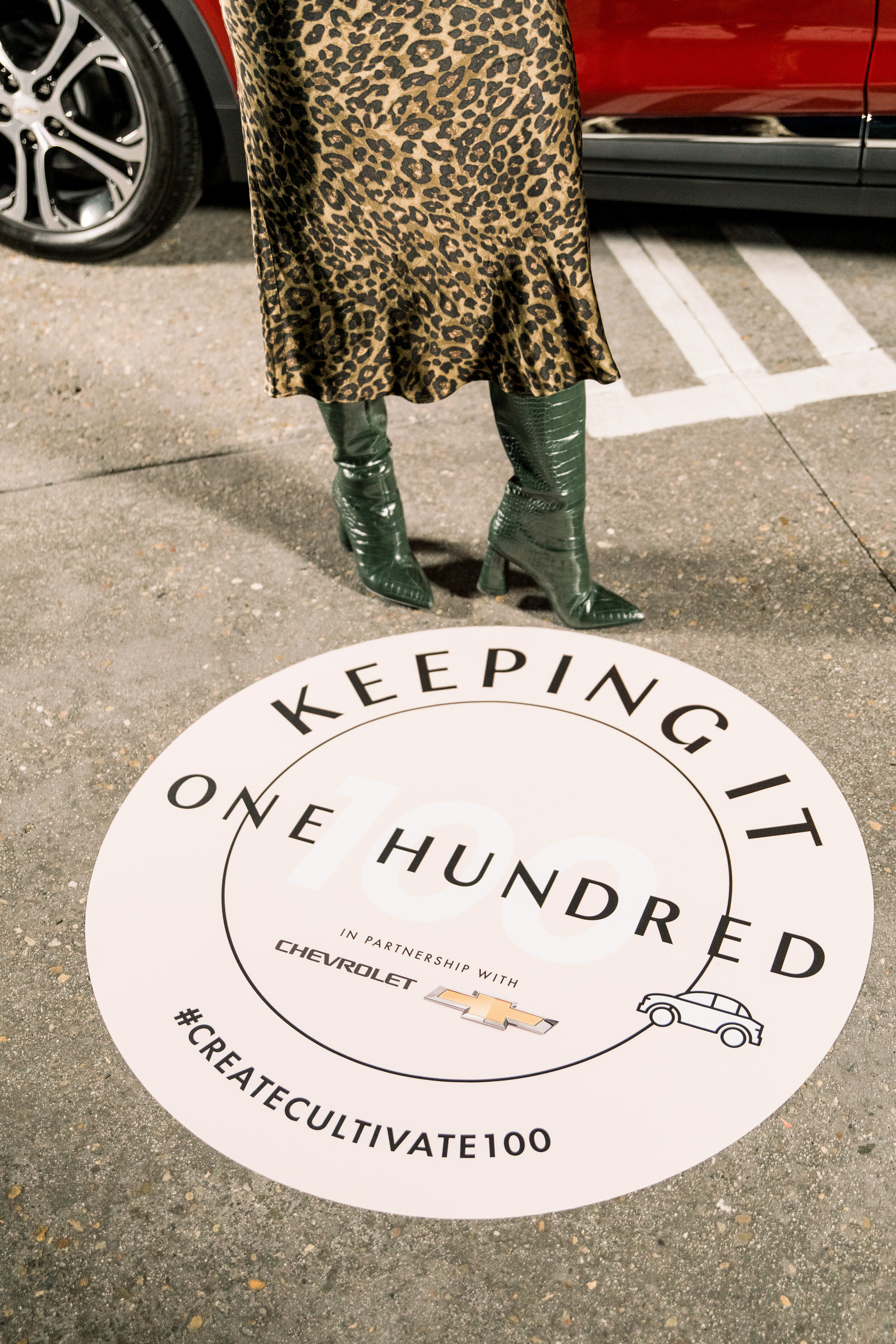
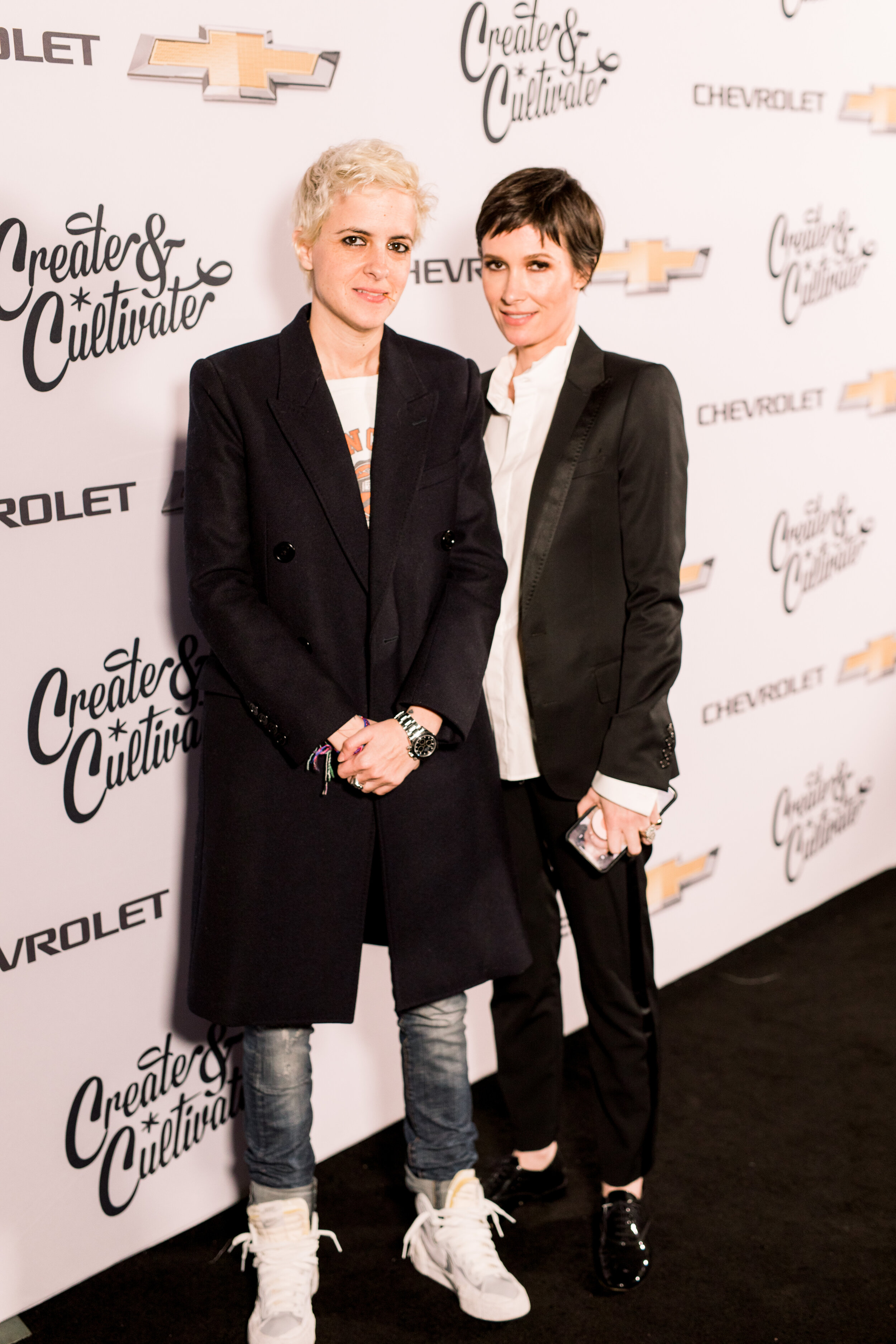
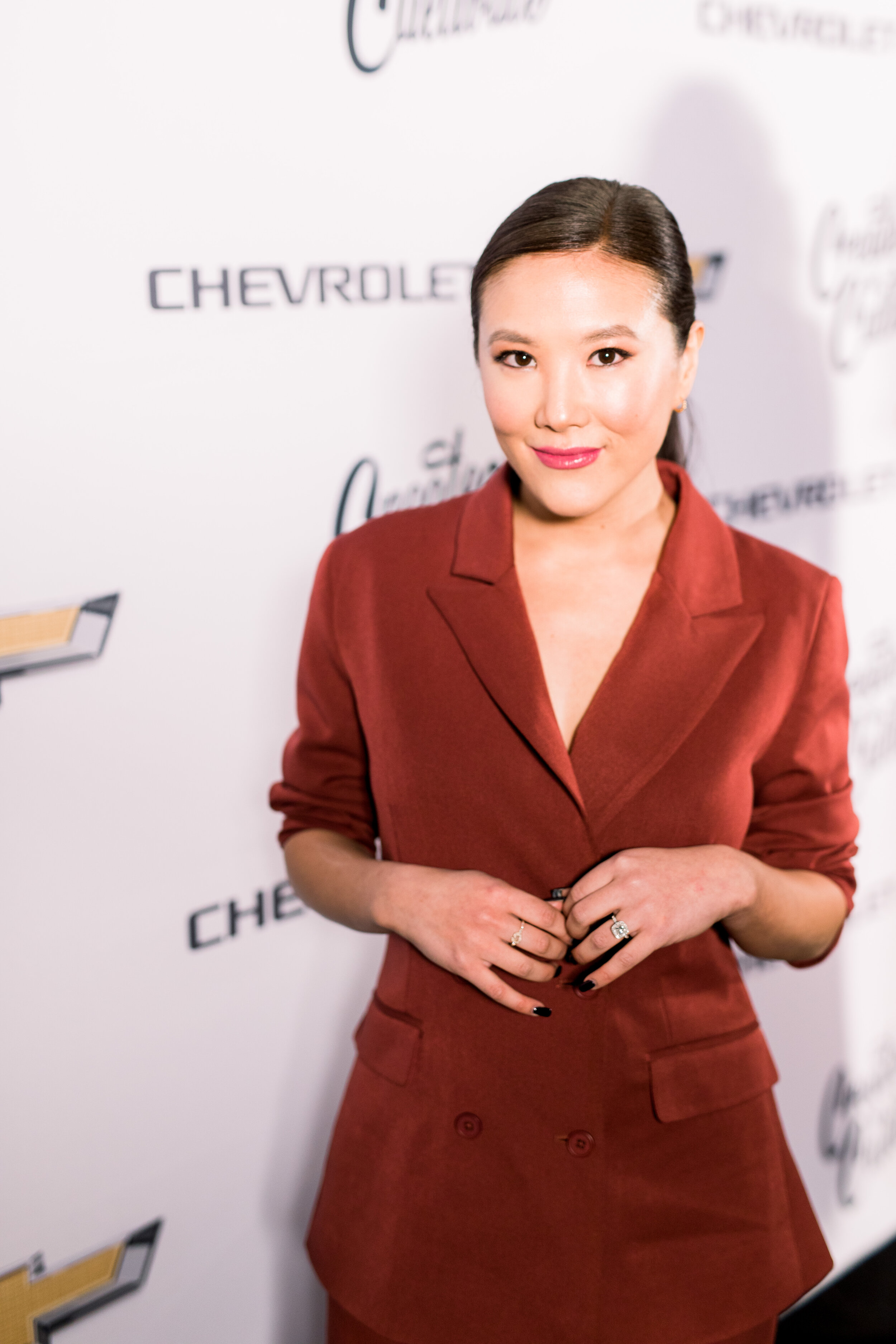
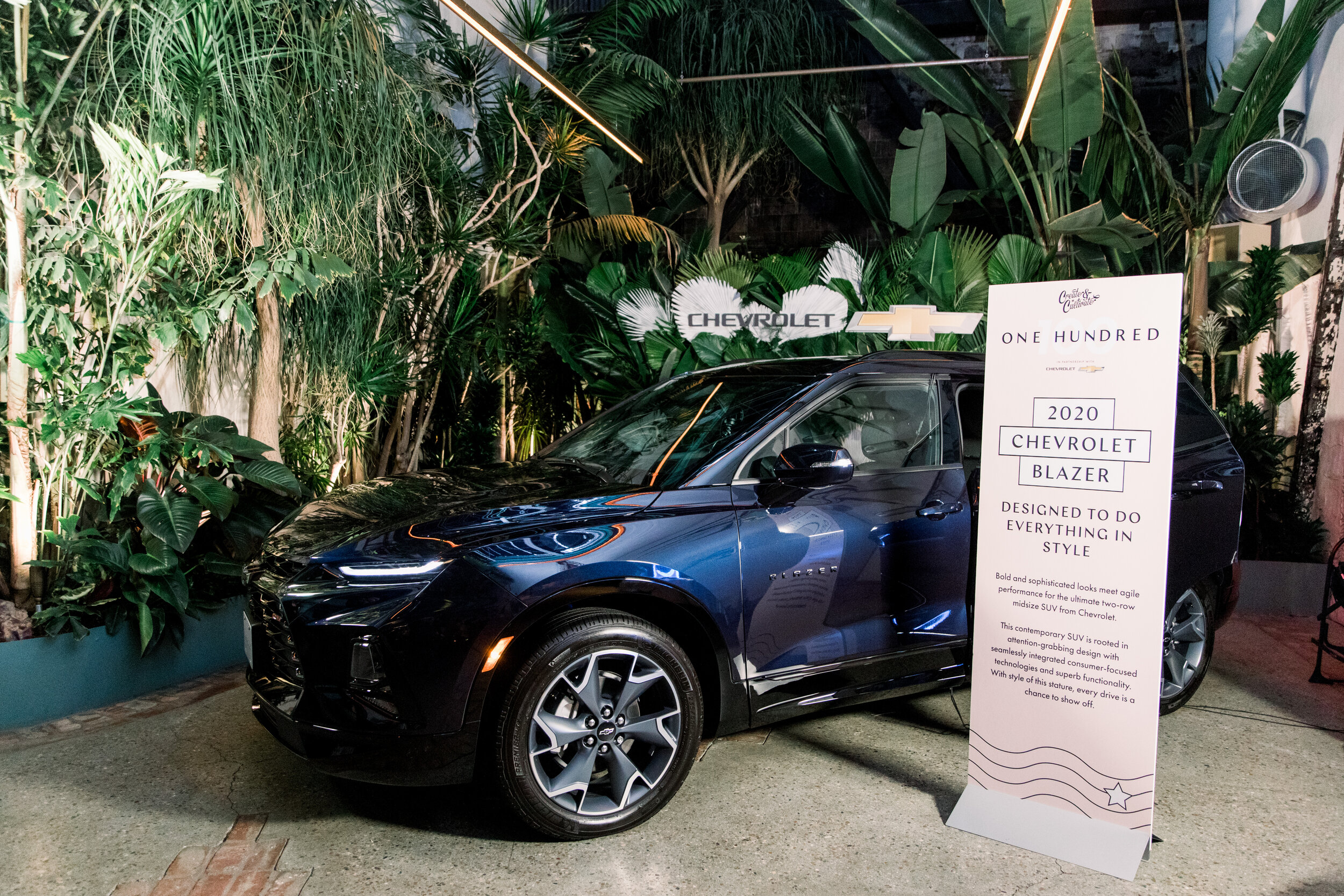
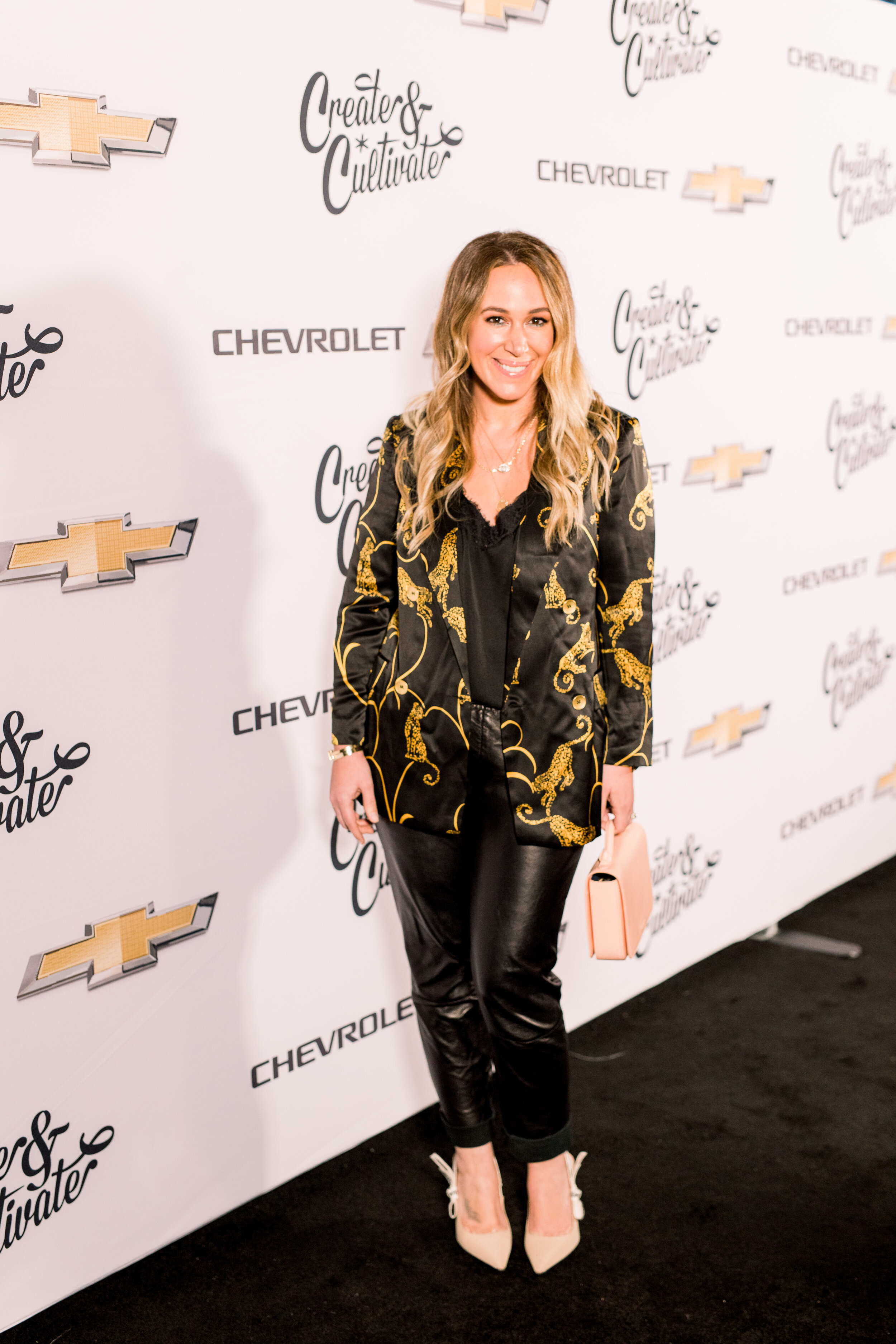
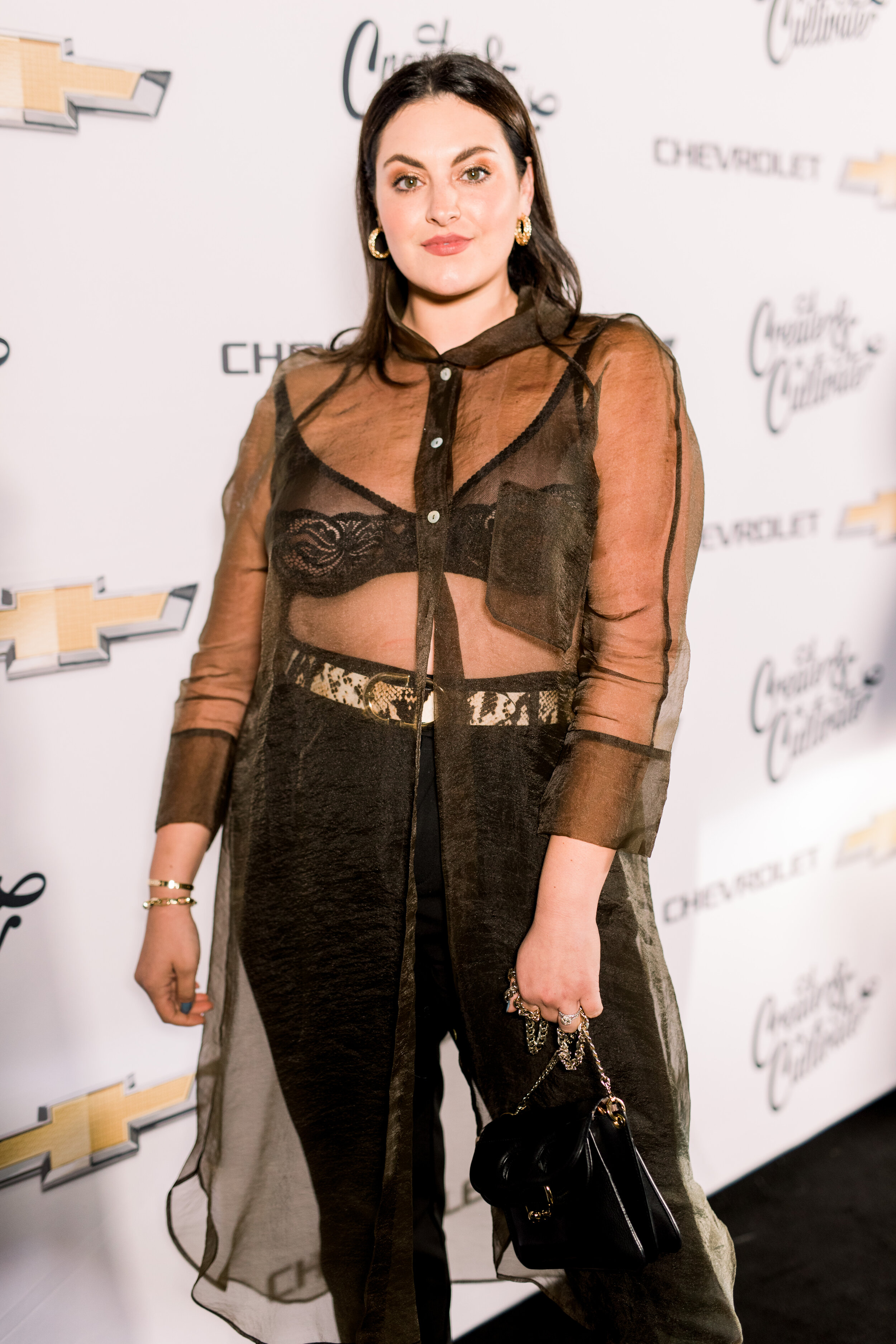
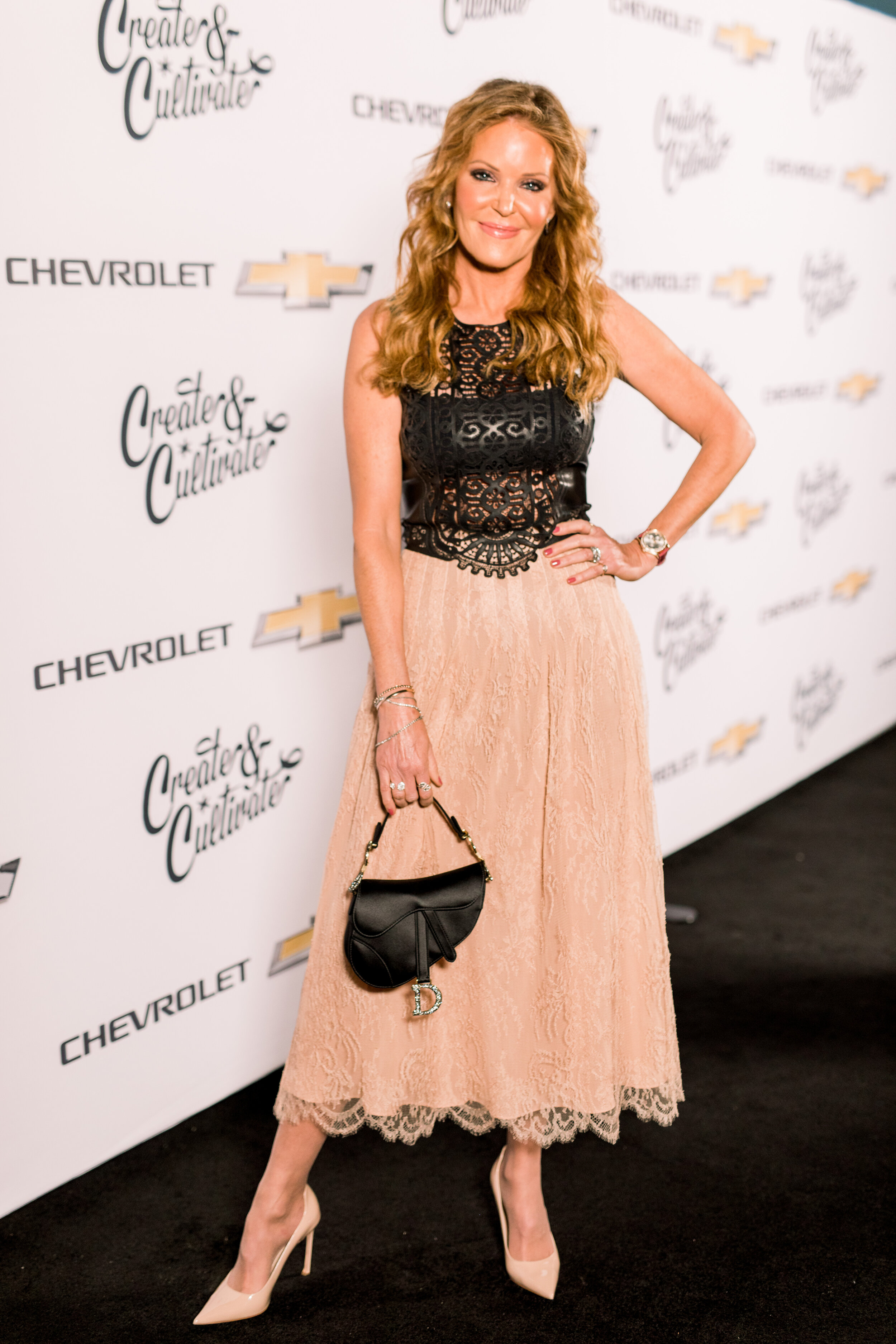
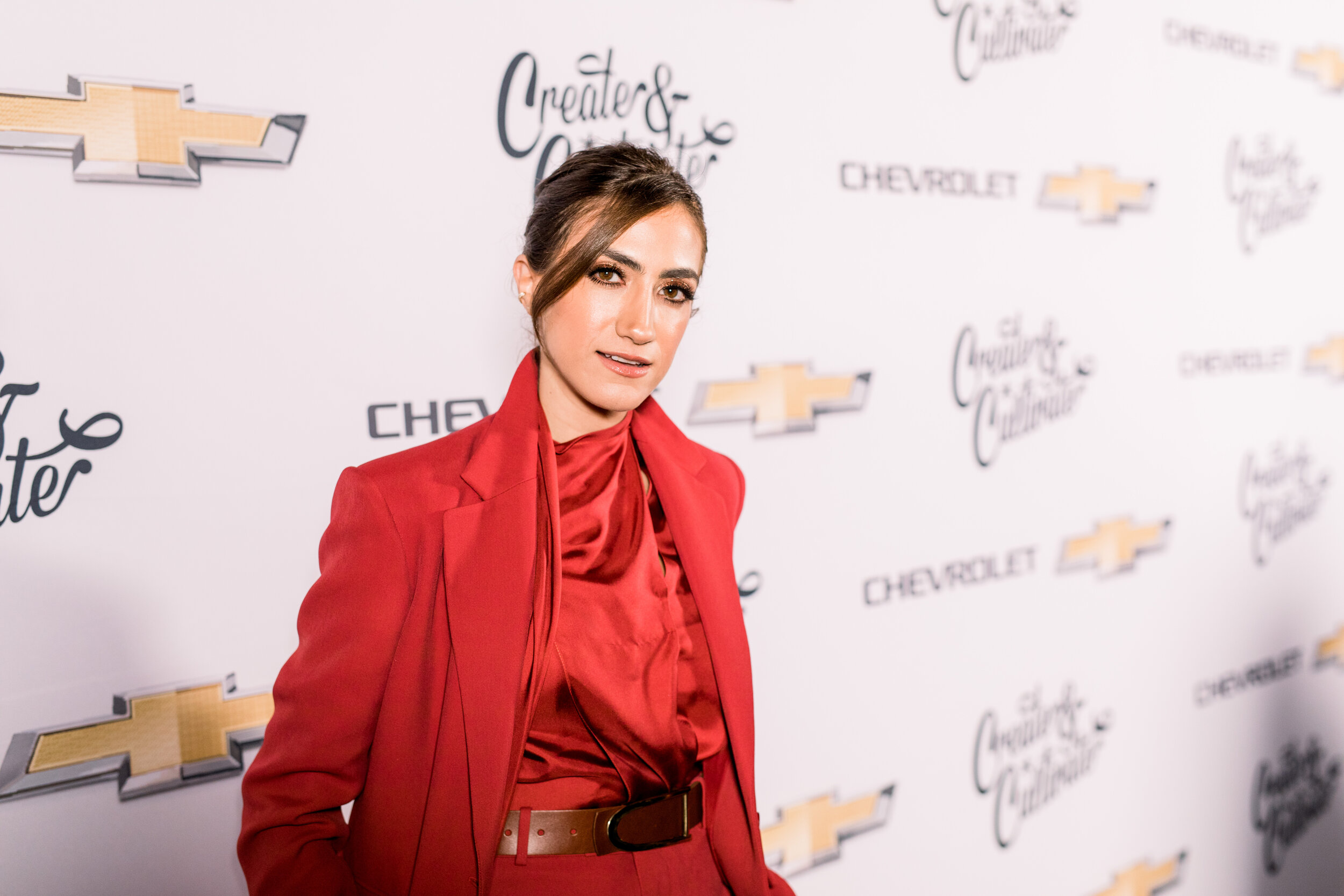
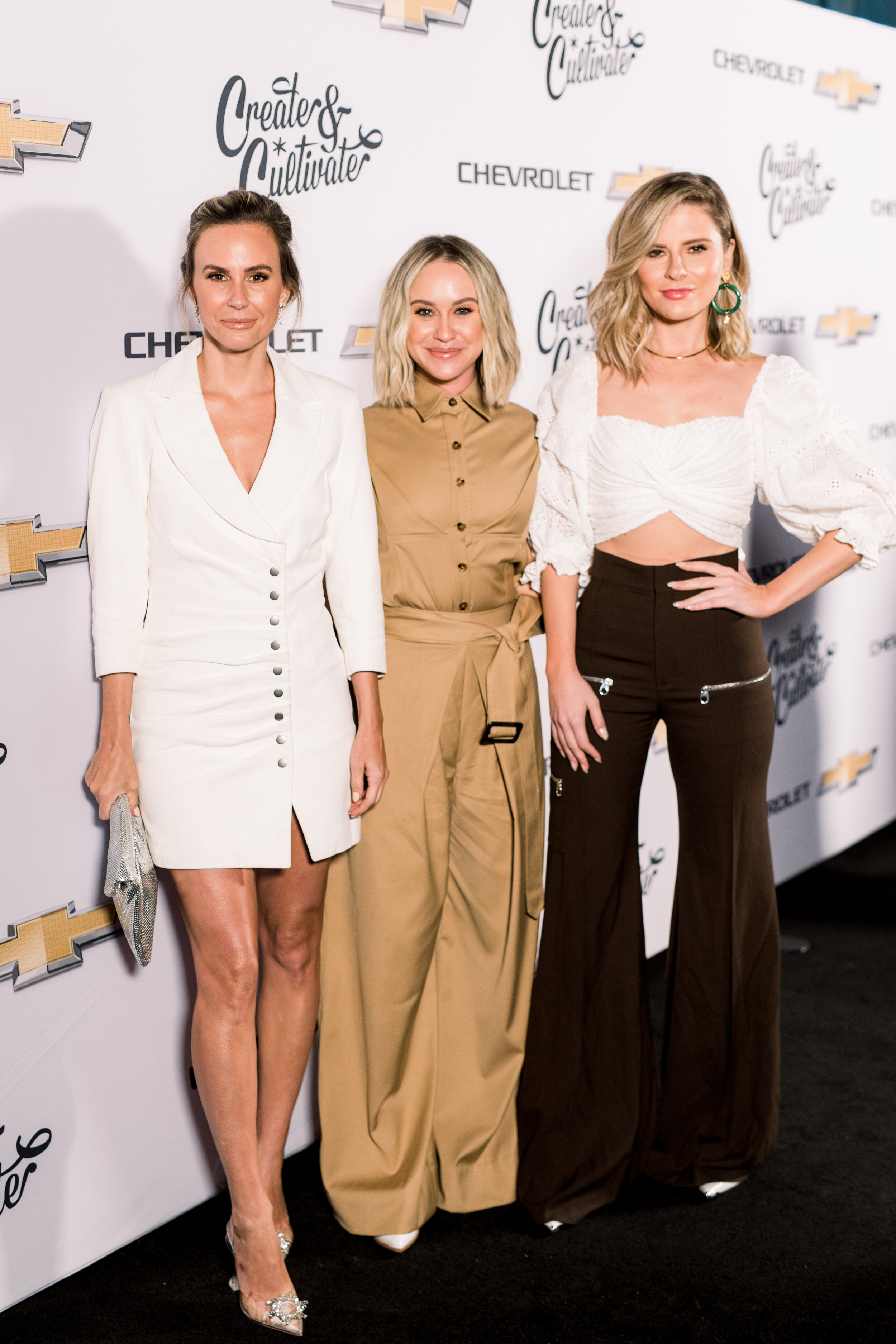
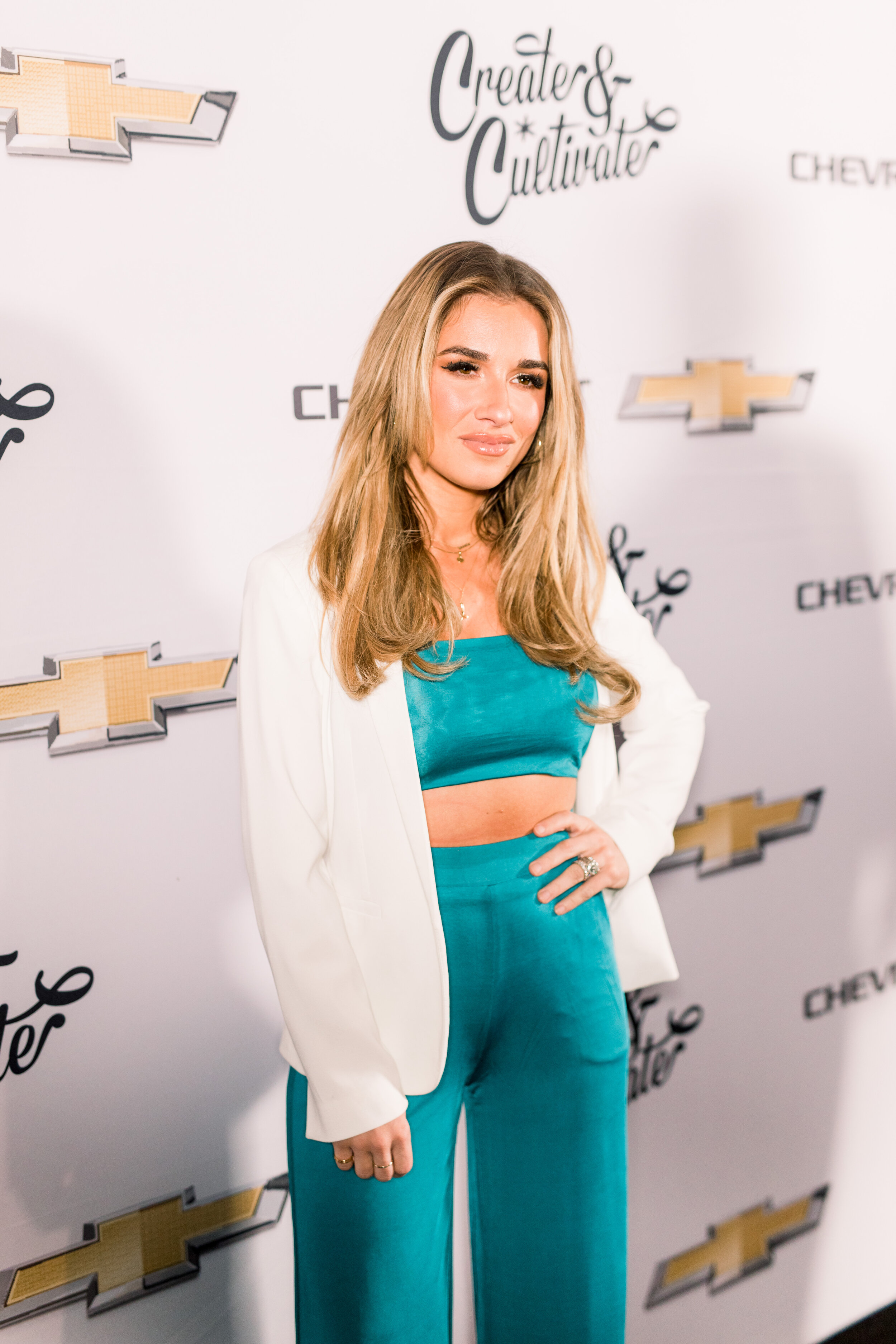
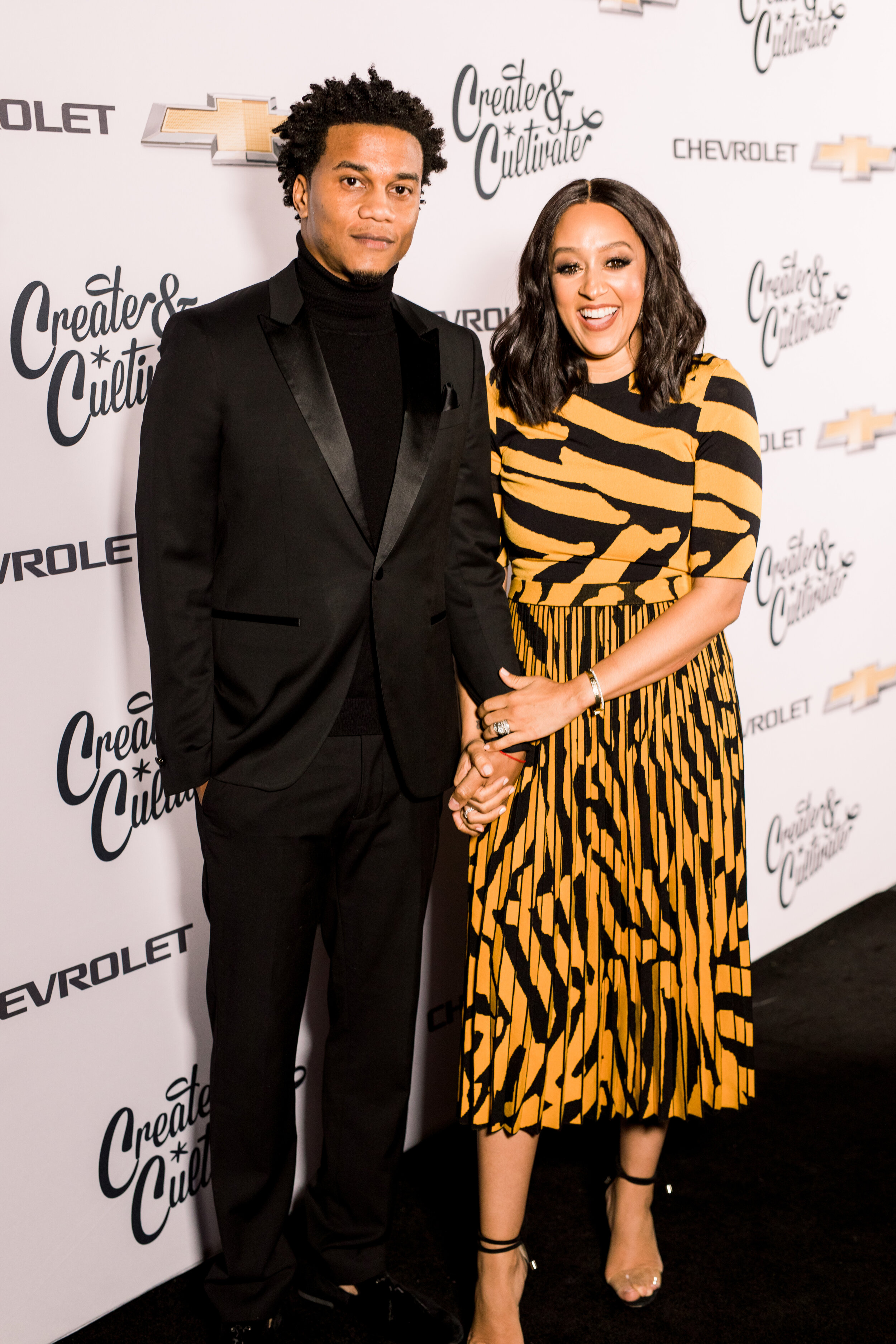
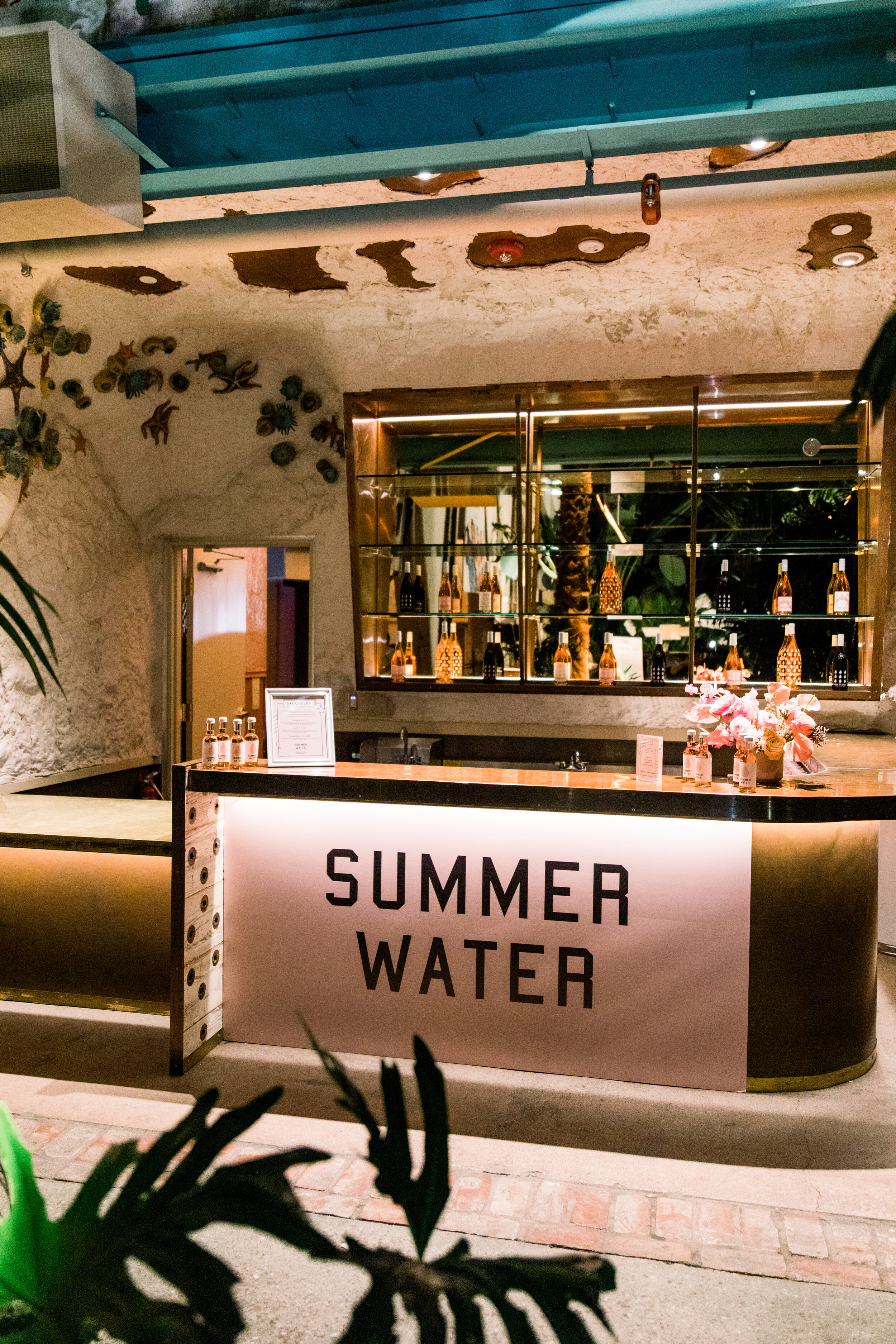
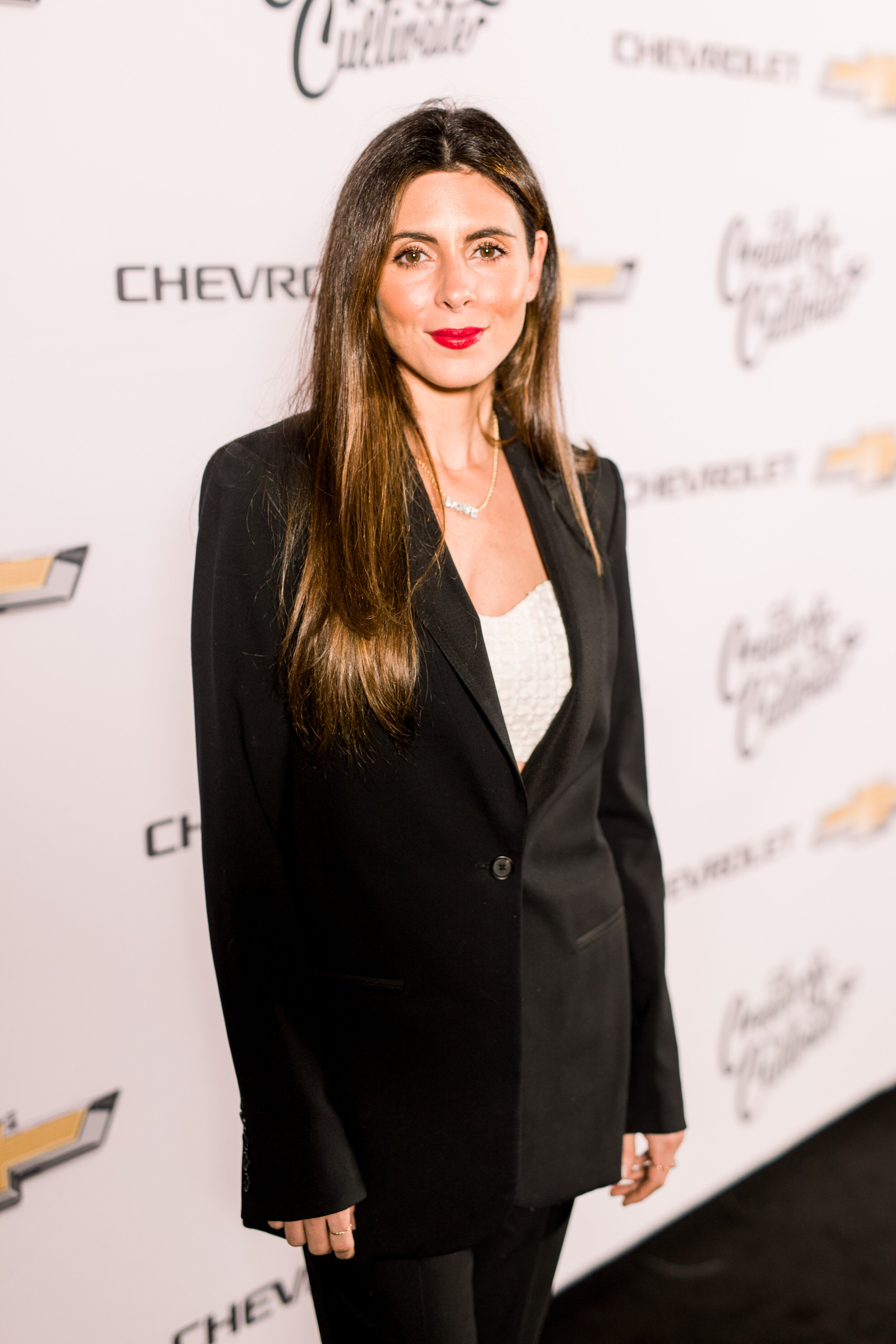
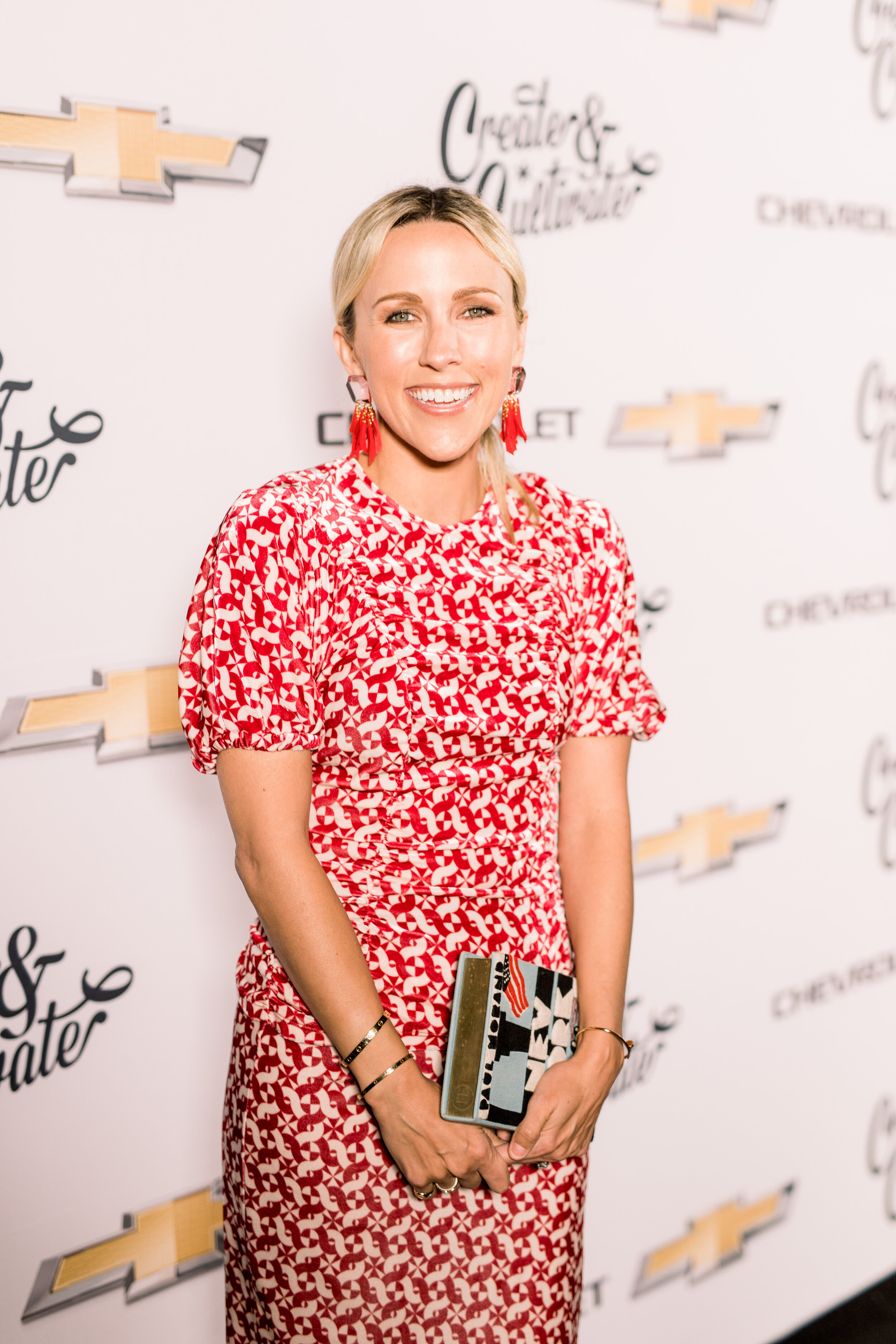
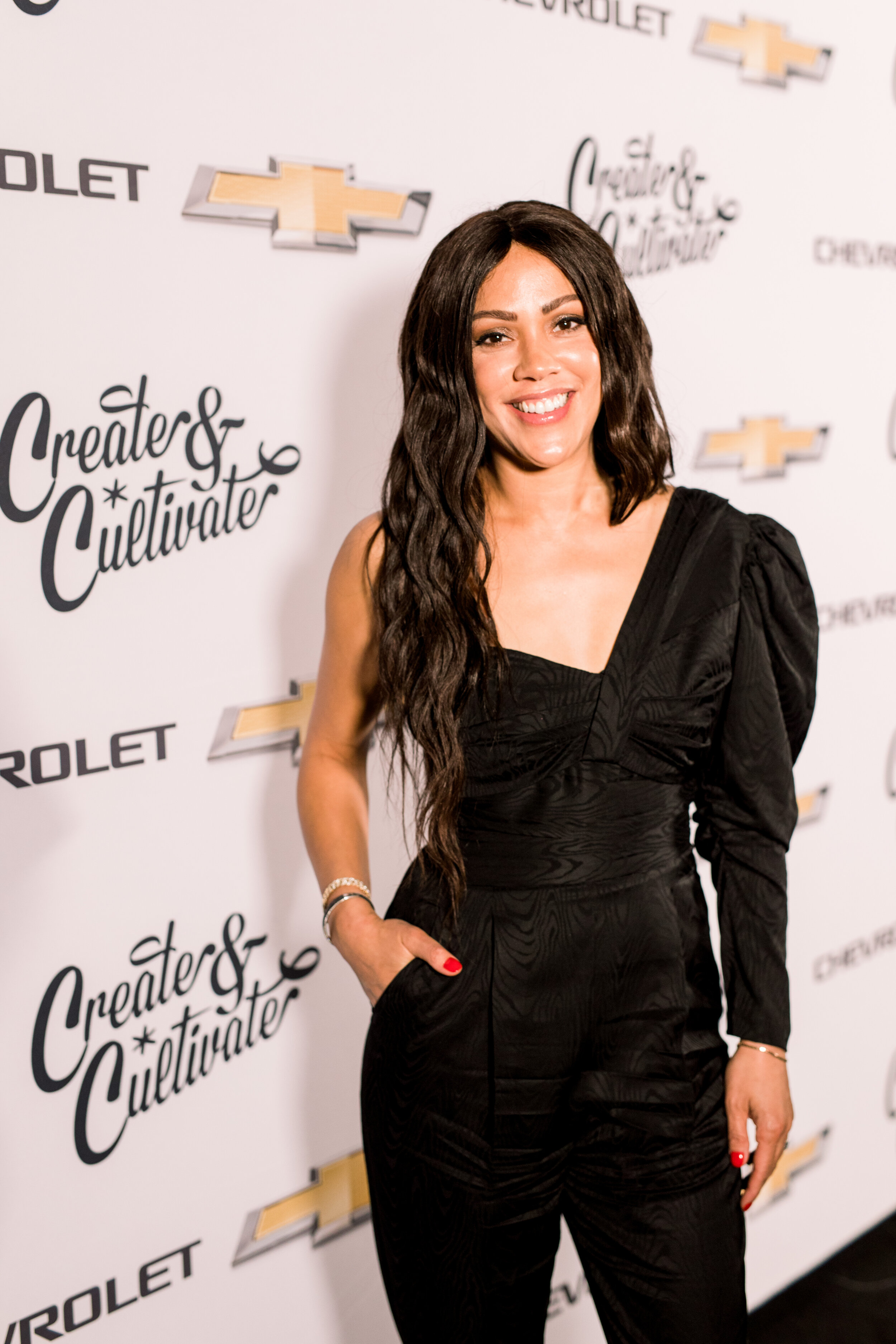
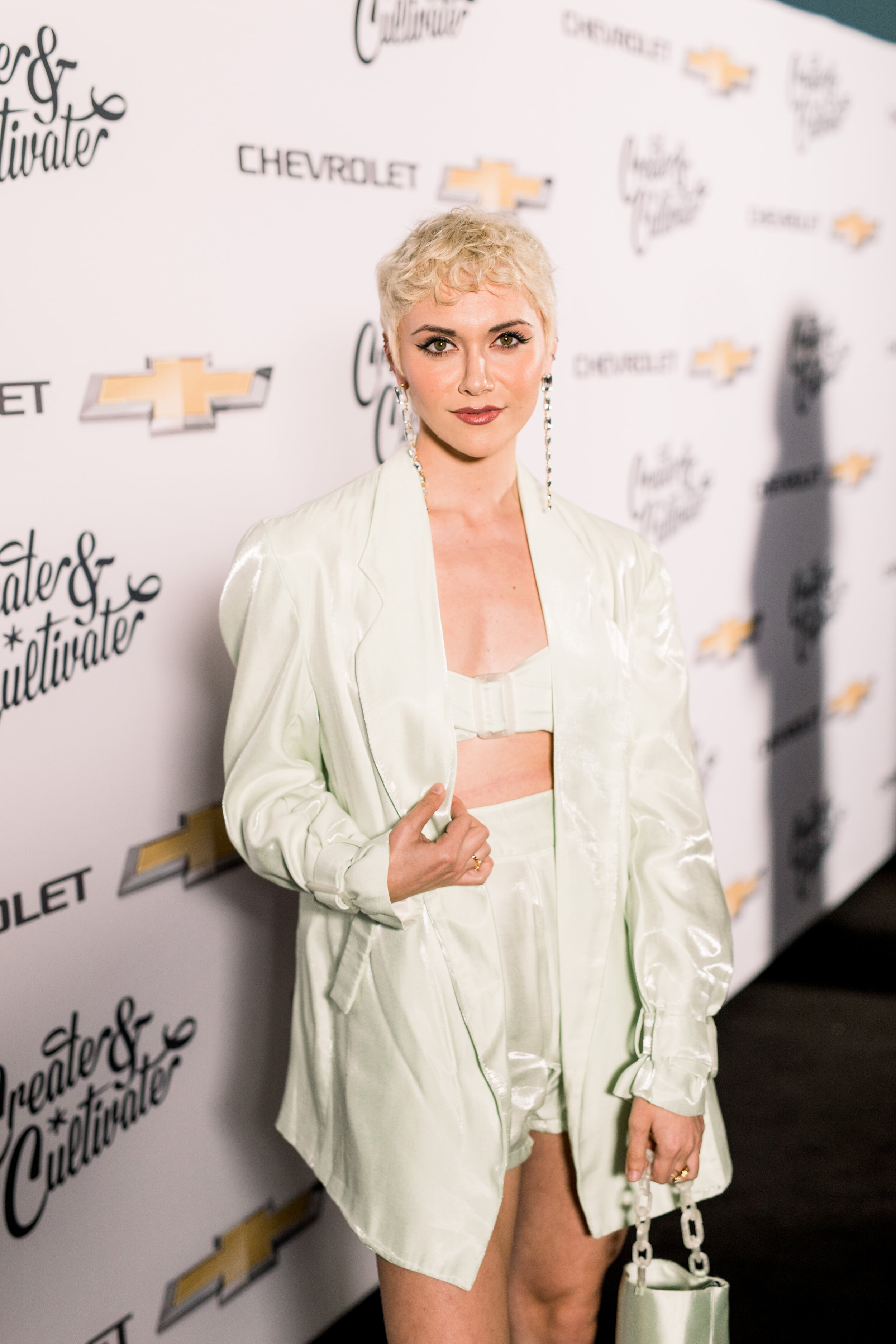
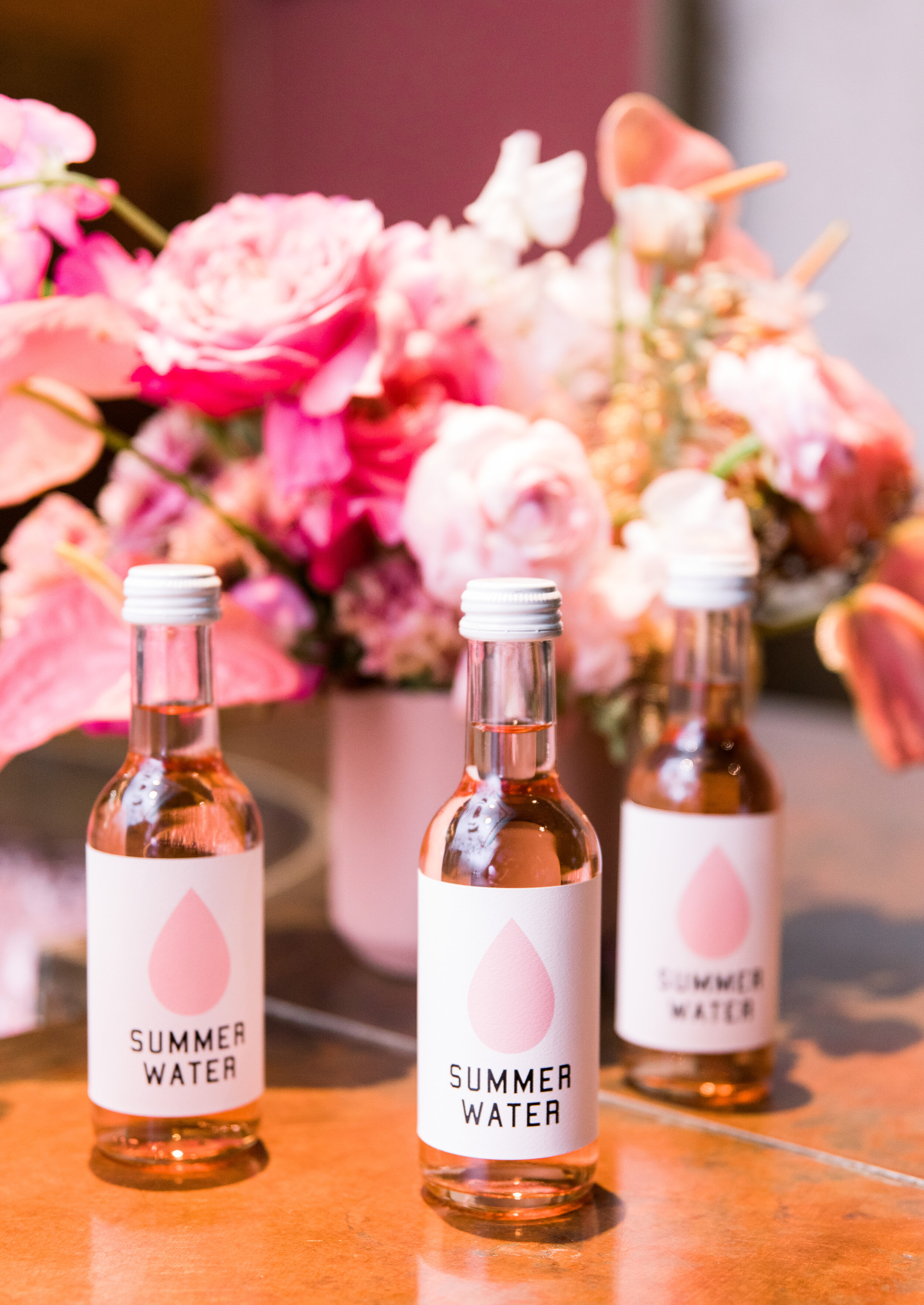
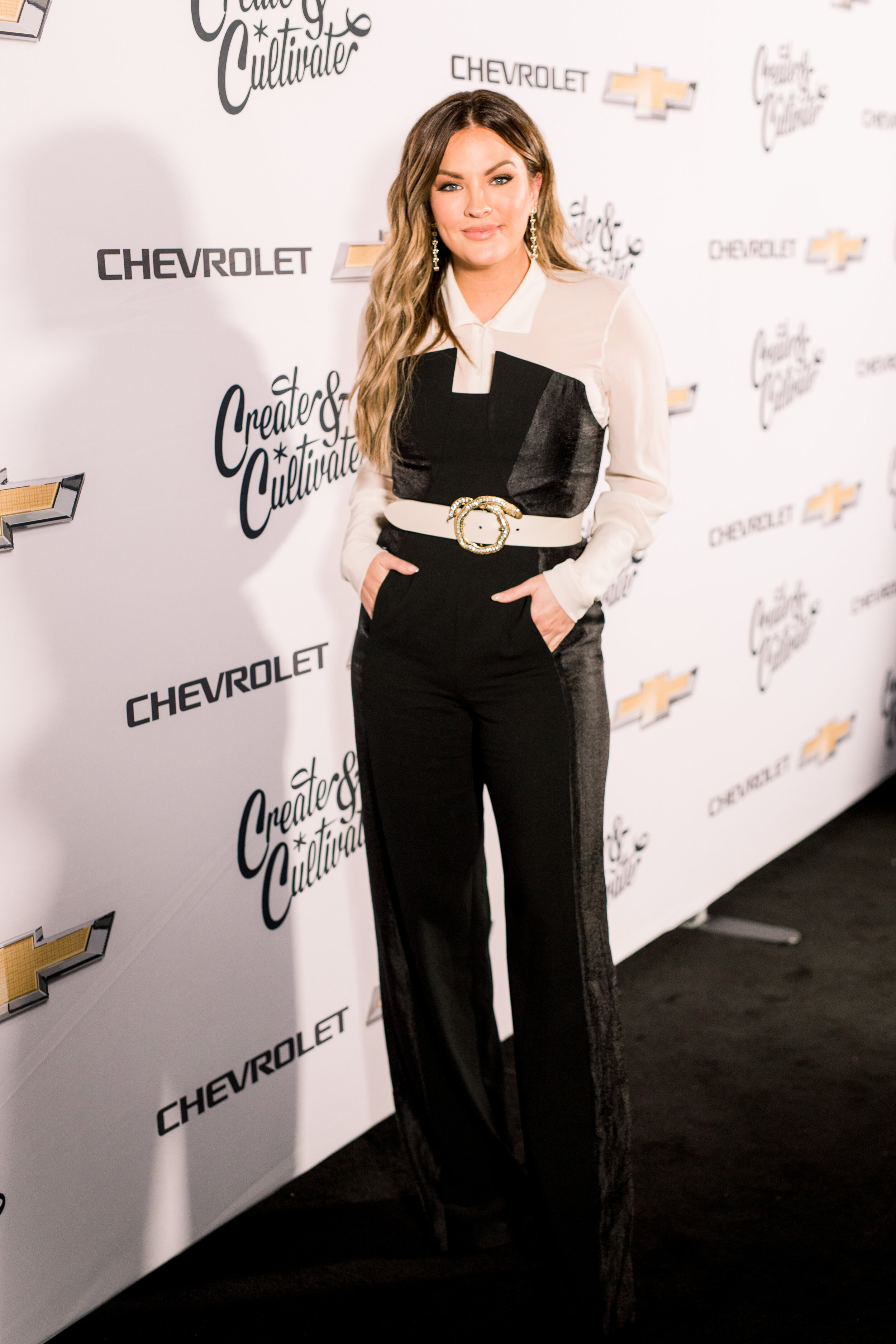
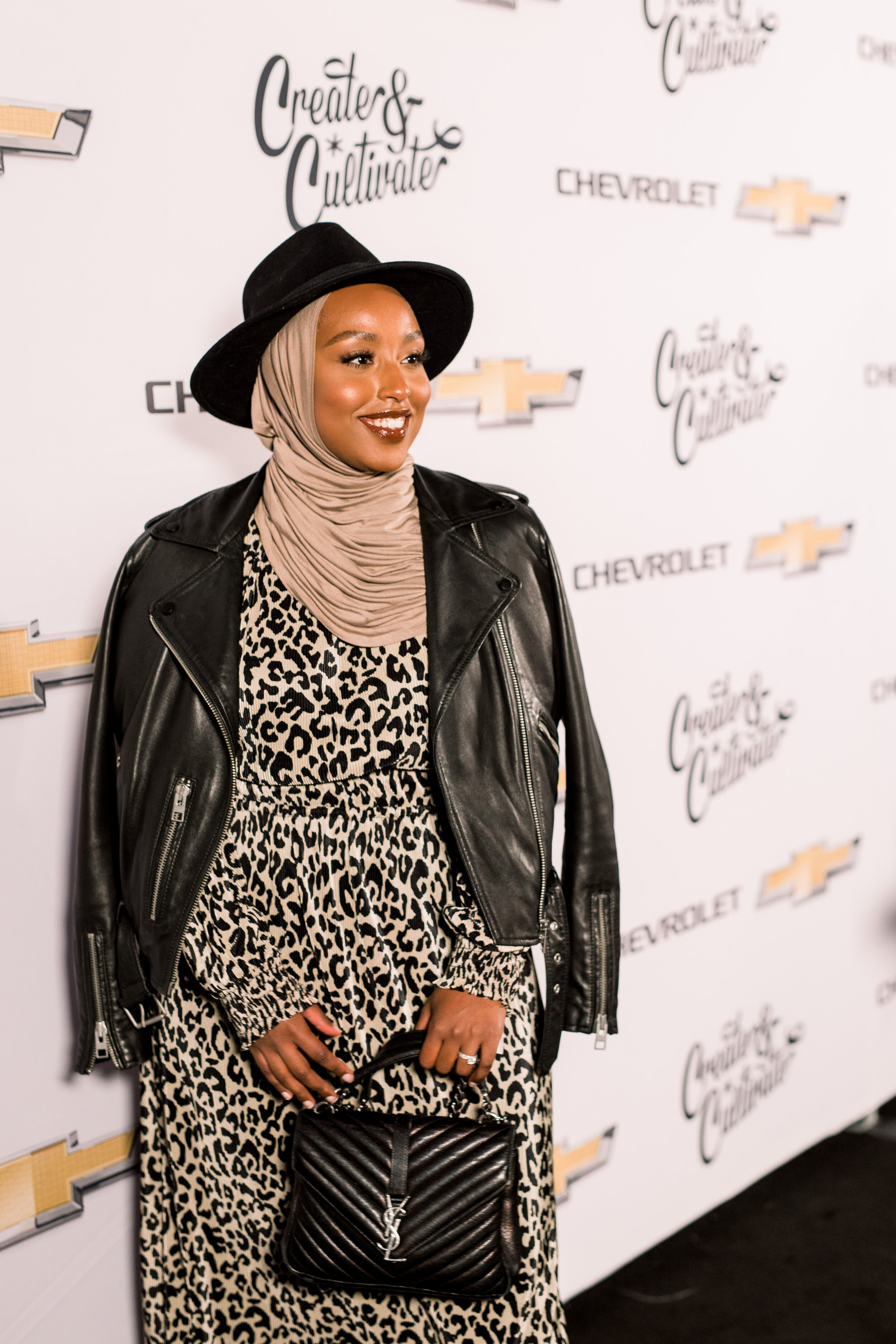
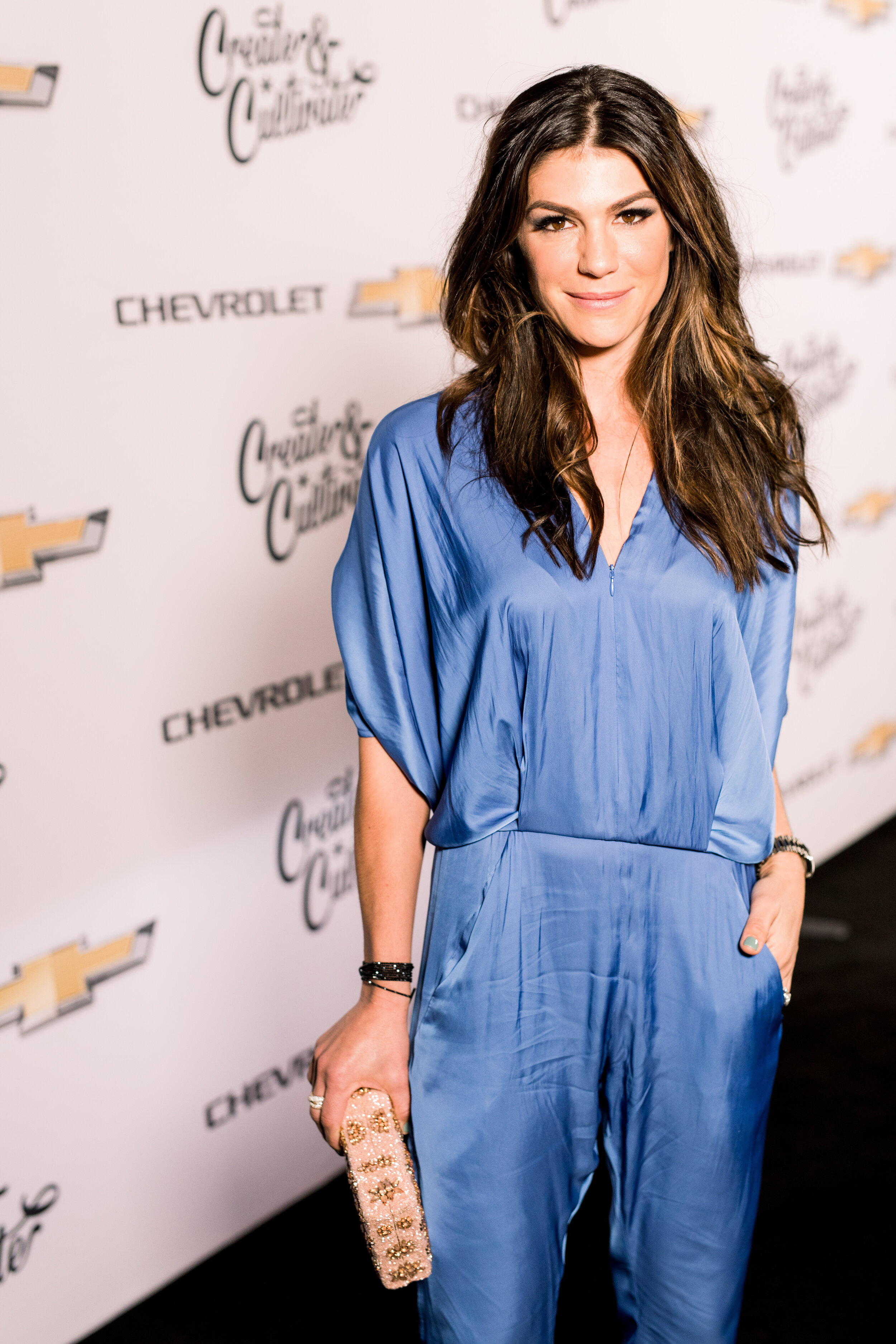
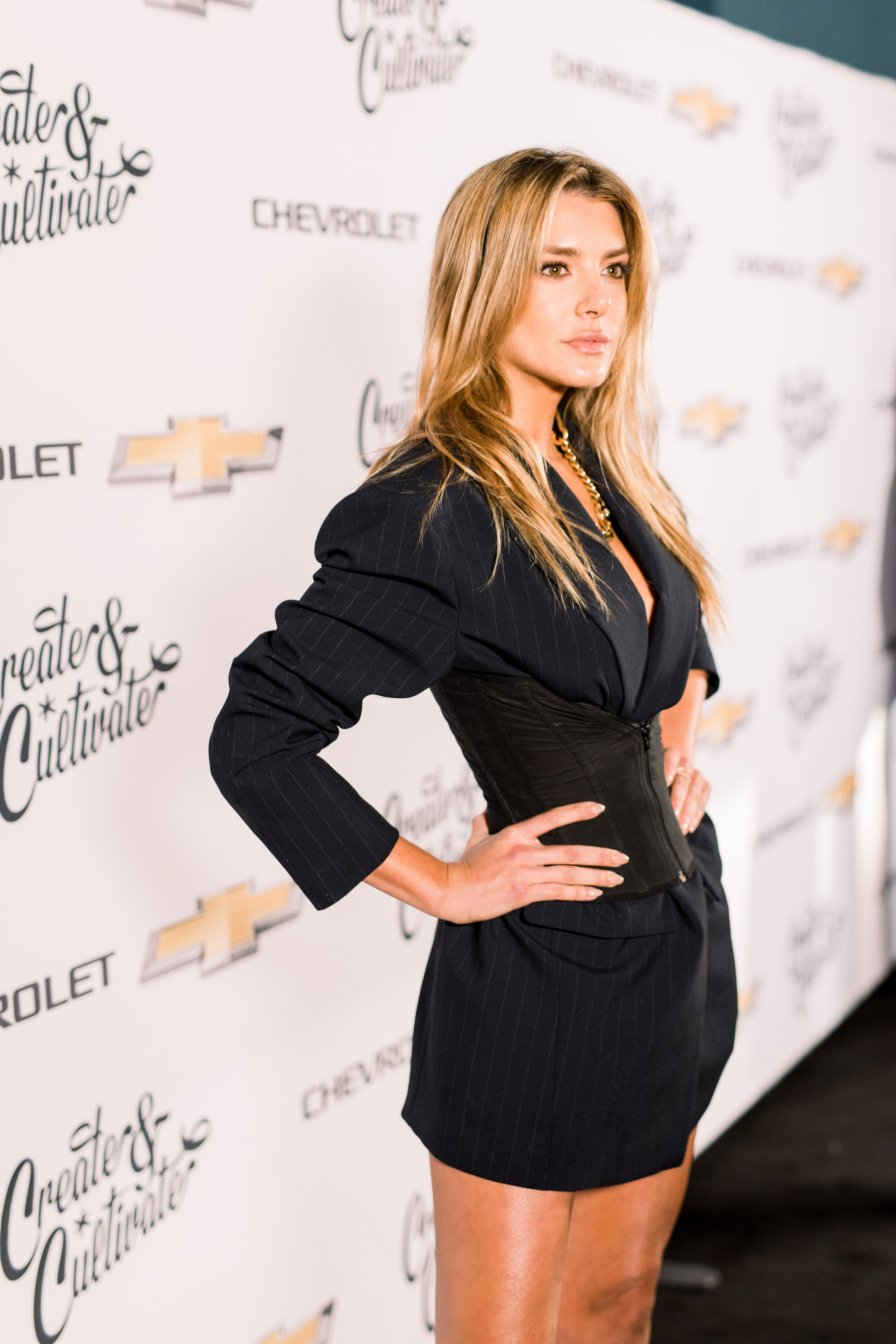
MORE FROM THE BLOG
Gwyneth Paltrow, Marie Kondo, Tyra Banks, and More on the #1 Book They Always Recommend
Create & Cultivate 100 honorees share the tomes they swear by.
Photo: Daria Shevtsova from Pexels
Just a quick glance at the reading habits of some of the most admired business people of our time is enough to convince you to crack open a book. Bill Gates famously reads 50 books a year, Warren Buffet spends five to six hours a day reading, and the one-and-only Oprah Winfrey credits books for much of her success, which is one of the reasons why she started her influential book club way back in 1996 (!).
In search of a fresh crop of inspiring, motivating, confidence-boosting books to add to our own to-read piles in 2020, we asked this year’s Create & Cultivate 100 honorees to share the #1 book they always recommend—and they did not disappoint. Spanning timeless tomes filled with tried-and-true life lessons to hot-off-the-press books brimming with sage career advice, this list of page-turning reads has it all.
Ahead, 65 badass female founders, entrepreneurs, CEOs, and all-around successful women reveal the books that helped them get where they are today. Prepare to fill your Amazon cart accordingly.
JACEY DUPRIE: “The Hard Things About Hard Things by Ben Horowitz. It gives quick little nuggets of business advice that you can actually apply to your day-to-day.”
MARIE KONDO: “Big Magic by Elizabeth Gilbert. Elizabeth’s approach to work and life celebrates many of the same values as the KonMari Method. I admire her vulnerable path to self-discovery.”
SHAY MITCHELL: “The Four Agreements by Don Miguel Ruiz. It’s an amazing read, pertinent to almost everyone and riddled with pertinent lessons we should take to heart.”
JESSICA KOSLOW: “Journey to the Heart by Melody Beattie. It’s about this woman who lost her son to cancer and her road back to celebrating life. Every day there’s a different mantra based on what she was going through during those 365 days back to finding herself. It’s really special and I read it every morning. Erin—the GM of Onda—gave me the book and it’s really helped me get through this time of opening this restaurant.”
DAISHA GRAF: “Oh, the Places You'll Go! by Dr. Seuss. Keep the wonder in your life. Nothing is impossible. If you can dream it, you can do it.”
OLIVIA CULPO: “I am a huge bookworm so it’s really difficult to choose one but a few of my favorites are How to Win Friends and Influence People by Dale Carnegie and The Secret by Rhonda Byrne.“
DANIKA BRYSHA: “The Firestarter Sessions by Danielle Laporte. A great way to get clear on what you want and just dig deep into the direction of your life.”
TIA MOWRY: “The Alchemist by Paulo Coelho. This book taught me that whenever you feel like you're alone, you're not. No matter what you believe in, you're always being guided. You just have to be sensitive and open to embracing the omens.“
WENDY LOPEZ & JESSICA JONES: “Health at Every Size by Linda Bacon is a great starting guide to understanding our approach to food, nutrition, and wellness! Linda dives deep into the research surrounding weight science and addresses the history behind some of the prevalent wellness trends we see now.”
ROCKY BARNES: “The Four Agreements by Don Miguel Ruiz. Learning to not take things personally in our industry has helped me more than anything!”
KELTIE KNIGHT, BECCA TOBIN, & JAC VANEK: “Work Party by Jaclyn Johnson because we love to support the ladies who support us!”
GENEVIEVE PADALECKI: “The Four Agreements by Don Miguel Ruiz. It's simple advice that cuts to the core. Especially the ‘don't take anything personally’ message. I also love the Last Child in the Woods by Richard Louv. It reinforces my drive to connect with nature.”
LENNON STELLA: “Astrology for the Soul by Jan Spiller and The Power of Now by Eckhart Tolle. These books really centered me and helped me understand myself and accept myself entirely.“
LALAH DELIA: “The Power of Your Subconscious Mind by Joseph Murphy. This book is essential reading because, until we truly get and honor how our mind operates and how we can take control of it, we live a life that is controlled by external and internal forces, cycles, and thought patterns that don't serve us.”
JUNE DIANE RAPHAEL: “Ah, there are so many books I'd recommend. My current demand is that everyone read Thick by Tressie McMillan Cottom. She is one of the greatest intellectuals we have right now and her thoughts on race/beauty/gender/politics are challenging so much of what I've thought to be true. In the very best of ways.“
TONYA RAPLEY: “My book! The Money Manual! It's straight to the point, easy to digest and really helpful. Other than mine, Profit First by Mike Michalowiz, it's a must-read for business owners.“
KIITAN AKINNIRANYE: “Right now, I am reading The Purpose Driven Life and I really love it. I’d recommend it to anyone who is searching for purpose and even people who are already walking in their purpose. It really gives insight into how to do it from a God perspective, which is really important to me.”
MELISSA BEN-ISHAY: “I love The Alchemist by Paulo Coelho.”
ISKRA LAWRENCE: “Now that I'm pregnant, I am reading this amazing book that I would definitely have anyone that's pregnant or planning to be pregnant read. It's called Three in a Bed and I find it absolutely fascinating. For me, motherhood has been my biggest goal and dream and something that I want to make sure that I am as prepared as possible. For me, it's the most important job you can do in the whole world. Raising this human to be a good person who is motivated and passionate and embraces all the things that make them special. I think it's a fantastic book in a world where childbirth has a set routine when in reality there are so many options.”
CHRISELLE LIM: “Outliers and The Tipping Point, both by Malcolm Gladwell.”
NOELLE SCAGGS: “The Power of Habit: Why We Do What We Do in Life and in Business by Charles Duhigg. It’s my life bible and everyone should have this book by their bedside. It lends a real perspective on human nature when it comes to routine and comfort.“
LINDSAY PEOPLES WAGNER: "I Know Why The Caged Bird Sings by Maya Angelou is a book that changed my life and can be read over and over again.”
JULIA LANDAUER: “Forever by Pete Hamill. It's a novel that's a beautiful love story to New York City, but it's also an example of living life fully, being present, and appreciating our own existence.”
JULIA CHEEK: “The Hard Thing About Hard Things by Ben Horowitz! It’s an honest look at the ups and downs of building a company. It makes the job a little less lonely to know that all of the best founders have gone through the same rollercoaster.”
CINDY ECKERT: “Purple Cow by Seth Godin. Read it. It encourages the powerful idea that you should embrace what is unique to stand out in the sea of sameness. If only Seth would reprint it this year and title it Pink Cow.”
NOOR TAGOURI: “The Originals by Adam Grant.“
ALLY MAKI: “Anything by Brené Brown. Her words on vulnerability and shame have gotten me through some of my toughest moments.“
BECCA TILLEY: “How to Win Friends and Influence People by Dale Carnegie. It’s basically a book teaching you how to be kind to people and how to treat people you meet for the first time. I always go back and read certain parts because it’s always so eye-opening and being kind to people is never going to go out of style!“
TYRA BANKS: “Delivering Happiness by Tony Hsieh. I am obsessed with his company culture. So much that I cold-called him! We were on the phone for over an hour and he shared so many valuable insights (all of which I implemented with my team!). I highly recommend this book for entrepreneurs.”
JESSIE JAMES DECKER: “I loved The Glass Castle. Jeannette Walls had a wild and unique childhood, but that didn't stop her from achieving her goals and building her character. That's what I always say when things seem messy... it builds character.“
MANDANA DAYANI: “Last year, I read On Tyranny: Twenty Lessons from the Twentieth Century by Timothy Snyder. It was incredibly eye-opening and a critical reminder that we must learn from our mistakes. It also provides context for how critical this time is for democracies across so many countries in the world.”
CAMILA COELHO: “Outliers by Malcolm Gladwell—it explores the various differences between us as humans and why some succeed more than others.“
JAIME-LYNN SIGLER: “The Four Agreements by Don Miguel Ruiz. In a way, it takes all the pressure off life. It allows you to really see the world through a different lens. I re-read it every year and even have a tiny copy of it that I carry in my bag.”
MARNI SENOFONTE: “Some oldies but goodies—The Seat of the Soul by Gary Zukav and The Last Lecture by Randy Pausch—both still hold their weight.“
FADIA KADER: “The First 90 Days by Michael D. Watkins. I was given this book when I started a new role and it helps you level-set expectations in your first 90 days in a new company or a new role. I read it as a refresher with each new chapter/role in my career. I often gift it to friends and peers and love seeing them continue that tradition.“
LAUREN CHAN: “The Body is Not an Apology by Sonya Renee Taylor—and I suggest you listen to the audiobook so that you can hear the author preach.”
TYLYNN NGUYEN: “Women With Money by Jean Chatzky. We need to be more confident in our own means and still stop apologizing for having your life together. This is a great book for women who have money or women creating wealth or even women who want to create wealth for themselves. We are in this together. Let's talk more about how to build each other up in all facets.”
PAIGE ADAMS-GELLER: “The Four Agreements by Don Miguel Ruiz. This book is a quick read that can be applied not only in business but in all of your personal interactions.”
LILY ALDRIDGE: “The Alchemist by Paulo Coelho is one of my favorite stories of all time! It reminds me that we are on a path in life and that there will be ups and downs, but everything is happening for a reason and to trust the journey!”
SASHA SLOAN: “Ah, it’s too hard to pick! I love to read. I guess my #1 book recommendation would be The Book Thief by Markus Zusak I read it in high school and I’ve loved it ever since.“
KIRSTY GODSO: “Relentless: From Good to Great to Unstoppable by Tim Grover.“
BRITTANY XAVIER: “Hands down, The 4-Hour Workweek by Tim Ferris. I think it’s a great book for anyone that is considering creating a side-job. You need to start small, and this book will help you if you need a little more inspiration to understand that it’s feasible.”
FRANCHELLI RODRIGUEZ: “The #1 book I always recommend is the Bible! The Bible covers everything we could ever ask for. I know not everyone is a believer, but I do believe that there is a message in the Bible out there for everyone. No matter your situation or circumstance, read the Bible and you will find comfort and even answers!“
ESTE, DANIELLE, ALANA HAIM: “Letters to a Young Poet by Rainer Maria Rilke.“
SARAH LARSON LEVEY: “The Monk by Matthew Lewis. It was required reading for one of my lit classes in high school. It was written in the 1700s and is still so relevant today. I come back to it time and time again.”
PRISCILLA ONO: “I love all of the Kevyn Aucoin books! When I was growing up as an aspiring makeup artist, we didn’t have social media or the internet for makeup inspo. Kevyn Aucoin was way ahead of his time when it came to artistry and being a celeb makeup artist. His makeup looks are timeless and his background and story are so inspiring. Any aspiring makeup artist should invest in reading them.”
ANASTASIA SOARE: “Never Give In! A collection of Winston Churchill’s speeches that never fails to stir something inside you.”
KARLA WELCH: “The War of Art by Steven Pressfield, Catching the Big Fish by David Lynch, and Just Kids by Patti Smith—because they are all perfect.”
ADRIENNE BOSH: “The Mastery of Love by Don Miguel Ruiz is one of my all-time favorite books. It’s not only about building romantic relationships, but it’s also about learning how to capture the love you have within yourself. As a young woman, I think it’s so important to learn to love yourself first before ever investing yourself in another person, so it was really helpful for me.”
NATASHA CASE: “I read books for pleasure, so 1Q84 by Haruki Murakami or Gone Girl by Gillian Flynn, which you can inhale in one long weekend. For meaningful reads, The New Yorker has phenomenal writing.”
JULIANNE HOUGH: “Oh wow, there have been so many over the years. Most recently I’d have to say Belong by Radha Agrawal. It’s an incredible book about approaching life through the lens of community, being in service, making powerful contributions through collaboration and remembering there is only one you who can make a difference like you can. I also love The Artist’s Way because as a performer my whole life, it's easy to lose sight of the artist within you. This book is really a program that can be supplemented with KINRGY to nurture the artist in all of us.”
MARIA MENOUNOS: “This is tough. I can’t name just one, so here a few of my favorites:
In business, Money: Master the Game: 7 Simple Steps to Financial Freedom by Tony Robbins, because it inspired me to make necessary financial changes and set me up for the rest of my life.
In health, The Empath’s Survival Guide by Judith Orloff, M.D., because it helped me understand why I am the way I am.
You Are the Placebo: Making Your Mind Matter by Dr. Joe Dispenza, which taught me how the brain can create its own apothecary.
Ask and It Is Given: Learning to Manifest Your Desires by Esther and Jerry Hicks. I learned so much about energy and how to get what you want.”
NANCY SILVERTON: “A good novel to escape into. For the last few years that has been The Goldfinch by Donna Tartt, The Overstory by Richard Powers, The Neapolitan Novels by Elena Ferrante, and Southside by my boyfriend Michael Krikorian.”
RACHEL ANTONOFF: “I will always recommend Mary Karr's Cherry. It's a perfect book.”
JENNI KAYNE: “Any of Brené Brown’s books. I could read them over and over again and still and take away something new each time.”
GWYNETH PALTROW: “Dream Work by Mary Oliver.”
HAYLIE DUFF: “I love Big Magic by Elizabeth Gilbert. Encourages creative regardless of fears! Great read.”
NYESHA ARRINGTON: “The Four Agreements is my all-time favorite book! In The Four Agreements, Don Miguel Ruiz reveals the source of self-limiting beliefs that rob us of joy and create needless suffering. Based on ancient Toltec wisdom, The Four Agreements offers a powerful code of conduct that can rapidly transform our lives to a new experience of freedom, true happiness, and love. My dad gave me this book when I turned 21 years old. He is a very spiritual gentleman and I undoubtedly value his universal perspective of life. This is the most recommended ‘self-care’ book I tell people about and I have read/re-read it at least 20 times.”
LINDSAY ALBANESE: “For entertainment, I loved Bad Blood by John Carreyrou.”
CLEA SHEARER & JOANNA TEPLIN: “This may be an unusual answer to this question but… adult coloring books. They’re like our therapy and help to relieve stress after a long day. Seriously, go buy a coloring book and a pack of crayons and you'll thank us.”
SARAH BARTHEL: “I'm kind of a weirdo when it comes to books—the darker the better—so I'd recommend any Bukowski or Hubert Selby Jr.“
AISHWARYA S. IYER: “Embracing Your Inner Critic by Hal and Sidra Stone. It changed my life by helping me to overcome my own inner critic.“
TANYA RAD: “I just finished Calling in “The One” and I am obsessed with it!! It helped me learn so much about myself, my dating patterns, and helped me patch up some old wounds. Feel like 2020 is my year to CALL IN THE ONE, baby! Also, The Hollywood Commandments by Devon Franklin is soooooo gooood!!!“
MAMRIE HART & GRACE HELBIG: “Probably our own books, Mamrie's I've Got This Round and Grace's Guide. (Sorry, we had to get shameless plugs in.)“
ALYSSA RAVASIO: “I am an avid reader with towers of books constantly at risk of falling over, so this is really too hard, especially since it depends so much on the person I’m recommending to. Here are a few:
Braiding Sweetgrass by Robin Wall Kimmerer. She’s an amazing indigenous leader and teacher, and the book centers on the philosophy that people are part of nature, and how we have a responsibility to play our part in the ecosystem. A tangible example of this is that sweetgrass grows better when it’s responsibly harvested. “Leave it better” is really based on this mindset—at Hipcamp, we believe people can have a positive impact on the planet and believe it’s that kind of framing—versus a limited focus on reducing our negative impact—that will lead us to a healthier, more connected, and more regenerative future.
East of Eden by John Steinbeck. No book I’ve ever read more deeply captures the essence of humanity, in all its beauty and complexity.
The Overstory by Richard Powers. A deep examination of the relationship between people and trees.
Full Moon Feast by Jessica Prentice. A philosophical exploration of the culture around seasonal foods for both European cultures and indigenous American cultures. Plus great recipes.”
Photographer: Jenna Peffley
Hair: Styled by OGXpert & Celebrity Hairstylist Jillian Halouska
Meet this year’s Create & Cultivate 100 honorees and explore all 10 categories below.
Create & Cultivate 100: Entertainment: Shay Mitchell
“If you take no risks, where will you be in three years? Probably still unhappy and stuck.”
We talk about career shifts a lot at Create & Cultivate because there’s nothing more inspiring than seeing someone push their doubts and fears aside to embark on a completely new path, oftentimes without any previous experience or education. Shay Mitchell is one of those people. While she launched her career as the character Emily Fields on the hit show Pretty Little Liars (or as Peach on season one of Netflix’s new hit show You), that might not be where many of you reading this found out about her. Why? Thanks to Mitchell’s entrepreneurial mindset, she recognized the opportunity on YouTube very early on.
Five years into filming the show, Mitchell started creating videos for her channel across beauty, fashion, fitness, food, and travel. She has now amassed over four million subscribers on the platform—and almost 27 million followers on Instagram—and the popularity of her travel series, SHAYCATION led to the formation of her sell-out travel accessories line, BÉIS. Since it’s 2018 launch, the brand has seen more than 200% growth and is on track to deliver more than $20 million in profitable revenue. Oh, and did we mention that Mitchell recently became a mom too? Yep, she really is a pivot pioneer.
Read on to hear how Mitchell successfully switched lanes from actor to vlogger to entrepreneur and why she believes self-doubt is totally normal.
CREATE & CULTIVATE: Your career launched playing Emily Fields in the television series Pretty Little Liars but it continues to span across so much more than entertainment—your YouTube channel documents fashion, hair, and makeup tips, your favorite food recipes, travels, fitness routines and now your journey as a new mom. How did you make the pivot from actor to creative director and more? What advice do you have for people reading this who want to make a similar pivot in their career but don't know where to start or fear the leap?
SHAY MITCHELL: I’m a super passionate person, and I love to have my hands in as many projects as possible. At the time that I joined YouTube, I was five years into filming Pretty Little Liars and found myself itching to flex my own creative muscle. I was constantly surrounded by super fun, artistic and smart people, and thought it would be fulfilling to create original content with my friends and colleagues. My travel series, SHAYCATION, on YouTube, and my lifelong passion for travel, gave me real-life experience and inspiration for my travel accessories line, BÉIS. I purchased a lot of luggage and travel items over the years, and always felt that I was compromising for either form or function, and would doodle ideas for luggage and accessories that had both all the time.
When the opportunity popped-up for me to start my own brand, I literally jumped at it. To be perfectly honest, I am not one that likes really likes to give advice because I feel like what works for me might not work for others and vice versa. That said, as cheesy as it might sound I would say the principles that I try to live by are to follow my heart, vision, and intuition. If you take no risks, where will you be in three years? Probably still unhappy and stuck. Vulnerability is one of life’s greatest givers of lessons. It’s also okay to fail, so long as you use it as an opportunity for growth and not shutting down.
You launched your travel accessories company BÉIS! and the success has been phenomenal—congrats! What has been the biggest lesson you've learned through launching and expanding your business? What advice do you have for women with small businesses hoping to grow or change their businesses and achieve your success?
It was actually just a little over a year ago that we launched BÉIS! and again, I don’t really like to give advice but would say that authenticity in approach and execution are penultimate. I do things because I feel like I understand there is an opportunity or because I really believe in what I’m doing and think I can do a better job of what is already available. I don't think it is ever smart to do something exclusively for money or clout. You should do it because you really care about what you’re setting out to achieve.
“If you take no risks, where will you be in three years? Probably still unhappy and stuck.”
When you hit a bump or hurdle in your career, how do you #FindNewRoads + switch gears to find success?
First and foremost, I never view things as failures. If I make a decision and it doesn’t succeed then I feel it’s a learning curve and lesson from which to learn. Finding new paths and switching gears can be challenging, but if we’ve exhausted the roads we are on then the best thing to do is to find another way to forge ahead.
You always seem so bold and self-assured. Where do you think this confidence stems from? What advice do you have for people who are feeling self-doubt and want to have more courage?
That’s so nice to hear, though I will be the first one to admit, as most humans do, that I have self-doubt often. I doubt myself all the time, and I think that is totally normal. No one is ever really sure of themselves 100% of the time. As humans, we have to question ourselves because we care. To me, this is similar as to when people ask me if I'm nervous before an audition. Of course, I’m nervous! If I'm not nervous then it concerns me more because deep down I feel like it means I don’t care that much and that I probably shouldn’t be there in the first place. My “advice” (aye yi yi) would be to embrace the self-doubt. Questioning yourself is an important part of growing as a person and growing a brand—making sure you’re doing the right thing—its also a way to keep your intuition in check.
You've achieved phenomenal success but that didn't come without hard work and determination. What does it take to be successful today? What personality traits do you need in this competitive environment? Why?
The first word that comes to mind is tenacity. Being dedicated. Seeing things through—even when things seem impossible or difficult. Maintaining a positive outlook. Having a strong team and community to depend on.
What’s the biggest challenge you’ve faced during your business and how did you turn it into an opportunity?
I think one of the biggest challenges we faced was during launch when we sold out of six months of supply, of most products, almost immediately. We had invested so much in marketing and brand building and then didn’t have any product to sell. Some would say it’s a good problem to have, and yes, it was great to have early success but the team and I saw the opportunity cost in lost sales and frustrated consumers.
To turn it into an opportunity we decided to be very transparent with consumers and told them what was happening, which in some ways we feel resulted in a more emotional connection with our audience. Being out of stock also created pent up demand and a sense of scarcity which has proven to be a super-strong sales lever for us. We translated that into a strategy for some of our more seasonal and limited-edition styles: “get it while it lasts” if you will.
You have an incredibly busy schedule juggling multiple businesses, acting, and family—What are your productivity hacks to get it all done? What apps or is there a hack you use every day to help keep you organized and on track?
Truthfully, no hacks or apps, just a really steady head and have taken great care to surround myself with passionate people that are experts at what they do to support me along the way. My team is small but mighty, and they can always be counted on to keep me organized and on track.
“Questioning yourself is an important part of growing as a person and growing a brand.”
What is your 2020 vision? What is in store for Shay Mitchell this year? Why?
Nothing radically different, just more, more more! It’s the nature of my personality and the beast.
What is the #1 book you always recommend and why?
The Four Agreements by Don Miguel Ruiz. It’s an amazing read, pertinent to almost everyone and riddled with pertinent lessons we should take to heart.
VIEW THE FULL CREATE & CULTIVATE 100 ENTERTAINMENT LIST HERE.
Create & Cultivate 100: Entrepreneur: Gwyneth Paltrow
“Never give up.”
We talk a lot about career leaps at Create & Cultivate and if there’s one person who has perfected the art of the pivot, it’s Gwyneth Paltrow. From Pepper Pots in the Iron Man franchise to the icy beautiful Estella in Great Expectations (and who else was glued to Paltrow’s Georgina Hobart in The Netflix’s hit show The Politician last year?), the esteemed actor has enjoyed a very successful career with numerous industry accolades (including an Academy Award) for her work but perhaps her biggest achievement is becoming an entrepreneur.
In 2008, Paltrow embarked on her second life by launching a humble newsletter from her kitchen called goop—yeah, you might have heard of it! Since then, she has successfully transformed that email into the multifaceted content, e-commerce, and experiential lifestyle platform it is today—and we hear it’s worth a cool $250 million. Now, that’s a boss we want to emulate.
Keep reading to hear from Paltrow on why she believes goop has struck such a chord with readers, the lessons she’s learned as CEO, and the three traits you need to be a successful entrepreneur.
CREATE & CULTIVATE: You launched goop in 2008 out of your kitchen as a weekly newsletter and now it's a go-to destination for millions of people around the world for information for health/wellness but also as trusted e-commerce for clean products from home to beauty. What do you attribute to that success? Why do you think it has resonated so much with audiences? How do you feel about the growth and its success? What are your hopes for the brand?
GWYNETH PALTROW: A lot of the success is rooted in the authenticity of what we were trying to create. I was passionate about wellness and food and great product, but I didn’t think I had the authority to run a business. We were content only for a very long time, and out of that content came a need, determined by our readers, to curate incredible products to go along with our stories. We started very slowly, with one-off collaborations with brands we loved, which always sold out right away.
Once we'd built a strong multi-brand assortment, we realized that we had the authority and the white space to create our own efficacious, well-made products. But it was all very organic, and it took a long time. We started the business in 2008 and we didn't fully realize the business model until much later, starting in 2015 when we took venture money.
While we're firmly rooted in contextual commerce, the model is still evolving. We didn’t know that experiential would be such a huge driver of the business. Over 57% of our brand partnership deals have an experiential element. From a consumer standpoint, we're becoming almost as well known for our experiential activations, such as our In goop Health summits, live podcasts and retail stores, as our core businesses.
“I’m a perfectionist, and I can be very demanding of myself, which is something I’m trying to work on personally.”
You began your career as an actor and made the pivot to become the CEO of goop—How would you describe your leadership style? What kind of boss are you? What have you learned about yourself and about being a leader through this process?
I'm a perfectionist, and I can be very demanding of myself, which is something I'm trying to work on personally. I expect a lot from my team but in the same respect, I try to lead with empathy. I want my team to feel that they have autonomy and to cultivate an environment where people can take risks, be collaborative and not feel paralyzed by the fear of failure.
As we scale, we're less like the little family we were for the first iteration of the company, but it's crucial to me that we sustain our values. It's not a top-down thing; everyone in the company needs to feel responsible for the culture we create.
In your opinion, what are the top three traits of a successful entrepreneur?
Self-belief, the willingness to be vulnerable and ask questions and to hire people who are smarter than you are.
What is the best advice you’ve received?
Never give up.
What is the #1 book you always recommend?
Dream Work by Mary Oliver.
VIEW THE FULL CREATE & CULTIVATE 100 ENTREPRENEUR LIST HERE.
Create & Cultivate 100: Entrepreneur: Joanna Gaines
"Stay curious, be willing to try something new, and trust your instincts.”
Long before Joanna Gaines was the star of the hit HGTV show, Fixer Upper, she was trying (and failing) as a designer. In fact, she tells us there were many times she didn’t get the design right in the beginning but did that stop her? No chance. The determined mother of five used it as fuel. of course. She kept practicing and honing her skills, discovering her own style and aesthetic along the way.
Cut to today, and Gaines along with her husband, Chip has built an impressive empire with her Magnolia brand that includes the Magnolia Journal, Magnolia Home furniture line, and Hearth & Hand Target collaboration. Oh, and did we mention she is also a best-selling author with Homebody, Magnolia Table Cookbook, We Are the Gardeners and more books to her name. Gaines is proof that practice really does make perfect (or should we say progress because we know there’s no such thing as perfection).
Now, whether it’s selecting the product for a new collection or a magazine design, Gaines tells us she’s still operating from her gut and relying on her instincts to lead the way. Read on to hear more from this inspiring visionary and hear first-hand how she built a successful brand, how she handles failure, and her advice for entrepreneurs starting out today.
CREATE & CULTIVATE: Between writing best-selling books and a magazine, managing Magnolia Market, designing a best-selling Target line, and raising five children, you already have a lot on your plate but now you're gearing up to launch a brand-new cooking show—Congrats!—But we need to know, what is your secret to getting it all done? What are your top productivity hacks? Tell us everything!
JOANNA GAINES: I’d start off by saying that I genuinely love the work that I get to do every day. There’s just something about designing and problem-solving that I enjoy so much, whether it’s a story for the magazine or renovating an old house. And my family and my kids, they are my joy—they make home the greatest place on earth for me. I would never pretend that I’ve found the secret to balancing it all, but I think that because my family and my work are the very things that ground me and push me, they drive who I am and what I’m most passionate about, it really feels like a privilege to wake up every day and give both everything I’ve got.
When it comes to the business, I have an amazing team that helps me carry every project we tackle. Chip is my biggest supporter, he helps me see the vision and the ‘why’ to a lot of what we’re doing, and then our team really gets behind our dreams and helps us get every one of those projects across the finish line. It’s taken years of fine-tuning my schedule to make space for both our family and our work. Every season is different, but I have learned that I have to fight for what I want in terms of my schedule so I don’t fall into the rut of just being busy. Right now, I spend two days at home and three days in the office. When I’m home, I’m focusing my time on things that really ground me—whether it’s playing with the kids, meal prepping, doing things around the house, or working in the garden—so that the next day when I go back to the office, I feel filled up and ready to get to work.
All that to say, maybe one of the secrets to being productive is first being passionate about what’s in front of you, and being able to give yourself grace in those inevitable hard moments. I think a steady diet of both passion and grace makes all the details of work, home and family feel like a gift rather than an insurmountable to-do list.
“I think a steady diet of both passion and grace makes all the details of work, home, and family feel like a gift rather than an insurmountable to-do list.”
When you hit a bump or hurdle in your career, how do you #FindNewRoads + switch gears to find success?
When I look back on my life, at the intersections of things gone bad, money lost, or a project failed, each one of those circumstances gave me the space and permission to pause and evaluate where I was heading, and oftentimes it has even redirected me to a better next step. That's not to discount the hurt or frustration that comes with hitting a roadblock, but I think the big difference is looking at those bumps in our lives as opportunities to move towards the right thing, rather than roadblocks.
Not only that, but I think this all hinges on how you define success. I’ve learned that what matters more to me is finding the thing I was built for and living out who I was created to be. If spending a season on an unplanned path or in the trenches leads me closer to those things, then hurdles and bumps in the road are well worth it to me.
The filtered world of social media often hides a lot of the hard work and hustle behind-the-scenes—For those reading this and considering the pivot, what is the reality of being an entrepreneur today? How hard is it? What are some of the challenges? What did it take for you to get to your level of success now?
When I was young, I used to think to be an entrepreneur meant setting your own schedule, making a lot of money, and being your own boss. I should have known that seemed way too good (and easy) to be true. When it’s your business, you pour so many hours, emotions, and hard-earned money into the equation—it’s hard work. But I’ve also found it to be the most rewarding work. I remember the years I spent working with my dad when I was younger, watching him run his tire shop here in Waco. At the time, I never thought about the weight he carried running his own business. I remember him always being the first one there and the last one to leave. He was the hardest worker at that business because it was his. That’s when I first learned the importance of assembling a great team around you because you can’t do it all by yourself.
There are things I did when we first started Magnolia that I just don’t have the capacity to do now. Even though some of it was my favorite work, I had to learn how to loosen the reins. But I’ve realized that when I let other people step in and help, it not only gives me the space to evolve and try something new, it also gives them the opportunity to rise to the challenge and flourish. If I continued to do everything myself, there'd be no room for growth for any of us.
A huge part of your success lies in the edit. Every product is thoughtfully designed and curated with the Gaines seal of approval—Where did you hone your eye? Where do you seek your inspiration? What advice can you share for others reading this who want to cultivate their own design style but don't know where to start?
I tend to operate from my gut, and maybe that’s because it’s the only way I know how. When Chip and I started renovating homes together, I'd walk through a house and, in my mind, could easily imagine walls removed and rooms brought to life in a new way. Of course, there were many times when I didn’t get the design right, especially at the beginning. But the more and more I practiced and worked on these homes, the more I honed those skills and discovered my own style and aesthetic. And now, whether it’s selecting product for a new collection at the market or magazine design, I’m still operating from my gut and trying to uncover the unique story we can tell with what’s in front of us.
The advice I’d give to people wanting to cultivate a personal design style is to follow your instincts. Keep learning what you love, what you don’t love, and be willing to try and fail. Despite what some may think, design is not rocket science. It’s all about trial and error. If you give yourself the freedom to mess up, eventually you will figure out what works for you. Design is always evolving and pushing the boundaries, so stay curious, be willing to try something new, and trust your instincts.
“Before you begin building your business, dig in and get back to the core of who you are in your gut and your soul.”
What is the #1 piece of advice you'd like women to know when starting out or building a business? Why?
I believe that our instincts are the strongest power we have, and it’s so important to stay attuned to them. Before you begin building your business, my advice would be to do dig in and get back to the core of who you are in your gut and your soul. The world and all its noise can easily crowd our intentions and passion, so it may take removing all the false filters in your mind, whether it’s coming from social media, voices from the past (or your own critical voice) or other people’s expectations that have been placed on you.
Go on a retreat, journal regularly, talk to a counselor or friends you trust—whatever you need to do, do it. This kind of emotional maintenance is so important to do on a regular basis. Remove all the layers that have piled up over the years that have told you what you’re not good at, who you should or shouldn’t be, and rediscover who you truly are and what you were made to do in this season. Then go from there and get after it!
Photographer: Jenna Peffley
Hair: Styled by OGXpert & Celebrity Hairstylist Jillian Halouska
VIEW THE FULL CREATE & CULTIVATE 100 ENTREPRENEUR LIST HERE.
Create & Cultivate 100: Food: Tieghan Gerard
From the dining table to global domination.
There is something incredibly nostalgic about food. A certain smell or ingredient can transport us back to our childhood and we are immediately removed from our reality and into those surroundings—reminded of the emotion we felt in that moment and the comfort it brings. For Tieghan Gerard it was at 13 making Rachel Ray’s mac and cheese for her brother in the family kitchen (apparently he still asks for it!). Since then her love for preparing food for others has extended beyond the family table and into a very successful business with a New York Times bestselling cookbook and a million followers on Instagram.
If you haven’t heard of Half Baked Harvest yet then you’re in for a real treat. Even if you don’t make the recipes, the visual feast is delicious on its own. We promise you’ll be pinning every one of them to your recipes board. Read on to hear how Gerard took her passion from the dinner table to global domination and the mistakes she learned from along the way. We predict she’ll be the next Rachel Ray—watch this space!
CREATE & CULTIVATE: You come from a family of nine and in a bid to get dinner on the table at a respectable hour, you started helping with the cooking—Can you take us back to that time? How old were you when you started cooking? What were some of the first meals you cooked? And when did you realize that cooking was something you wanted to do for a living?
TIEGHAN GERARD: I was 13 when I started cooking and my very first recipe was a Rachel Ray mac and cheese bake. To this day it’s one of my oldest brother’s favorite recipes. He begs me to make it all the time. It was within that first year of cooking that I began to realize just how much I love to cook. Seeing the reactions on my family members’ faces when I served them a dish they truly enjoyed was the greatest feeling. It's really how I developed a true love for cooking.
It wasn’t long after starting Half Baked Harvest that I realized I wanted to make this my career. Reaching so many people and being a part of their lives excited me so much. I loved giving my readers recipes they could enjoy together.
Eventually, this passion grew and you took over the cooking of your family meals full time—that is no small undertaking! This is also where you started capturing the process and sharing your best recipes online—That is now called Half Baked Harvest—What was your vision for the site back then? Did you ever expect it to grow as it has? What has the journey been like for you?
Back then I really didn’t have a vision for HBH. I was just creating recipes that my family and I loved. I never expected HBH to become my full-time business, but over time it's been amazing to see it grow. We have the kindest and loyal community. I’ve loved building the brand and in turn helping more people break out of their cooking ruts and find a place in the kitchen. It's so special to be able to help so many through food and I’m excited to continue to do so.
“It’s very demanding and it took a lot of hard work to get to this point. I spend nearly seven days a week working, I don’t really shut off.”
You just released your second book, Super Simple which just hit the New York Times’ bestseller list—congratulations! What is the difference between this book and the first? How did it feel to see this one make the NYT list? What advice do you have for other people reading this who want to write a book and don't know where to start?
Thank you! The first book was very much a reflection of the crazy creative HBH blog recipes I was creating then. Some were quick and easy, but some had multiple steps and took a bit more time than people might have on an average weeknight but all are still delicious. The second book is heavily focused on the simplest dishes with the most flavor. There are 30-minute meals, instant pot recipes, one-pan dinners, and simple five-ingredient desserts too. This is the cookbook for everyday cooking.
It’s been beyond amazing to see the book on the NYT list, I still can't believe it. I never expected to make that list, but now that I have, well it’s just the greatest feeling. For anyone who'd like to write a book, you first need to find your audience. What is the purpose of the book? Who does it serve? Ask yourself these questions. Then, I’d recommend a literary agent to help you write a proposal and get the book in front of the right eyes.
When you hit a bump or hurdle in your career, how do you #FindNewRoads + switch gears to find success?
I just keep pushing through, keep creating, and working hard. Everything has a solution and as long as you work hard to find the fix, all will be okay. You'll learn a lot in the process and come out with a better business in the end.
What advice would you give a woman today who's about to begin her career in the food industry? What traits/characteristics does she need to be successful and navigate that industry? Why?
My best advice is to just jump in and do it. Find your style of cooking, what makes your recipes unique, and what makes them stand out. Use social media to get your work seen and always work to create something that is truly yours, that’s unique.
Can you recall a specific time you failed and how you turned that around/into an opportunity?
I was accepted at a design school in L.A. where I was going to finish my last two years of college. Before starting school, I spent three months in the city and quickly become homesick. I moved back home and spent a week or so feeling like a complete failure. It was during this time that I decided to put all my energy into starting Half Baked Harvest. It was the hardest time for me, but in the end, it ended up being the best move I ever made.
The filtered world of social media often hides a lot of the hard work and hustle behind-the-scenes. What is the reality of being an entrepreneur in the food space today? How hard is it? What are some of the challenges? What did it take for you to get to your level of success now?
Oh man, so much goes into running your own business. It's truly a 24/7 job, especially when social media is such a huge part. It's incredibly hard and demanding. The challenge for me is the balance between work and life. It's hard to shut off and stop working when the work literally never ends. There is always something to do, someone who needs a question answered, or content to create. It's very demanding and it took a lot of hard work to get to this point. I spend nearly seven days a week working, I don't really shut off.
Can you recall a specific mistake you made in your career/business and share what you learned from it? How did you turn it into an opportunity?
So far my biggest mistakes have been with hiring. I've made some bad hires, but I’m slowly learning what it takes to manage a team. I am nowhere near the perfect leader, but learning as I go.
What is the best advice you have been given? Or a favorite piece of #realtalk? Why?
Work harder than everyone else and always be kind—I live by this. Running your own business is hard work, you have to put in the time. But if you do, you will be rewarded. And the kindness part? It's the golden rule, you just need to treat others the way you want to be treated.
“I strive for perfectly, imperfect—our flaws make us unique and I try to embrace mine now.”
What is the #1 piece of advice you'd like women to know when starting out or building a business? Why?
Know that running your own business is going to be a lot of work. You have to love it to be successful and you have to put in the hard work. Nothing happens overnight but if you have the passion and drive for what you do, your hard work will pay off.
There has been so much innovation and disruption in the food and beverage industry—what changes are coming next? How are you continuing to bring change and newness?
I wish I'd know that perfect isn't reality. I spent a lot of time trying to make recipes perfect, trying to make photos perfect, and my writing flawless, but over time I’ve realized that perfect is great to strive for, but it's not reality. Now I strive for perfectly imperfect—our flaws make us unique and I try to embrace mine now.
What do you wish your younger self knew when you were first starting out? Why? What characteristics/traits make you successful?
Passion for what I do, having a drive to succeed, persistence, being innovative and finding ways around obstacles, developing a tough skin… not giving up!
VIEW THE FULL CREATE & CULTIVATE 100 FOOD LIST HERE.
Create & Cultivate 100: Small Business: Ally Walsh
"At some point, you do have to take risks in order to grow.”
If there’s one thing we’ve learned from the many interviews we’ve conducted at Create & Cultivate it’s to never let competition stop you from starting a business you’re passionate about. So, when Ally Walsh, a model/creative, and Casey Wojtalewicz, a musician/writer had the lightbulb moment to start their own coffee bean company they didn’t think about a saturated market, they just threw their ongoing passion for the java juice into their own brand and launched Canyon Coffee.
Now that little lightbulb is a shining spotlight that has successfully disrupted a space that desperately needed newness, and they’ve garnered a cult following in the process. Read on to hear how Walsh did it and her small business advice for those who want to take the leap too.
CREATE & CULTIVATE: In an interview, you said that Canyon Coffee came about one day when you and Casey (your partner and co-founder) were sitting around the kitchen table and you just decided to make it happen. Can you take us back to that moment? How did you take your lightbulb moment and turn it into a product and profitable business
ALLY WALSH: The light bulb moment was really a culmination of different events and ideas coming together over several years. It drew from our ongoing passion for coffee and relationships made within the field, knowledge of the industry and awareness of a gap (or opportunity), and the organic creation of a brand we had more or less been developing, unintentionally.
I'd say it felt a lot like connecting the dots, the opposite of forced. The brand creation and business strategy came after this moment, but we felt that by creating something rooted in an authentic passion—something that made our lives better on a daily basis—we couldn't go wrong!
Did you know anything about making coffee? How did you learn? What were those first steps? What is one thing you didn’t do in the setup process, that ended up being crucial to the business and would advise others to do asap?
Yes! The love and passion for coffee were there long before Canyon. Our learning curve took a big leap forward when Casey broke the french press one morning and brought home a Chemex to replace it. Not that the Chemex is superior—it just turned us on to how different coffee can come out through different brew methods. We slowly began perfecting our homebrew.
Casey took a deeper dive when he started working in the industry as a barista. As far as the setup process, I'm not sure what we would do differently. We knew we had a lot to learn, so we just went at it with curiosity. We didn't start by asking for or raising a bunch of money, because we wanted to learn every part of the business for ourselves before handing it off to others. I think if we were to do it again, we'd start off by making a greater budget/plan and starting off with more cash. But we'd only do that now because we have years of experience and would know what to do with those finances.
“Take whatever time and space are available to get in touch with the things that you’re really passionate about.”
When you hit a bump or hurdle in your career, how do you #FindNewRoads + switch gears to find success?
In a way, Canyon is almost an example of that. Both Casey and I come from careers that promise less long-term security than others (modeling and music). We didn't hit any big bumps, but Canyon was obviously a departure and a new road for both of us. It came about pretty organically.
Every situation is different when we encounter bumps or hurdles. My best advice would be to take whatever time and space are available to get in touch with the things that you're really passionate about and see what opportunities come to you that resonate with that. For us with Canyon, it was coffee!
Talk us through the bootstrapping process. How did you self-fund your business? Would you recommend that route to other entrepreneurs? Do you have plans to scale or raise?
We literally got going with a credit card. We've basically sold everything we produce, have been profitable from the beginning, and put everything back into growing the business. We were able to start with so little because, through connections and relationships, we were able to bypass the regular large expenditures and risk of building a roasting operation from scratch. I'd recommend that approach for first-time business founders, though the funding could also come from a family member who believes in your idea.
For us, as a model and musician, we didn't feel raising money to start a coffee company was going to be very successful, and therefore we didn't consider it at the time. Now that we've proven ourselves, raising the necessary capital to scale is a lot more realistic and our options are better. We do have plans to scale, and we want to consider all options. Maintaining our ownership of what we've built through love and sweat is a priority.
You've achieved so much success, but knowing what you do now, what do you wish you could go back and tell yourself?
Whenever I think of my younger self, I always want to tell her to not stress so much—that 90% of what she was stressing about was so inconsequential. And my future self will probably say that to the “me” now too!
When you're a small business owner, you have to fall in love with the numbers. What have been some of the hardest money lessons you've learned along the way? What is your #1 money tip for small business owners? Why?
Wrapping our heads around cash flow. It's different with every industry. In our case, we're a manufacturing operation, so it's not as simple as "Product A costs $X, and we sell it for $Y." There's a lot more that goes into it, and we produce multiple times a week. But it's so crucial to figure out and to stay on top of accounts receivable because we've definitely hit points whereby not staying on top of our accounts to pay on time, led to us to be late to our vendors. We hate that and strive to be a great customer to the companies that enable us to do what we do.
I'd say the #1 money tip that we've really begun to think of, for businesses at our stage, is to only raise or borrow money for quantifiable things that will turn a profit—like inventory. It always sounds really appealing to raise money and hire someone, but it only makes sense if there's a solid plan for how the business is going to scale to afford that person when the funding is through.
Creating buzz so people know about your brand can be challenging for small businesses. How do you market your business? How are people aware of your business? What are some unique social/marketing tools you've used to grow organically?
We've grown our brand exclusively through social media and events. We did two to three pop-up events a month during the first year of Canyon, and it went a long way. People would often remark ‘you guys are everywhere!’ because the events would have a life of their own through social media afterward. We also retain and grow our base through emails, which we're careful to stay consistent on but never inundate people's inboxes. We also try to focus on creating content that we actually find interesting. It's not always about coffee.
What has been the toughest business decision you've had to make? And how did you turn it into an opportunity?
We say no to so many opportunities. The hardest ones have been opportunities for shops and roasting spaces of our own. One such ‘no’ turned into a wonderful opportunity. The relationship with the brothers behind our now-partner shop, Neighborhood, started off with them asking if we were interested in starting a shop. We said, truthfully, no, that wasn't our mission. But we got along great with them and built a lot of trust and mutual respect. We began helping them with the shop in a consulting capacity, and it turned into one of our best accounts. We're excited to have them as partners and continue collaborating with them on more projects.
“We didn’t start by asking for or raising a bunch of money, because we wanted to learn every part of the business for ourselves before handing it off to others.”
What are some of the biggest mistakes you made early on and how did you recover from it? Or are you still making mistakes?
We'll always make mistakes. I think mistakes are inevitable. But when you're new and small, it's important to recognize that you're more likely to make mistakes and limit the size of those mistakes. You learn a lot from them. For example, don't invest in a huge inventory of something you've never sold if you don't have to. Start small to test it out. As we get bigger, we become more sure of certain things and feel more confident in our ability, so it enables us to take bigger risks. This doesn't mean we're not going to make mistakes, but at some point, you do have to take risks in order to grow.
Where do you see Canyon Coffee headed? What are you manifesting for 2020?
I see us continuing to grow. We've been growing at a really great rate organically since we started, and a lot of our time and effort is focused on maintaining that rate in a sustainable way. I see us entering into more key partnerships with shops, cafes, and hotels as more businesses recognize we offer support for those services, and I see us connecting with more people who order our coffee and make it at home. Turning people on to the beauty of a coffee morning ritual is really what it's all about for us. I also see us finally bringing a Canyon shop to life here in L.A., for people to come and experience us firsthand in a way that's intentional for us.
Photographer: Jenna Peffley
Hair: Styled by OGXpert & Celebrity Hairstylist Jillian Halouska
VIEW THE FULL CREATE & CULTIVATE 100 SMALL BUSINESS LIST HERE.
Create & Cultivate 100: Health & Wellness: Kirsty Godso
“If you want people to believe in you, you have to believe in yourself.”
She’s famous for her hot sauce burpees and avocado obsession, but Kirsty Godso is so much more than fitness’ latest It girl. The New Zealand native has motivated thousands to incorporate movement into their lives as a Nike Master Trainer but her journey there is just as inspirational. She was teaching HIIT classes at her local gym when Nike recruited her on the spot and started recording her for their app and incorporating her into their workout schedule around the world.
And if you’re one of the 178,000 people who follow her on Instagram, then you’ll know this is a girl who never hits snooze. In fact, she starts the day with a cold shower. Disciplined is an understatement. Read on to learn more about this fitness icon, how she’s cultivated a global community, and how she always comes back to her “why” when she comes up against life’s hurdles.
CREATE & CULTIVATE: You grew up in New Zealand and always dreamed of working for Nike. How did you become a Master Trainer with them in NYC? What drew you to this career path?
KIRSTY GODSO: Nike actually found me in NZ when I was teaching HIIT classes at my local gym. It was such a shock because at the time Instagram wasn't really a thing and I'd also never heard of Nike trainers. I started out looking after NZ and Australia for them then became a Master Trainer in 2014 and started to travel to the U.S. more for my role. By 2015 I was traveling basically non stop on the Nike Training Club Tour and filming for the Training app as well as being in most of their training shoots. In 2016 I made the move to the U.S. and have been based in New York for Nike and love it!
After graduating with a double business degree I was drawn to fitness because I personally loved it so much and relied on it in many ways to feel good. Fitness always gets spoken of aesthetically but it’s really the way it makes you feel that is so powerful. I wanted to be part of a movement that could change the way that people viewed and experienced training. In the early stages of my teaching career, I was working full time as a brand manager for a fitness company which was such a nice synergy to work on both sides of it. It got to a point where I was traveling so much I had to focus on training full time and everything that came with that. It's been the most wonderful journey and nothing makes me happier than seeing people showing up for themselves in the gym, in outdoor workouts, at any moment really but just with an appreciation for their body.
Through your work with Nike, you've built an impressive community that aligns with your fitness values. How do you cultivate that loyal following on social media? Why do you think people gravitate to your method and style?
I'm very true to what I believe in and I like to share that information or any findings with my followers. Ultimately I want everyone to feel better so I do my best to always offer a mix of education, motivation and obviously sneakers, haha. I'm grateful that people who follow me understand and appreciate my strange sense of humor, love of avocados, and cats. I always say that life is a team sport and I'm just so thankful we can all be in it together.
The health/wellness/fitness industry is incredibly saturated. What advice do you have for people who want to build a personal brand like you? How do you stand out in a sea of competition?
Be yourself! Don't try and be a version of someone else (even if it's someone that inspires you). You have to find your own angle. If you're always confidently coming from a place that is so true to you, your passion and authenticity will keep you going through any fatigue, challenges, and setbacks. Have a strong internal GPS so you don't get lost or overwhelmed because like anything there will always be temporary temptations that try and distract you from your vision. If you want people to believe in you, you must believe in yourself—I think that's the best starting point.
“If you want people to believe in you, you must believe in yourself.”
When you hit a bump or hurdle in your career, how do you #FindNewRoads + switch gears to find success?
I always come back to my “why.” This usually helps clear things up pretty quickly because often the problem contains the solution we just have to slow down and assess the situation without emotion involved.
Your Instagram makes your job look really glamorous but the reality is very different. What do you wish more people knew about your job? What are the biggest misconceptions?
It really does! Honestly, I'm so grateful for all the jobs and travel I get to do but it is exhausting and takes a big toll on the body. Flying and just airports, in general, are awful and happen way too frequently in my schedule so I do my best to stay healthy throughout it all. It can be lonely traveling by yourself all the time so I am good at staying connected with my friends and family through FaceTime and social media—even a quick convo with a loved one always helps.
I workout way less than people expect, haha. My workout is the last priority most of the time because there are so many other people to train, jobs to be at, etc. so that's something I've been changing recently because it was making me really sad and I was losing the connection with my “why.” Training is my happiest time of day and I always want to be my best self for others so it's actually a necessity that I prioritize my wellbeing also (please remind me of this in 2020 if you catch me slipping, haha).
It's important to talk about life beyond the filter, the good with the bad. What's a mistake you made in your career and what did you learn from it? How did you turn it into an opportunity?
I spent a lot of time looking backward at a work situation that hurt me and feeling so upset about it even though it was such a necessary event to push me forward to where I am. Once I conquered why it affected me, I started to control the emotion around it and saw everything as a blessing and rather a guide in the right direction not a turn for the worse.
What’s a piece of advice you’d give to women starting out in your field? Why?
Always keep learning—you can never know enough! The body is so fascinating and that's something to always be humbled by. Be part of something bigger than yourself—a community is so important in this industry.
“Often the problem contains the solution, we just have to slow down and assess the situation without emotion involved.”
On top of your work as a Nike Master Trainer, you also launched your own whey protein Made Of. What has your experience as an entrepreneur taught you? Was it harder/easier?
Having my own business has been my greatest joy (and challenge) over the last 18 months. I am so proud and excited by Made Of that honestly any of the business challenges that come along are greeted with different energy because it's my own business—you have to figure it out! The product stems from a need to encourage people to care more about what they put in their body so it's been so beautiful to watch it grow and see people evolve with their relationship with food and mindfulness about how they fuel themselves. We are a small business but we care a lot and I think that's what has helped us carve our way in a big market.
You're always sharing inspiring books on Instagram—What is the #1 book you always recommend
Relentless: From Good to Great to Unstoppable by Tim Grover.
VIEW THE FULL CREATE & CULTIVATE 100 HEALTH & WELLNESS LIST HERE.
Create & Cultivate 100: Food: Nancy Silverton
"The only goal is to please yourself and hopefully, you are very hard to please.”
As the co-owner of the Mozza Restaurant Group, Nancy Silverton's food has taken L.A. by storm. Not only does she create delicious meals but she is also the most stylish chef we know—take a look at the photos from our CC100 shoot to see why. The award-winning chef and baker inject that same individual style into her work, too.
From the menu to the atmosphere, Silverton doesn’t miss a beat. It’s why her Mozza pizzeria is still booked out 10 years later and she was awarded a Michelin star for her Osteria Mozza restaurant.
Silverton actually rose to fame through her La Brea Bakery (which she sold in 2001) and it was her scientific approach to bread-making that formed the foundation for her pizza making, which is now legendary. Read on to hear why we're big fans of her inside and outside the kitchen.
CREATE & CULTIVATE: You are the co-owner of the Mozza Restaurant Group that has taken L.A. by storm. How hands-on are you in each of your restaurants? How do you ensure quality when you can't be there? Why do you attribute to the restaurant's success?
NANCY SILVERTON: I’m extremely hands-on. There are several key people who are there when I'm not. Delicious food with good service in an attractive setting—Wow, that's breaking news!
You have had a very successful career—what is your secret sauce? What tips do you have for people who want to achieve your success in the food industry? What do you wish you could go back and tell yourself when you were first launching your business? Why?
Love it—love it so much you can't do anything else. I don't wish like that.
“This is gonna sound corny, but you have to trust yourself. Trust your taste. Keep pushing.”
Your latest venture is an L.A. restaurant called Pizzette to add to the long list of restaurants you have (and your gelato line). How do you decide when it is time to expand and open a new restaurant? How long do you plan for a new venture before it's opening?
It might be as simple as going somewhere, somewhere far away, and having something that I so enjoy that I want to have it again in Los Angeles. And that dish wouldn't fit in with what I currently have. It is extremely rare for that to happen.
What advice do you have for other upcoming female chefs? What are the main traits/characteristics you need to be a successful chef today?
I don't have advice only for ‘female chefs.’ One must have to be a chef. If you don't have to be, don't.
When you hit a bump or hurdle in your career, how do you #FindNewRoads + switch gears to find success?
”This is gonna sound corny, but you have to trust yourself. Trust your taste. Keep pushing.”
Recall a mistake you made and what did you learn from it? How did you turn it into an opportunity?
”Made a wrong turn in Tuscany and ended up at Dario Cecchini's butcher shop in Panzano in Chianti.”
With success comes opportunity but that also means you have your hands full—What keeps you inspired and motivated to keep going even on your most challenging days?
”Knowing there is so much more to learn, so much more to taste and love, although that gets rarer and rarer. I go to Italy every summer for about 40 days and If I get one or two inspiring food ideas, I am happy.”
Success is such a broad term and it means something different to everyone—How do you define success?“Chasing down contentment and getting closer and closer and closer and…”
Your restaurants are located in Los Angeles, one of the most competitive markets in the country -- How are able to stay unique in such a saturated space? What advice do you have for other restaurateurs looking to open their own? How hard is it, really?
”Hard work. If it wasn't hard, it wouldn't be easy to do and there would be outstanding restaurants on every corner. Your last question in this segment, ‘How hard is it, really?’—Really.”
What advice do you have for women who haven’t found their path/passion yet? What steps can they take to get there?
”I don't dish out much advice but I have a good pair of ears and they listen well. It might be the person doing the talking to me that might want to follow that path of what they are mostly talking about.”
“If it wasn’t hard, it wouldn’t be easy to do and there would be outstanding restaurants on every corner.””
Osteria Mozza was recently awarded a Michelin Star. How much do awards like this mean to you? How has it changed the business, if at all? How do you set goals? Is recognition like this ever a goal you try to reach? Why/Why not?
Cool is an overused word, but it was cool to get the star. We were in Brooklyn and my assistant Kate Green was at the awards presentations and she was giving us reports back via text and we had a blast. It hasn't changed the business. I’ve never set a goal like “I gotta get a star or a James Beard Award.” They come, fine. The only goal is to please yourself and hopefully, you are very hard to please.
You've been very smart and savvy with your business and it's been incredibly profitable—Where do you think is the most important area for a business owner to focus their financial energy? Why? What money mistakes have you made and learned from along the way?
A financial person who you've known for decades. Money mistakes? Ever heard of Bernard Madoff?
What is the #1 book you always recommend? Why?
A good novel to escape into. For the last few years that has been Goldfinch by Donna Tart, The Overstory by Richard Powers, The Neapolitan Novels by Elena Ferrante and Southside by my boyfriend Michael Krikorian.
Photographer: Jenna Peffley
Hair: Styled by OGXpert & Celebrity Hairstylist Jillian Halouska
VIEW THE FULL CREATE & CULTIVATE 100 FOOD LIST HERE.
Create & Cultivate 100: Health & Wellness: Lalah Delia
“Our inner power and higher compass know the way.”
In a world where burnout is officially recognized by the World Health Organization, we need more people like Lalah Delia to help us bring back to balance. The author, spiritual writer, and wellness educator has been a force in the self-care space encouraging and empowering us all to mindfully care for ourselves with her Vibrate Higher Daily platform.
Delia believes that our vibration governs how we show up in the world and how we perceive it, too—it’s how we step into our power and show up for ourselves. This message really resonated with our attendees at the Create & Cultivate Self Care Summit and one quote stood out in particular: “When we remember who we are, the game changes.” That’s the kind of motivation we want to take with us into this new decade.
Read on to learn more about Delia’s mission, how her work is helping people to maneuver through the stress and reach bliss on the other side with grace and joy.
CREATE & CULTIVATE: You help people vibrate higher daily, so they can live a higher vibrational life on all levels—Can you tell us more about your mission? Why did you decide to create your own wellness company? What are you doing there?
LALAH DELIA: So much of the programming and daily structures in the world are taking our power away. My mission is to inspire people to vibrate higher daily, remember who they are, and to live their power. I created Vibrate Higher Daily to offer a reminder of another way of being in the world. One, that wasn't usually being promoted. We have to have a path and way of honoring our vibration because on a cellular level, that's who we are. We are wondrous vibrating cells. We are vibrational beings in need of a better way to live a higher-vibrational life. And that's what I offer with my brand, and in my new book, Vibrate Higher Daily, Live Your Power.
You're a classic multihyphenate—author, spiritual writer, spiritual creative, wellness educator, and certified spiritual practitioner—How do you navigate between all of these mediums and careers? What have you learned in following your creative passions over "staying in your lane"? What advice can you share for other women who want to make a pivot in their careers?
Navigating with these titles to me is more about integrating them. The message is the same. It's all connected, the same, and not different. It's the same message working through various vessels within my life. This posture has created a sense of wholeness for me. Integrate yourself. Take up more space with the abundance of your experiences and gifts.
When you hit a bump or hurdle in your career, how do you #FindNewRoads + switch gears to find success?
I love myself through it. This self-caring mindfulness supports me in pivoting in a better direction. And from there, I take all the time I need to learn, grow through it, and readjust my sails.
“When you move through fear and resistance, new strength and resilience that you never knew you had, takes control.”
Starting your own business is different from making a career pivot—What have been some of the biggest challenges? What has surprised you the most about launching a company? Why?
The biggest challenge thus far was hands down, making myself go for it, starting. Each new unfolding is the same. The 'birthing pains' of creating and launching a new project or offering into the world are real because fear and resistance are there blocking the door until that is, you take your power back, inhale courage, exhale doubt, and move through the fear anyway.
The thing that has surprised me the most about launching a company is that when you move through fear and resistance, new strength and resilience that you never knew you had, takes control. And as you surrender to it, it guides you to accomplish your mission and goals. Our inner-power and higher compass know the way. Being in alignment and in flow with this inner and higher awareness is essential.
You've had a lot of press around your work from Glamour magazine to MindBodyGreen and you've even been including panels including Create & Cultivate Self Care Summit—How did you secure this press and buzz around your brand? How has this been beneficial to the growth and awareness around your brand? Why?
It's honestly all been organic. Every opportunity landed in my lap, like a sweet blessing. The buzz and press that I've generated, I hugely believe, is from 'vibrating in my power'. Which I teach how to do throughout my new book. I've remained true to my purpose and mission, and haven't folded under pressure or failures. And this creates strong vibrational magnetism around one's self.
People can sense and feel when your work and message are real, pure, and from the heart; it's a welcoming frequency that invites people and opportunities in. This can be relayed in the press through your passion, confidence, insightfulness, joy, and love for your work.
The filtered world of social media often hides a lot of the hard work and hustle behind-the-scenes—what is the reality of being an entrepreneur in the wellness space today? How hard is it? What are some of the challenges? Why?
For me, there's a lot of mindful caring for myself and my nervous system. Due to the amount of output of my work, my energy can become depleted if I'm not careful. This is not a bad thing, it's just how any operating thing works. So I journey in grace there and honor this. We all need moments of reprieve, rejuvenation, and restoration. And for me, this looks nothing like stereotypical branded wellness.
This was a challenge for me at first because it all looked so good, even cool. But sooner or later, my mind, soul, and body were requiring and thriving from much more in-depth, yet simple, wellness work than creamy lattes, facials, yummy smoothies, and quick drop-in yoga classes. My reality was that I had to find my own best soul medicine. And I had to create a daily routine and workflow that allowed myself room to adjust and tweak where and when necessary. I had to find what brings me home to myself.
Can you recall a specific mistake you made in your career/business and share what you learned from it? How did you turn it into an opportunity?
Yes! I once entered into an investment and contract without knowing about putting in a termination clause to terminate the agreement by a specific time if I was unhappy with the outcome. This was a huge, long, and expensive lesson. Nowadays, I redline contracts and add any necessary clauses. I took my power back. Whew!
Wellness is integral to improving your mental health and self-love—Can you explain how we can all integrate more wellness into our lives to achieve a higher mental and physical state of health/wellbeing? What advice do you have for women struggling with finding their own confidence and self-love?
If we're not mindful, we can become too rigid in our thoughts and perceptions, and stuck in outdated patterns, spirals, or loops, that don't serve us. So to that, be mindful of not being too hard on your lovely self and journey in grace. Vibrate higher from wherever you find yourself, daily. Love yourself through whatever you go through. And remember that vibrating higher daily is how you take your power back. Do more of what makes you vibrate higher.
What is the best advice you have been given? Or a favorite piece of #realtalk? Why?
One of my teachers told me, ‘Look at the world each day as one big hospital and choose whether you're going to be the doctor or the patient.’
Success is such a broad term and it means something different to everyone—How do you define success? What traits do you need to succeed today?
Meaningful success to me is waking up each day as a vessel and doing what I love with honor, integrity, and higher purpose, and in return, being able to help others and support and provide for myself well. In order to succeed, it takes having a purpose, vision, a sure goal, resilience, courage, determination, self-discipline, honor, integrity, and not folding when it's too challenging, fearful, and unknown. It also takes having a powerful and effective support system to lean and depend on when necessary.
“Our inner power and higher compass know the way.”
What is the #1 piece of advice you'd like women to know when starting out or building a business? Why
These words from my book: ‘She remembered who she was, and the game changed.’ Whatever you experience on the path, remembering who you are and why you started, is how you take your power back, and it's how you live in your highest worth.
What is the #1 book you always recommend? Why?
The Power of Your Subconscious Mind by Joseph Murphy. This book is essential reading because until we truly get and honor how our mind operates and how we can take control of it, we live a life that is controlled by external and internal forces, cycles, and thought patterns that don't serve us.
Now it's my new book, Vibrate Higher Daily, Live Your Power. The information in this book saved, enhanced, and transformed my life, mindset, health, and career for the better. I cracked a code, simplified it, and wrote about it all in this book, so it can support readers as much as it has supported me and carried me through to this day.
Photographer: Jenna Peffley
Hair: Styled by OGXpert & Celebrity Hairstylist Jillian Halouska
VIEW THE FULL CREATE & CULTIVATE 100 HEALTH & WELLNESS LIST HERE.
Create & Cultivate 100: Music: Noelle Scaggs
“I think failing is important. Perfection is the death of creativity and true happiness.”
Noelle Scaggs has been creating must-listen-to music for over 10 years as the co-lead singer of Fitz and the Tantrums. But last year, shortly before the release of Fitz and the Tantrum’s latest album “All the Feels,” Scaggs put out a solo single, “Great for You,” that’s decidedly her own. Featuring heartbreakingly personal lyrics and Scaggs’ larger-than-life vocals, it was a memorable debut.
But the modern multihyphenate didn’t stop there. Scaggs proved her creative nous with the launch of Adventures with Scaggs—a business centered around her love of food, travel, and culture—and she hosted a web series called “In Good Hands” with Tastemade. It’s fair to say that Scaggs has pioneered the art of the pivot and she’s not about to stay in her lane any time soon.
Ahead, the talented singer-songwriter tells Create & Cultivate all about the realities of being a musician today, including the #1 thing she wishes she’d known when she was first starting out, the secret to Fitz and the Tantrums’ continued success in a turbulent industry, and the creative process behind creating her first solo single, “Great for You.”
In a male-dominated industry (#GrammysSoMale, anyone?), we think Scaggs is a frontwoman to watch and we think you’ll agree. Scroll on to find out why.
CREATE & CULTIVATE: The title track of Fitz and the Tantrums album, “All the Feels,” is the rawest of the songs you've released so far. Can you talk us through the creative process for creating this song? What was the overarching message you hoped to portray with the uplifting yet vulnerable lyrics?
NOELLE SCAGGS: “All the Feels,” our title track, was written with Morgan Dorr of Boys Like Girls and Warbel. The overall message is about reconnecting with the human spirit. In this day and age, we are all wrapped up in technology and the woes of the world around us, so many of us struggle with our mental health and it can feel like we have all forgotten how to engage with one another. This album, in general, is about getting back to that place of authenticity and human connection. We wanted to tell stories that give some insight into our own lives and struggles and, hopefully, provide some sense of connection to the listener in that they find what is important for them to get through their day-to-day life.
You released a solo single last year, what inspired this move? What did you learn through the experience? Will you be pursuing more solo projects?
I had been writing a lot outside of the band and found that I was writing some of my best work with my friends Johnny What and Thorald and Isaac Koren, also known as Bråves. They always manage to help me get the real gems out of my sad love stories. We worked on “Great for You” on and off for about a year, just trying to find the right thing. I sat on it for a while then asked Johnny to have a crack at producing a track for it, I threw him some references and he came back with what I felt was undeniable for me sonically. It hit all the right notes.
Since I had just been working on the band, and we weren’t on the road, I wanted to put something of my own out into the world. I had no expectations other than sharing my voice and my vision, and “Great for You” was the perfect introduction to what will be a future endeavor. I learned a lot about what my vision looks and sounds like, and how I want to present my art to the world as Noelle Scaggs. I was fortunate that Gregg Nadel saw and felt my vision and wanted to support the effort by releasing it under Elektra’s imprint. It brought back some creative confidence I was struggling with as well. There will definitely be more where that came from.
“I think failing is important. Perfection is the death of creativity and true happiness.”
Aside from being the co-lead singer of Fitz and the Tantrums, you're also pursuing other creative projects on the side around travel, food, and design. What can you tell us about these other projects? What can we expect to see from you next?
Earlier this year, I decided to turn what was once just a fun hobby while on tour into a full-fledged business with my brand and, now, media company, Adventures With Scaggs. I decided that my love for travel, food, and culture had a relevant place in the web-series and TV space. My focus is on bridging the gap between food, music, and travel by bringing in the narratives of food-passionate artists like myself and music-passionate chefs who have made their love of music curation apart of their culinary experience and presentation. I also want to diversify the faces and narrators in the food and travel content spaces and provide opportunities for people of color, and women of color, to be able to share their stories and unique experiences in these formats.
You run an Instagram account called Adventures With Scaggs that dives into your lifestyle. Why did you start it? What can we expect to see more of?
The initial idea for Adventures With Scaggs started while I was on tour, with a bit of encouragement from fans that had been following my IG feed who loved all of my food and travel photos. I was in New Orleans one day and decided to just create a separate account dedicated to my passion for finding places to eat and sharing my day-to-day life on the road when I wasn’t needed at a soundcheck or on stage. Things kept building from there. My following includes James Beard and Michelin star chefs, food writers, media groups, and just fans of food and travel. I’ve been finding out that a lot of people have been using my recommendations when they hit cities that are featured on the Adventures highlights. It feels good to know I am supporting great spaces and people are following suit. I plan to expand upon that with more original series-focused content in the future.
You've been making music with Fitz and the Tantrums for over 10 years. How have you been able to achieve longevity in such a turbulent industry?
Consistency in never allowing ourselves to color inside the lines. We have always pushed ourselves to do something else, to try and find something new in our sound and our songwriting. I think collaborating with others has also helped keep things from going stale. Fitz and I are constantly pushing each other and the rest of the gang. We also respect each other as creators and as a family. That helps, we all have an ingredient that makes Fitz what it is.
When you hit a bump or hurdle in your career, how do you #FindNewRoads + switch gears to find success?
I keep people around who challenge my thinking. It’s easy to begin doubting yourself, even when things are going well. It takes a solid village and foundation to help keep things in perspective. I’ve been in the music world for a long time, and it’s always scary because there are no guarantees that things will keep moving in the right direction. Focusing on things that require gratitude is the best and the only way to get over hurdles. That, and just always living my most authentic self, even when no one else gets me right away.
Who in your field most inspires/influences you? How has this person shaped your career?
I have been fortunate in that I have had a lot of women in my corner, from my family to friends who are executives and VPs in their fields. On the music end, people like Amanda Berman-Hill, Julie Greenwald, Mollie Lehman, Mitra Darab, Lisa Nupoff, Nancy Matalon, Sharon Wixen, and Elizabeth Gregory (my badass attorney) and Michele Bernstein. Watching them navigate their careers and excel has had a major impact on me, motivating me to excel in my own career and expand my horizons.
The music industry is fairly cut-throat and competitive. What advice do you have for musicians coming up now? What do you wish you'd known when you were first starting out? Why?
I came up in the era of D.I.Y, and I am seeing that now, more than ever, the tool of knowing everything about the ins and outs of the business of music is as important as all of the creative requirements that come with it—especially in this streaming era of music consumption where it is harder to make a living from music creation. People are leaning more towards remaining independent, and there are now tools out there to help independent artists create profitable businesses and brands for themselves.
I have always been an advocate of artists educating themselves on the basics of music and creating teams that help them excel and capitalize on their audiences, especially young women artists. Sometimes, I wish I had gotten my law degree in an effort to help prevent some of the issues I see artists getting caught up in. There are so many artists getting caught up in horrible record deals—it breaks my heart.
You have had incredible success already, but what does success mean to you? How do you measure success? Why? What characteristics make you successful in the music industry?
I would probably say, I measure my success based on the stories of young women who have told me that I inspired them to pursue something they never thought they would have the courage to pursue their own careers. I think that if my success somehow lifts another human up in some way, then I’ve done what I’ve set out to do.
I honestly don’t know what characteristics have made me successful. I’ve always just worked really hard, not knowing if there would be a result that others would measure as being a “success.” I’ve always worked on things that I like, I’ve never made my purpose in life solely about me or financial gain. Yes, I want to live my best life and I have to figure out how to stay competitive, but at the end of the day, it’s just because I don’t know how to do anything else but create. I do what makes me happy.
In a saturated industry, what do you think makes you and your music stand out? How can others reading this find/create a unique point of view?
Find your own voice, and don’t be afraid of telling your authentic-to-only-you stories. Also, take your sweet ass time in figuring out what that is and grow and nurture it like a chia pet. Make art that you love. Work with people that you gel with who add their own flavor as well. That is what we have always tried to do as a band. We don’t always agree as a unit on what that should look like sometimes, but at the end of the day, we know our sound and our approach to what we do as Fitz and the Tantrums is ours.
“I keep people around who challenge my thinking. It’s easy to begin doubting yourself, even when things are going well. It takes a solid village and foundation to help keep things in perspective.”
What's a mistake you made and what did you learn from it? How did you turn it into an opportunity?
I’ve made so many, I’m not sure how to answer this one. I think I’ve turned lemons into lemonade by taking the lessons I learned from my missteps and growing from them intellectually so I can avoid making them again. I think failing is important. Perfection is the death of creativity and true happiness.
The filtered world of social media often hides a lot of the hard work and hustle behind-the-scenes. What is the reality of being a musician today? Be honest!
Keeping someone’s attention in this new era is harder than it has ever been. It is hard AF to make a living on music alone. You have to learn how to create a brand out of your art, your persona. Your visual stylings all have to be so unique to you, as to not get caught in the wash of sound-alike pop. Spending the time to craft great songs, being innovative in the way you present your art in a real and authentic manner, is the only thing we recording artists have to go on. Don’t forget the live show ‘cause touring is the way we are all surviving. Get that stage show right and tight and build your own music communities!! Keep each other working.
How do you stay true to who you are and your voice? What advice do you have for other female musicians reading this who want to break out in the music industry?
I try not to follow people on social media who don’t inspire me to be different from them. I try not to follow people who are like me artistically, especially when I am in creation mode. I work with producers and other songwriters who push me out of my box. I spar with people who are better writers than me and better vocalists and artists than I am because it pushes me to find my own voice and find my own unique point of view, in addition to making me a better songwriter. My advice is to never get comfortable and always work towards something that is new and uncomfortable.
What is the #1 book you always recommend? Why? What is the #1 album you always recommend? Why?
The Power of Habit: Why We Do What We Do in Life and in Business by Charles Duhigg. It’s my life bible and everyone should have this book by their bedside. It lends a real perspective on human nature when it comes to routine and comfort.
Album would be, “Songs in the Key of Life” by Stevie Wonder. That album had a major impact on me when I was younger, especially as a singer. There are so many layers in each of the compositions that make up that album that it’s worthy of study.
Photographer: Jenna Peffley
Hair: Styled by OGXpert & Celebrity Hairstylist Jillian Halouska
Create & Cultivate 100: Fashion: TyLynn Nguyen
“Believe in yourself, don't be afraid of change, and have a perspective.”
TyLynn Nguyen has a number of enviable careers on her résumé. The model-turned-designer is at the helm of her wildly popular namesake lingerie brand, TyLynn Nguyen—which features a curated edit of bras and underwear—she’s a content creator sharing fashion, beauty, and travel on her YouTube channel, and she’s a mother of three. It’s safe to say that Nguyen really knows how to make the most of the 24 hours in a day.
Here, Nguyen shares the ways in which she’s fulfilled by her multi-hyphenate career, the best piece of #realtalk she’s ever heard, and the #1 book she’d recommend to any woman looking to create wealth for herself. (Trust us, you’ll want to get your hands on this book, stat.)
C&C: You're a lingerie designer, a model, a content creator, and, oh, and a mom of three—why did you choose such a non-linear career path? How do each of these roles stimulate you?
TYLYNN NGUYEN: I'm a dreamer. I've always wanted to be a woman who has a family and a career on my own terms. I walked out in faith and took chances and here I am! As a lingerie designer, I am able to express the foundation of self-love and expression through one of the most intimate facets when getting dressed each morning. I love the camera, so modeling is an extension of myself. The more I grow into the woman I want to be, the more I realize there is nothing wrong with acknowledging your strengths. Modeling is a strength of mine. As a content creator, I am also connecting to my audience and showing them my POV of what sexy and confident is. And of course, being a mother is fulfilling on so many levels. But I could not just be a mother. All of these aspects of me fulfill me. Joy and fulfillment are why I do all that I do.
You've purposefully kept your self-titled lingerie brand small with a curated edit of bras and underwear—and you don't adhere to seasons. Why did you take that route? What is your vision for the brand? Where do you want to take it?
My lingerie is a timeless aspect of getting dressed. So I feel that the pieces I have put out into the world contribute to what the modern woman needs in her wardrobe. I have a collection launching early 2020 and those items serve a purpose. I am pushing myself to create and deliver purposeful products that will not contribute to the overconsumption in the fashion space. My vision for my brand is to develop into an all-encompassing brand that delivers superior quality and has lasting beauty. Things that you will cherish forever.
“I try to be as optimistic as I can and have allowed myself to recognize that not every day is a bag of rainbows.”
Your line is very simple and elegant, made with real women in mind. When designing, what is the creative process like? Where do you seek inspiration?
Thank you! When designing, I am thinking about pieces that I gravitate toward the most as a woman with a career and three children in tow. I design with the thought process of: "Should this woman decide to be intimate with someone, she can wear these items as well, but these pieces are for her pleasure and personal purpose."
When you hit a bump or hurdle in your career, how do you #FindNewRoads + switch gears to find success?
I pray. There is so much power in prayer. I've had many visions that I hold on to. I think when a dream is planted in your heart you should never lose that. It was put there for a reason and your contribution to the world is important. I remind myself I am fearlessly and wonderfully made. Speed bumps are bound to happen, but having the right perspective about them increases the chances of something better happening.
From the outside looking in, your life is incredibly glamorous and dreamy, but we all know there is a very different reality beyond the filters. What do you wish people knew about the fashion industry? What are the common misconceptions about your life?
I feel like this question is looking for the negative. I try to be as optimistic as I can and have allowed myself to recognize that not every day is a bag of rainbows. The fashion industry is competitive, and the pressure to perform is as well, but I feel I am built for this world. I have a strong perspective and do not worry about what the misconceptions of me out there are. I think everyone has an opinion, and if you trigger something in someone they can manipulate their way of thinking to create you as a villain in the story of their lives. But I have no control of that so I focus on what I can control.
What is the best advice you’ve been given? Or a favorite piece of #realtalk?
Listen to that still small voice and trust yourself.
Your brand is built around natural beauty and loving yourself, where does this sentiment from? How do you implement this in your brand?
In a world that tells you to be a carbon copy of the people around you, I hope to inspire people to see the beauty in themselves and collaborate with others around them to pull out the best inside.
You appear to be very bold and self-confident. What advice do you have for other women who want to summon that strength but don't know how?
I am bold and confident. I see myself as a vessel to inspire other women to be as such. Some advice I have would be to start saying things to yourself that you want to happen in your life. Start calling yourself beautiful, victorious, strong, intelligent, loving, and lovable... you deserve these things and may have been dealt a tough hand. It may even hurt when you start saying these things to yourself BUT do it so you can begin to thrive. What happens in your mind manifests in your world.
You are a mother of three beautiful children, how has having kids changed your perspective? What is the greatest lesson motherhood has taught you? Why?
Having kids has made me more aware of the legacy I want to leave for them. I am building a foundation for them to catapult off of to their own greatness. You realize the great responsibility of being a good human when you have children. Motherhood has taught me how I am and how I feel about myself is way more important than I once believed because our children find their identity in us.
What advice do you have for other entrepreneurs? How can they achieve the same success you've experienced?
Believe in yourself, don't be afraid of change, and have a perspective.
“Listen to that still small voice and trust yourself.”
With success comes opportunity, but that also means you have your hands full. What keeps you inspired and motivated to keep going even on your most challenging days?
I've been given visions, and until I reach those visions, I will not stop pushing forward.
What is the #1 book you always recommend? Why?
Women With Money by Jean Chatzky. We need to be more confident in our own means and still stop apologizing for having your life together. This is a great book for women who have money or women creating wealth or even women who want to create wealth for themselves. We are in this together. Let's talk more about how to build each other up in all facets.
Photographer: Jenna Peffley
Hair: Styled by OGXpert & Celebrity Hairstylist Jillian Halouska
VIEW THE FULL CREATE & CULTIVATE 100 FASHION LIST HERE.
Create & Cultivate 100: Small Business: Trinity Mouzon Wofford
“I’m not interested in growth for the sake of growth.”
Great ideas are just that—great. The real success comes down to the execution of said great idea along with a lot of hard work, hustle, and sleepless nights along the way. Just ask Trinity Mouzon Wofford. She was only 23 when she launched her wellness line, Golde and now it's stocked at Goop and Urban Outfitters and continues to fly off shelves.
The real beauty of Wofford’s success is in her tenacity. She didn’t let her age or her inexperience in the business world limit her, ever. In fact, these ingredients propelled her to concoct an unbeatable recipe for global domination—well, she’s working on the global part.
And it wasn’t an overnight success either. It’s taken years and “so much love and effort” to figure out how to turn Golde into something that is, in her words, “both fun and profitable.” Read on to hear Wofford’s inspiring career journey and let it be the motivator that helps you turn your idea into the next big success story.
CREATE & CULTIVATE: You were just 23 when you launched your own business, Golde. Can you tell us about your idea for the brand? What sparked it? Why did it feel different to what was out there?
TRINITY MOUZON WOFFORD: The idea behind Golde goes way back to me growing up in New York’s Hudson Valley. I was raised by a single parent with an autoimmune disease—my mom has severe rheumatoid arthritis. It wasn’t until I was in high school that she switched over to seeing a more holistically-minded physician and noticed a massive improvement in her symptoms. That got me totally into the natural health movement, and I decided I was going to be a doctor too. I was pre-med at NYU up until I heard from my mom that she had to stop seeing this doctor because she literally couldn’t afford it—and so I was left at this crossroads as I was finishing school about whether it made any sense to go into that field if it was still so inaccessible to the average person.
After college, I ended up working in marketing at a startup and really loved it. The final missing piece was my life partner Issey—his parents have a family business making candles and he really grew up in that world. Literally, he has memories of sleeping on a futon in the candle factory when his parents were working late. That really gave both of us the visibility into what it could be like to start a business together.
Ultimately, Golde came as a solution to my experiences as a consumer in the wellness space. Everything was either old school, ‘crunchy granola,’ or so ultra-luxe that it felt completely inaccessible to me. We wanted to create something that felt warm and fun and fresh—something that felt golden.
Running a business is so much more than having an idea, it's all about the execution. How did you turn your lightbulb moment into a thriving business? What has that journey looked like for you?
There was no one moment of arrival from ‘crazy idea’ to ‘functioning business’—it’s taken years and so much love and effort to figure out how to turn Golde into something that is both fun and profitable. When we first launched we were focused solely on turmeric because it’s such an incredible superfood, but we found that what people really loved about our brand was the messaging and the approach to wellness, and we felt like it was sort of a shame to limit that conversation to just one commodity. So in 2019 we really shifted our entire brand to speak more to the overarching superfood story, and the response was incredible.
“Being self-funded has made our team incredibly scrappy, and it’s pushed us creatively to lean on engagement and authenticity instead of a big budget.”
When you hit a bump or hurdle in your career, how do you find new roads + switch gears to find success?
Being in business with my life partner makes those moments so much less painful. We usually make time every single day to go on a long walk around the neighborhood and talk through everything. It’s been scientifically proven that you make better, more creative decisions when you’re in a state of movement. You are literally getting yourself un-stuck. It’s a simple trick, but I rely on that heavily. I think also with experience you learn that hurdles are inevitable and to be expected. When I first saw challenges in my business, I would totally freak out and get emotional about it. Now I’m much better at saying ‘okay, here’s this problem, what’s the solution?’
You've achieved so much success, but knowing what you do now, what do you wish you could go back and tell yourself? What have been the pros and cons of starting a business at such a young age?
If I could go back and start Golde all over again, I’d do a million things differently. That said, I don’t think I would choose that opportunity if I could. Golde was built through the experiences of my co-founder and I figuring stuff out day-by-day, which is I think what makes the brand so unique and authentic. We didn’t pay some agency to figure out our identity, we just were what we were. I definitely wish there had been a little more business strategy involved at the beginning, but I’ll always love the fact that this brand was built out of passion and excitement, not just spreadsheets and market insights.
What is one thing you didn’t do in the setup process, that ended up being crucial to the business and would advise others to do asap?
Can you believe that we launched without a financial model? I’m cracking up thinking about this now, but when we first started the business was so small (like, me hand-blending the turmeric) that I didn’t even consider what our revenue goals were. I just knew I was charging enough to cover our (at the time, nearly nonexistent) costs and that I was having fun. Our first year was mostly just like that—hand making the product, selling it, having enough money to make some more. In hindsight, starting with more strategy in place would have saved me a lot of catching up in year two.
There are a lot of people reading this who are inspired by your story. How did you get retailers to start stocking your product? Were you told no? How did you handle that rejection? What advice can you share
With retail, we honestly got very lucky. Within a year of popping up on the scene, we had inbound inquiries from a lot of the biggest names in beauty and wellness. I think we really just timed it right. Big brands were looking to start stocking a wellness assortment, and they needed to find products that didn’t feel so ‘granola’ and also weren’t like $150. We fit that niche perfectly.
That being said, if I could do it all over, I would have been a little bit more selective on who we chose to partner with. We took every opportunity that came to us, which was amazing for forcing us to learn everything really quickly, but also left us feeling a bit unfocused at times. My advice for anyone starting out is to be very intentional with your business model—consider the pros and cons of DTC and wholesale, and how you want to enter those markets.
Being a founder is never a smooth path. What are some of the biggest lessons you've learned through the process of starting Golde? What have been the biggest challenges? Why?
Starting a business has taught me nearly every life lesson I’ve acquired to date. The biggest one is accepting failure. Being an entrepreneur is basically just a series of unending failure—you make the wrong projections, your production run goes wrong, someone’s not happy with your product. You can choose any of these moments to give up, or you can see them as learning curves that will prepare you for the next thing.
Talk us through the bootstrapping process. How did you self-fund your business? Would you recommend that route to other entrepreneurs? Why/Why not? Do you have plans to scale or raise? Why/Why not?
Bootstrapping our business has at times presented us with some pretty serious challenges. It impacts how much you can pay the amazing people on your team and what opportunities you can go after. I really, truly, do not regret saying no to investors so far. That being said, I do wish I had been a little more financially savvy when I made that decision.
When you’re bootstrapped, cash flow is everything, and I don’t think I was 100% prepared for how obsessively I needed to watch it. We definitely intend to keep growing, and we’re open to raising money in the future if we need it. That being said, I’m not interested in growth for the sake of growth. There are enough bloated organizations out there just trying to scale so that they can get their investors the return they need. I’d rather own more of my business and not be beholden to that game.
“Do whatever you have to do in order to get comfortable being in your numbers all the time—you seriously cannot avoid this.”
When you're a small business owner, you have to fall in love with the numbers. What have been some of the hardest money lessons you've learned along the way? What is your #1 money tip for small business owners? Why?
Oh, god, so many hard lessons. I’ve always been a pretty frugal person, but numbers seriously stress me out. I had to acknowledge and unlearn a lot of my bad money habits as Golde started to grow. When I had a regular salary at my last job, I didn’t have to obsess over budgeting to be comfortable and save money. When you have a business, money is constantly flying out the window, so you have to be relentless with managing your cash flow to stay out of trouble. My top tip for small business owners is to do whatever you have to do in order to get comfortable being in your numbers all the time—you seriously cannot avoid this.
Creating buzz so people know about your brand/shop can be challenging for small businesses. How do you market your business? How are people aware of your business? What are some unique social/marketing tools you've used to grow organically?
As a modern brand, we went the sort of unpopular route of really leaning into wholesale, which has been amazing for us. Wholesale is great because you get all this great visibility on the shelf, and you create brand trust by aligning yourself with established retailers. Early on we signed with Urban Outfitters and Goop, and I think both of those really legitimized us despite being so early as a brand. Just because we’re big into wholesale doesn’t mean we’re not obsessed with managing our brand story and experience. Social is a huge one for us, with a ton of our site traffic and awareness coming from Instagram. We don’t really do ads yet and we don’t pay influencers to talk about us—we just try to tell a great story alongside great products.
What has been the toughest business decision you've had to make at Golde? And how did you turn it into an opportunity?
By far, the toughest decision I’ve made so far has been to bootstrap Golde rather than taking investor money upfront. It meant missing out on a lot of opportunities to scale as quickly as possible. That being said, I wouldn’t change it for the world! Being self-funded has made our team incredibly scrappy, and it’s pushed us creatively to lean on engagement and authenticity instead of a big budget.
What advice would you give to young entrepreneurs who have an idea but don’t know where to start to execute it?
Start asking questions—connect with founders you admire who are a couple of steps ahead of you. This is easier than you think! You just need to give people a reason to want to talk to you. Build that network of people who can serve as resources for you, and go from there.
VIEW THE FULL CREATE & CULTIVATE 100 SMALL BUSINESS LIST HERE.
Create & Cultivate 100: Content Creator: Noor Tagouri
“I learned over and over again to trust your intuition.”
At 25 years old, Noor Tagouri is proving to be one of the most powerful voices of our generation. The Libyan-American journalist and public speaker is rewriting the script, flipping the narrative, and encouraging the next generation to stand up, speak out, and step into their power to be 100% authentically themselves. And the rest of the world is taking notice.
Best known for her grassroots reporting, Tagouri is brining much-needed conversation and representation of the marginalized to the greater community and the world. She put the sex trafficking industry in the U.S. under the spotlight with her podcast, Sold in America, which has now had over 1.5 million downloads; she is bringing her unique approach to storytelling into cinema with her production company, At Your Service; and she is amplifying the voices of the unheard and unseen with her ISeeYou Foundation.
Tagouri is proof that you can fuse ambition with purpose and change the world. Read on to hear her exceptional story, where she draws her confidence from, and why it is so important to tackle the hard conversations if we want to move forward.
CREATE & CULTIVATE: You are one of the most exceptional storytellers of our generation and we are beyond inspired by your culture-pushing interviews and documentaries. When did you know that this journalistic path was for you? Can you share your earliest memory?
NOOR TAGOURI: Ahh, this is so kind of you to say. My earliest memory was at three when my dad would take me to the mosque and I would go up to the microphone and just start breathing into it. LOL. But really, my parents say around six was when I started interviewing people, anyone. I remember my grandmother taking me to her mosaic class, and I started interviewing people. One man, a WWII vet, stood up and said we've been in this class for three months and didn't know more than each other's names and now you got us all to share our life stories! I remember feeling so proud and honored they opened up to me (a kid) and knowing this was exactly what I wanted to do forever.
Thanks to the powerful storytelling you're sharing, you've also been labeled an activist and are considered a social icon. With over half a million followers you are now an influencer in your own right. How do you use your influence? How do you use social media as a tool for your message and awareness?
I've used social media from the very start to try and share *good deed opportunities*—this was before any following just on a personal side. So, my family would do grocery and toiletry runs for local shelters and other ways to alleviate homelessness (that led to the formation of our ISeeYou Foundation). I still use it for these opportunities.
I also try to use it as a way to take people on my journey, I share struggles and bumps along the way as much as I can at the time. I try to lead by example so people know they really can live out their personal legends. Social media has been an incredible way to connect with others, to connect people with each other, and to help amplify other's voices. I've also been able to use it to find sources for stories and story ideas.
“I learned over and over again to trust your intuition.”
One of your projects was a documentary called Sold in America which is an investigative look inside the sex trade in the U.S. What pulled you towards this project and this topic in particular? Why was this such an important documentary for you to make?
The topic started out as just sex trafficking and then as we started reporting, we realized we couldn't tell this story without exploring the full spectrum of the sex trade. This project was so important to me because it was a cause I had been passionate about for years. I had written papers on it, reported on it at local news jobs, worked on a clothing line to combat sexual exploitation, and worked over 10 years with a shelter that housed women who experienced sexual violence (including exploitation.)
You just created your own production company At Your Service—congratulations! What was the catalyst for this decision? What is your vision for the company? What stories do you hope to tell/share?
To be honest, the decision came after a tumultuous year of dealing with media companies, agencies, and people who just didn't want what was best for the stories we were telling. We decided it was time for me to truly own my own work so we could choose exactly how we navigate partnerships and projects.
The vision is in the name—we are a company that truly aims to be At Your Service. I believe storytelling is a form of service and there are so many ways to do it. Right now we are working on documentary series, podcasts, speaking/workshops, and consulting.
When you hit a bump or hurdle in your career, how do you #FindNewRoads + switch gears to find success?
I renew my intentions. My way of setting goals is really setting purpose and intention. If I can do that, I can find a way to execute that in all aspects of work and life. Doors naturally open when you're living in purpose.
You have always spoken up for those who can't and be a figurehead for standing in your truth. Where does this confidence to pursue your own path and not bend to society's expectations and stereotypes come from? What message do you hope this spreads to the generations listening/watching?
I spent a lot of my life trying to be like and look like other people because I thought I needed to in order to pursue my dreams. I later realized the things society deemed as my weakness, or my personal insecurities could be used as my biggest strengths. I decided to embrace it all and it was incredibly freeing. I realized every single person in every single room I walked into had their own insecurities and their own life shit. Why should I compromise my comfort and self for the possible comfort of others? Life is too short, seriously think about that. How fast has this year gone by? The years before? It's not worth it. I promise you it isn't. Just be the truest version of you in every single space. You deserve it.
Following your own path can be scary for many young people so it's helpful to share the good with the bad. What have been some of your biggest challenges this year and what did you learn from them?
Ha! This year was one of my absolute hardest and absolute best years. I was betrayed, used, put down by people I worked with and trusted—so much has happened but wow am I in a better place. I learned over and over again to trust your intuition. I also learned that building a team that believes in the message takes work and effort. It's so, so worth it though. I'll just leave it at that for now.
Muslim women are underrepresented in the media and you have become an inspiration to many who see themselves in you. What advice do you have for those who are struggling to feel seen and represented in their field? How important is visibility? And what more needs to be done?
Look to those who have come before you, who have made it easier for you to be where you are today—even if that is still difficult. We have to learn from other's experiences too. Maya Angelou said, ‘I come as one, but I stand as 10,000.’ Call on your 10,000. Speak up and know you are not doing it for you—you are doing it for everyone who came before you and everyone who is coming after you. Visibility is so important, but it can't just be visibility on the surface. True inclusion is a seat at the decision-making table.
I also recognize that tokenization and surface diversity is often a prerequisite to getting that seat as a minority. The path is never easy, but it is always worth it. We come to the table with perspective, strength, perseverance, empathy, and knowledge.
One of the main things we admire so much about you and your work is that you're not just talking the talk, you take action. You recently started the I See You foundation with your family to alleviate homelessness in local communities. Can you tell us a little more about this organization and why you founded it? What is your message to those who feel helpless and aren't sure what to do to or the steps to take?
Our work in this space actually started in 2007! We made it official a couple summers ago after we asked someone what they needed and she responded, ‘we just need to be seen.’ This was our response to her and the community. My mom started this effort when she first met a woman experiencing homelessness who ran a shelter she lived in. We asked what they needed and she said toiletries, so we held toiletry drives for years. The demands changed and we consistently asked the community what they needed (instead of what we thought they needed.) That is what my mom always taught us when engaging in service.
ISeeYou works to alleviate homelessness in many ways including:
-Creating and distributing monthly hygiene packages, clothing, nutritious snacks, water, meals and more for people experiencing homelessness.
-Coordinating monthly grocery runs for local shelters.
-Distributing grocery gift cards for local families in need.
Right now we are working on our big annual winter care package runs. Our goal is to make 500 packages this year.
“True inclusion is a seat at the decision-making table.”
Looking back since you began your career, what's one thing you wish you could go back and tell yourself? Why?
Know you're freaking worth. I've realized now so many times I was taken advantage of and made to feel like it was a ‘favor’ to me to be in the spaces I was but it was only to make me feel undervalued. KNOW. YOUR. WORTH. PEOPLE.
Also, I would tell myself to show up on time. For people who aren't sure how to get started, simply ask someone in need what you can do to help. Everything counts. In Islam, we have a saying, “smiling is a form of charity." There is always something to give.
You are not afraid to tackle the hard conversations, whether on a podcast, through a documentary, or on your socials. What advice do you have for others hoping to embrace activism in their business or daily life? How can one become part of the conversation?
I hated that people used the term activist with me because I never identified as one. I knew the reason people would call me that was because I was a Muslim woman in a hijab doing shit so all of a sudden it was activism. But I realized the way I ‘do shit’ or tell stories really is a form of activism and service. I still don't personally call myself an activist, but I advocate for many things in every single aspect of my life.
I would say don't focus on the titles or categories or whatever other limitations. Find the conversations that ignite a flame in you. It can be something that has directly affected you so you have your story to connect with others, or it can be allyship by learning about things others are going through. Anything to make others feel seen, heard, and valued.
While there is a lot of positive conversation and community online, there can also be a lot of negativity too—How do you deal with those? What advice do you have for others who are dealing with cyberbullying? What tips do you have for staying positive?
Oh goodness, it's so hard sometimes because you almost want to respond to people and say 'you don't know me! or my intentions! or my heart!.’ But oftentimes you have to just remember if people choose to hurt others online, it's a reflection of them and their insecurities.
And, I mean, many of us know this. It's a matter of truly believing it and understanding it. What people say about you says more about them. Seriously. On the tips, block people—on Twitter, I can only see the tweets from people who actually follow me—this helped a lot. Know and trust yourself. Lead by example. I try to only put out things that I know can help others or inspire them. At the end of it all, I remember that none of this matters. Live in your purpose, in service of humanity, and the rest will be fine.
What is your best advice for people reading this who admire you and aspire to achieve your success in journalism and activism but don't know where to start?
My formula to start or to just realign or reset or just to simply live in purpose is to combine the causes that pain you the most with your skills and your talents—a lot of life is in that answer.
What is the #1 book you always recommend?
Lately, it's been The Originals by Adam Grant.
Photographer: Anthony Maule
VIEW THE FULL CREATE & CULTIVATE 100 CONTENT CREATOR LIST HERE.
Create & Cultivate 100: Small Business: Kate Balsis
“I love what I do—that’s a privilege I don’t take for granted.”
With a civil engineer for a father, Kate Balsis admits she grew up knee-deep in concrete, even making concrete cakes as a science experiment. But now she’s putting that passion into her business, Concrete Collaborative and redefining the design and construction industry in the process. Despite working in the space for years now, she still faces challenges as a woman in a traditionally male-dominated arena.
But that has made Balsis and her family even more determined to prove them wrong, paving the way for women who come after her in the process. Read on to hear more about her inspiring story, how she navigates the hurdles, and the reality of running a small business with your family.
With a dad as a civil engineer you basically grew up on the concrete company floor—How did this childhood inspire you to create Concrete Collaborative? Can you share a little about your story and the brand story?
Yes! You could say I grew up knee-deep in concrete in Australia. I remember for my elementary school science experiment I made a concrete cake. Certainly, my dad’s passion for concrete engineering is an integral inspiration to our business and brand today, concrete collaborative. My dad had an entrepreneurial spirit and business mindedness he instilled in us. He always taught my sisters and me the importance of hard work.
Let’s just say I wasn’t the classic textbook study type. Luckily my mum encouraged me to understand that I didn’t have to learn the same way as everyone else in order to be successful. Like helping me make up a rap song to memorize for a test! I crushed it at the debate team, I loved finding new angles to an argument. I was a fairly out-of-the-box thinker, artistic and quite creative growing up. Fine arts came naturally to me and I loved painting and drawing. I could lose myself in the process, particularly the touch and feel of materials. Dancing was another important form of expression. I also traveled a lot growing up, including moving to the U.S. in high school, and that opened my eyes and took me out of my comfort zone.
I received an internship at an architectural firm during university and the principal said I was the least qualified candidate but I stood out because of the way I followed up and made a personal connection. I realized quickly I wasn’t built for sitting behind a computer staring at plans but when I would see the architectural reps come into the office I thought I would crush that! I knew then I was destined for sales. It organically grew from there, using my passion for concrete, sales, and design and I collaborated with my family to start Concrete Collaborative.
In an interview, you said you studied interior architecture at university in Australia and took classes in architecture, photography, and fashion—How did that medium/s inspire your work now? How do you think it differentiates it from anything else in the market?
I am very inspired by Australian architecture and design. I always joke to my friends that everything I like on Instagram ends up being an Australian designer. I loved being a part of the A&D scene for that time in my life and we echo that into our brand and style in many ways. The Australian aesthetic certainly sets us apart in the U.S.
I chose to study interior architecture as a way to merge my passion for fine arts with something that seemed business/career like. It helped shape my unique way of approaching things. Design school was a trip and allowed me to get my hands dirty and experiment a lot, which I love, combined with all-nighters and a lot of hard work. I learned to have a vision, stay true to that, edit and question what doesn’t truly speak to it. I never could have expected how much I would use the skills I learned from the design process more broadly in the day to day of running our business.
Having a keen eye for design helps with product development, presentation, and marketing. It also helps me understand our clients and their needs. We have done everything for the business thus far in-house. I still run Instagram myself. It’s very hands-on and design is always integrated at the forefront.
“Stay true to yourself. Trust your gut. Don’t try to overcompensate or bend for others that aren’t out for your best interests.”
CREATE & CULTIVATE: You partnered with your sister and eventually turned it into a family affair—what is it like working with family? What advice can you share? Would you recommend it?
KATE BALSIS: My experience has been great! We started in my sister’s garage in Brooklyn. Our brand is not just my story but my partners too, we truly are a collaborative. My sister Hailey is an economist and the brains behind the operation, she worked for Morgan Stanley and got her MBA. My brother-in-law Ryan did a mechanics apprenticeship in high school, went onto communications and runs our manufacturing. My husband Chad is an architect, he worked in luxury retail design and moved into general contracting and project management. Other family members are involved too, like my other sister Sally who flies the flag for sales with all our A&D clients and my mum Nina who watches the kiddos and is our rock. It’s crazy to think we have been at it for 16 years now.
My advice would be to give each other the benefit of the doubt, understand each other’s strengths and play to that. Trust your team. We all add value in very different ways and I think understanding that is so important. Fundamentally no-one will think like you. Ultimately they will do other things much better. I’m really confident in where I start and stop and focus on where I can add value. Also, try to be optimistic and celebrate the small wins where you can, we always have. I’m grateful that I got to go on this awesome journey with people I love and trust.
Starting your own company is never a smooth road, can you recall some of the challenges you've overcome and what you learned from them?
Haha, it’s never a smooth road and not without bumps. Overcoming challenges and creative problem solving is par for the course of starting your own business. Cash flow for sure was tough initially, so it took a lot of personal sacrifices, but at that stage, it is also simpler as you are so intimate with every aspect of the business. Then as you grow bigger other challenges present themselves, especially managing staff and entrusting others to run with tasks you have always done.
You've said in an interview that your struggles with Concrete Collaborative were enhanced due to you being three young women from Australia, can you explain why? And has that changed? What hopes do you have for the industry?
While Concrete Collaborative’s architectural finishes are specified by famous designers and architects and often for high-profile clients, ultimately the transaction and support are with a contractor on a job site and construction, like manufacturing, presents its own set of challenges. Fundamentally our product wasn’t like anything the contractors had worked with before so there was a disruption of the industry in terms of unique materiality. The struggle was real.
Doing something innovative while being young means you have to face the comments like ‘I’ve done this for 30 years why should I listen to you/do something differently?’ Being a foreign woman on top of that it makes gaining that trust even harder. Just recently I was on a call with an architect and contractor in New York about installation and when I offered to come to site to oversee a mock-up they asked if someone ‘more technical’ could come like a guy in our company. This absolutely flawed me. It motivates me to prove them wrong.
When you hit a bump or hurdle in your career, how do you #FindNewRoads + switch gears to find success
I’m a fixer and I’m very practical. If something isn’t working or isn’t right it’s in my nature to want a new, clear plan and solution. It’s like tunnel vision for me to have to work through it. I can’t sweep things under the rug. I talk to my business partners to ensure we have a new roadmap to move forward together. Although every now and then I’m learning to let one through the goalie and pick my battles.
Small business owners really need to fall in love with the numbers. Where do you think is the most important area for a business owner to focus their financial energy? Why?
Our business is interesting in that we are truly integrated—we manufacture our own product but then we also run our own distribution and sales for it. Our gross margin is super important in terms of keeping our manufacturing costs in check. But also our expenses for sales and marketing are equally as important in creating demand. So we have to focus on both aspects. It’s a beast to balance.
If you could give financial advice to new small business owners, what would be your #1 money tip? Why?
One thing we’ve been lucky to be able to achieve is to grow using our own cash flow, not taking on big loans, etc. So the growth has been organic and timed out, step by step. We also haven’t had to answer to anyone else besides each other during growth stages. We’ve never done too much at once and always been pretty conservative, reinvesting into different areas of the business as we could.
You've achieved so much with Concrete Collaborative, but if you could go back in time, what do you wish you knew now, back then? Why?
Oh, I love this question! There are so many things I would tell my younger self. First: As hard as the challenge seems at the time, don’t take it personally and you will become better for it. Second: Make sure you create a budget. Things always end up taking twice as long as you expect and costing twice as much. Third: Stay true to yourself. Trust your gut. Don’t try to overcompensate or bend for others that aren’t out for your best interests.
From the outside looking in, you have built a very successful company but we know the reality of running a business is very different from the filtered version on social media. What is it really like to run a small business? Can you outline the realities for those who are considering it? How would you define success?
I love what I do every day. That’s a privilege I don’t take for granted. It’s a daily hustle and it never lets up. I never get to switch off for a workday, even on vacation. There is no off button so you have to have the ability to find new energy for it every day. Sometimes I feel stretched too thin but I just try to tackle priority items. Just when you think you’ve overcome a challenge the next one presents itself, often the one you weren’t at all prepared for.
Sometimes it feels like you are in a set in the surf and as you go under a wave and come up for breath there is always another behind it. I don’t think I’ve ever felt ‘that’s it, I’ve made it... we are now successful.’ In my mind, I’m the underdog always. My husband jokes I always have my foot on the accelerator. Obviously where we are now is vastly different from where we started, but it’s gradual and we keep looking forward and have so much more we want to achieve.
Photographer: Jenna Peffley
Hair: Styled by OGXpert & Celebrity Hairstylist Jillian Halouska
VIEW THE FULL CREATE & CULTIVATE 100 SMALL BUSINESS LIST HERE.
Create & Cultivate 100: Small Business: Kelsea Olivia
”It will be difficult but it will be worth it.”
If you’ve ever been to a Create & Cultivate event then you’ll be very familiar with the work of Kelsea Olivia. Her sculptural floral arrangements adorn every single element of our conferences, summits, and parties to visually bring them to life. Founded in New York, East Olivia is a women-led creative agency that brings immersive installations, creative production, and styling to businesses and events across the U.S.
But turning her passion into profit took a lot of grit and hustle. Luckily, Olivia doesn't shy from hard work and just as well because she believes that it’s the key ingredient to building a successful small business. Read on to hear how she worked full-time at Anthropologie for almost three years while building East Olivia on the side, how she’s adapted to her new leadership role managing a team, and her biggest lessons along the way.
CREATE & CULTIVATE: As the founder of East Olivia, you create stunning floral and visual installations for some of the biggest brands in the beauty and lifestyle industry. Turning your creative passion into profit is everyone's dream but it's not an easy step to take. How did you create and cultivate the career of your dreams? What advice can you share for others who want to do it too but don't know where to start?
KELSEA OLIVIA: I worked on building East Olivia for nearly two and a half to three years before I considered stepping away from my full-time gig. I was truly passionate about the Anthropologie brand and felt in many ways that bringing my skillset to this company could be an exciting and lucrative career path for me. However, over time I realized that I only have so many hours in a day and so many possibilities as to how I can allocate the value that I bring to the table. Something that truly impacted me deeply was seeing the ability to create jobs for talented creatives, specifically in NY, at a living wage while providing health insurance.
The desire to do this, the drive to do this is not the norm. Many more fiscally successful businesses do not even offer these things but to me, it has been a non-negotiable from day one. I want my employees to see that we put our money where our mouth is. We are walking the talk, talking the walk, etc. There has yet to be a more proud day for me as the owner of EO as when our health insurance cards were delivered via snail mail. I opened up those envelopes and truly shed some joyous tears.
“It will be difficult but it will be worth it.”
You were freelance prop styling while working full-time for BHLDN/Anthropologie in NYC before launching East Olivia. How long did you freelance while you were building East Olivia? When did you know it was time to press go and leave your other jobs to do EO full time? Why?
I hired two full-time staff before I hired myself full-time. I did this because I wanted to minimize the amount of compromising I would need to do on the artistic side in order to make this work.
You now run a large team in NY and LA but you travel all over America. How have you handled the growth both personally and as a business? What has the hiring experience like? Can you share any hiring advice for those going through it right now?
Hiring is hard. Setting apart those who are excited to be apart of what you are doing versus those who really what to step up to the plate is extremely difficult. but if you can differentiate between the two of those you will have such a strong jumping-off point.
When you hit a bump or hurdle in your career, how do you #FindNewRoads + switch gears to find success?
I always start first with a trusted group of other business owners that I can ask for advice and insight. I cannot stress enough that we do not know what we don't know. If I cannot humble myself and ask for support I am stuck, stagnant and surrounded by fear. Admitting I don't know everything is the first step towards learning the insights and tools that will get me to the next level.
You are extremely popular which is great, but that also means you're very busy. What are your productivity hacks for getting it all done? What three apps or sites do you use every day that help keep you organized and on track?
My number one hack is to take the task you are avoiding the most and do it first. Such freedom is gained by getting that thing out of the way. Three apps I love are Planoly, Xero and Google calendar. I mean it’s basic but I truly live by my calendar now.
You've achieved so much success, but what do you wish you could go back and tell yourself when you were first starting out? Why?
I truly don’t know if I wish I could tell myself anything except to accept what is and that thing will always turn out better than what you'd expect.
You've grown as a brand and as a person since the launch of East Olivia, what are some of the biggest lessons you’ve learned throughout your career and what have they taught you?
My biggest lessons have been that first impressions truly are not always what they seem and that there is no substitute for hard work and humility. Even when others around you may pressure you to take the easy road, pride in your work can only come by truly putting in the hard work.
What advice would you give to young entrepreneurs who have an idea but don’t know where to start to execute it?
It will be difficult but it will be worth it.
What have been some of the hardest money lessons you've learned along the way? What is your #1 money tip for small business owners? Why?
My number one money tip is to remember that you do not know what you do not know. Be humble. Look for resources, seek out advice from those you trust. We're never too good to ask for support from those who know more than us.
Photographer: Jenna Peffley
Hair: Styled by OGXpert & Celebrity Hairstylist Jillian Halouska
VIEW THE FULL CREATE & CULTIVATE 100 SMALL BUSINESS LIST HERE.
Create & Cultivate 100: Entrepreneur: Giada de Laurentiis
“The more people tell me no, the more I’m going to prove them wrong and work harder.”
Giada de Laurentiis doesn't take no for an answer. In fact, it only gives the celebrity chef fuel to work harder and prove them wrong. Despite all of her success as a globally-revered celebrity chef, Emmy award-winning television personality (she has eight shows on the Food Network), New York Times-bestselling author (she has nine cookbooks including a series of children’s books), and NBC Today Show contributor, Laurentiis’ biggest obstacle has been getting people to take her seriously.
“I was in a field that was very heavily male-dominated—I didn't look the part,” she told us at the Self-Care Summit. “It's best that we just show them—actions are always louder than words. You show them every day and you don't get emotional. Men do not work well with emotional women. Be consistent with your work and that’s when they know, and start to take you seriously.”
Read on to hear more of her sage career advice, how motherhood made her better at her job, and what she attributes to her success.
CREATE & CULTIVATE: You are one of the most recognizable faces in the food world—you’re now a globally-revered celebrity chef and Emmy award-winning television personality with eight shows on the Food Network, nine New York Times bestselling cookbooks (including a series of children’s books), and you’re also an NBC Today Show contributor. Tell us about the first product you made under the Giada brand and what it feels like now to be a household name around the world?
GIADA DE LAURENTIIS: The first products I launched under my name were Sicilian sea salt, a herb de province mix, and a few pasta shapes. I knew that I didn't want to put my name on a product unless a story could be told and I had a story and great recipe with those ingredients when paired together, but unfortunately, a lot of people would buy the items separately, like just the salt or just the pasta, and that was disheartening for me. After that first product launch, I decided to partner with Target because they had the shelf space to show the story I wanted to tell with my products. The story behind anything I do has always been key for me and it still is to this day.
You launched your lifestyle and e-commerce platform, Giadzy.com in 2017. Can you talk through why you created the brand? What the response has been like? And how you manage to fit it in with all of your other commitments?
Giadzy first started as a passion project because I wanted to have a direct voice with my fans and I wanted to talk to them about what they're interested in, what kind of recipes they wanted to see. A lot of the stuff I do is evergreen because other companies push for it to last forever and please the largest number of people, so I really wanted to do something that was different. What was refreshing about launching Giadzy is that I could narrow the focus and talk more about being a mom and my genuine interests and have more of a conversation directly with my fans.
“The more that people tell me no, the more I’m going to prove them wrong and work harder.”
In those the first stages building Giadzy and the Giada brand what were some of the obstacles you faced early on and how did you overcome them?
I think the biggest obstacle was people taking me seriously. I was in a field that was very heavily male-dominated and I didn't look the part—I was ‘too little’ and ‘too cute.’ And I was constantly told that no one could trust a skinny chef (people still say that to me to this day). So I didn't fit the mold and I think that's what the problem was—when you love something so deeply, but somehow you don't look the part and maybe don't act the part, it's really hard to change peoples' minds. So I think my biggest challenge was getting through that.
We read that every millionaire has at least 7 streams of revenue and you’ve definitely nailed that—what advice do you have for other women looking to emulate your success and financial freedom?
Diversify your portfolio, don't put all your eggs in one basket—but you need to think about what baskets you're putting them into. For me, I started with television shows and from television shows, I went to cookbooks and from cookbooks, I went to products and then eventually I went to restaurants. The goal for me was to not always be on television.
For years I was on planes and in different places for months at a time and it was taxing on my body, so I tried to find ways to not always be on camera. Also throughout everything don't forget your core business and try to have every additional source of income you have, be an arm to your core business and feedback into it.
You were the first woman to open a restaurant on the Las Vegas Strip with “Giada in The Cromwell” in 2014. You followed that success with “Pronto by Giada”, also in Las Vegas at Caesar's Palace last year. What were some of the obstacles you faced as a woman in the traditionally male-dominated restaurant business?
It was really hard. I didn't really want to do restaurants. I really just wanted to be the owner of the place my grandpa had when I was little, but Caesars kept knocking at my door for years until finally one day they showed me a space that was a two-floor parking garage that overlooked the strip. The view was incredible and my name would be right on the strip and I thought I'm going to go for it.
But it was really hard because the industry is so male-dominated and a lot of the men I was working with quite frankly didn't know how to talk to women and I found myself yelling in board rooms which I'm not proud of. There were many times I thought, ‘this is going to be the biggest mistake I've made,’ but at the end of the day it put me on the map and it got everyone to take me seriously. Plus, Vegas is an international city so all of a sudden my brand went from being in the U.S. to being known internationally. It was hard but so worth it.
In among all of this professional success, you had your biggest personal achievement, giving birth to your beautiful daughter, Jade. How has motherhood changed your relationship with work? Do you think it has given you an advantage? Why/Why not? and how?
I thought getting pregnant would end my career, I didn't think it would be possible to juggle everything. Surprisingly though, Jade helped me overcome a lot of those fears and realize that I could still have a career. She also taught me how to cook quickly. I think before I had Jade my recipes were a little longer and a little more complicated, but becoming a mom made me better at what I do because it taught me how little time we actually have for food, but how important it is. Jade also made me think of how important my culture is, which from a young age had taught me the importance of sitting down and eating together with family. So in short, I learned a lot of things from Jade and she truly made me better at what I do.
With success comes opportunity but that also means you have your hands full. What keeps you inspired and motivated to keep going even on your most challenging days?
I'm not done yet. I feel like there are more conversations to be had, especially with helping women and helping moms. I think there's a lot of stuff going on that women don't share about aging, career, relationships, etc. I think that through food, culture, and self-care we can get to a point where we take care of our body and mind first and have better all-around success.
“I think that through food, culture, and self-care we can get to a point where we take care of our body and mind first and have better all-around success.”
You are an incredibly successful and accomplished businesswoman, but unfortunately, women at the top are still rare—women hold 6.6 % of Fortune 500 CEO roles and while female millionaires are on the rise, men are still ahead—we’ve heard it can get lonely at the top, so I’d love to know, who do you turn to for business advice? What is the best advice you’ve received? Or your favorite piece of #realtalk?
My Aunt Raffy has been a mentor to me forever and also my chef friends, as well as my lawyer Eric Greenspan. I used to actually cook for Eric and his family before I got my Food Network deal. He's the person I turn to all of these years later and look to him to make important decisions. My grandfather used to say, “you always want a doctor and a lawyer at your table, so if you get sick you have someone to take care of you and if you get in trouble you have someone to get you out of it!”
What advice do you have for other entrepreneurs and young chefs? How can they achieve the same success you've experienced? What key characteristics do they need?
You really have to believe in yourself. I always told myself, ‘the more that people tell me no, the more I'm going to prove them wrong and work harder.’ I thought as long as I continue to give people great recipes, eventually, I'll break them down and eventually they'll trust in me. But I knew I was going to be in it for the long run and honestly it's taken 18 years and it hasn't been until the last five or six years that I've really felt like I've risen to the place I want to be. So don't forget that it's a journey and make sure you ask yourself if whatever you're doing is what you really want to be doing, otherwise it's going to be tough.
VIEW THE FULL CREATE & CULTIVATE 100 ENTREPRENEUR LIST HERE.
Create & Cultivate 100: Fashion: Paige Adams-Geller
From fit-model to founder.
Paige Adams-Geller was one of the denim industry’s most sought-after fit models before she transitioned into a career “behind the seams” and launched her namesake fashion brand in 2004. She is now considered a true pioneer for disrupting a billion-dollar industry that is traditionally male-dominated and ultimately rising above the skepticism and cynics to create a global brand with a cult following.
Needless to say, PAIGE is now an über-successful premium denim and lifestyle brand that stands apart from competitors in a saturated space. But don’t take our word for it, let’s look at some stats. The brand now employs around 300 people from Los Angeles to London, with 15 brick-and-mortar stores (and more on the way), an online e-commerce site, and retail partnerships with Shopbop, Nordstrom, Saks Fifth Avenue, and Anthropologie. Oh, and they stepped beyond denim to launch sell-out footwear in 2018 with more accessories to come.
To get the scoop on how she did it, we tapped Adams-Geller to share the life-changing events that led to her namesake fashion brand, the secret to PAIGE’s continued brick-and-mortar success in the digital age and their sustainable initiatives that include greener processes and eco-friendly designs.
CREATE & CULTIVATE: You started out as a fit model before moving into a career "behind the seams"—what inspired you to take that leap? How did you move past the fear to pursue a career in denim?
PAIGE ADAMS-GELLER: I was inspired to start PAIGE by a series of events that were life-changing. I was attacked in the workplace by my boss on a modeling job, which lead me to the Rape Treatment Center in Santa Monica. During the aftermath, I was in therapy and was able to open up and start talking about an old buried wound—I was raped when I was 16-years-old and had never shared this with anyone. This was a pivotal moment in my life, one of immense healing and growth. Through this process, I was able to let go of shame and blame, and find my voice. With that, I knew I needed to find my purpose and passion in life in order to move forward.
From there, I went to a life coach and that’s when the idea of starting PAIGE was born. PAIGE would be the accumulation of all of my past experiences—modeling and acting, my education at USC in Broadcast Journalism and Communications, as well as my love of fashion. PAIGE would also give me the ability to use my brain and talents and no longer be treated as a commodity.
Empowering others is my purpose and my passion is the fashion business.
How did your career as a fit model inform your pivot into the denim designer role? What skillsets transferred over? And what did you have to learn?
My career as a fit model turned into the opportunity to be a technical fit expert and design consultant to the top brands in Los Angeles. The premium denim market was exploding in L.A. and I worked for all of the top denim brands at that time. I was able to absorb what start-up companies were doing and learn everything from fit and design to business while on the job.
When I started PAIGE, I had a strong foundation and understanding of what it takes to build a business. I felt denim would be the best start and was able to build my dream team.
I have learned so much on the job, from how to manage a team to honing in on the mission and vision of a brand, to international business and retail expansion.
“Empowering others is my purpose and my passion is the fashion business.”
There are very few female founders in the denim industry, what do you think being a woman brings to the table? What challenges have you faced along the way that are unique to you being a woman in a male-dominated industry?
I think being a woman brings a lot to the table. The premium denim industry was male-dominated and had very few women representing our thoughts, needs, and perspective. It was my goal to see premium denim through a different lens, to work as a woman designing for other women and really transitioning denim to be part of real fashion culture.
As someone who has suffered from an eating disorder and body dysmorphia, I also wanted to share my experiences and embrace inclusivity. PAIGE was founded on wanting women to love their body, to feel comfortable in their skin and comfortable in their genes.
When you hit a bump or hurdle in your career, how do you #FindNewRoads + switch gears to find success?
Resilience is key! The nine bars on the side of our jeans represent nine lives, the constant reminder to grow, evolve, and change. I have needed the help of others many times along my career path and I have learned the hard way that I can’t do it alone! It's important to find your way of coping, growing, and taking time for yourself. Whether that includes meditation, support from your spouse, or therapy, it's so important to stay open-minded and allow yourself the space to breathe while never becoming complacent.
What is the best advice you’ve ever been given? Or a favorite piece of #realtalk?
The best piece of advice I’ve ever been given is: Secrets make you sick. If I had never gone to get help and share my past, I would have never been able to heal and start the company so this continues to be my mantra.
Your business continues to thrive both online and in brick-and-mortar stores despite media reports of other big fashion businesses struggling in recent years. What is the secret to your success? What makes PAIGE a standout brand in a saturated space? Where do you see Paige Denim in the next 10 years?
I like to think our secret to success is the strong teams we have built. There are team members who have been at PAIGE since day one, others for 10 to 12 years, and every day we continue to grow and bring in fresh perspectives.
As a brand, we're able to stand out because of our strong voice. We know who we are and we know what we stand for. The original voice of the brand is still there so I can lead all management teams with a strong creative direction and without confusion. We also try not to do too much, too soon—slow and steady wins the race. I see PAIGE continuing to expand into other categories one step at a time as an iconic California lifestyle brand that will be here for years to come.
You're always at the forefront of innovation from design to marketing, where does your inspiration come from?
My inspiration comes from getting outside and seeing the world. I love to travel and stay open-minded so I can take in all that I am seeing and doing. I also look to all the young people who work within the company. I love hearing their thoughts and opinions, it definitely helps to avoid tunnel vision!
There is a huge sustainability push in the fashion industry, especially in denim. Where do you see PAIGE in this movement? What are some of the initiatives you're moving towards to incorporate greener processes and eco-friendly designs?
Our commitment to sustainability has only grown in the last few years. During the California drought, we all worked together to do all we could to make our entire business greener. California is our home and it's such an integral part of our brand and its DNA that it became imperative for us to do more than ever. We moved production to factories that focus on lasers rather than chemicals. This reduces the use of the chemicals while still creating the same wash effect. We also focused on water usage and using recycled water wherever possible.
The part closest to my heart is that our team created a Sustainability Crew! It's an in-house council of our most devoted environmentalists. They have done everything from creating new recycling programs to eliminating the use of single-use cups. Instead, we all have reusable PAIGE cups! It makes me so proud to see everyone with them!
What's a mistake you made and what did you learn from it? How did you turn it into an opportunity?
An early mistake (without knowing it at the time) was the brand name and its labeling, which was very limiting. It featured my signature and the words "premium denim." Because of that, many believed that we only made denim and could only ever offer women’s. We worked hard to simplify things and came up with the simple name PAIGE along with a more modern logo. It allowed us to grow to become the lifestyle brand for men and women that I had always dreamed up. It also works for whatever the future holds too!
What advice do you have for other entrepreneurs? How can they achieve the same success you've experienced?
My advice for other entrepreneurs is to have a "reason to be," and a clear vision and strong voice. If you are passionate and authentic, your point of difference becomes a greater asset. It’s also important to remember that you will make mistakes, the key is to learn from them in order to grow.
What is the #1 book you always recommend? Why?
The Four Agreements by Don Miguel Ruiz. This book is a quick read that can be applied not only in business but in all of your personal interactions.
Photographer: Jenna Peffley
Hair: Styled by OGXpert & Celebrity Hairstylist Jillian Halouska
VIEW THE FULL CREATE & CULTIVATE 100 FASHION LIST HERE.
Create & Cultivate 100: Music: Sarah Barthel
"It's not an easy road but if you're doing it for the right reasons, then you will find your success.”
When you tune into Sarah Barthel’s emotive lyrics from the popular electro-pop duo, Phantogram there’s a moment where space and time disappear and you lose yourself. Tracks like “Mouthful of Diamonds” and “When I’m Small” became instant hits and garnered an immediate global fanbase, but it’s easy to see why. It’s not just Barthel’s insane musical talent that attracts us to her—a killer style, ever-changing hairstyles, and ultra-cool persona make us all wish she was our best friend.
And after being on set with her for the CC100 photoshoot, we can attest that she is all of the above, and more. Barthel’s electronic-rock music has been pushing the boundaries of pop for over a decade, inspiring audiences around the world and musicians. Billie Eilish recently covered the group’s 2016 hit, ‘You Don’t Get Me High Anymore’ for BBC 1 Radio and called it, “one of her favorite songs.”
Ahead, the singer/songwriter shares her musical journey, how she collaborates with friend and Phantogram’s other half, Josh Carter, and some major career advice for emerging musicians.
CREATE & CULTIVATE: Your latest release and third single this year, 'In a Spiral' was just released—Can you talk us through the creative process for this song? What was the inspiration/drive? How have you grown since releasing your first album? How has the music evolved?
SARAH BARTHEL: In a Spiral has been sitting in my pocket for a few years in the hopes that it would make it on our last album Three. I started writing on josh's original beat when I lived in NYC and loved the energy and how fresh it sounded. The rest of the song was finished up in Joshua Tree and you can definitely hear the desert influence in the sample that Josh added. We love writing songs that you can't put into any category and this one is definitely that.
When you hit a bump or hurdle in your career, how do you #FindNewRoads + switch gears to find success?
I think keeping things fresh and exciting is very important especially being in a band together as long as we have—each album cycle is a new journey experience. They all have their own hurdles to overcome but it's a part of the journey.
You've been collaborating with Josh since 2007 and I read that you kept most of your music to yourselves in the beginning. It wasn't until 2009 when you started giving away free CDs on a street corner—what does your creative process look like? How do you maintain a good working relationship? What tips do you have for other creatives on making a partnership work successfully like yours?
Josh and I are one of the lucky ones. We've been friends our whole lives. He's like a brother to me and my best friend on this earth. I call him my biggest witness as well as my psychic twin. We've always had the same vision musically, visually, and aesthetically. We are one of the lucky bands because we've never had our egos get in the way. I'm his biggest fan and he's mine.
Our drive to make the band a success has been the same since day one. We knew what we wanted and we hit the ground running. My advice to other bands is to understand why you want to be doing this. It's not an easy road but if you're doing it for the right reasons, then you will find your success, whatever that may be.
“It’s not an easy road but if you’re doing it for the right reasons, then you will find your success, whatever that may be.”
Who in your field most inspires/influences you? How has this person shaped your career and music style? Why?
I'm inspired by artists who aren't afraid of evolving, growing, and experimenting. Artists like Beck, Outkast, and Kendrick Lamar are good examples of this; each one of their records is nothing like the last and continues to allow themselves to be true artists. I strive to do the same as an artist.
Music, like any art, is really subjective. Do you ever read what people say about the music or their response, whether it’s positive or negative? How do you respond/deal with criticism? What advice do you have for other creatives reading this who are dealing with that? What helped you get through the early/uncertain stages of your career?
I used to give a shit—it's not worth it effecting your art. As long as we maintain our integrity, it makes me feel satisfied. I want to make music that is fresh and innovative. If people don't understand it, it's okay. That just means it's ahead of its time and that's a good thing to me.
You always seem so bold and self-assured—where do you think this confidence stems from? What advice do you have for people who are feeling self-doubt and want to have more courage?
It comes from believing in my art—I know what I want and who I am.
You and Josh have chosen to take an unhurried approach to create music rather than pumping it out on-demand. Why have you chosen this slower-paced strategy? What are the advantages/disadvantages? Would you recommend this?
We've built a solid fanbase organically so all of our fans are true fans. They understand and respect us as artists. Sometimes that means waiting a little longer because they know the product will not disappoint. All killer no filler is our motto. If the art you are making is timeless, then time doesn't matter as much.
The filtered world of social media often hides a lot of the hard work and hustle behind-the-scenes—what is the reality of being a musician today? Be honest!
It's a hard road to get to where we are now. I'm so glad we started when we did because social media shows a fake reality. It's not glamorous but that's not why we do it. I can't even count the number of disgusting bathrooms and green rooms I've had to change and put on makeup in, how many strangers floors I’ve slept on, and top ramens I've eaten in the past but it was well worth it.
You tackle some of the big topics head-on in your music with raw lyrics and moody beats which really resonates with your fans. Have you always felt drawn to this style? Where does it stem from? What advice do you have for other musicians reading this who are still finding their style or voice?
I have always been drawn to emotional and meaningful music—the rawness comes from my heart. My art is honest and vulnerable and I think our fans can see that it comes from somewhere real. People are fed so much bull shit in this world so they want to find the truth somewhere. My advice is, people can smell bullshit a mile away so be honest with yourself.
With success comes opportunity but that also means you have your hands full. What keeps you inspired and motivated to keep going even on your most challenging days?
The reminder that I get to live my dream every single day and my art makes a difference in people’s lives.
You've had such a successful career in such a short space of time—What do you wish you had known when you first started out? What advice would you give other young women hoping to break it in the music industry?
We've been a band for 10 years! Holy shit yeah that's a long time. My advice to myself 10 years ago would be don't try and do it all. There is a breaking point that can be very dangerous and harmful to your mental health—just be aware of that.
“Don’t try and do it all.”
You have a really unique image and your personality shines through on your Instagram. How do you stay true to who you are and your voice? What advice do you have for other women who want to carve a unique POV for themselves?
Thank you! I think this goes back to being confident in who I am, accepting myself and not being afraid to live my truth. Even if that truth is being Post Malone for Halloween or feeling myself in the mirror, haha.
What is the #1 book you always recommend? Why? What is the #1 album you always recommend? Why?
I'm kind of a weirdo when it comes to books—the darker the better—so I'd recommend any Bukowski or Hubert Selby Junior. Dang, my number one album is a tough one. There are too many albums that have had a huge impact on me. One of the recent favorites that I could recommend is Angel Olsen’s Woman—it's phenomenal.
Photographer: Jenna Peffley
Hair: Styled by OGXpert & Celebrity Hairstylist Jillian Halouska
VIEW THE FULL CREATE & CULTIVATE 100 MUSIC LIST HERE.









